
1 Contents Austria...............................................................................................................................................5 Institute of Science and Technology Austria 5 Belgium .............................................................................................................................................8 Flare Governance 8 Bermuda..........................................................................................................................................10 Living Reefs Foundation.................................................................................................................10 Brazil ...............................................................................................................................................13 Igarape Institute ...........................................................................................................................13 Earth Science System Center (CCST), National Institute for Space Research (INPE) ............................14 Chile ................................................................................................................................................18
Chileno De Estudios Municipales, Universidad Autonoma 18 China...............................................................................................................................................21 Huazhong University of Science and Technology.............................................................................21 Tsinghua University High School Foundation...................................................................................28 Costa Rica ........................................................................................................................................32 Academia Casa Maga 32 Czech Republic .................................................................................................................................34 Castle Blatna 34 Germany..........................................................................................................................................38 TNG Technology Consulting ...........................................................................................................38 Hungary...........................................................................................................................................39 CEEweb for Biodiversity.................................................................................................................39 Cold War History Research Center .................................................................................................42 Terre Des Hommes (Alumni Host, St Antony’s College) 46 India................................................................................................................................................51 Akshar Foundation ........................................................................................................................51 Banasthali University.....................................................................................................................58 The British School .........................................................................................................................59 Indonesia.........................................................................................................................................64
(Alumni Host, Pembroke College) 64
Instituto
Gotoco
Ben Gurion University of the Negev ...............................................................................................70 Italy .................................................................................................................................................75
Gotoco (Alumni Host, Pembroke College) .......................................................................................75 Japan...............................................................................................................................................77
Yamanashi Gakuin University 77 Kenya ..............................................................................................................................................79
Anahuac Merida University............................................................................................................84 Mozambique....................................................................................................................................89
Polo Womens Powered Stories (Alumni Host, Wolfson College) 89 Peru.................................................................................................................................................91
Alliance for a Sustainable Amazon 91 Universidad De Piura 96 Saudi Arabia ....................................................................................................................................99
King Abdullah University Of Science And Technology (Kaust) ...........................................................99 Spain .............................................................................................................................................100
Gotoco (Alumni Host, Pembroke College) ..................................................................................... 100 Universidad of Murcia 102 Switzerland....................................................................................................................................106
John Adams Institute For Accelerator Science CERN (Alumni Host, Oriel College) 106
United Nations High Commissioner for Refugees (Alumni Host, St Antony's College)....................... 110 Thailand ........................................................................................................................................112
Gotoco (Alumni Host, Pembroke College) ..................................................................................... 112 Uganda..........................................................................................................................................123
Ashinaga (Alumni Host, St Catherine’s College) 123 Brass for Africa (Alumni Host, Queen’s College) 124
United Kingdom .............................................................................................................................127 3Keel..........................................................................................................................................127
Ambessa Play (Alumni Host, Kellogg College)................................................................................ 128 Archangel Aerospace Group ........................................................................................................129
Auchindrain Trust (Alumni Host, Magdalen College)......................................................................131
2
Israel ...............................................................................................................................................70
Nasio Trust ...................................................................................................................................79 Mexico ............................................................................................................................................84
Bodleian Libraries, Special Collections (Alumni Host, Wadham College) 132
Bodleian Library, Special Collections, Medieval Manuscripts .......................................................... 139
Brilliant Club (The) ...................................................................................................................... 143
Celestia UK .................................................................................................................................145
Chawton House (Alumni Host, St Anne’s College)..........................................................................147
Classlist 153
Citizens' Advice West Oxfordshire 154
Cocoa Runners (Alumni Host, Magdalen College) ..........................................................................156
Compton Verney......................................................................................................................... 159
Connection Support .................................................................................................................... 161
Copley Point Capital (Alumni Host, New College) ..........................................................................166
Ditchley Foundation (The) 167
Enterprising Oxford 171
Global Centre on Healthcare and Urbanisation, University of Oxford (Alumni Host, Kellogg College) 173
Green Salon 175
Heritage Alliance (The) ................................................................................................................ 177 Innovation Gateway .................................................................................................................... 178
Inspiritus Health.......................................................................................................................... 180
Institute for Jewish Policy Research.............................................................................................. 182
IQVIA (Alumni Host, University College) 184
Manufacture 2030 186
MarineTraffic (Alumni Host, Keble College) 188
Ministry of Defence Development, Concepts and Doctrine Centre (DCDC.....................................191
Muncaster Castle ........................................................................................................................ 193
Museum of Natural History, University of Oxford..........................................................................197
Nuffield Department of Population Health, University of Oxford 202
Oxford Molecular Medicine Academy OmmAc 205
Oxford Computer Consultants 206
Oxford Molecular Medicine Technology OmmTech 210
Pitt Rivers Museum ..................................................................................................................... 211
Pragmatix Advisory Ltd (Alumni Host, Lincoln College) ..................................................................217
Rebellion Film Studios ................................................................................................................. 219
Refined Search (Alumni Host, Hertford College) ............................................................................221
3
Stockholm Environment Institute (SEI) 225
Story Museum (The).................................................................................................................... 227
Streater Research ....................................................................................................................... 229
University Clubs Office ................................................................................................................ 230
Wentworth Woodhouse.............................................................................................................. 232 WSP 234
Xantura Ltd 236
USA ...............................................................................................................................................238
Coolwater Capital (Alumni Host, Said Business School)..................................................................238 Data Ethics 4 All .......................................................................................................................... 240
Illuminate Consulting Group (Alumni Host, St John’s College) ........................................................ 241
Social Science Research Council 244
4
AUSTRIA
INSTITUTE OF SCIENCE AND TECHNOLOGY AUSTRIA
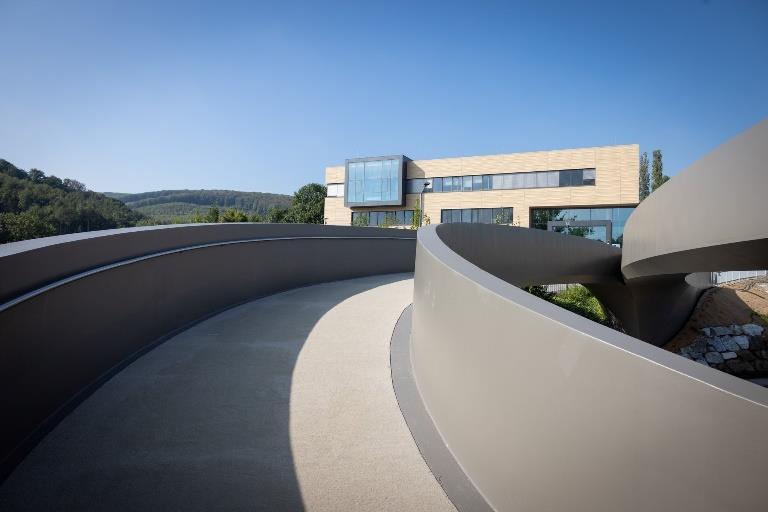
Isaac Jadav, St. Hugh’s College, MPhys Physics, Third Year Undergraduate (of a four year course), a mixture of in person and remote working
Work Projects
Through a variety of studies, the research group I worked in this summer aims to understand the transitionto turbulent flow in different fluid dynamics experiments. As part of this, my project observed the growth of turbulent‘stripes’ which are seen in fluids confined within channels. To achieve this, I completed two main tasks: I prepared and ran fluid dynamics simulations on the institute’s high performance computingcluster, and I analysed the output generated by these usingPython. At the beginningof the project, I tried to classify the modes by which the stripes expand, drawingparallels with similar experimentsperformed in pipes. I observed several differences in the results of the two setups, so later, I analysed the internal dynamics of the stripes to try to explain these. Looking forward, my work hopefully highlightssome directions for useful further investigation and provides a dataset and codebase which can easily be expanded. I worked remotely from home for the first month of my internship (this is not the usual arrangement for ISTerns), after which I travelled to ISTA. Regardless of my location, I had regular supervision on the technical and contextual aspects of the project throughout the 11 weeks. When in Austria, I stayed on campus (ISTA offered housingfor all ISTerns).
5
Daily Life
For the in person part of my internship, I stayed in the guesthouse, which is in the centre of the institute; all of the offices were within a 5 minute walk. I would usually start work at 9:30 and finish at around 17:30, takinga lunch break at 12:30ish, either with people from my group or with other interns. Around 20 interns stayed on campus, so there were usually people around to play pool, watch a film or have dinner together with in the evenings. Sometimes we would organise activities with all the interns, such as country based dinners hostedby different nationalities. I also got involved with ISTA’s ultimate frisbee group, one of a few societies the institute has.
The institute is located in a scenic part of lower Austria, about an hour from the centre of Vienna by publictransport. As such, its surroundings are ideal for hikingand generally exploring. I did this on a couple of weekends, but mostly, I went into Vienna or on city trips further afield (Vienna is very well connected to other Austrian and European cities). I also met many people through a church in Vienna.
Lasting Impressions
The whole project taught me a lot about how fluid dynamics research is conducted and taught me skills that will be useful in my masters project next year. Throughout, I was able to directly apply skills and ideas from my undergraduate studiesto a new and interestingphenomenon in fluid dynamics. This was an engaging process which has shown me that I would enjoy studying for a PhD in a similar field, somethingI plan to apply for soon. However, it has also made me consider applyingto fields with more direct practical applications, as this would provide additional motivation for any project I aim to undertake for several years, beyond just my enjoyment of the research process.
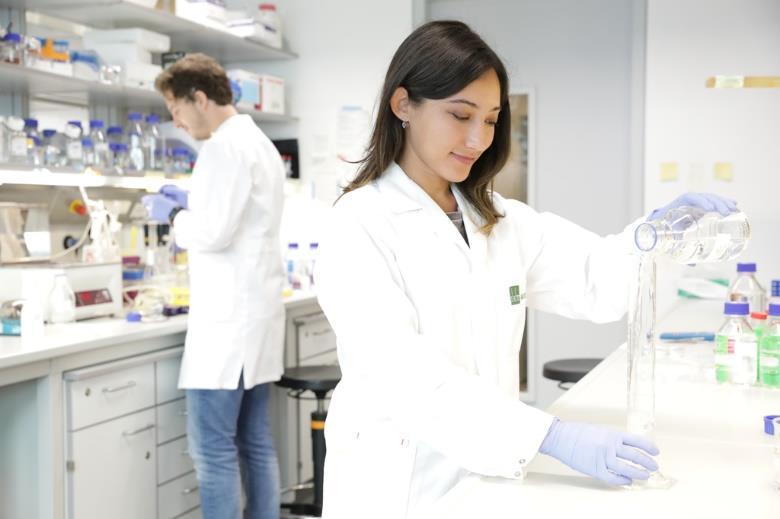
6
My overall experience of ISTA was positive. Arrivingas the last ISTern meant I was a little bit out of sync with the general cohort, but the other interns and my research group were extremely welcoming. This, as well as the balance of support and independence I was given with my project, meant that, within a few weeks, I felt a part of the institute. If I were to return not duringthe summer, I would probably make one change; to stay in Vienna instead of on campus, since, except for the interns, it was mostly empty duringthe evenings and weekends.
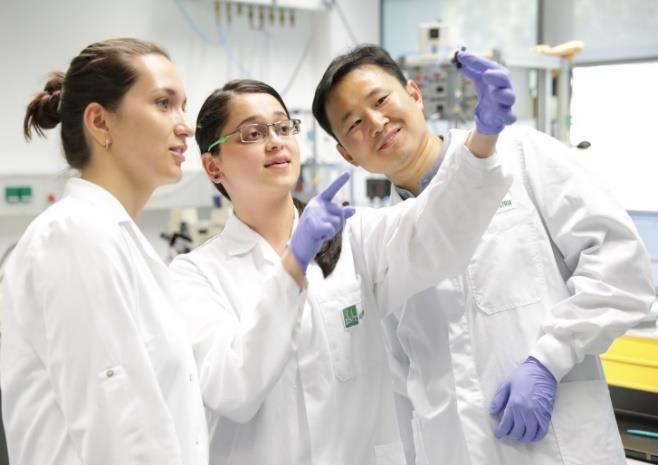
Practical Advice
You can choose how longyour ISTernship lasts for it can be as long as 3 months, but most people go for 2 months. Choose the length that works best for you and your supervisor; in any case, it is unlikely that you will finish the exact project you plan at the start. This is usually because of technical difficulties, or because you find somethingunexpected that requires taking a tangent. As longas you record your progress in some way, this doesn’t matter and any work you do is still useful!
As well as housingon campus, the fundingbody for the ISTernship program, the OeAD, offers accommodation in the centre of Vienna. This is about an hour from the institute by public transport. If you want to be in Vienna a lot in the evenings, this could be worth considering. However, it can only be booked for whole months. There is also a free shuttle bus between Vienna and ISTA duringthe week. All shops in Austria are closed on Sundays, so make sure you buy enough food on Saturday. If you plan to take the train within Austria, consider buyinga ‘Vorteilscard Jugend’ on the ÖBB website. It can save you a lot and costs EUR19.
7
BELGIUM
FLARE GOVERNANCE
Sofiia Kosourova, St. Antony's College, MPhil Russian and East European Studies, in person working
Work Projects
My responsibilities at Flare included participation in and observation of EU related activities (e.g., attendingsessions at the EP, European Development Days, etc.) and reflection on these experiences; brainstormingideas for Flare's events and pitches for various fora; administrative tasks (assistingin organisingFlare events, e.g. sendinginvitations, arrangingcateringand supplies, helpingset the venue and so on); and blogwriting.
Daily Life
The daily work was very flexible, as it is in Flare's belief that the 9 5 routine does not lead to the most productive results. Therefore, I would mostly work and meet up with my supervisor when it is most convenient for both of us (with the exception of events we'd both attend). The place I was rentingwas not far from where we would meet, so I would usually take a 10 minute walk to see my supervisor. Our meetings would last about 2 4 hours, where we would reflect on the events we participated in, discuss the news, have brainstormingsessions, or plan the next event. Outside our meetings, I would often have a few tasks to go through on my own, which would normally take me no more than a couple of hours to complete, so I had plenty of time to rest, explore the city, and go out with my roommates.
I lived in Ixelles, a lively and charismaticpart of Brussels, so after my work was done, I would take walks around the neighbourhoodor take a bus to the centre (bus trips would not take
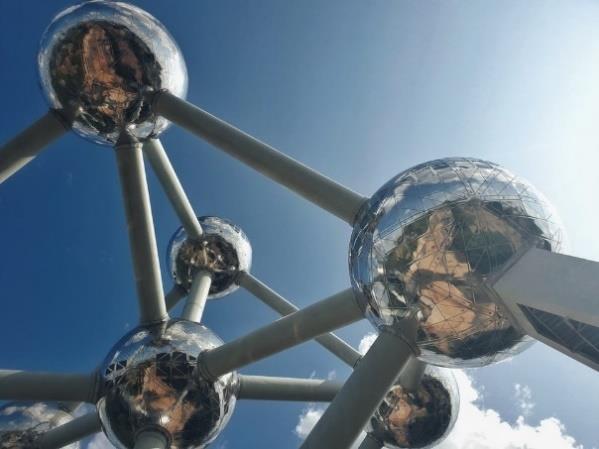
8
longer than 15 20 minutes). There were always plenty of things to do, from going to a museum and catching a movie to havinga relaxed day in the park and going out for a pint of Belgian beer later. I shared the apartment with 4 other roommates, who were also students, so they were the people I socialised and spent time with the most. My supervisor Andreea also offered a lot of support throughout my time in Brussels, which extended beyond just work relationships so I met with her informally a few times and had a brilliant time.
Lasting Impressions
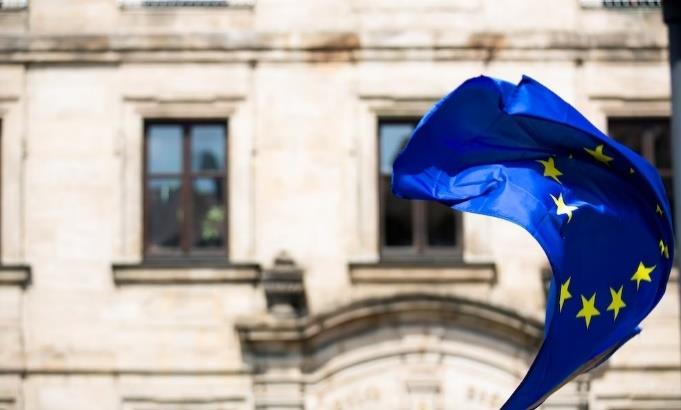
I thoroughly enjoyed my time with Flare. It gave me an invaluable insight intothe work of government organisations, NGOs, and think tanks. But what I value most about this experience is meetingFlare's founder Andreea, getting an insight into her work ethic, professional and personal values and beliefs. Not only did I learn about what careers are potentially out there for me when I graduate but I also saw that this multiplicity of careers would not necessarily mean favouringone over the other but could be complimentary, allowing me to explore different paths while makingsure I do somethingmeaningful. While working with the EP may not be somethingon my professionalradar as I focus on non EU countries and matters academically, Andreea became not only a supervisor but also a mentor and example to follow for me, and motivated me to pursue a job just as purposeful as hers.
Practical Advice
A piece of advice I'd give to future Flare interns is to make sure you voice whatever questions, concerns, or suggestions you may have. Duringmy experience, Flare proved to be very responsive to any feedback I had, and many times these discussions wouldturn into illuminatingand meaningfulconversations. I felt heard, and it is this constant dialogue that made me feel so grateful for this internship. As for the practical side of matters, I would recommend being prepared for flexibility.
9
BERMUDA
LIVING REEFS FOUNDATION
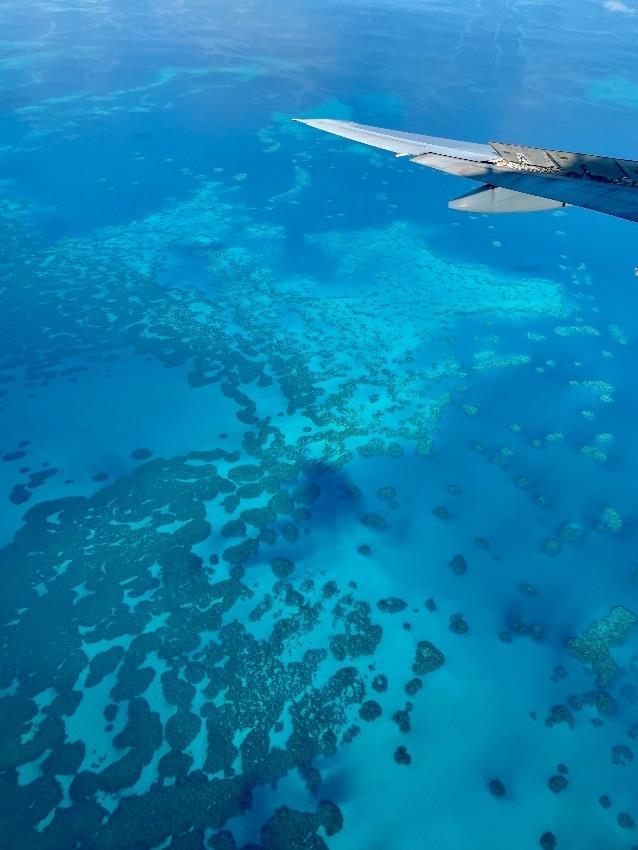
Final Year Undergraduate, MBiol Biological Sciences, in person working Work Projects
During my Research and Development internship at the Living Reefs Foundation, I was involved in planningand carryingout two experiments:1. Testingthe use of mineral accretion technology by CCell to optimise calcification rates in two coral genera (Porites and Madracis). In order to prepare for this experiment, we tested which metals and shapes of our cathode would be best, takinginto account conductivity and the ability to remove and clean it over the 6 month experimental period. 2. A feeding experiment designed to boost the growth rate of juvenile Porites asteroids by optimisingdiet usingdry, commercial food. We also tested whether Polyplab's Polyp Booster drops increased coral growth by increasingthe feeding rate. Both experiments were carried out in order to try and increase the rate of coral growth and calcification at the hatchery, such that they can be outplantedas soon as possible to the local reef system, where they confer a range of ecological functions and services. The data from my feeding experiment was generated usingToupView and ImageJ software packages and then analysed and visualisedin R and Excel for my final report. These results will hopefully be used going forward by the foundationin order to make its coral gardeningpractices more scalable and cost effective.
10
In addition, I built on pre existinghusbandry skills by carryingout daily tasks, such as monitoring different parameters necessary for coral survival and growth such as Photosynthetically Active Radiation(PAR), temperature and Dissolved Oxygen concentration. I also particularly enjoyed beingable to take part in scientific divingand snorkellingexcursions when transplantingcorals and mappingreefs usingphotogrammetry. Overall, I feel that this internship equippedme with current knowledge of research efforts dedicated to active coral protection and bolstered my passion for the preservation of and investment into natural assets.
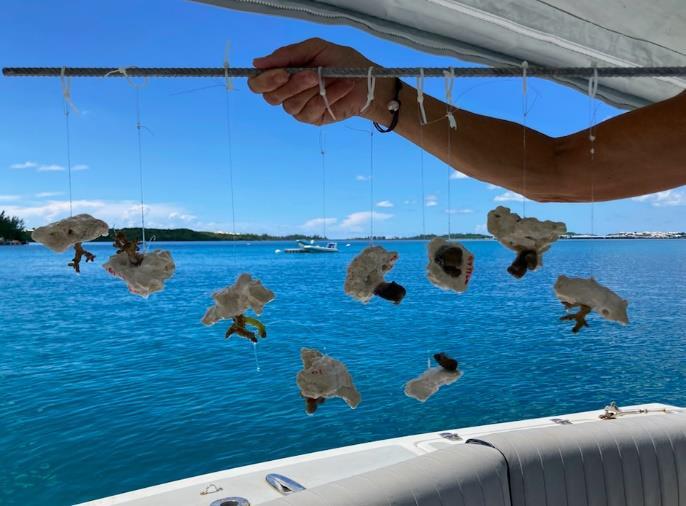
Daily Life
Whilst the Living Reefs Foundations'offices and the hatchery were based on Coney Island, we stayed in accommodation at the Bermuda Institute of Ocean Sciences (BIOS). It had a very welcoming atmosphere, as there were many other students workingand livingat the facility and plenty of social events planned for us, such as visitingthe capital, Hamilton, goingto the beach and going to the BIOS bar for various events.
I was also lucky to be there during the Cup Match, one of the most important events of the year, duringwhich various activities are planned across the island to celebrate the cricket match between St George's and Southampton teams (east and west sides of the island). The accommodation was generally comfortable and very safe: it had an en suite and was located in the same buildingas the laundry room and cafeteria. We got to work by purchasinga $70 monthly bus pass, which also allows you to take any bus or ferry on the island. Our working hours were 9 5 on weekdays, but could vary dependingon what work needed to be completed.
11
Lasting Impressions
I am very grateful to have been able to work with the Living Reefs Foundationand visit Bermuda. My master's project was on coral biology. However, I have had limited experience in handlingand studyingcorals. Therefore, it was amazingto be able to work with corals of a range of life stages and to see the ecosystems they make up. The foundation is really unique in that it is the first in Bermuda to actively conserve coral reefs, and therefore it really felt like I was making a difference. I really enjoyed working with Dr Samia Sarkis (the foundation's founder) as well as other volunteers at the hatchery. It inspired me to continue to work in the field of climate change mitigation in the future.
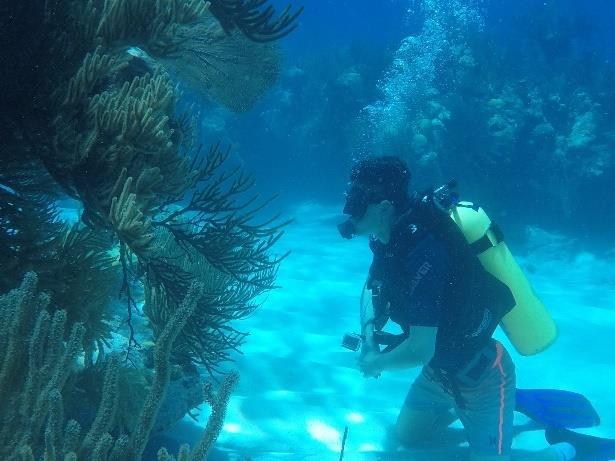
Practical Advice
Although the innovation award providedby the university, and money from the foundation, may cover accommodationand your meals at BIOS, Bermuda is generally quite an expensive place to visit. Try and buy as much as you can in the UK rather than when you're there and consider applyingfor extra fundingto cover the followingexpenses:
* Plane tickets: book as soon as you know when you'll be flying.
* Bus pass: as soon as you arrive get yourself a monthly bus pass from the local post office in St George's as it's probably the most cost effective option (~$70 per calendar month) for travelling around and gettingto work (taxi fares are really high, as are scooter rentals).
* Snorkellinggear: try and buy a mask, snorkel and fins to take for snorkellingexcursions otherwise you may have to rent these when you're there. I would also suggest making sure you have sun protective clothingas snorkellingoutings usually occur duringthe middle of the day when the UV index is very high. Bermuda's rocky beaches can be very sharp and it's easy to get cut when walking on them, so you might also want to find some water shoes as well
* Health insurance: get your health insurance sorted, as healthcare is extremely expensive. You need proof of it to travel.
12
BRAZIL
IGARAPE INSTITUTE
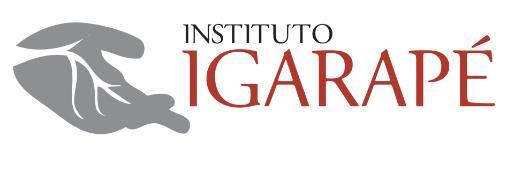
Zilun Lin, Lady Margaret Hall, BA Philosophy, Politics and Economics, Second Year Undergraduate, remote working
Work Projects

I conducted research on violence in the Brazilian Amazon. I was responsible for runningregression analysis, collecting data from government and satellite source, and testinghypotheses that we had developed.
Daily Life
I woke up to do my work and would work around midday before I had my break to step away from the screen and do somethingphysical, like exercise or a walk around the gardens. This helped me work better remotely.
Lasting Impressions
This was a very enjoyable experience mainly due to the freedom I was given to do things the way I thought was best. This helped me develop lots of experience and independentthinking. The team was very supportive whenever I had issues or questions, which helped me through the tougher parts of the analysis.
13
EARTH SCIENCE SYSTEM CENTER (CCST), NATIONAL INSTITUTE
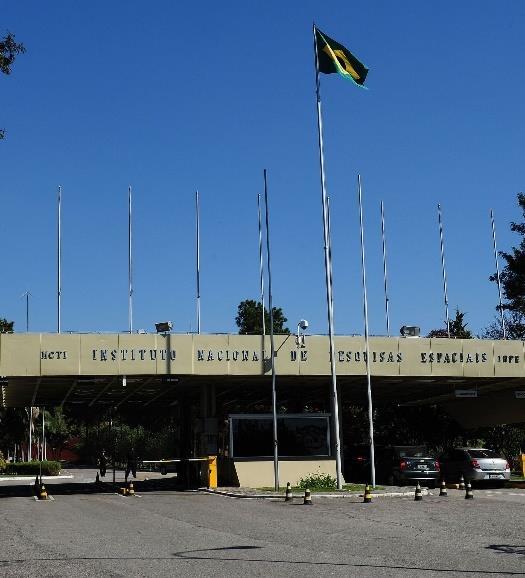
FOR SPACE RESEARCH (INPE)
Anna Tippett, Oriel College, MPhys Physics, Final Year Undergraduate, in-person working
Work Projects
During my internship with the Earth System Science Centre at INPE, I worked with the LABREN group whose focus is on renewable energy resources in Brazil. I spent a month completingmy project in person at the site in Sao Jose dos Campos in Brazil. My project involved researchingthe Typical Meteorological Year (TMY), which is an important parameter for the solar energy sector as it provides information on the long term variation of photovoltaic yield projects. This was essentially a data analysis task and required me to develop a python script to read through a longtime period of hourly data (13 years) of several meteorological parameters, and then select months which were most typical compared to the long term average. This project enabled me to become much more confident in python, and codingin general, and introduced me to the many different types of data sources that are available in climate science. By the end of my time at INPE, I had generated TMYs for 5 different regions of Brazil and investigated the effects of changing data sources and other setups on the resultant TMY. The results of my project were of great interest to the group, and we are currently in the progress of writingan article for publication. This had been extremely helpful for my career progression and has been a real highlight of the internship. My supervisors at LABREN were extremely helpful, and always around to chat if I had any questions. The office culture was very friendly, and we often had coffee breaks to talk about things outside of work. It was incredible to experience what scientificresearch is like in another country, especially one as far away as Brazil! Additionally, learningabout the Brazilianclimate,
14
which is obviously so different to the UK, was an amazingexperience. I really feel that this experience expanded my knowledge and appreciationof this area of research. I thoroughly enjoyed my time at INPE, and I hope to continue to work with my contacts there.
Daily Life
I completed my internshipin person, in Brazil. I lived in an AirBnb with the other intern from Oxford who was there at the same time. We travelled to work by Uber (which is very cheap in Brazil). I ate lunches in the canteen on campus every day, either with my colleagues in my research group or with the other Oxford intern. These lunches were delicious, and a great way to learn more about Brazil from my colleagues! Outside of work, I used the weekends to travel to other places in Brazil such as São Paulo, and the Atlanticcoast. These trips were a great way to see different parts of Brazil, although in hindsight I wish I left more time to travel at the end of the internshipso I could visit places that were slightly further away. Havinganother intern from Oxford there at the same time was really great, and made the experience really enjoyable. All the work at INPE was conducted in English, but there was a slight language barrier since I did not speak much Portuguese at all which made socialisingwith people from work slightly more difficult. I would definitely recommend that future interns learn at least a bit of Portuguese before going, since very few people in taxis / shops speak any English!
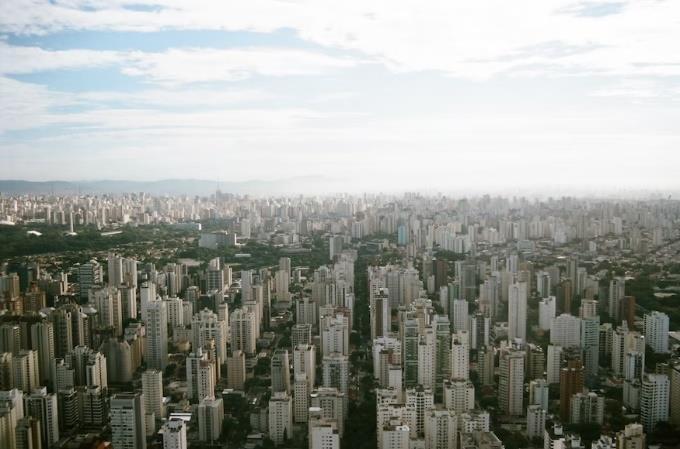
Lasting Impressions
This has been an incredible experience for me, both in terms of career development and personal growth. I really enjoyed conductingscientificresearch in another country, as well as working at a research institute rather than a university. I had not considered how beneficial conductingresearch in a very different environment could be before this experience, yet now I know I will seek out other experiences like this in the future. Being able to publish my work from this internship has been incredible form career progression, and has confirmed that my
15
desire to pursue a career in research is the right one. This internshiphas also provided me with many contacts at INPE that I hope to stay in touch with throughout my career.
Practical Advice
I would recommend future interns book their flights as early as possible, since they become very expensive if left later. Additionally, I would recommend reachingout to the other intern(s) to organise your dates at the same time, since it makes the experience so much more enjoyable! Also, I would advise that future interns try to learn a little bit of Portuguese, since otherwise it can be quite overwhelmingand difficult to get around.
Kitty Attwood, Hertford College, BA Geography, Final Year Undergraduate, in person working Work Projects
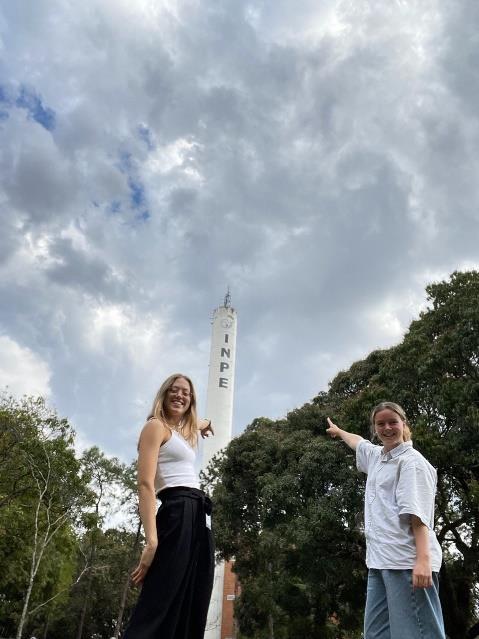
During the month I was at INPE I was tasked with evaluating the performance of a new convection permittingclimate model over Brazil which has been developed in partnership with the Met Office. I evaluated the model’s representation of precipitationvia a concentration indexusingR studio and python. There was a lot to get done in four weeks but it made it a really rewardingexperience. My supervisor was fantasticand dedicated a lot of time to helpingme when I was facing difficulties. After obtainingmy results I spent time analysingthem and was encouraged to situate them within the research context which was a really valuable process to practice.
At the end of the internship, I presented my results to members of INPE, the Met Office and Oxford who were involved in the partnershipproject. It was dauntingbut I received great feedback and I’m now in contact with researchers at the Met Office and I’m hopingto continue the research beyond the internship.
16
Daily Life
I spent 10 days travellingaround the southeast of Brazil before my internship started, which I would recommend as a way to see some of the amazing scenery the country has to offer before settlinginto the 9 5 routine. I stayed in an Airbnb with the other intern from Oxford for the duration of the internship, which was a great way to avoid feeling isolated and get more out of the experience. To get to work we commuted via uber which is very cheap and reliable in Brazil. The CCST buildingis one of many ones at the INPE campus and there is a canteen nearby to have lunch. Everyone in the office is so friendly and welcoming so we settled in really quickly. In the evenings and at the weekends myself and the other intern explored the city and went travellingto nearby places (e.g., São Paulo) by bus.
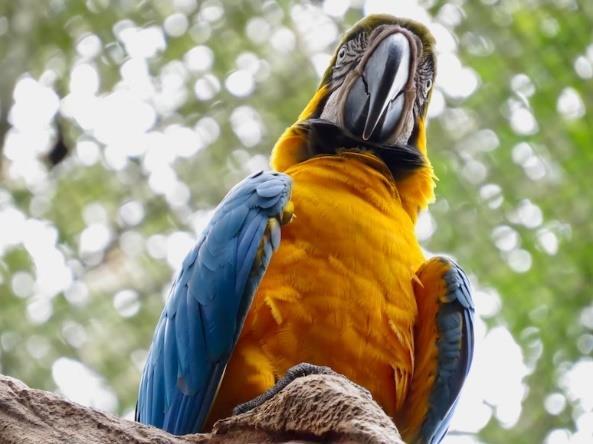
Lasting Impressions
I loved my time at INPE and was really sad to leave. The project was really relevant to the research I am going to continue through a doctoral program in climate science and I have made great connections and developed useful skills. My supervisor is keen to help me publish my results, which is a really excitingoutcome of the project. In this sense the project has confirmed my ambitionsof further study and beginninga career in research/academia. Beingable to travel to Brazil and complete the internship in person was also a fantasticexperience far beyond the project itself.
Practical Advice
Learn as much Portuguese before you go, as I found there were generally few English speakers beyond the INPE campus. Havinglearnt more Portuguese would have made general interactions e.g., Ubers/shops/bars far less daunting. I would also recommend bookingflights as early as possible as they rise in price really quickly. I also asked my supervisor in advance the contact details of the other intern so we could meet in Oxford before we left.
17
CHILE
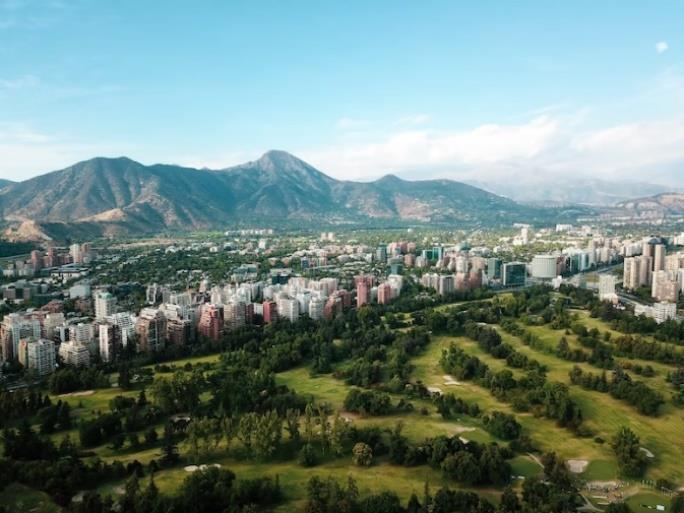
INSTITUTO CHILENO DE ESTUDIOS MUNICIPALES, UNIVERSIDAD AUTONOMA
Richard David Wilkinson, St. Antony's College, MSc Latin American Studies, a mixture of in-person and remote working
Work Projects
The aim of the internship was to source data on clientelism in Chile for a research project investigatingits microfoundations in the country. Given the limited availability of (biased) data regardingthis informal political practice, I was asked to explore the viability of using various proxies. Ultimately, although the project evolved throughout the course of the internship, one of these proxies was retained and I designed and oversaw the process we followed to prepare the raw data for further analysis. More specifically, I catalogued individual level survey data on clientelism in Chile, filed a request for publicdata from the Chilean electoral commission (SERVEL), scraped data from the Chilean Consejo para la Transparencia usingR and SPARQL queries, developed a Shiny applicationcoupled with Google Sheets for manual text annotation, trained and managed two annotators, and wrote reports on our progress. Apart from sourcingdata, I also reviewed the literature on clientelism in Chile and that on trust in local government.
My host organisation, the InstitutoIberoamericano de Desarrollo Sostenible at the Universidad Autónoma de Chile was very flexible. I was provided with an office but given the option to work from my accommodation too. I was also afforded an email address and received kind gifts. My internship supervisor was incredibly supportive from the outset, and it was an absolute pleasure to work with him. He created an incredibly inclusive environment, invitedme to
18
attend numerous events that substantially enriched my experience, introduced me to colleagues and held regular meetings with me to discuss my progress.
Daily Life
I worked both from my accommodation (in Chile) and at the Universidad Autónoma. I enjoyed this flexibility because it allowed me to partially beat the traffic in Santiago. Havingsaid that, I did get progressively more used to the publictransportation system (and only resorted to Uber in especially tricky cases). When working from home, I tried to follow a regular schedule to make the most of every day. It was fairly easy to get settled in, because I had visited Chile on several prior occasions and was familiar with the language. Nevertheless, I was not especially well acquainted with the city of Santiago and this internship gave me the opportunity to step foot in new neighbourhoods (e.g., Peñalolén and Independencia).
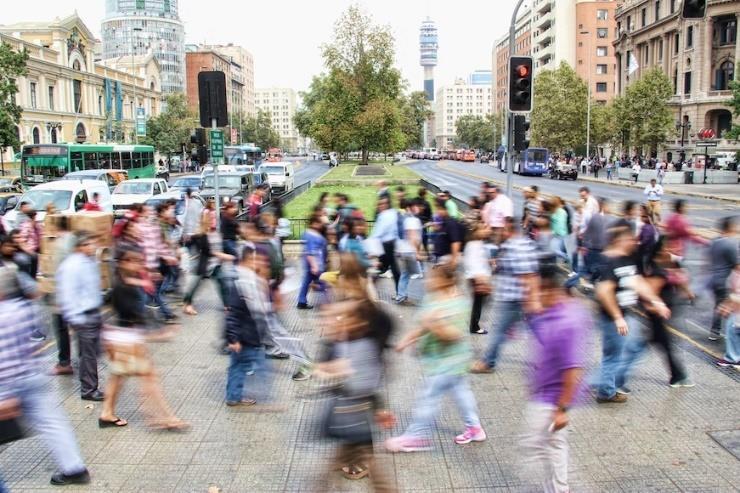
Outside of the university, I spent time with Chileans I already knew, but also socialised with my internship supervisor and his colleagues. I was fortunate enough to be introduced to an MPhil student doingfieldwork in Chile too. We met up on a couple of occasions to explore the city and discuss our projects.
Lasting Impressions
Overall, the internship was a brilliant experience for which I am extremely grateful. In many ways, it allowed me to apply and test knowledge and skills that I acquired and strengthened duringmy MSc at the Latin American Centre in Oxford (e.g., searchingfor, readingand reviewing specialised literature in both English and Spanish,workingautonomously). Yet, it also offered new challenges, such as managing a small team, developinga Shiny application, justifyingproposed courses of action and anticipatingqueries from stakeholders.
19
Moreover, it has lent me greater confidence, confirmed my career aspirations and helped me map out a route to achieve them. As such, I feel that the internship has been a wonderfully enriching experience in professionalterms. I am now utterly convinced that I should seek to do a PhD/DPhil on a topic related to the internship project and in (at least) Chile. The internship also reaffirmed my interest in quantitative methods, despite remindingme of the richness of qualitative data. Hence, it has helped shape my ideas for future research projects.
Practical Advice
It is probably rather self evident, but I would recommend searching for accommodation that is reasonably close to the host organisationto maximise the amount of time that can be spent interactingwith colleagues, especially if the internship is abroad.
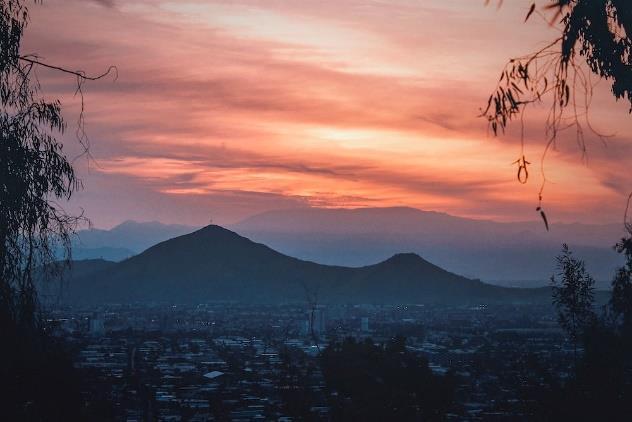
20
CHINA
HUAZHONG UNIVERSITY OF SCIENCE AND TECHNOLOGY
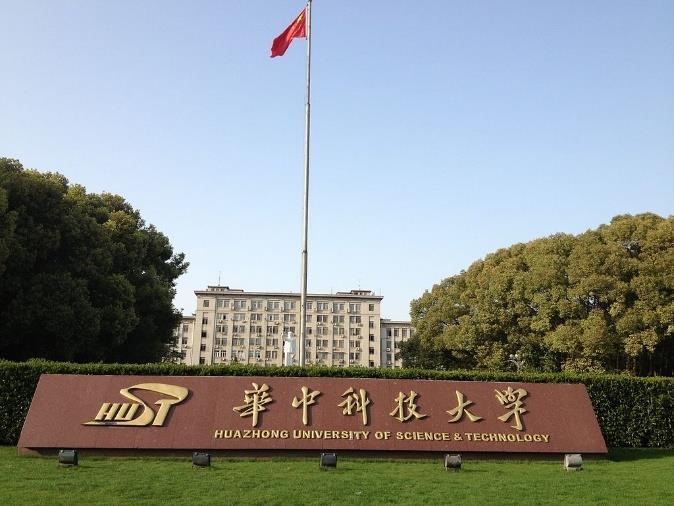
Monte Tan Jia Ying, St.Anne's College, MChem Chemistry, First Year Undergraduate, remote working
Work Projects
During the internship, I was tasked with computingthe total water footprint caused by a theoretical nationwide applicationof biomass pyrolysis generators, which are a sub category of Biomass Energy generation, which is a particularly important renewable energy source that is carbon neutral. Moreover, I decomposed the water footprint into its components, blue, green, grey, direct, and indirect. Lastly, I was able to suggest methods of computingthe reduction in water footprint, due to the water retention properties of biochar.
Daily Life
Overall, my routine remained identicalto my routine before an internship but substitutingmy academic study with the internship. I was able to fit ample exercise into my routine to relax, without sacrificingmy quality of work. Occasionally, I also go out with my friends from high school, to manage and relax as well.
Lasting Impressions
Overall, I describe the experience as beingvery enjoyable. The cultural classes are a good way to reconnect with my roots (beingethnically Chinese), I am also able to see how professionals evaluate the environmentalimpacts of energy generation, followingeach step throughout the production cycle. It enriched my appreciation for the environment, as well as broadened my
21
view on what is considered a water footprint. This experience allowed me to understand better the process of research and writing reports for research projects, enticingme further to my ambition of beinga researcher in the future.
Practical Advice
If possible, do the internshipin person. Attend the cultural classes to gain somethingmore than academics from this internship. Most of all, communicate well and enjoy the process.
MEng Engineering Science, Second Year Undergraduate, Remote working Work Projects
I conducted a lifecycle assessment of the products of a novel solar biomass pyrolysis technology developed by HUST in China. My main tasks were to find ways of optimisingthe lifecycle of each of the products and find the most impactful stages in each product as well as the best overall product.
Daily Life
I worked everyday from 9am to 4pm and would always be in contact with my team in China. I was well supported and had regular contact with other interns as well as professors etc. It was overall a really enjoyable and social experience even though it was online.
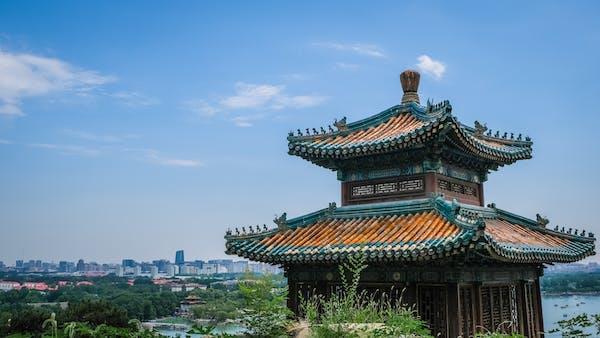
Lasting Impressions
I really enjoyed the internship and would love to come back next year or even fly to China and continue this research with my team.
22
Practical Advice
Future interns should definitely apply if they are interested in chemical engineeringor scientific research in general. This is a great opportunity to work with passionate people and on really excitingprojects broader than the scope of study at Oxford.
MMath Mathematics, Second Year Undergraduate, Remote working Work Projects
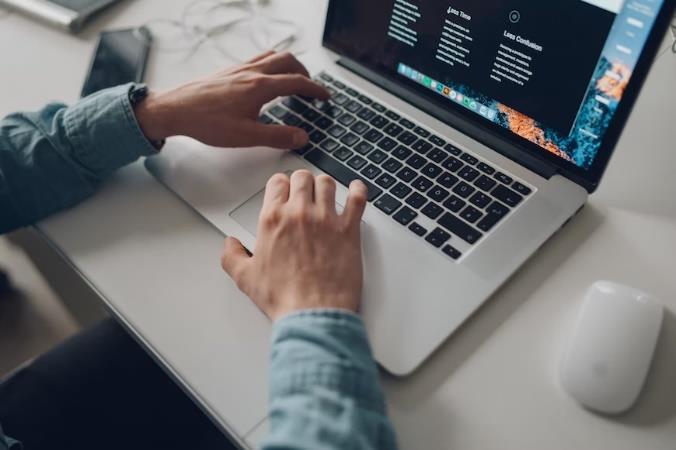
I was asked to conduct life cycle assessment for a new technological process for renewable energy extraction developed by the host university. In the 6 weeks I was working on the project, I have learned about LCA, the software for it, and the chemistry and physics behind the process that was assessed by me. In the end, I prepared a report for my findings and presented them to other students. The host organisation provided two students that I could communicate with and ask my questions to. We had a number of Q&A sessions where I could ask about challenges in my work.
Daily Life
My internshipwas held remotely, so I stayed at home for the entire project. Workingremotely gave me flexibility in my working schedule. Usually, I would wake up, do some morning exercises and then start working. I had a time difference of 5 hours with the host organisation, so most of the meetings would happen in the morning/afternoon, after which I didn’t have any time constrainedactivities. After finishingmy work closer to the evening, I would go to the gym and read some books. Sometimes I would work additionally at night in order to make more progress on my internship, tryingnew approaches and methods. Overall, it was a pleasant experience. Workingremotely allowed me to save a lot of time and money so I consider it a success. However, since my internship was held in a different country, I would have also loved to go there to explore it.
23
Lasting Impressions
When I took this internship, my idea was to gain some research experience. I wasn’t interested in any particular field, my intention was to get a deep dive into some area, developingexpertise in it alongside increasingmy research and studyingskills. I believe that in this internshipI have successfully accomplished these goals. I did enjoy the experience, since I was able to work on a completely new (for me) project that can have a very good impact on the world. Additionally, working with people from a different country was very interestingand allowed me to gain some insights into their culture. This experience did confirm my career aspirations. After university, I want to pursue a career in consulting, and experiences like this show me how excitingworking on research projects can be. I liked getting new knowledge so rapidly and so I think that I will continue workingtowards expandingmy expertise in consulting.
MCompSci Computer Science, First Year Undergraduate, Remote working Work Projects
The project focused on compressingan image format called a Focal Stacking Image (FoSI), so that they take less space on a computer. Over the course of the internship, I learned about pre existingvideo encodingmethods, how to create FoSI data, and finally in the last two weeks was given the opportunity to implement the compression algorithm. I was mentored by Prof. You Yang and Dr. Kejun Wu from the host organization, and am extremely thankful for all that they have taught me! They prepared weekly slides to explain the information, and responded quickly throughout the week to any questions we had.
Daily Life
The tasks duringmy internshipwere primarily programmingbased, and so I spent roughly two to three hours a day codingor becoming familiar with specified software. Every Thursday, I would have a two hour meetingwith my supervisors to review and receive feedback on my

24
work that week, and receive instructionsfor the followingweek. There were also activities offered by HuazhongUniversity of Science and Technology (HUST) aside from just work! On Mondays, there would be a live Chinese culture lesson which lasted two hours, and on Fridays we had time to watch Chinese language lessons provided to us by HUST. Aside from the two live meetings every week, there were no time sensitive commitments, allowingme to work at a comfortable pace and giving me ample freedom to take breaks duringthe day to go outside and walk.
Lasting Impressions
I enjoyed the experience as it allowed me to discover a new topic and provided me insight on how research is performed. I have gained technical skills related to image processingand compression, but moreover I have become more proficient at explainingmy ideas to others. The experience has further increased my curiosity for computer science research: I am eager to find another placement to compare the differences in research and development across universities, or even subfields of computer science.
MEng Master of Engineering, First Year Undergraduate, remote working Work Projects
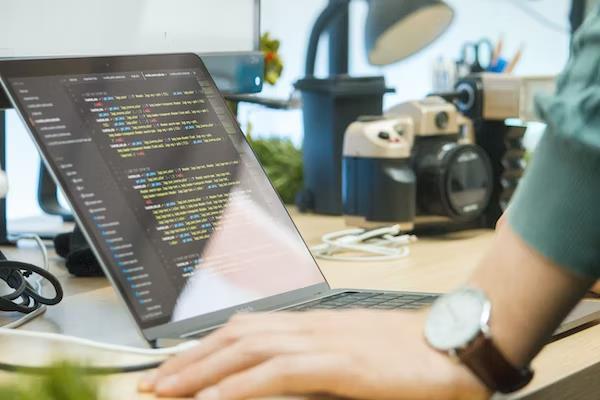
I worked under Professor Qing Yang from HuazhongUniversity of Science and Technology, who specialised in the life cycle assessment of various bioenergy carbon capture and utilisation systems. However, she arranged a different research topicfor me due to my interest in deep learningand time series analysis. Therefore, I had the opportunity to do a project on carbon price prediction under one of her master's students.
During the internship, I used empirical mode decomposition, longshort term memory, and back propagationto predict carbon price in the EU Emission TradingSystem. In the end, I
25
managed to reduce the mean absolute percentage error from 17% to 5%. I received much support from HUST as there were cultural immersive lessons on Chinese culture and language. Although I am Chinese, I could tell my foreign group mates really enjoyed them. In addition, my research mentor Shize Xie was also very supportive throughoutthis internship. In short, I really enjoyed this programme and learnt a lot alongthe way.
Daily Life
Since it was a remote internship and I was in a different time zone from the host organisation, there was a lot of flexibility with the time arrangement. Usually, I did my work in the afternoon and evening so that I could report my progress to my mentors at 9 am. I submitted my progress summary every Monday so that they could be updated.
Lasting Impressions
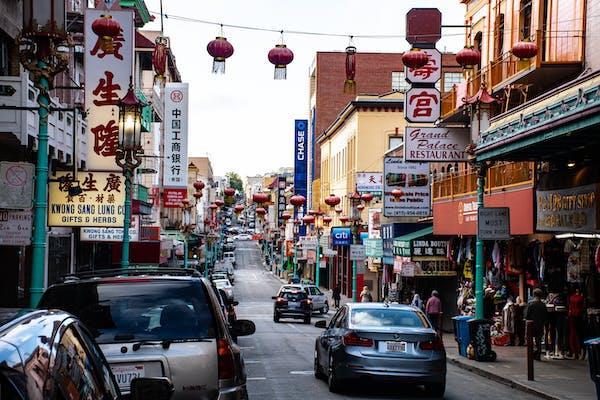
I really enjoyed my internship as I learnt a lot of new concepts that will only be covered in a very late stage of my course if at all. It can help me a lot for my future career and widen my career options.
BA Physics, Final Year Undergraduate, remote working Work Projects
The research team I was working with were trying to improve the energy efficiency of a subway systems air conditioningunit. To do this, they wanted a model to predict what the air temperature (and some other parameters) would be in the future, so that they can optimise the temperature of the train and energy cost. I made a neural network model to predict the output parameters from the input parameters of the system. I met with the research team one a week to discuss any issues and talk about the
26
culture in China and England. There were also weekly talks on Chinese culture, which were very interesting.
Daily Life
Remote I treated it as a 9 5 job. This allowed me to get a lot done without burningmyself out. In the evenings I'd switch off from everythingwork related and play games/watch TV.
Lasting Impressions
I greatly enjoyed this internship. I learned a lot about machine learningand processinglarge data sets, as well as havinga chance to work on a long project most of the uni projects I've done only take a few days. This internship confirmed that I do want to work in data science, and has given me some experience so that I can try and get an entry level job working with data. Throughout my job search, my internship experience has been of great interest to potential employers.

Practical Advice
Be aware that there's only about 15 minutes of project guidance per week. You are doingthe project, you are working out how to do things, there's only enough guidance time to ask conceptual questions and advice for fixingproblems. I didn't find this to be a problem, but it's probably worth beingaware of.
27
TSINGHUA UNIVERSITY HIGH SCHOOL FOUNDATION
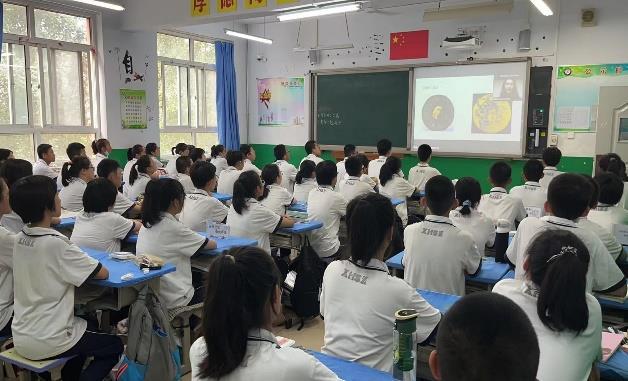
BA Oriental Studies (Chinese with subsidiary language), Third Year Undergraduate (of a four-year course), remote working Work Projects
I was a teachingintern at the Tsinghua University High School Foundation for three weeks. My main task was to teach English and introduce Chinese students to aspects of Anglo American and continental Europeanculture. Apart from the actual teaching, my tasks consisted of researchingand preparingmaterials for my classes. I decided to organise my lessons on a weekly theme. For the first week, I based my lessons on the foods of various parts of the UK. In the second week, I introduced stories from Greek mythology. For the final week, I discussed stories from Aesops fables.
The teachingwas conducted online, so my lessons mainly took the format of a lecture. For this, the Tsinghua University High School Foundationand my mentor Ms. Jiao was very supportive and helpful. She ensured that I worked together with interpreters of my age to prepare my lecture material for the students and gave me feedback to tweak my followinglesson plans. The Foundation also providedme and the other interns with introductory talks on Chinese culture made by students. These talks were engaging and fascinating. It was my first formal experience of teachingany subject, and I feel as though I managed to fulfil my tasks despite the initially dauntingrealisationthat I would be teaching over 100 students every class. My confidence increased greatly in my abilities to present and communicate to others. I also believe that I now have a better insight into teachinga foreign language its required skills and what the job entails.
28
Daily Life
As it was a remote internship, I did all of my tasks from home. My day started with the actual teachingin the morningdue to the time difference between the UK and China. After completingmy teaching, the rest of the day was used for researching and preparingmy teachingmaterials. I read content on my chosen teachingthemes and tailored the informationto an audience of second language learners.
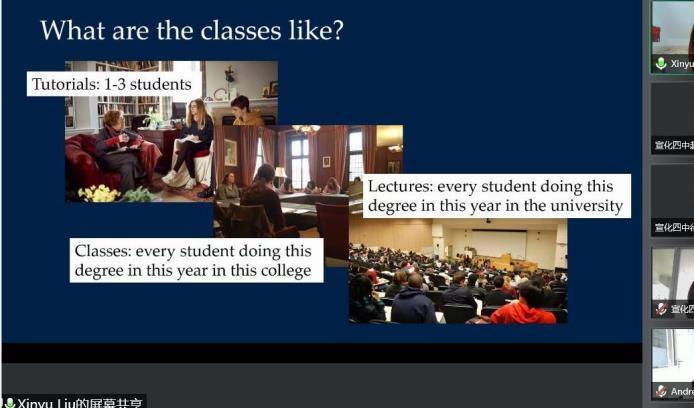
Another part of preparingfor lessons was communicatingwith the interpreters. I ensured to complete lesson plans well in advance of the given lesson to provide the interpreter with ample time to prepare their scripts. There were times when I had to clarify various parts of my plans with the interpreters which, at times, took a significant time due to the large time difference between the UK and China. The preparationfor each lesson took up the majority of my daily routine. As such, I spent most of my time indoors at home. Workingfrom home was not ideal but was manageable. I ensured that technical issues with Wi Fi and with my computer did not interfere as much as possible with my research and especially teaching. Fortunately, my family were mostly cooperative with my schedule too.
Lasting Impressions
The internshiphas been greatly rewarding. I initially found it to be stressful as I had never taught formally before. I was worried about various issues from tech-failures to the potential inability to teach anythingat all. However, the Foundation and the interpreterswere very supportive and helpfuland the experience turned out to be rather smooth sailingand enjoyable. The greatest impression I had was actually regardingthe interpreters. They truly were helpful and friendly, goingbeyond the necessary requirements to collaborate with me to prepare for each class. I cannot mention the students either. Teachingso many at once was not
29
somethingI had expected, and it was initially daunting. However, they were engaged and happy to contribute when asked by me to do so.
I believe that my confidence levels have increased as I am naturally quite intimidated by these forms of presenting, but the teaching went quite well and by the end of the three weeks I was dare say comfortably presentingin front of so many people. I also think that I have gained insight into TEFL and what is required from a teacher. I am uncertain whether actual teachingis truly for me, but somethingrelated in education is somethingthat I will seriously be consideringfrom now on.
Practical Advice
The Foundation and Ms. Jiao were extremely supportive so do not be shy to ask for help! They guided me whenever I became unsure about something.
BA Oriental Studies (Chinese), Third Year Undergraduate (of a four year course), remote working Work Projects
The Intercultural communications internshipwith Tsinghua University included three weeks of teachingand learning. Our main tasks were to teach a class of 70 80 Grade 5 students English in fun and excitingways. In the first couple of lessons, the students were quite shy, but by the end many members of the class participatedin discussions and answeringquestions. Making PowerPoints with language games helped a lot! The host organisation was extremely helpful and gave us mini classes on how to teach effectively, and asked the students what they would like to learn for us to prepare in advance.
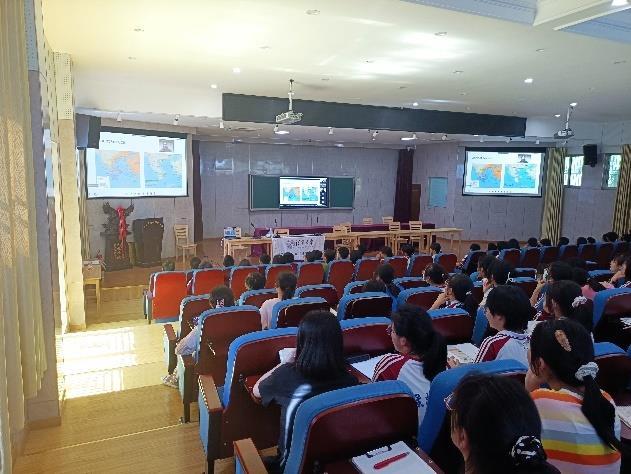
30
Daily Life
As this internship was online, I had a lot of flexibility with when I would prepare class materials and when I would relax. Due to the time difference our contact hours were online from 8 9am, which gave me plenty of time to get ahead for what I wanted to teach in the classes.
Lasting Impressions
The experience helped me realise that I enjoy teachingand may want to pursue it as a career. It also helped me value language learninga lot more, and made me excited and ready for my final year.
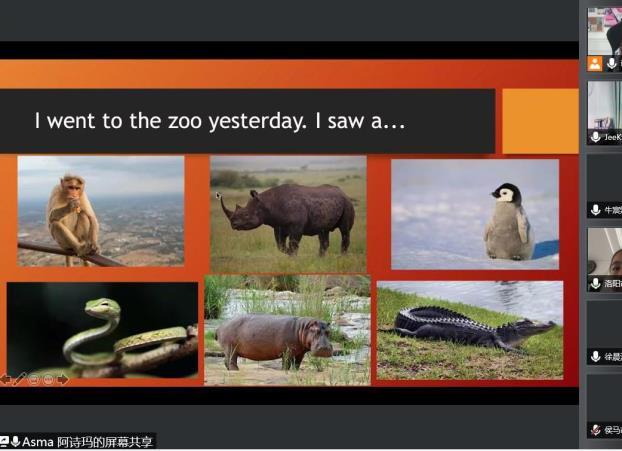
31
COSTA RICA
ACADEMIA CASA MAGA
BA Modern Languages (French), Final Year Undergraduate, in person working Work Projects
We helped out with some of the acting classes at the academy and also led the classes for 6 9 year olds and some teenagers. To do so, we researched kids actingactivities and warm ups beforehand to produce lesson plans for online and in person classes. We also helped with some of the projects carried out by the classes for example, we helped produce the filmingof a project in which a class copied an episode from a Netflix Australiankids'TV show. This involved preparingthe shootingscript and beingon hand on the day.
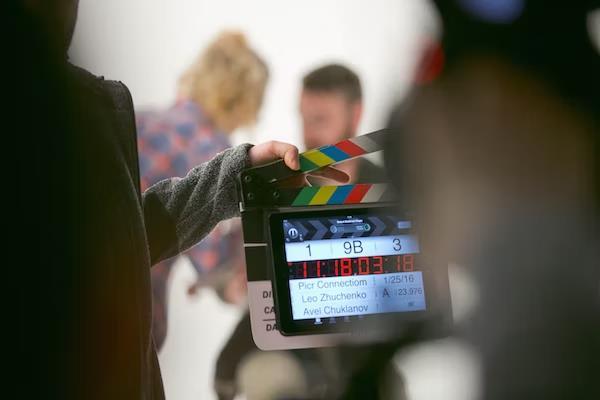
I ended up standingin for the adult actor playingthe teacher and learned the lines in Spanish on the spot. We also wrote a draft for the first episode of a kids’ TV show the academy is hopingto produce. We helped promote the academy by editingphotos for its Instagram page. We also went to the United World College based in Costa Rica to give a talk about Oxford admissions and I taught two French classes on how to analyse an extract for their oral exam.
Daily Life
The internshipwas a mixture of online work done from home or in the co working space in the gated community we were stayingin, and in person work at the actingacademy itself. The acting course offered at the academy followed a hybrid approach, some classes were mainly online with an in person class once a month and some classes followed the inverse schedule.
32
On Saturdays, we would go to the academy for a full day of in person classes and would travel to the academy by uber (10 minute journey). We also took the opportunity to travel to different parts of Costa Rica in our spare time. The host organisationalso took us to visit San Jose and we did a fantastictour of the National Theatre. The tour guides were actors from the theatre who played historical figures from the time of the theatre's construction, and it was a really entertainingplay/tour.
Lasting Impressions
The actingclasses further reinforced my interest in pursuingactingas a career and writingthe script was a new experience that really made me want to explore script writingmore in future.
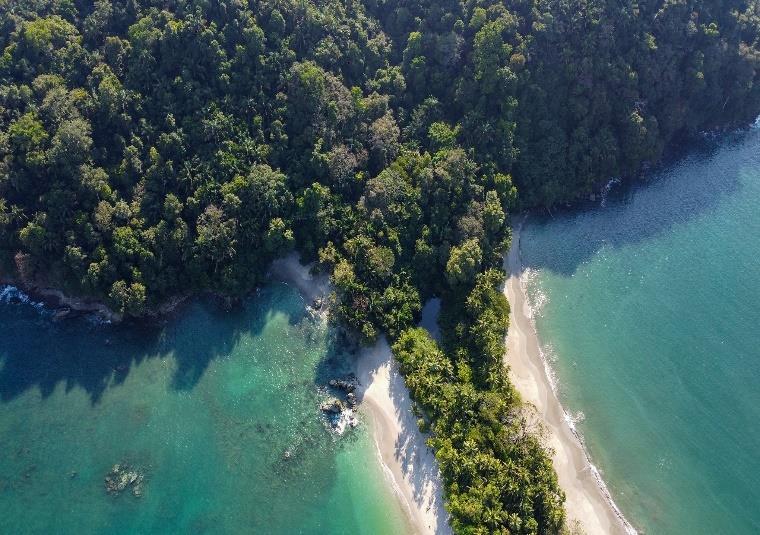
33
CZECH REPUBLIC
CASTLE BLATNA
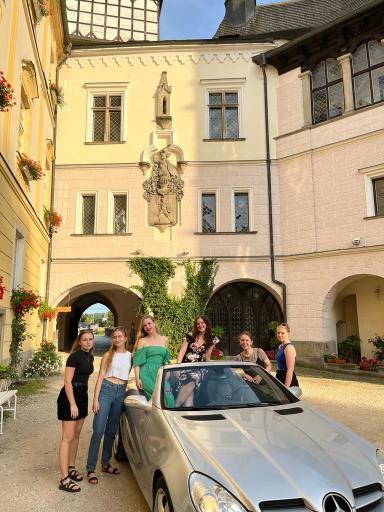 Jordan Edwards Zinger, Brasenose College, BPhil Politics, Philosophy, and Economics, First Year Undergraduate, in
Jordan Edwards Zinger, Brasenose College, BPhil Politics, Philosophy, and Economics, First Year Undergraduate, in
person working
Work Projects
While working at Castle Blatna, I was given a wide range of tasks to complete throughout my two month long internship placement. These tasks included translating documents from Czech into English and from English into French, maintainingand postingon the castle's social media channels, and conductinghistorical research on the importance of the castle to US military actions at the end of World War II. By far the most rewarding task I undertook, alongwith my fellow Oxford intern, while at Castle Blatna was organisingand puttingon our own event. This event took the form of an English Garden Party in the castle's English Park. We prepared drinks, purchased games, set up and decorated the space, and advertised the event largely independently. Everyone working at the castle was lovely and worked hard to make sure we felt included and that our time there was enriching. I got to know most of the employees, rangingin age from 16 to 40, and became good friends with a large number of them. This allowed me to get to know the local culture and feel secure in my placement and work. It was easy to reach out to my direct superiors for advice when necessary, and I was awarded enough independence to get my tasks done at my own pace. In the end, this internship allowedme to practise many important skills, learn about a new culture, and establish lastingfriendships.
34
Daily Life
While interningat Castle Blatna, I lived on the grounds of the actual castle. This allowed for a quick integration into the community at the castle. The flat that I lived in I shared with the other Oxford intern which allowed me to get to know her very well and in the end, we became good friends. This meant that we were able to have breakfast together before work and take our lunch breaks at the same time. It built a sense of comradery as well as making it exceptionally easy for us to get to and from work easily.
As Blatna is a very small town, much of the social life within the town is centred at the castle. This means that through workingthere every day, I was able to meet many locals around my age and build friendships with them. Most days, I would work in the cafe of the castle. This allowed for the intake of caffeine as well as socialisation with the baristas, who were all quite lovely, while working. As a result, I always quite looked forward to going to work every day. It also resulted in my returningto the cafe in the eveningquite often to experience the numerous performances put on by the castle includinga local band playing, of whose members I was good friends with two. Everyone I met at the internship was very kind and helpful. I am grateful for havinghad the opportunity to get to know them as well as I did.
Lasting Impressions
In the last days of my internship, I was quite sad that my time there was coming to an end. For one thing, it meant leavingthe beautiful atmosphere of the castle and the parks. It also meant, however, leavingbehind all the new friends that I had made while livingand working at the castle. Now that I have left, I am left with the lovely memories of my time there. The most lastingimpression I have is of the kind people in the town that I met, the beginnings of the language that I began to pick up, and the interestingtraditions I had been taught while living there.
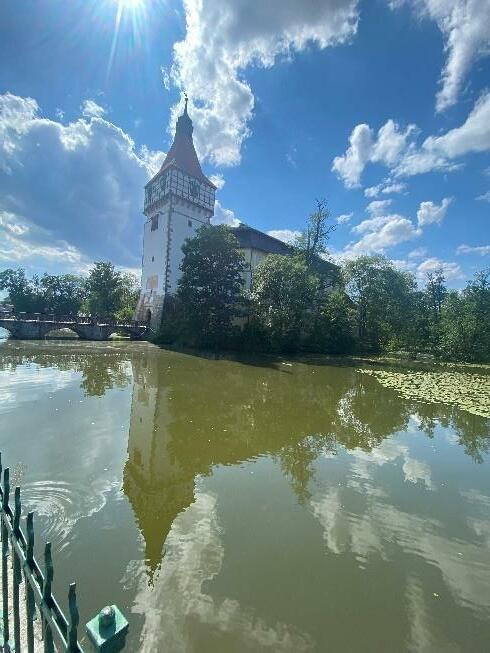
35
The experience taught me a lot about myself as I was livingessentially alone in a new country. It also taught me many valuable skills to be used in a professional environment as well as the importance of having a positive relationship with your superiors. At the end of the day, I believe that this internship cemented my desire to travel more in the future and get to know more people from all corners of the world. I learned so much about the Czech Republic, Blatna, the hospitality business, and myself throughout this internship and for that I am very grateful.
Lottie May Page, Magdalen College, BA in Classics and English, Final Year Undergraduate, in person working Work Projects

I spent two months at Castle Blatna, a beautiful privately owned estate in South Bohemia, the Czech Republic. I was involved in a range of projects and areas duringmy time there; from helpingto maintain social media channels, to filmingpromotionalvideos, to undertakinglots of translation, to helpingto plan and organise events and programmes held by the castle, includingconcerts, festivals, and an opera, to giving a special English tour of the palaces, to conducting historical research. I particularly enjoyed writingspeeches and video scripts, creatingconference presentations, and appraisingsome of the old books in the library.
It was also wonderful to undertake some research into the late mediaeval owner of the castle, Lev of Rozmital, whose European travels helped to forge a new age of European unity. It even emerged that he had visited my hometown on his trip to England. Research into his travels also helped to shed some light on the late mediaeval murals that the castle boasts:the waist length hair of the biblically depicted Adam resonated with comments that the Britons were amazed by the length of the hair of their noble Czech visitors. I also had the pleasure of meeting the British Ambassador to the Czech Republic, and welcominghim to our concert.
36
Daily Life
There were two Oxford interns this year, and we lived together in a comfortable flat within the castle grounds. It was fully equipped, and we cooked for ourselves for almost every meal. We spent most of our days in the cafe, which has excellent coffee and lovely baristas, with whom we became fast friends, and with whom we socialised outside of work. We worked closely with our supervisor, and with the owner of the castle when he was there. The morningcommute involved walkingacross the castle park, greeting the deer on the way. The culture at Castle Blatna is excellent, and some of the most fun was had when employees youngand old toasted the ends of events together. We visited Prague, and Czech Krumlov, amongother places, and had the chance to see the acclaimed South Bohemian Theatre perform several times. The hours we worked were flexible, and the other intern and I took the opportunity to travel to Vienna for a long weekend.
Lasting Impressions
I had a wonderful summer, with lots of fun, in addition to interestingwork. The people I met were wonderful, and I have plans to see several of them in the future. It was also very interestingto experience Czech culture, and notice the generational differences in the country. The excitement I felt at discoveringsome first edition Johnsons dictionaries in the castle library has affirmed my desire to pursue academia.
Practical Advice
Make friends with the baristas and guides early on, as they’re lovely people who will introduce you to the pubs in Blatna, and with whom you will have a wonderful time. Make sure to create a list of tasks, as they can pile up: some days are very busy, whilst others are much quieter. Keep in mind that some establishments only accept cash.
37
GERMANY
TNG TECHNOLOGY CONSULTING
MCompSciPhil Computer Science and Philosophy, First Year Undergraduate, in person working
Work Projects
The project was regarding machine learningand AI, usingGPT 2 and APIs to scrape data online and train/make adjustments to the transformer model. I had learned a lot about modern AI and have improved my programmingskills as well. I always had a supervisor check in at the start of the day as to what I am doingand after 3 days how much I had accomplished, I was required to time every single one of my hours on the company's website.
Daily Life
I had to look for an AirBnB because I wanted to be close to my work and the commute to work was fairly straightforward. I did this abroad in Munich and its publictransport system was affordable and easy to use. I would sometimes do research outside of work (as well as preparingfor next year classes) but I would also socialise with other interns at the company outside of office hours by going to museums, cafes or other sightseeingactivities.
Lasting Impressions
Overall, I really enjoyed my experience at the internship. I made new friendships, learnt a lot about computer science and am now even more sure of my career path within the technology sector. I think I would not have gained as much had I done this internshipremotely, a large part of my enjoyment came from exploringa new country for the first time (Germany) and Munich is a beautiful city!
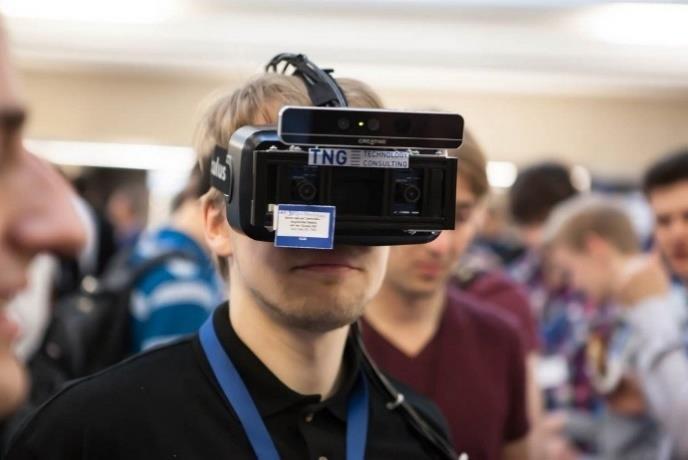
38
HUNGARY
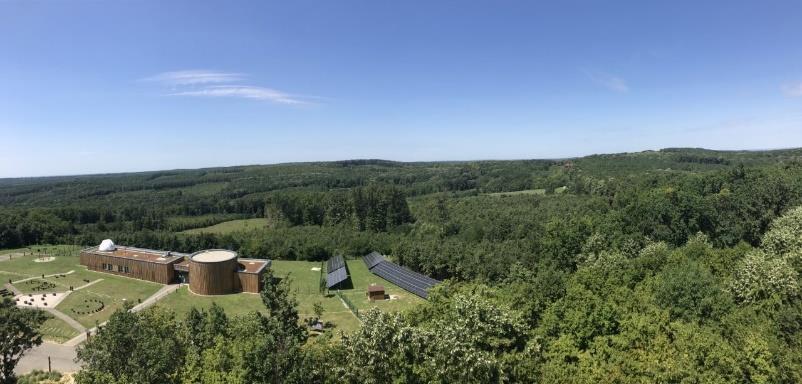
CEEWEB FOR BIODIVERSITY
DPhil Geography and the Environment, remote working Work Projects
My work included a social impact analysis of an EU environmentalpolicy proposal;identifyinggaps in other NGOs' outputs and draftinga policy position paper accordingly;
communicatingfindings from one team of scientists to another workingon the same project; social media communication of a scientificresearch project to non expert audiences;editing another researcher's policy analysis and contributingto decisions regardingits further directions and outputs;identifyingand communicatingEU's policy engagement calls to scientists in related areas of expertise.
Daily Life
Whilst workingremotely, I was made to feel welcome before I even started. The induction meeting was thorough and followed up with my tasks incorporated into collaborative platforms and linked to useful resources. I was working remotely on a flexible schedule, which was great, as it accommodated the health problems I was havingat the time. We had establishedenough mutual respect and trust with the host, as to not need frequent check-ins. That said, my supervisor was always there when I needed to ask for clarifications or suggestions.
Lasting Impressions
Everybody in the host organisation was supportive and warm, and I would be very happy to meet them again, whether in professionalor casual settings. My tasks were designed to give me an opportunity to try a hand at a wide variety of skills on different topics. The trade off of
39
this was that I didn't have time to complete my main task, as smaller jobs distracted me from my main project. That said, I enjoyed the diverse experience.
MBiol Biology, Final Year Undergraduate, a mixture of in-person and remote working
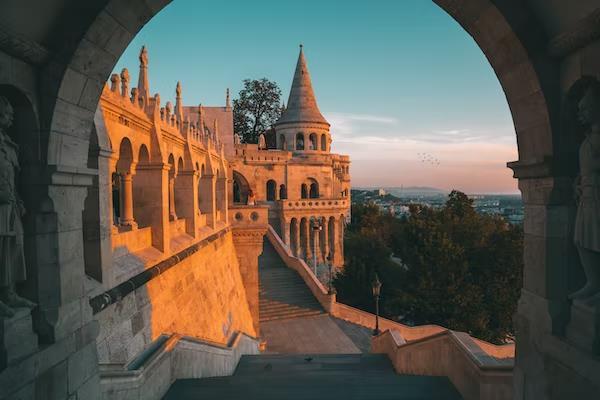
Work Projects
During my internship, I carried out tasks that contributed to several ongoingprojects at CEEWeb. My first tasks upon arrival included collectingeconomic data on agriculture in the EU, providinginput for CEEWeb's position paper on the EU's proposed Farm Sustainability Data Network (for collectingadditionalenvironmental and social sustainability indicators from farms), and readingthrough daily updates on Politico Pro to share the relevant news with the team.
The second half of my internship involved analysingan ecological connectivity network in the Carpathians and usingdata on future tree species distributions to predict potential disruptions to ecological corridors under different climate change scenarios. My final task was to provide some exercise scenarios for an upcomingcommunication and conflict resolution workshop. I enjoyed all of these tasks, as I feel they gave me quite a broad overview of work in environmentalNGOs. I felt very happy that some of my suggestions for the position paper, as well as that the short reports I wrote on the economic data I collected and the threats to ecological connectivity in the Carpathians were helpful. My supervisor was available throughout the internshipand gave me very helpful introductions to each of the tasks and guided me whenever I felt stuck. In addition, all the people at CEEweb were super friendly and welcoming, and I loved working at the office, which I ended up doingalmost every day.
40
Moving to Budapest was relatively easy for me, since I don't live very far and I completed the internshipduring the summer, which is why findinga flat for the relatively short period of 8 weeks didn't take too long. Gettingto work was easy since I chose my flat so that it would take me only 15 minutes from door to door usingthe public transport. The student price for a monthly transport ticket in Budapest was only 8, and the transport was very reliable. The working times were flexible, and I could also work from home if I wanted to, so my workdays were very stress free. I also managed to do some sightseeing, visiting the House of Terror, the Parliament, as well as baths and art museums.
Budapest is also an amazingcity for takingwalks, and there are lots to see outdoors too, from the streets and castles to the Margaret Island. From time to time, we went to a pub after work with the colleagues from CEEWeb. Sometimes we would also organise a send off event at the office for interns or other employees that were leaving. In general, there was quite a lot of socialisingat work, and there would always be someone to have lunch with.

Lasting Impressions
My internshipat CEEWeb was definitely the best internship I have done. I enjoyed gettingto know and contributingto environmental-protection-related work and felt like I was doing somethingvaluable duringmy time in Budapest. In addition, the tasks related to environmental sustainability indicators that I carried out in the first half of my internshipand the experiences I gained were directly useful to me when later applyingfor and getting a job related to this topic.
41 Daily Life
Since I have now finished my studies and have a relatively broad overview of which fields I'd like to work in in the future, it wasn't surprisingto me that I enjoyed the tasks given to me. Therefore, the internshipmostly confirmed to me my wish to work in the environmental sector and made me further consider career options outside of the academia. I would say that the most lastingimpression from the internshipwere the people I met. I received a warm welcome and loved the social atmosphere between the colleagues both in the office and outside. Whenever I'm back in Budapest, I'll make sure to visit CEEWeb again!
Practical Advice
Looking for accommodation will be way easier duringthe summer, while duringsemester time, many places are rented out for the entire semester only. In that case, the only alternative might be Airbnb, which is more expensive than regular flats. I'd therefore recommend lookingfor accommodation as early as possible, and if possible, to also complete the internshipduringthe summer.
COLD WAR HISTORY RESEARCH CENTER

Work Projects
My main task duringthe internship was data entry for the chronology the Cold War History Research Centre has been working on for several years. I was assigned a country and a time period to base my document search on and was required to present 20 pages of data every week. From the start, the Centre gave specific instructions on what sort of information and documents they were lookingfor in additionto the guidance on how to use online and physical archives. For the first part of my placement, I
42
Sofiia Kosourova, St. Antony's College, MPhil Russian and East European Studies, in person working
worked with online sources of the Open Society Archives website only due to the summer closure of the physical archives. The experience of working with online archives proved to be quite interestingas it allowed me to take a closer look at the country of my interest's history duringthe Cold War. However, getting to work in the actual archives turned out to be more excitingstill as I got to explore original documentsthat were likely unique to the Open Society Archives and do so in the beautiful CEU library. I would also attend meetings organised by the Centre, in person as well as online, where we would discuss practical matters and Cold War history itself. The internshipsupervisorswere helpful throughout my time there and assisted in solvingany work or living related issues.
Daily Life
As I was tasked to produce a certain amount of work weekly regardless of when and where I worked, I had lots of flexibility duringthe week. When I worked with online archives, I would usually do so from a cafe, library, or the place I was rentingand whenever I felt most productive. Duringthe time when the OSA research room became available, I would go and work there with original documents, which still left me some free time at the rest of the day. I am lucky to have done this placement in person as Budapest has lots to offer from charming (and rather cheap) cafes and restaurants to galleries, museums, and cultural centres. So, in my free time, apart from getting together with other interns from time to time, I would mostly explore the city and its history. Places like the House of Terror are a must-visit for anyone interested in history, and characteristicruin bars are somethingI've rarely seen outside Budapest.
Lasting Impressions
This internship was an excitingexperience. Workingwith original sources did not only prove to be complementary to my existingknowledge of Cold War history but also significantly enriched

43
my understandingof the era and made it less abstract. And working in the historiccity of Budapest only added to the feeling of beingfully submerged in history. While my thesis is not directly connected to the study of the Cold War, I am grateful this placement has given me a chance to explore farther corners of my region's history, addingmore depth to my knowledge of it.
Practical Advice
As this placement did not offer a particularly strict schedule, my main piece of advice to future interns would be to make sure to come up with a working schedule themselves as soon as the internshipstarts. 20 pages per week may not seem like a lot of work, and the city is indeed too fascinatingto spend all the time workingin a library. But I found that dedicating2 3 hours a day duringthe week to archival work creates a good work life balance, makingsure that archival work is still exciting and does not feel exhaustingafter a while, and allowingfor plenty of free time to go to museums, bars, etc. after work.
Since interns were not required to work at any particular locationwhen workingwith online archives, I'd also recommend trying and going to different libraries and cafes around the city for me this was a good way to both explore Budapest a bit more and turn at times monotonous work into somethingto look forward to every day.
BA Politics, Philosophy, and Economics, First Year Undergraduate, a mixture of inperson and remote working Work Projects
My main role at the research centre was to collect and organise data about Romania between the years of 1953 and 1968. I did this through accessing the online Open Source Archives and by visitingtheir Budapest locationin person. This way I was able to access a series of documents,
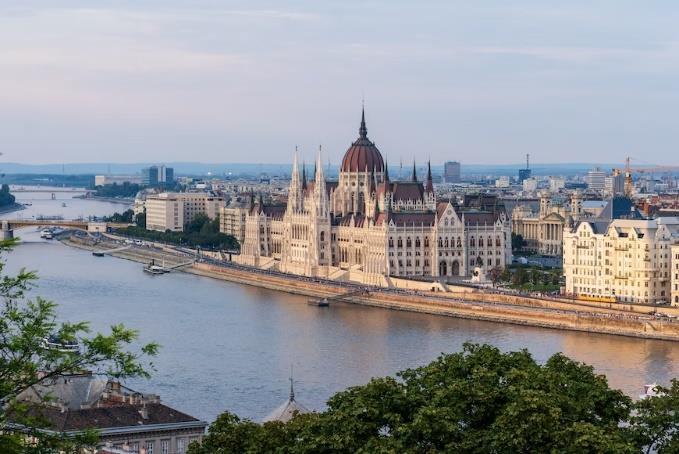
44
largely in French, and occasionally in English, that detailed events and trade in Romania during this period. I collected the data that I found and organised it in a chronology document to show the progression of events in Romania. These entries will be used to augment a publication done by the research centre that shows events in all satellite states, and the USSR, duringthe Cold War.
Daily Life
My internshipwas a mixture of online and in person, though in the end I believe that I spent a majority of my time working from home due to issues and delays with gettingdocuments delivered to the archive for in person work. On days that I worked in the archives, I would usually select a slot for midday and into the afternoon so that I could spend the morning relaxingand getting ready to get to work. I would get a coffee and take the metro and walk to the archives. This was a fairly simple procedure and didn’t take longer than 20 minutes. While in the archive it would be silent work with the documents then takingextra photos of them to reference at home while finishingthe data collection later that day. On days where I would work from home, I would usually start earlier and only break from meals. I would also take a couple of hours off to explore the city a little bit. This could be going out for a meal, going to a museum, or just going for a walk.
Lasting Impressions
In the end I did enjoy the experience of livingin a new city and gettingtime to go around and see it, find nice cafes, go to museums, etc. My lastingimpression is of how demanding academic research can be, albeit quite rewardingas well. I really enjoyed learningabout events in Romania within the time frame and puttingthem in chronological order. It showed patterns and connections that wouldn’t have been possible to see otherwise. I am also proud that my work will be used to augment a new edition of a reference publication. This experience has proven to me that I find this era very interestingand love to learn about the relations between states.
45
TERRE DES
HOMMES
(ALUMNIHOST, ST ANTONY’S COLLEGE)
Sara Al Soodi, Christ Church, BA History, Second Year Undergraduate, in
person working
Work Projects
My internshipconsisted of a research project with the justice programme of Terre des Hommes Hungary. They had just received fundingin order to develop a chatbot which would support child victims, makingjustice more accessible to them. My research focused on findingprecedents and further information on how chatbots are used within the legal world, and more specifically can be used for child victims. Throughout this project, I had a supervisor who would constantly check up on me and whom I could go to in case I needed support or help with the task. The final result of my research would be presented in the format of a report which described all my findings, and which would be used towards developingthis chatbot.

The host organisationhas been very helpful with helpingme settle in and everyone was very friendly and supportive if I needed any help or I had any queries. Because I was in a new country by myself, they made sure I was settlingin alright and offered their support if I needed anything, whether it was regardingmy accommodation or anythingelse. As for the internship itself, they made sure I was always comfortable with my tasks and my supervisor was always available to guide me or answer my questions when needed.
Daily Life
The hours of my internship were 9 to 5, however, this was quite flexible dependingon how I managed my day and what targets I see myself to complete. I would make my way to work via
46
tram, and from there it was not a longwalk to the organisation's building. The view from the office was especially great, as it faced the Danube and the Parliament building, which made for a breath takingsight duringwork. While at the office, I would get on with my tasks, as well as socialise with my fellow colleagues over a coffee on the balcony or duringlunch. The structure of the office was a mix of remote and in person working, meaningnot everyone was in the office every day. However, seeingas I was only there for 2 months, I wanted to make the best of it and went to the office most days. This also meant I got to know most people there, since it depended on who was in the office on the day. This was a very lovely structure where I was able to complete my work effectively, in an environment that was not uncomfortable or too pressurising.
Outside of my internshiphours, I was very lucky to have some great flatmates in the apartment in which I lived, with whom I explored Budapest with and made the most of what it had to offer, gaininga great cultural and social experience. The city is absolutely gorgeous duringthe day and night, with the Danube spanningacross its centre giving for some wonderful sights. I also took the opportunity to visit some other cities outside Budapest which were recommended to me, such as Balaton, one of the largest lakes in Central Europe. At times, the office would also put on events, such as an office party which was a great time to bond and socialise outside work with my colleagues.
Lasting Impressions
Overall, I am very pleased with how the internship turnedout. I thoroughly enjoyed the experience, as it gave me a first hand insight into what workingwith an NGO is like, especially one which works on such a great scale. Besides the work I was completing, I had the opportunity to learn about what other projects were also runningat the same time, what they entitled and what the NGO was doingto further complete its mission. Workingin the justice

47
area was even more appropriate, since I am hopingto eventually pursue a career in human rights law. By doingthis research project in an NGO for children, I feel like I learnt a lot about and have gained an enrichingexperience.
Practical Advice
Make sure you make the most of your experience there, both at your internship and outside. Completingan internshipin a new country means there is a lot to explore and learn about, so although it may feel overwhelmingat the beginning, do not shy away from exploringand enjoyingyour time there. Furthermore, workingwith such a high profile NGO means that there is a lot to learn from both the work you do and the people you work with, so definitely capitalise on that, and if it is linked to future career aspirations, enrich your knowledge and experience to the greatest extent you can.
Erin Margaret Hayes, St.Cross College, MSc Global Governance and Diplomacy, a mixture of in person and remote working Work Projects
My main project was to familiarise myself with Terre des hommes’ (Tdh) model of Resilience Innovation Facilities (RIFs) for at risk youth and author a report about how community integration could be better integrated into the programmes at RIFs in Tdh’s various country offices. Because many of the RIFs cater to youth at risk of migration, promotingcommunity integration is especially important so they can facilitate lastingties between young people and their communities. In order to write this report, I observed workshop activities for youth at the RIF in Hungary, which involved travellingto Gyõr, where the RIF is located. I also attended part of a youth summer camp in Budapest where youth learned many of the key skills taught at the RIF.

48
My work also involved readingand summarizingprevious research about community integration relatedactivities such as mentorship programmes and case competitions. This allowed me to ground my writing of the report in both theoretical findings and real world observations. Tdh supportedme throughout this process. I worked in the Budapest office most days, and my supervisor ensured that I was able to see a wide range of the office’s activities, from attendingmeetings to visitingthe RIF in person. I was also able to attend a local festival and help with a presentationaboutthe work Tdh does with at risk youth. At the end of the internship, I produced a report that will hopefully inform the future development of RIF programmingat Tdh offices around the world.
Daily Life
A typical day duringmy internship began with a commute to work on Budapest’s tramline that cuts through the city. After a twenty minute ride, I would arrive at my office buildingand hike up to the top floor, where my desk had an amazingview of the iconic parliament buildingacross the Danube. In the office, my work consisted of lots of research and writingon my laptop, punctuatedby coffee breaks with co workers. My office had employees from places includingHungary, Pakistan, the UK, and Romania, so it was always lively and interestingto compare experiences with them. After work, I loved exploringBudapest!I often would do so with the other interns from my office one was also an Oxford student, and the other had just finished a master’s in Germany. One of my favourite things to do was watch the sunset Budapest has many great spots to do this with a view of its skyline, includingthe parliament building, Fisherman’s Bastion, and Buda Castle. St Stephen’s Day, or Budapest’s national day, fell duringmy internship, so that was a great opportunity to visit many of the city’s museums for free, try Hungarian specialties like goulash, and watch fireworks over the city.
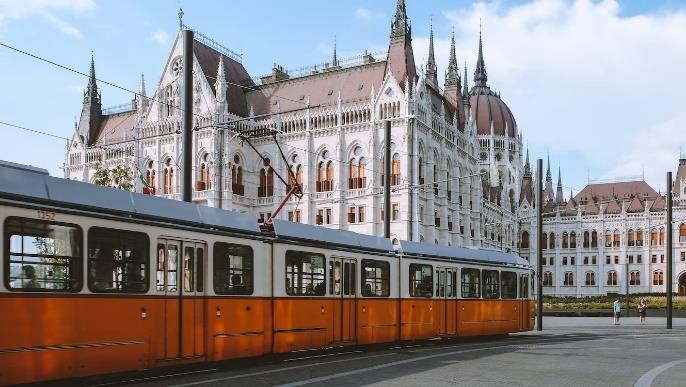
49
Lasting Impressions
I very much enjoyed my internship experience and feel that I gained both career experience and valuable cultural insights from it. My studies and career ambitions focus on international relations, and understandinghow international child protection NGOs operate is invaluable to understandinghow human rights and protection concerns that extend across borders are addressed in international diplomacy. I am thus grateful for the experience to contribute to the work of Tdh and see how the NGO operates first hand. Additionally, as a student of internationalrelations, the experience was invaluable because it gave me more overseas work experience.
Readingabout countries’ policies and governments’ relationships with NGOs is one thing, but it cannot compare to being in a country and seeingthe dynamics first hand. Finally, I am grateful for the opportunity to experience Hungarianculture and meet people from Hungary and around the world that the internshipprovided. I would definitely recommend this internship to other students lookingto gain experience in non profit or protection work or international relations, or simply those lookingto gain work experience in another country.
Practical Advice
Do some background research about the organisationand the country where you will be working so you can start the internship ready to hit the ground running. Also, ask if the organisationcan connect you with past or current interns to provide advice on practical matters such as the best way to find housingor commute to work.
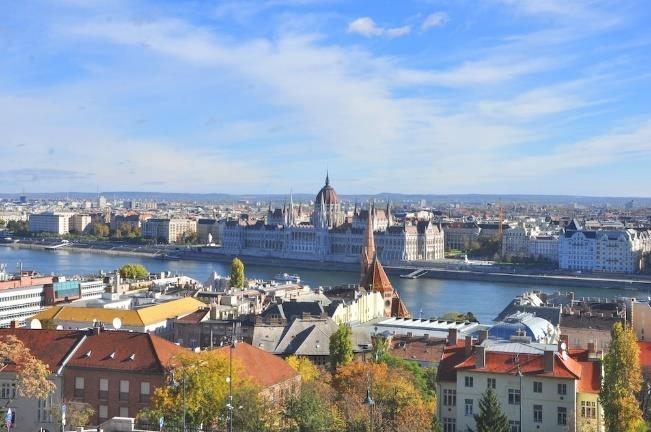
50
INDIA
AKSHAR FOUNDATION
BA Geography, Second Year Undergraduate, in person working Work Projects
Throughout the duration of my six week internship with the AKSHAR Foundation, I engaged with and completed a variety of tasks. My main responsibility was to teach the students at two schools English, Maths, Science and basic computer skills and throughout the six weeks, many of the students who I engaged with on a regular basis showed significant improvements.
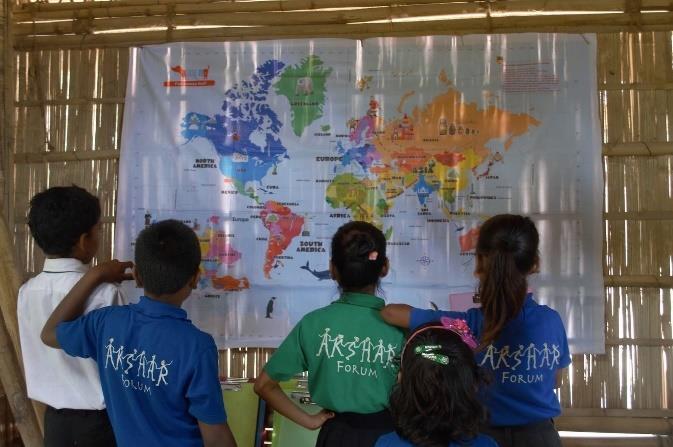
Alongside classes, I was responsible for an individualproject, which was focused on raising awareness of, and tackling the plasticpollutionproblem. I taught the students the importance of plasticrecycling and built on previous work to develop a Precious Plastic workplace. As part of this, I helped the students to start developinga plasticcollection system to gather plastic which they could then use in the machines to make products to sell to the wider community. This combined an environmental issue with a social initiative helping the students to develop key business skills towards financial independence. I also independently chose to invest time into outreach, developingsignificantpartnershipsand connections between my host organisationand other similar, beneficial parties, such as reaching out to universities to set up a partnership mentor scheme.
Throughout the six weeks, I received fast and comprehensive support from the host organisationthey were always easily contactable and did everythingin their power to help me with my project and wider responsibilities.
51
Daily Life
This internship involvedme livingin a completely new yet exitingworld. After the lengthy journey from Manchester to Guwahati, I was warmly greeted at the airport and taken to my accommodation. I was given time to slowly adjust to the new life, heat and different cultural aspects over the first week so that I did not get overwhelmed or become ill. I soon established a routine centred around my responsibilities, leavingthe hostel at 7am to reach school and start teachingand work on my individual project from 8 12.
After the teaching hours, I was given free time to explore the local area and to work on my dissertationwhich I had to complete over the summer vacation period. I took advantage of this, engaging in as many cultural and local experiences as I could to immerse myself into the place where I was staying. I was also with 3 other interns, and we would share meals, socialise and travel on weekends which allowed us to see and experience a variety of things. Some of my favourite things to do were to visit the local markets to buy fruit and to visit local chai stalls and shops to sip on some sweet tea and eat a samosa as I observed the daily life of people around me. It was an incredible cultural experience that I will always remember.
Lasting Impressions
This internship was incredible. Workingwith an NGO on issues that I care about allowed me to grow both as a person and academically. It also allowed me to travel to and experience another part of the world, India, which I have always wanted to visit. I feel as though I gained a significant amount of practical, on the ground experience that has shaped my decisions about what I would like to do in the future. Workingwith AKSHAR Foundationalso allowed me to develop my skills which will be invaluable to me in the future, includingteaching, understanding how an NGO functions and operates, flexibility, time management and events organising.
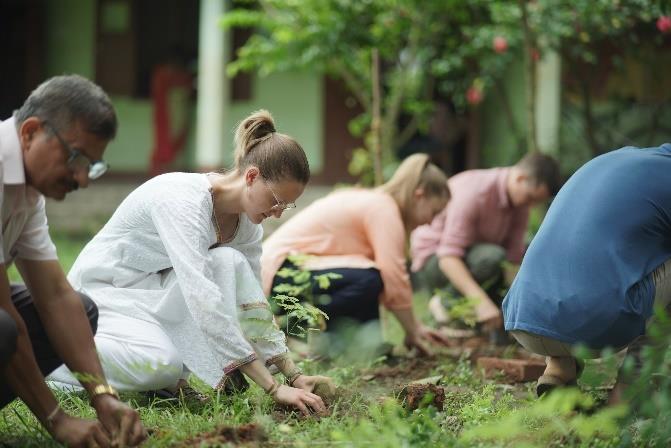
52
The whole experience, including teaching, extra work and the cultural experiences that I have gained from this experience have been life changing, and I know that I will remember and cherish these memories for the rest of my life. Although I still remain uncertain about what, specifically, I would like to do in the future, this experience has really opened my eyes and enabled me to understand how NGOs work in the field to achieve positive change, which is somethingthat I would love to do in the future. I have also been invited to return to work for AKSHAR after I graduate, which is an opportunity that would allow me to gain further skills and to contribute meaningfully to a project that I care about.
BA Philosophy, Politics, and Economics, First Year Undergraduate, in person working Work Projects
I travelled to India for six weeks to work with the Akshar Foundation, a not for profit NGO in north eastern India. They have built a school which provides free education for underprivileged children in a semi rural village, where most of the children had dropped out of private or government schools or were engaged in child labour. The goal of the school is to combine a standard education with more advanced technological tools, includingtheir own education software, and with hands on job trainingin landscaping, electrical work, crafts, and more, making these students more employable once they graduate.
Furthermore, the NGO is attemptingto expand this educationmodel into local government schools, and they are currently cooperatingwith four of these schools. I worked mostly with their original school. One of my tasks was to teach standard Englishclasses for a couple of hours each day. However, my main project was to design and teach a class in robotics and computer skills. Each intern had one project, each with a different focus, and the NGO asked me to do this project based on what they knew of my prior skills. I taught this class to older
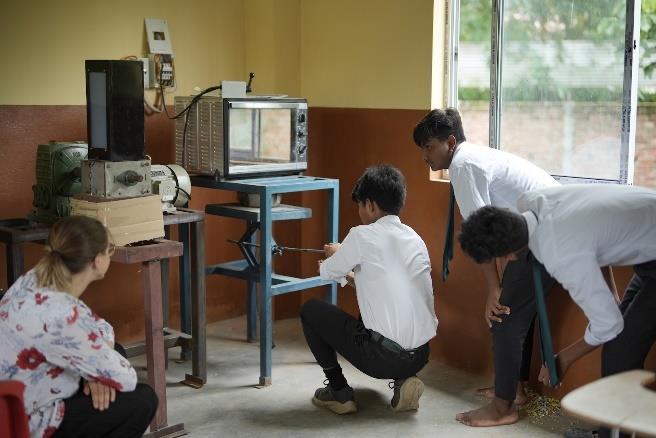
53
students at the NGO school for four weeks, and then they came with me to teach these skills at one of the government schools.
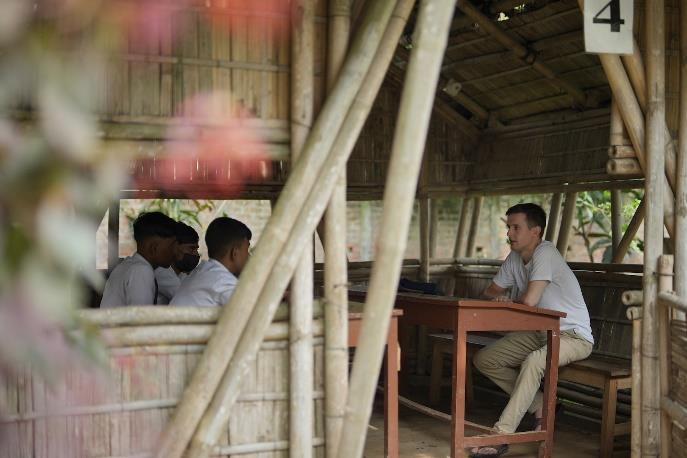
The students became skilled in basicMicrosoft applications, such as Word and Excel. They also became adept at the mechanics of buildingrobots. Furthermore, they learned computer programmingin order to control the robots. They not only learned some programs (such as one for a remote controlled car) to the extent that they memorized them, but they were able to design, adapt, and troubleshoot other programs. The host NGO provided the robotics kits, as well as computers, and gave me a set of goals for my project.
Daily Life
I settled in quite well in India! The Akshar Foundationprovidedhousing, food, and transportation, and helped to organize trips on the weekends for sightseeing. I spent the most time socializingwith the other three Oxford interns. We got alongquite well and ate our meals together as well as travellingtogether on the weekends and occasionally goingout to explore duringthe week as well. We travelled to Cherrapunji, Shillong, Darjeeling, and other locations to explore, which was really beautiful and exciting. The cultural experiences and natural beauty were incredible. We did all have separate rooms, although this was not and is not guaranteed by the NGO for their interns and it was good to have some space and time alone as well. I spent quite a bit of time reading, preparingfor the next days of work, and learningthe Python computer programminglanguage, a personal goal I have had for a while. I also spent time with some local guys that I met who worked at the hostel where we were staying. We spent time most days playingfrisbee and drinkingtea. Overall, I think that it was quite a good mix of rest and exploration, of time alone and with others.
54
Lasting Impressions
I really enjoyed my time in India. My main goal for the summer was to work with an NGO and see how NGO management works on a day to day, as well as long term, level. When I accepted this internship, I was worried that all my time would be occupied teachingand that I wouldn’t be able to see the higher level work going on in the NGO. However, the NGO gave us plenty of opportunitiesto work with them both in project management (we organized an event for nearly two hundred students and guests, demonstratingour projects) and in lobbyingwith local officials.
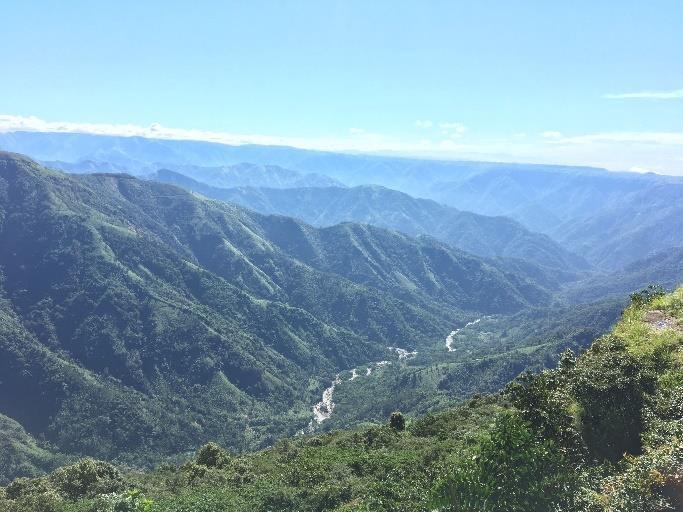
We met with municipal leaders, regional parliamentary officials, bank governors, a college director, a rotary club, and a university chancellor to advocate for the NGO and seek support. Furthermore, we had many opportunities to engage with the media, which frequently came to the NGO school. This gave me a higher level view of how the NGO functions. Seeing this and just being faced with the many challenges present in a developingcountry like India really opened my eyes to the struggles, goals, and needs of NGO work. I really benefited from this experience, and it definitely encouraged me to pursue this type of work in the future.
Practical Advice
I would highly recommend that they explore the region. Even though summer is the monsoon season, there are so many beautiful places to explore. Cherrapunjiwas a personal favourite, and Darjeelingwas incredible, although farther away. Also, I would recommend that interns be flexible and ready to assist the NGOs management in any way possible. There is so much to be gained both for interns and the NGO in these opportunities. Finally, they should bringthings to do in their spare time! Some interns brought books or laptops, and I also brought my frisbee. There was quite a bit of spare time and bringingthings to do is quite helpful and important.
55
Sibley, Keble College, MSt Ancient Philosophy, in person working
Work Projects
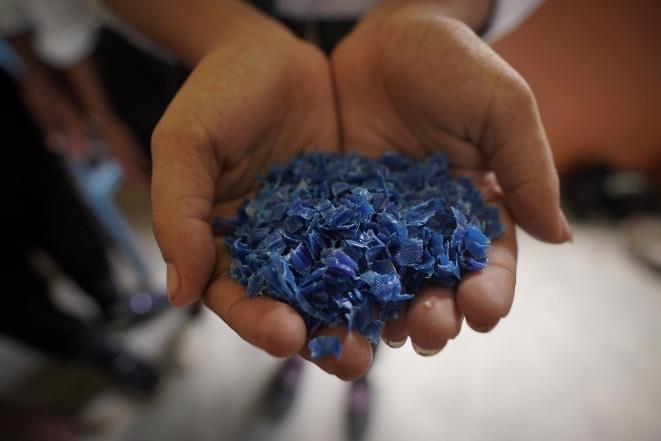
I worked with Akshar Foundationmainly in two schools. In each of these, I taught maths, English, and digital skills, as well as my own personal project, which consisted of badmintoncoaching and the organisationof a badmintontournament between the two schools. As part of this, I had to plan and deliver badmintonsessions of between 1 1.5 hours each morning, teachingthe students the rules of the sport, and equippingthem with the skills needed to both participate in the tournament and pass on their knowledge to other students. In additionto this, I led a team of students in planningan event built around the badmintontournament.
As well as the daily teaching, I also participated in meetings with universities and government departments, explainingthe internshipprogramme, as well as the organisation's wider goals and achievements. This meant interactingat various levels of organisations, includingwith heads of departments, deans, civil servants and ministers. The organisation was very supportive in all of my tasks, invitingme to meetings and includingme in many different aspects of the organisation's work. They also provided additionalhelp when deliveringlessons to help with the language barrier. Outside of the school, Akshar Foundation was incredibly helpfulin arrangingall sorts of activities and services and really went above and beyond in making the experience a successful one.
Daily Life
A typical day duringthe internship began with my badminton project at school before it became too hot. This would last for an hour to an hour and a half. Followingthis, I would teach classes, which would be a mix of English, maths, and digital skills, each delivered to a small group of children in 30 minute classes. Sometimes these classes would be taken by me on my
56
Joseph
own, but often with another teacher, other interns, or a student helper. Duringthe day we would also have a break in which we could eat food provided by the organisation. Occasionally we might go to a meeting with another body, e.g., a government department or university. After school, the other interns and I would return to our accommodation and normally have lunch there. The afternoons were kept pretty free, and I usually used the time to relax, read, or do academic work (sometimes I would have to plan or prepare somethingfor school, but this wasn't too often). In the evenings I would often walk around the local area before returningfor dinner. At the weekends I often went on trips to other parts of the country with the other interns.
Lasting Impressions
I thoroughly enjoyed my internshipand am really glad that I got the opportunity to do it. Akshar Foundation really went above and beyond in makingour stay a comfortable and productive one and exposed us to lots of different aspects of the organisation's work. I think that the experience helped me develop and strengthen my skill set, from communication skills to organisational skills. It was also a fantasticopportunity to visit India and experience a culture very different to my own. I think that the experience hasn't particularly changed my career ambitions, which are fairly vague anyway, but working in the education/NGO sectors is somethingwhich I will definitely consider.
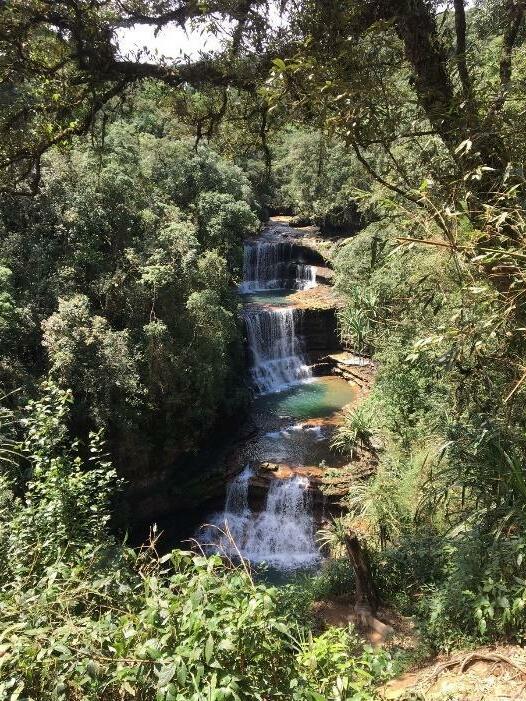
57
BANASTHALI UNIVERSITY
Hyde, Somerville College, BA Jurisprudence, First Year Undergraduate, in person working
Work Projects
I completed the summer cultural activities internship at BanasthaliUniversity in Rajasthan, India. The uni is an all girls university which has a huge focus on providinggirls with the tools they need to be able to provide for themselves in the future. I was met by one of the university staff at the airport and was driven to the university where I was given accommodation in their guest house. There was good communication via email and WhatsApp with the professor in charge of our stay. My main tasks included gettingstuck into the law department and experiencingthe five fold education system at the university. They were very willingto tailor my experience to what I wanted to get out of my time there and allowed me to join the classes that seemed most interestingto me.
Daily Life
My day to day activities were scheduled accordingto a timetable. 7 8am I had yoga, 9 11am I had law classes, 11 3pm was lunch, 3 4pm I had Indian classical dance, 4 5pm I had art and then I would go to the gym in the eveningaround 7pm. We would then be given dinner at around 8:30 pm before chillingin the evening. Tuesday was the day off and the other interns and I would spend the day exploringand travellingaroundRajasthan together. We also found it relatively easy to ask for more time off to explore India a bit more. We were given bikes to use around the university campus and offered lifts in cabs for longer distances.
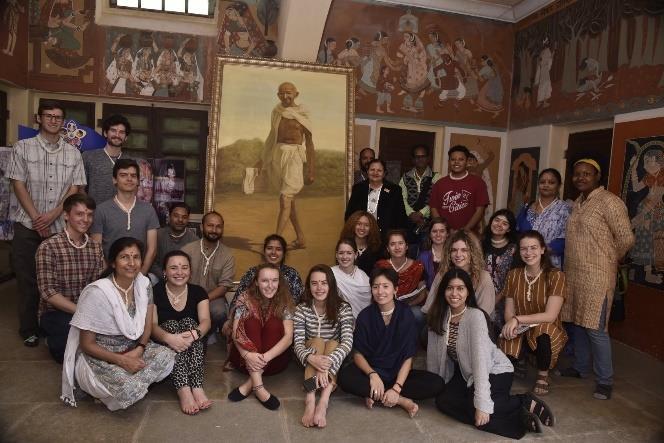
58
Naomi
Lasting Impressions
The cultural experience was one that I will treasure forever. The immersion into a different way of livingis somethingyou cannot get elsewhere. I gained so much confidence and curiosity as well as a greater understanding of colonial Britainand our wider impact on the world. The experience has confirmed my interest in international law and allowed me to appreciate all the opportunitiesthat I have been given.
Practical Advice
Go with an open mind and a willingness to learn but also do not be afraid to ask for time off/ different food/ new timetables as the uni will be very accommodating. You will have to get used to lots of insects, dust and bucket showers but it is worth it for the experience you will get.
THE BRITISH SCHOOL
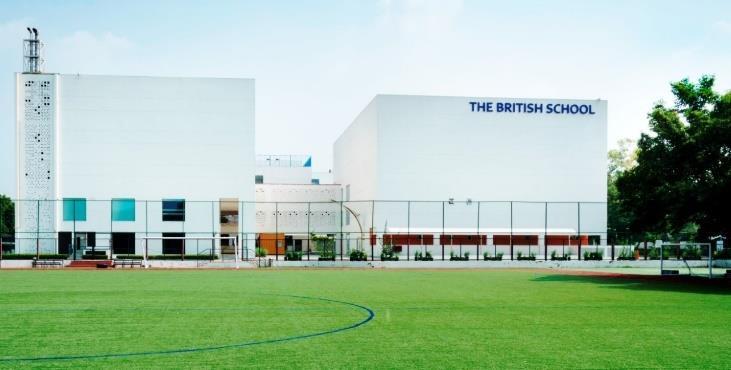
Sara Hoyer, St.Hugh's College, BA Psychology, Philosophy and Linguistics, First Year Undergraduate, remote working
Work Projects
I participatedin a two week remote internship with The British School, New Delhi. The internship would have normally taken place in person and for a longer period of time, but adjustments had to be made due to the pandemic. Together with 2 other interns, my role was to work with the grade 13 students who are planningto apply to universities in the UK, and help them with their personal statements, university choices, and any questions they might have about the application process and life in the UK. Additionally, we prepared several presentations for students of grades 9 12, who will be applyingto universities in a few years, to give them an overview of student life in the UK.
59
More specifically, the schedule was organised so that I met with 3 students a day, for 45 minutes each. Ideally, they should have sent me their personal statement drafts before the meeting, so that I would have had time to read and comment on it. Then, we talked about these comments, and I explainedwhat I would change, and the students could ask questions about it. For students who didn’t have a draft yet, we brainstormedideas of what they might include and how they might structure it. Additionally, the students had a lot of questions about student life in the UK, livingat university, academics, social life, and much more. For Oxbridge applicants, I also explained how to best decide on a college and how to prepare for interviews.
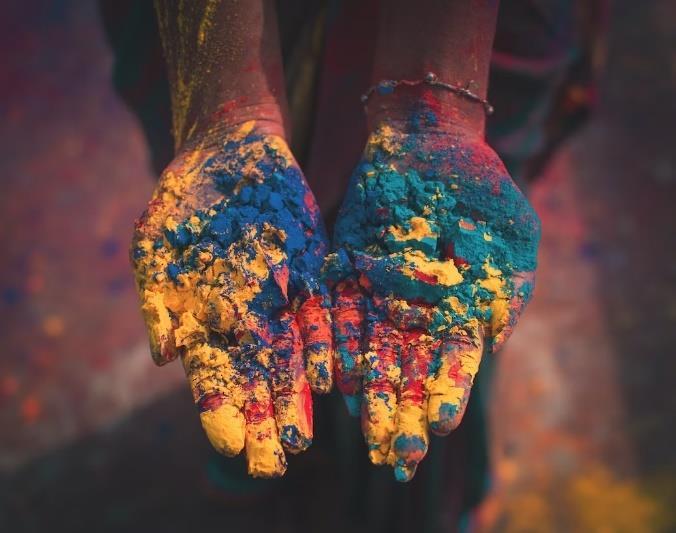
I also did mock interviews with students who expected to be interviewed by their universities. After the meeting times, I read some more personal statements and did research on courses and universities for those whose questions I wasn’t able to answer fully. I also met with the other interns to decide how to structure the presentationswe were preparingfor the other grades.
The support I received from The British School was constant and helpful. Firstly, they were willingto adapt to the Covid 19 situationand move the internshiponline, and were able to organise all the meetings remotely with no technical issues. We received an induction meeting and many e mails explainingour roles and tasks. Whenever I asked a question, the team was quick and helpful in responding. Thanks to their communication and support, I felt well prepared and organised, and was able to provide help to the students. When something didn’t go accordingto plan, for example, a student missed their time slot, the British School team was quick to help me rearrange the schedule and reach out to the person. Of course, I am also grateful for this beinga paid internship. Overall, the school provided professional and inspiringsupport to its interns.
60
Daily Life
Due to the time difference between Europe and India, most of my student meetings took place in the afternoon, so I didn’t have to worry about getting up early, and so my mornings were fairly relaxed. I usually began my work by readingthe personal statements I had been sent that morning or the night before, startingwith the ones that I would be discussingthat day. While reading, I commented on aspects of the text that I thought could be rephrased or changed, including stylisticand grammatical choices, but also more general content, tone, and overall structure of the personal statement. Sometimes, I included a separate section just for comments on structure, to show the student how the order of paragraphs might seem more logical if they have switched them around a bit.

But overall, the personal statements I received were all very well written and the students all had many impressive achievements to include, so I was confident that they would have had very strongapplications even without any help. From 3.45pm to 6.30pm IST, I had 3 meetings with grade 13 students. If they had sent me their personal statement in advance, I shared my screen and went through all the comments I had made, explaininghow somethingcould be changed or why I thought a certain phrasingwasn’t quite right. I also made sure to explain that these are just my comments, and the students should decide for themselves how much they want to modify or leave as it is.
In some cases, students didn’t have their first draft yet, so we just talked about different things they might want to include, and how the personal statement could be structured. Three times duringthe internship, we had an extra meetingin the morning, where we gave a presentation about student life in the UK and UCAS applications, to grades 9, 11 and 12. I was surprised at how early the students there start thinkingabout their university applications, and were already askingabout how to improve their portfolios. Those presentations were also a good
61
way to get to know the other interns a bit, as due to the remote nature of the internship, we didn’t really get many chances to talk. Outside of the internship, I still had enough time for other daily activities, and the workload wasn't overwhelmingor stressful. The situation in my home was quite helpful, since I had my own room in which I could close the door and not be disturbed duringmeetings. I just had to let my family know at what time I would be free so we could plan activities accordingly.
Lasting Impressions
My experience duringthis internshipwas very enjoyable, for a multitude of reasons. Most importantly, I enjoyed beingable to give support and advice to students applyingto university, as I had been in that same situation not longago. As an internationalstudent, I know how stressful and new this process can be, and how confusingit is to try to research all the universities and their requirements, write personal statements, prepare for interviews and still manage your school work. Some of the students told me that I really helped them, and that was extremely rewarding to hear.
Personally, I also think I learned a lot from the experience, even if it isn't directly related to my current studies. I improved my communication skills and my confidence to share my knowledge and opinions. Readingand commentingon many personal statements likely made me more detail oriented, a better problem solver, and a more accurate reader, and might be helpful when writingmy own essays, papers, and reports in the future. I also think that talkingabout my life as a student and giving presentations about UCAS applications has improved my public speakingand teamwork skills. I enjoyed working with the other interns, and would consider working more in teams in the future.
In terms of my career ambitions, I had never planned to work in a school, but I seriously had fun helpingthese students, and so perhaps I might get more involved in similar projects in the future. I am definitely interested in exploringways to support secondary school studentsfrom different countries who are planningto study in the UK, as I think students from all nationalities
62
and backgrounds should get the same educational opportunities, even if they don't have such a supportive careers team as the British School in New Delhi. Therefore, I think the internship inspired me to look into more placements in this field in the future.
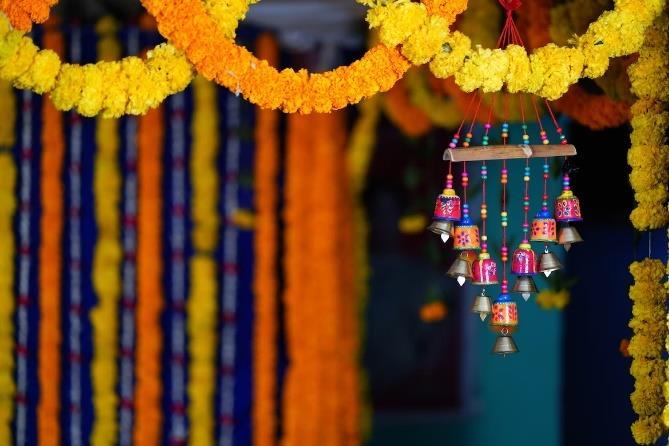
Practical Advice
I would advise any future interns to apply to any internship that they think look interesting because there is really nothingto lose. Even if you think there will be too many applicants, or you might not perfectly fit into the requirements, you never know until you try. Be enthusiasticin your application and mentionany experiences that might be relevant to the internship, even if it seems insignificant at first. I also recommend applyingfor summer internships outside of the UK, in countries that you are interested in visiting, because there will likely be time outside work hours to travel around the region. Do ask your college or department for extra funding if the internshipisn’t already funded. Of course, you will need to prepare everythingyou would prepare for any trip, such as havinga valid passport, a visa, all your flight information, and necessary vaccinations. Do communicate with the organisation, and reach out to them if you have any questions, and they are likely to help you with a lot of the practical preparations. Once you are there, use the time to socialise with your fellow interns and explore the country together, and also take the time to really enjoy your work there. Even if it seems stressful at times, it will likely be extremely rewardingand might be helpful in decidingyour future career plans. Also, if you are applyingfor the first time, don't worry if the internship doesn't exactly align with your studies or career plans any internship will teach you valuable skills, and you may discover new interests while you are there. And any job or internship will be an opportunity to enrich your CV and develop your network of friends and colleagues in different sectors.
63
INDONESIA
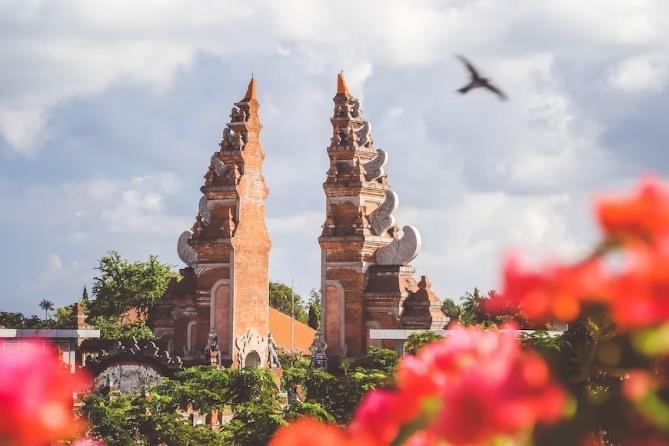
GOTOCO (ALUMNI HOST, PEMBROKE COLLEGE)
BA Geography, First Year Undergraduate, in person working Work Projects
As part of the project, my main task was to promote the flagship youth program runninga college essay writingsummer camp, primarily usingsocial media. Beginningwith basic market research, I had to write draft messaging, conduct market research, produce and schedule a variety of content, and analyse its performance and impact. I managed to increase core social media traffic across all platforms by 3 times, and the engagement rate by 41%. I had daily meetings with my mentor Sam, who was very helpful and guided me through my tasks and challenges.
Daily Life
We arrived in Indonesia and had one week of teacher trainingand settlinginto the country. After that, a daily routine would involve a few hours of lesson planningin the morning, and then getting a taxi to a school in the afternoon, where we would teach for two hours. Duringthe evening, we socialised with other people on the course.
Lasting Impressions
I thoroughly enjoyed the experience I felt it was very beneficial to my personal development, as I gained lots of new skills. This includes time management and planningskills when developinglesson plans, as well as being able to present in front of around 20 students and manage the classroom while keeping students engaged. It was a very enjoyable and unique experience and I felt like I was helpingthe students a lot. While it has confirmed I do not want
64
to be a teacher when I am older, I do not think this was anythingto do with the programme itself.
Sara Hoyer, St.Hugh's College, BA Psychology, Philosophy, and Linguistics, First Year Undergraduate, in person working
Work Projects
Through the organisation Gotoco, I participatedin an internship program in Bali, Indonesia, where I taught English in local primary schools and at the same time began completingthe professional CertTESOLqualification. Gotoco offers such teachingprograms in several countries, where they collaborate with local partners and language trainingprograms, to allow interns to complete a language teachingqualification (such as the CertTESOL), while getting the practical experience of teachingEnglish in schools or summer camps.
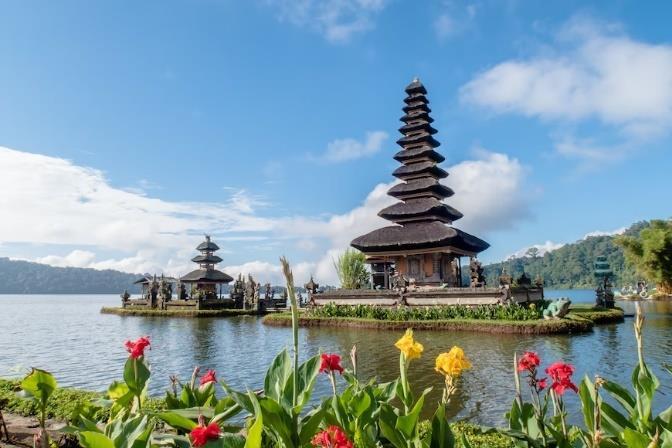
The group of interns I went to Bali with consisted of about 50 people from different UK universities, from a variety of subjects and years. The project in Bali was about 6 weeks long (1 week of trainingand 5 weeks of teaching), but I have another year before I need to complete my CertTESOL qualification. The flights to and from Bali were fully funded, and so was the accommodation, transport to schools, food, and several cultural activities.
During our time in Bali, we stayed in a villa close to the city Ubud, where we were provided with comfortable rooms (3 people per room, ca. 20 people per villa) and 3 meals per day. The first week was filled with induction sessions, some lessons on grammar and phonology, and even 4 hours of Indonesian language training. For the next 5 weeks, we taught English at primary schools for 1 2 hours a day. Our classes were assigned to us, and I was assigned a fourth grade consistingof 23 students aged 8 to 10. They had very little prior knowledge of English, so we started off with some very basic vocabulary
65
(self introductions, hobbies, food), but I was surprised at how quickly they were improving. They memorised new vocabulary and quickly became more talkative, which was very encouragingto see.
I taught through a combination of flashcards, writingon the board, worksheets, conversations, games and songs. For such young learners, it is important to have a lot of diversity in the teachingstyle to engage their attention, and so I had to be quite creative in developingnew exercises and activities. Before and after school, I also had to complete tasks for the TESOL training, for example watching experienced teacher lessons or writing reflections on our Indonesian lessons. In addition, afternoons were usually spent lesson planningand preparing materials for the next day.
Gotoco and their local partners were extremely supportive throughoutthis internship. With regards to the teachingitself, we were provided with a lot of helpful material and resources, as well as useful tips from experienced teachers. Our stay in Bali was made very pleasant and comfortable thanks to the amazinglocal staff who provided cosy accommodation and delicious local food. All necessary facilities and equipment were provided, and we were given transport to and from the schools.
In addition, Gotoco organised some incredible weekend activities for us that allowed us to explore the island, includinga hike up the volcano Mount Batur, Balinese cooking, and a visit to a Sea Turtle conservation centre. Lastly, Gotoco offered us the possibility to extend our internship in one of their other programs, and to return next year once we finish the TESOL. The support I received from my fellow interns was also extremely important, and I met some wonderful people and formed strongfriendships while I was there.
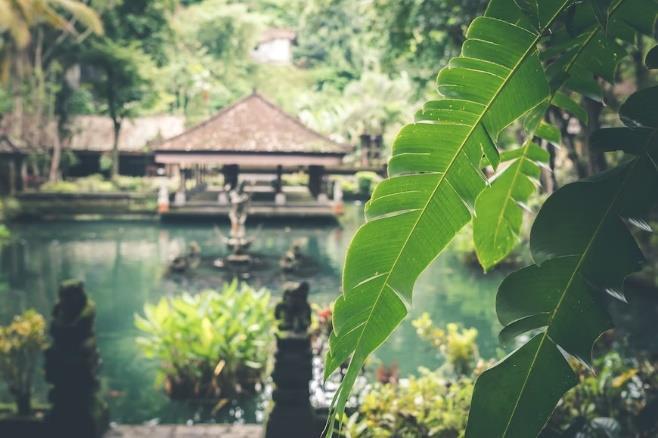
66
Daily Life
A typical weekday duringthe internshipbegan by getting up and havingbreakfast with the other interns who lived at the villa. If we had to teach early at 8 AM, we would usually get up around 6, but if teachingwas in the afternoon, we could sleep for longer. Breakfast was prepared for us, and we could all sit together in the diningarea. Then, we had to get ready for school for teachingin the mornings, we would have had to prepare all our materials the day before, and in the morningwe just drove to school by car. The drive took around 10 20 minutes, dependingon which school you were assigned to. If teaching began in the afternoon, we still had some time to finalise our lesson plans and print out materials in the morning.
My school was in a neighbouringvillage, and I taught there with 4 other interns. In school, we would usually teach for 1 or 2 hours, each intern teachingone class, usually between 10 and 30 students. My grade 4 consisted of 23 students who were only just beginningto learn English, but some of the older grades already knew more vocabulary. We had received a rough syllabus that included the topics we were supposed to teach the students each week, but we had a lot of freedom when it came to the exact exercises and teachingmaterials we would use. I tried to incorporate a lot of songs, pictures and games into my teaching, because I noticed that those types of activities were much more engaging and effective. Sometimes, the students were a bit loud and didn’t pay attention, but overall they were very kind and eager to learn.
After school, we drove back to our villas and had lunch (if he hadn’t already eaten before), and had some time off. We usually plannedour next lesson duringthat time, and sometimes we had a training session or some TESOL work to finish. I usually collaborated with the other interns, and we often told each other how our lessons went, whether we would recommend a certain exercise, or what could be modified in our lesson plans.
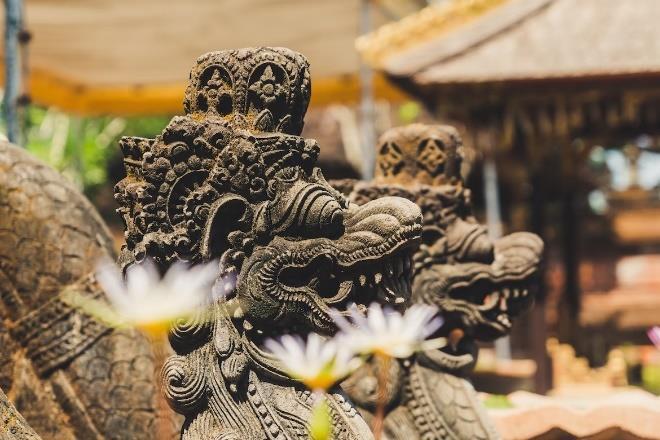
67
We also shared some of our materials and helped each other come up with creative activities. Other than lesson planning, we also sometimes went out, for example to the nearby coffee shop or to buy some snacks. In the evenings, we often had dinner at the villa, but sometimes we instead went out to the nearby city of Ubud. There, we went to buy clothes and souvenirs at the markets, had dinner and drinks at various restaurantsand bars, and had a look around the city.
Lasting Impressions
This internship made some lastingimpressions on me, both in terms of the work we did, and the cultural and social aspects of the trip. The teachingitself was extremely interestingto me, and was a new and rewardingexperience. The trainingwe received in the first week definitely helped me get some ideas for activities, but the first day of work was still full of surprises. I had not expected to teach students with no prior knowledge of English, and I was surprised at myself for how quickly I managed to adapt my lessons to suit the students.
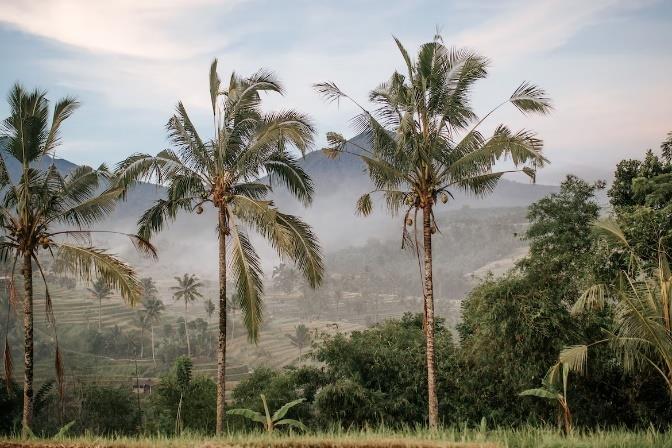
I learned how to explain new concepts as simply as possible, how to practice the same topicin many different ways so it doesn’t get boring, and how to engage students’ attention. I realised how important non verbal clues and body language are and practiced efficient communication. More generally, I definitely had to improve my flexibility, patience, confidence, publicspeaking, and creativity. All of these are things that forced me out of my usual comfort zone, and which I am sure will be valuable for my future, both in terms of my career, and as a person.
It was overall very rewardingto see the progress my class had made in their English skills after just a few weeks, and it was quite sad to leave them in the end. Even though I never had the plan to become a teacher, I believe that havinga qualification in English teachingwill be
68
beneficial for me. For example, I might decide to do more travellingin the future, duringwhich this experience might help me get a temporary job as an English teacher. Additionally, teaching a language is interestingto me from a linguisticpoint of view, as I learned a lot about second language acquisition, phonetics, and different types of errors.
As a psychology student, I was also interested in observinghow different types of exercises impacted the students’ ability to remember vocabulary and understand new concepts, and how quickly their attentionbegan shiftingif a certain activity wasn’t designed well enough to be engaging. So, despite my long term career plans not beingin the education sector, I was still able to find many connections to my current studies, and will definitely benefit from this internship, whether it be to get a job, to enrich my CV, or to develop my transferable skills.
Outside the actual work we were doing, the internship also had an immense impact on me due to the fact that it took place in Bali, a place I had never been to before. In fact, this was the first major trip I had gone on without my family, and so it definitely helped me become more independent and confident. It was extremely interestingfor me to explore Bali, and there were so many fascinatingexperiences we participated in.
Gotoco organised a hike onto Mount Batur, releasingbaby turtles into the sea at a conservation centre, a trip to the monkey forest, a visit to a temple where we saw Balinese dancing, and much more! We also organised our own trips, for example to Uluwatu Temple, or to Nusa Penida where we did a snorkellingtour and saw manta rays. I also met many wonderful people duringthis internship, and made new friends. So overall, the trip as a whole was impactful for me not only in terms of the work we did, but also because it allowed me to explore Bali, meet interestingpeople, and become more fascinated in travelling.
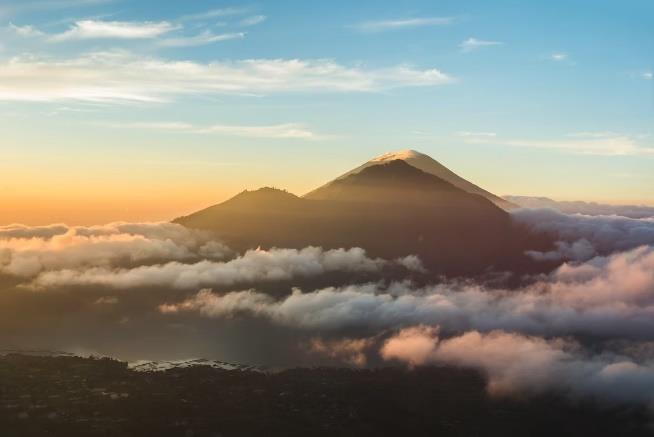
69
ISRAEL
BEN GURION UNIVERSITY OF THE NEGEV
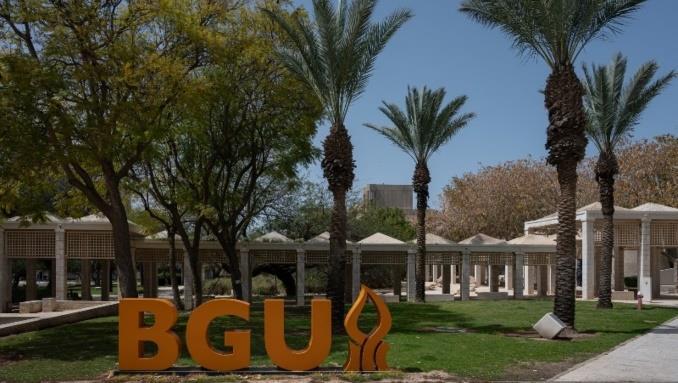 Emilia Schmid, Corpus Christi College, BA Biomedical Sciences, Second Year Undergraduate, in
Emilia Schmid, Corpus Christi College, BA Biomedical Sciences, Second Year Undergraduate, in
person working
Work Projects
My host lab in Israel was wonderful at allowing me to get the hands on experience I wanted to gain from my internship already in the first days after arrival. With the Masters and PhD students around the lab all working on slightly different projects, I was able to quickly gain insight into a diverse array of experiments and procedures, as well as help with them. The variety of studies and techniques, includingbut by far not limited to FACS, PCR and electrophoresis gels and cell culture work, allowed me not only to widen my practical understanding, but also learn a lot about the field of stem cells, get familiar with some literature and think about experimentaldesign for the attainment of study goals to a deeper extent. The academicdiscussion on a daily basis with researchers and the PI, as well as a weekly lab meeting and the readingof papers allowed me to grasp complex topics and practice critical appraisal, a skill that is incredibly valuable in the scientificdomain. Both Ben Gurion University as well as the lab itself were very helpful and supportive to allow me to have the summer internship experience I had hoped to be able to attain.
Daily Life
Ben Gurion University itself made sure to set the other Oxford interns and I up in shared dorms with other internationals, as well as take us on some trips and events organized by the International Students department, which allowed us to meet more summer students of the university and gather culinary and language experiences.
70
In our free time, some of the others and I went on weekend trips every weekend to explore Israel and the surroundingregion as much as we possibly could the insights into the culture, the life and the people of Israel and the Middle East were incredibly valuable and unforgettable. The Israeli students and professor in the lab were so supportive of these trips that they always provided us with a diverse range of tips on sights and restaurants, as well as being of great help for our Hebrew language skills. Workingclosely side by side with Masters and PhD students in the lab, eatinglunch with them and chattingevery day was an interestingimmersion experience, as I truly feel like I have learnt a lot about the local culture and way of life.
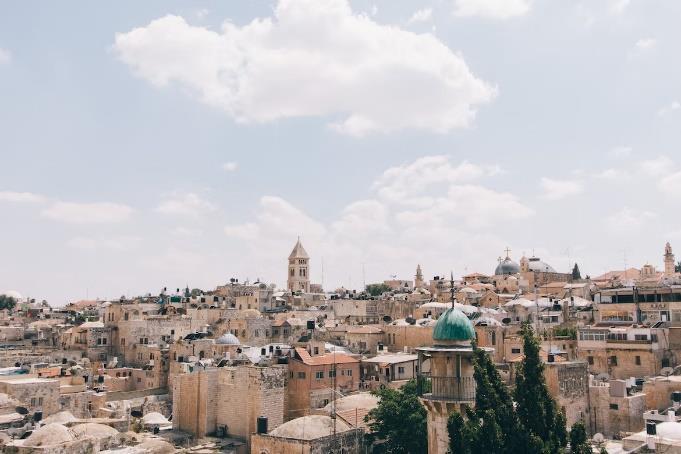
Lasting Impressions
This summer internshipnot only allowed me to practice versatile practical laboratory skills and academic thinking, but also confirmed what I had previously already believedto be my career ambitions. It has confirmed that completinga masters and PhD in an academia environment continues to be a path that I believe I will enjoy in the future, and that working in a social laboratory is a work environment that fits my expectations and hopes. Especially also with the array of cultural experiences I attained, the many places I was able to travel to and see, as well as the insight into Israeli life, this internship not only helped me from a career perspective, but also in terms of my personal development. It broadened my perspective on the world and the overall experience was both much appreciated as well as enjoyed.
71
Maciej
University College, MBiochem Biochemistry (Molecular and Cellular), Third Year Undergraduate, in person working
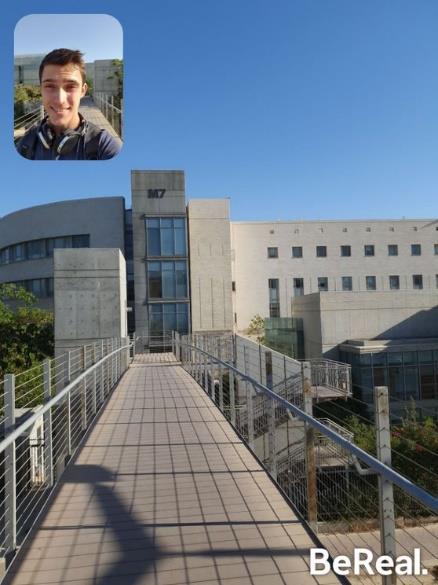
Work Projects
The lab I joined for eight weeks specialises in head and neck cancer. In particular, I assisted a PhD student investigating effects of a therapeuticantibody on carcinoma, not only in establishedcancer cell lines in vitro, but also in mice. My work had mostly a shadowingcharacter, but after seeing certain procedures beingperformed a few times, I was progressively beinggiven more opportunities to do parts of or whole experiments myself.
My direct supervisor was fantasticboth as a scientificauthority, a mentor, and as a person. She was always willingto answer my questions, those relatedto the scientific matter at hand and more general ones, such as about the field and careers in it, or cuisine and culture. Thanks to joiningher in her project I saw, learnt and practised many methods and the surroundingkey scientificprocesses planning, communication, troubleshooting, organising, etc. Also, the lab as a whole, as a community, was incredibly welcoming, helpful and inspiringfrom outings and weekly lab meetings that strengthened interpersonal bonds and increased the comfort of beinga part of the lab, through the principal investigator always beingready to give advice to anyone who needed it, to the possibility to ask questionsand/or assist in experiments of lab members other than my supervisor.
Daily Life
Settling in was unbelievably easy in my case. The accommodationwas provided and paid for by the host university, and from the day of my arrival my flatmates (both Israeli and from the Erasmus programme) gave me a warm welcome, by being friendly, chattingwith me, explaining how the dorms worked and even takingme for grocery shopping. Also, soon after, I met other
72
Maciuszek,
SIP interns from Oxford and quickly bonded with them, thanks to which our evenings and weekends ended up beingvery social hangingout, playingcards, makingpancakes, going to free of charge outdoor swimmingpool, and travellinga lot. During the first month of my time in Beersheba, there were also many other international summer students who we socialised with, mostly duringevents organised by BGU.
In the lab, I would aim to spend a typical, eight hour workingday to fully appreciate the opportunity, usually from between 8.30 and 9.00 am; however, my supervisor would be physically in the lab only for part of that time, working from home for the rest of it. The location of the dorms was very convenient, makingthe internship and all activities outside of it easily accessible, even by foot: 15 min to the lab, 5 10 min to medium sized supermarkets, pharmacy, and bus stops from which one can go directly to the centre of Beersheba (with the central bus station, a cheap grocery market, a shoppingmall, and one of the biggest supermarkets in the city), or even to Tel Aviv or Jerusalem. There were also multiple eating out places close to and within BGU campus offering diverse and relatively cheap meals, includinga nice, entirely vegan restaurant.
Lasting Impressions
Overall, the internship was one of the best experiences of my life both in terms of the science I could be a part of, and the social, cultural and travellingaspects. I met great people in the lab and in the dorms, hopingto be able to keep in touch with them. I learnt about the cuisine and the culture of Israel, Jordan and Egypt. The internshipalso showed me that a career in cancer research would indeed be somethingfor me, while allowingme to meet scientists that converged onto that pathway coming from various backgrounds (nationality, education, subjects, work experience). I believe that the eight weeks spent in Israel might be key for my future.
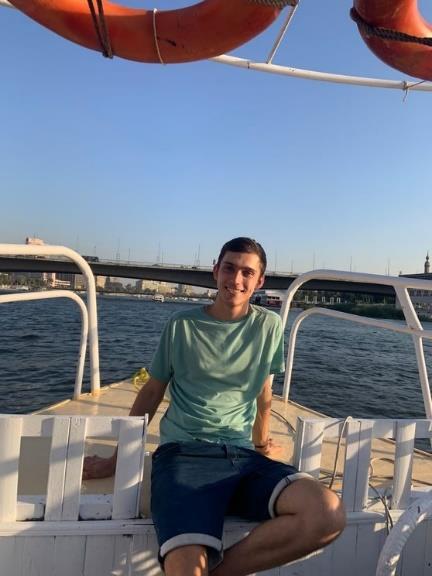
73
Practical Advice
There is a lot of variability in the daily practicalities of the internship dependingon your supervisor's personality, style of working, experience with mentoring/supervision, especially of short term interns (as compared to e.g. new masters students), and, importantly, the nature of their project and what stage of it they are in. For example, if the project requires certain techniques beingdone many times (such as western blottingfor assessment of signallingchanges after drug treatment), it is more likely that you will be given the autonomy to perform entire protocol on your own because you will be able to see it enough number of times, with the potential trade off beingthat you might be exposed to fewer methods overall. Hence, my advice would be to try to discuss/ask for that sort of details as early in your applicationor in the internship as possible. Also, be proactive, but in a tactful way, ask questions and for the possibility to perform experiments or parts of them understandably, supervisors might be used to takingcare of their projects on their own, so to make the most of your short time in the lab try to show your readiness and willingness to help and practise, instead of relying solely on their initiative to show/teach you something;in a way, it is your job to learn somethingduringan internship.
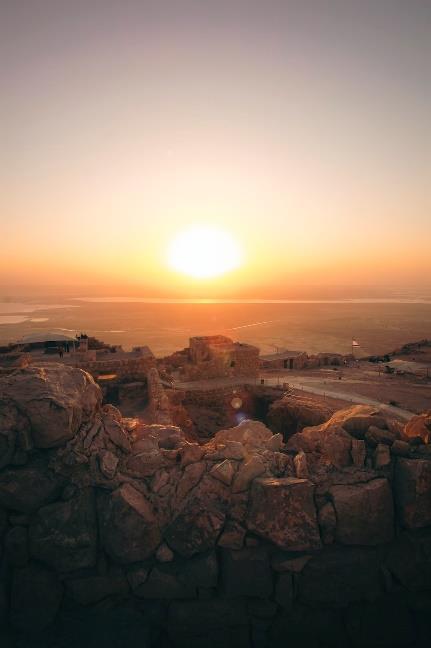
74
ITALY

GOTOCO (ALUMNI HOST, PEMBROKE COLLEGE)
Uma Subhash Gurav, Wadham College, BA History and English, Final Year Undergraduate, in person working
Work Projects
I spent 3 weeks in Italy working with GOTOCO, an organisation who hosts summer camps which teach English as a foreign language to children in Italy across all age groups. The first week was an orientation course in Sanremo, where I was based with a group of around 20 students. We completed a course which taught us the essentials of how to teach classes in the summer camps using activities, songs and games to help the students practise their English. The orientation was intensive but effective and I felt very ready to go off to the camps by the end of the week. GOTOCO informed us of our camp location on the final day of orientation, and I travelled out to my camp in Ospitaletto the next day! I was responsible for the students aged 9 to 10 in a wider camp of around 25 students in total. I taught the students for around 3 hours in the morningeach day in the classroom, and then in the afternoons the entire camp combined for various afternoon activities led by myself and the other tutors, includingwater games, scavenger hunts and other English based games. While I was at the camp, I was stayingwith the family of one of the students and they introduced me to the local area, food and customs. After the placement, I had to complete a short online course at home which then qualified me for my TEFL certification.
Daily Life
During orientation, we had very intensive hours because there was a lot to learn in the five days. We would begin the course at 8am and sometimes we would not finish until 6:30pm. However, we were given a lunch break in which we were able to go and have a rest by the
75
beach if we liked, and we were provided lunch by the hotel in which we were staying. In the evenings, we sometimes had material to prepare for the next day, but we also had time to explore the area and get to know the other tutors. We were given Wednesday eveningoff to go into central Sanremo and have dinner in the area.
While teachingin the camps, the hours were also long and we had to be in school at around 8:30 to prepare for lessons at 9. There was a 15 minute morningand afternoon break, and a one and a half hour lunch break. Teachingended at 5pm, and we would then have our debriefingmeetingafter each day which normally ended at around 6pm. We also had to spend some time after work planningour lessons and the afternoon activities for the next day. In the evenings, my host family tended to organise lots of fun activities for me, such as meeting extended family members or havingdinner in local cities. The weekends were free too, and I was lucky enough to visit Lake Garda with my host family!
Lasting Impressions

I had the most wonderful time on this internship. While the teaching aspect of it was tiring, particularly at first, I found it more and more rewardingonce I got the hangof it and began to get to know my class. Stayingwith the host family was probably the best part of the internship because not only did I begin to learn and practise speakinga lot of Italian, but I was also introduced to some amazingItalian food and I was able to get the know the local area and see some beautiful sights.
I gained a lot of confidence from the experience, particularly because teachingyounger children really requires you to let go of a lot of inhibitions and become comfortable being'silly'around students in order to encourage them to participate in activities in the same way. GOTOCO was a great organisationto work with and all the staff that I met were incredible. They have invited me back to work with them again in the future and I fully intend to do so!
76
JAPAN
YAMANASHI GAKUIN UNIVERSITY
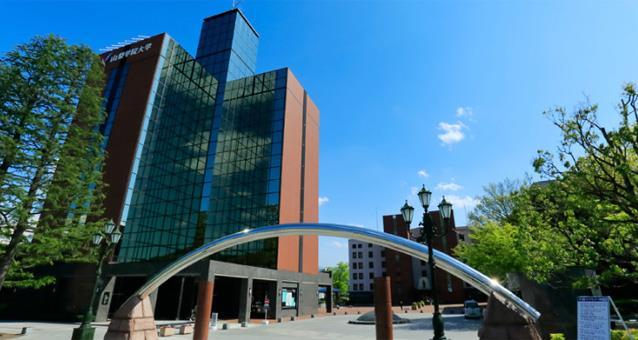 Lucien Jean Lanson Hirigoyenberry, Harris Manchester College, BA Oriental Studies (Chinese with Japanese), Third Year Undergraduate, in person
Lucien Jean Lanson Hirigoyenberry, Harris Manchester College, BA Oriental Studies (Chinese with Japanese), Third Year Undergraduate, in person
working Work Projects
Our internship at Yamanashi GakuinUniversity focused on the concept of internationalisation and in particular on tryingto bringabout more curiosity about life abroad within the student body. Our internship was divided in four chronological phases. First, we familiarised ourselves with the student body, examiningdata from the International Exchange Centre and participatingin school events such as English Funday to try and promote English learning.
The second phase focused on interactingwith a local wagashi company called Wanoca. For this, our main task was to submit a PR report on how Wanoca's products may be sold to Western consumers. We received a lot of assistance both from our manager Murakami san and from Furuya sensei, a teacher from the management departmentwho took us on tours around the prefecture so that we could better understandYamanashi.
During the third phase, we had to create an event to promote internationalisationfor which we held a 'Click Clack Funtime' event where students met and played with paper click clacks in various languages. The last phase revolved around our final presentation(in Japanese), reflecting on internationalisation and how this internshipwill contribute to our future. We were also able to attend trips to Mount Fuji and attended language events throughout the internship and I also attended an event with representatives from the university of Lyon. We received support from our manager Murakami san as well as everyone else in the International
77
Exchange Centre. The office beingquite small and everyone being very friendly, it was easy to get assistance. Most of the work was conducted in Japanese though English was also used. I also worked a little bit in Chinese.
Daily Life
In the first week, we were given a tour of the campus and the office and were introduced to a variety of people such as the head of the school, Aoyama san and other importantfigures. Everyone was very friendly and welcoming despite my poor Japanese and settlingin was very easy as we shared two seats in the International Exchange Centre. Because we lived in university dorms, gettingto school took less than 10 minutes by foot. The accommodation was very comfortable. Because a lot of work involved meetingstudents, I was able to make many friends and organised some language exchanges with them.
Outside of work, I worked on my language skills and went on walks around the city of Kofu which is full of nature. Havingrented a bike, I was also able to enjoy many sights. Some of our colleagues often invited us to lunch and/or for sightseeingon weekends. I also attended Japanese classes with internationalstudents from the university.

Lasting Impressions
All in all, it was a very positive experience. The work itself was not very challengingthough I did enjoy working with the wagashi company and my Japanese levels definitely improved. I have met many wonderful people through this internship for which I am very grateful. I think the internship has made me realise that I would prefer to work in more challengingenvironments and feel like my strengths are put to better use. That beingsaid, it has given me hope for future career projects and encounters I have made have motivated me to perhaps engage in entrepreneurship. I am also very glad that I was able to improve my Japanese levels and it has helped me better understand some of the basicdynamics of interculturalcommunication.
78
KENYA
NASIO TRUST
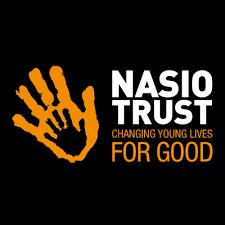
MPhil International Relations, in person working
Work Projects
I spent 2 weeks exploringthe Exceptional Students Program through research and interviews with beneficiaries and staff to produce an ExceptionalStudents Report. At the end of Primary School, all Kenyans complete a national exam. Any vulnerable student within the catchment area of Nasio Trust who receives over 350 marks (out of 500) is eligible to apply for this scholarship. Students are then interviewed and 5 are selected by Nasio. Nasio pays for these students school fees for secondary and university education. Overall, the program is quite successful. However, there are issues in the selection process, in student mentorshipand support, linkages to community development, and long term fundingsustainability.
My report discusses these issues at length and provides interventions to be implemented to strengthen the program. While working on this report, I also created a new Exceptional Students AdvertisingVideo, which Nasio can use to secure fundingand better advertise the scheme on their website. Currently, there is a strong reliance on poverty and glamorizationof poverty to attract funders.
The purpose of this video is to emphasize the achievements of Exceptional Students, with a focus on their worldview and goals for the future. While working on this project, I also learned that there are several other scholarships out there for vulnerable students who score well on the National Exam. I created a document with Alternative Scholarships for Exceptional Students, which lists scholarships and application guidelines. The thought was that Nasio could help support the students it cannot fund to apply to other programs.
79
I spent 2 weeks exploringthe Peer Education Programme, which is aimed at reducingteenage pregnancy, early marriages, and HIV transmissionamongyoungpeople aged between 10 24 years by improvingawareness and education on sexual reproductive health. It is also aimed to economically empower vulnerable individualsfor sustainable livelihoods at the householdlevel. I produced a Peer Education Report that outlinedthe way in which the project operates, as well as improvements when it comes to logistics, the programme scope, sustainability, and securing future funding. The fundingis going to run out in 3 years, so I proposed 4 different extensions to the programme that would help with renewing funding. I also reviewed grants that had been rejected and offered suggestions for those grants. Finally, I created Peer Education ID Cards for all the student peer educators, as they expressed that they often faced challenges when sensitizingthe community, as some elders had issues with men and women talkingto each other. These cards can now be given to each Peer Educator to demonstrate that they have been trained by Nasio. Finally, I spent about a week working on a Mentorship Guide. The idea for the mentorship guide came as I was working on the Exceptional StudentsReport. Part of the program includes a mentorship scheme, where each student is paired with a mentor. However, at the moment this is rather informal. I created a Mentorship Guide that could be used to train staff mentors. However, while working on this, I was also workingon an Organizational Capacity Assessment for HR and Management. There are big challenges when it comes to staff retention, efficiency, effective communication, and trust in the organization.
I thought that implementinga formal mentoringscheme for the staff could be useful, so I also created a brief document outlininghow Nasio could implement such a scheme. Through this HR review, I also provided suggestions on how to better train and empower staff. I created a
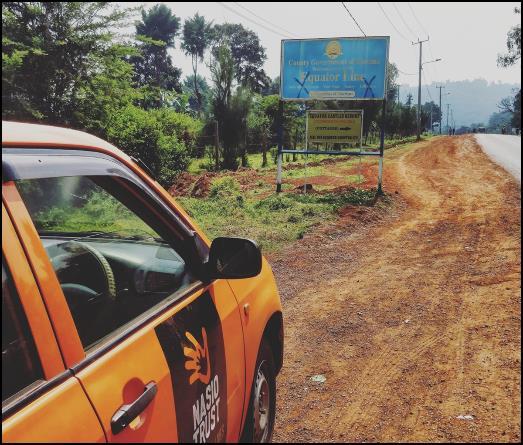
80
ReadingList for staff and for interns. Throughout this process, I received support from the CEO, the Project Manager, and the local Staff.
Daily Life
Throughout our 5 weeks in Musanda, we stayed at the Nasio Trust Guesthouse. This is where we slept, ate, and worked. Every day we woke up, ate breakfast, and then worked until lunchtime. Work consisted of discussions with staff members, visitingNGO sites/activities, research, and writing. We then had lunch, and continued workinguntil around 6 PM. We had a debrief every evening. In the evenings we would hangout in the compound readingor chatting. Some days we went on walks. We had a few excursions to visit local sites on the weekends. I socialised with the other interns, as well as with staff members that were living in the Guest House. At some points, it was quite drainingto always be in the compound, it felt like we were livingand breathingwork, so going on walks was always refreshing.
Lasting Impressions
Overall, I enjoyed the experience, despite it being very challengingethically, emotionally, and physically. I have made incredible friendships, learned a lot about NGO operations and management, and was able to contribute to important projects. This internship has confirmed my desire to want to live and work in Africa but has made me realize that I do not want to work in NGOs and want to work in organizationsthat focus more on policy and broader structural issues.
Practical Advice
Read about Mumias, Musanda, and Kenya before comingso you are familiar with the area. Have a strongbasis in development work. Don't be afraid of askinghard questions. Be a self starter, if you see areas that need work, just do it.
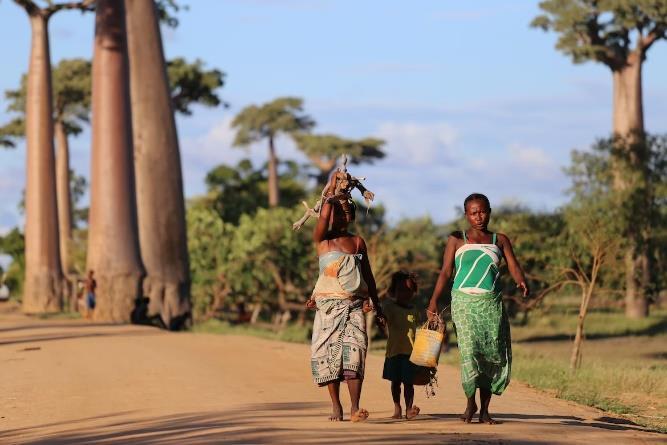
81
BA Philosophy, Politics, and Economics, Final Year Undergraduate, In person working
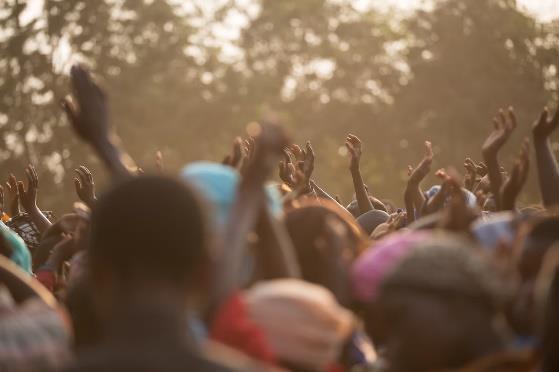
Work Projects
My work included reviewingthe income generating projects such as fishponds, beekeeping, medical centre, tree nursery, spirulina farm, and guesthouse; assessing their viability as income generatingmechanisms, and what potentialthere is for improvement;consideringif it was necessary to shut some projects down. I advised on how to create more effective management and ways to improve the business plans such that there is a successful market for each of the projects. I also surveyed the staff members in order to understandways in which the agricultural department could be improved, such as by changingthe salary structure to reward success. I carried out market research by helpingto interview buyers and sellers as well as visitinglocal small business owners to understand the most profitable ways to sell products. I also completed broader market research online for many of the projects in order to better understand the local market as well as the possibility of securing bulk buyers. Finally, we also brainstormed ideas to extend the various projects. We explored value additionactivities and new ways of marketingthe projects. This also included expandingthe offeringof some of the products, such as making the guesthouse into a more successful venture by marketing it to more students and offeringdifferent experiences.
Daily Life
Our home for five weeks was the Nasio guesthouse which is the base for the charity and where all volunteers stay when they visit. The accommodation was in shared rooms with bunk beds with shared toilets and a communal area. We were served food in the common area which was made in the guesthouse. We were made to feel very welcome when we arrived and got to know the rest of the staff very well due to spendingalmost all our time at the guesthouse! Our work was mainly on laptops in the common room, which at times was tricky when the
82
guesthouse was busy, it was also sometimes hard to motivate ourselves because our social area, eatingarea, and work area were all the same. We did have quite a few trips to meet people and visit projects which the charity was running. There were six interns in total so we socialised together and also with some members of the staff who stayed late at the guesthouse. Outside of work, we tried to keep ourselves busy, however, beingso rural there wasn't a lot to do in the local area. Some communication issues also created problems which prevented some trips from going ahead on the desired date. Freedom was quite limited due to being told that it wasn't safe for us to go out on our own. Nasio did help us organise some trips which were fun and very enjoyable.
Lasting Impressions
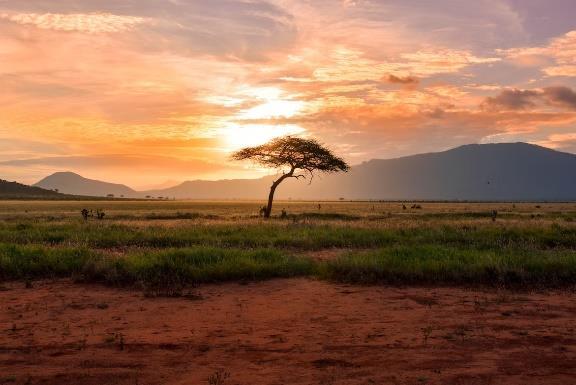
The experience was very challengingat times but on the whole enjoyable and interesting. The main thing I've learnt is how difficult change is to achieve, particularly in the development sector. This was at times frustratingand has made me not want to go into the development sector straight away as I feel I could only complete useful work in this field once I have acquired specific skills. I did however really enjoy the experience, it felt very special to have the opportunity to live and work in a new country in an environment which is so different to what I'm used to for so many weeks. I made really great friends from spendingso much time with the other interns and learnt a lot about myself as well as what I want from my career.
Practical Advice
Bring more than you need it is very hard to buy anythinglike mosquito repellent, sun cream, or other specific things so make sure you have enough of anythinglike that! It is also a very challengingexperience at times and things will go wrong whether this is emotionally related or medically livingin a rural area of a developingcountry means you need to stay resilient and be prepared for problems.
83
MEXICO
ANAHUAC MERIDA UNIVERSITY
Andrea Barbato, St. Antony's College, MSc Latin American Studies, in person working
Work Projects
In this sustainable development internshipinitiatedby the University Anahuacin Merida, I worked with a team of university students and experts to tackle a specific set of socio economicproblems in the Maya community of Xcunya (Yucatan). The goal of the project was to design a project that could improve the quality of life in Xcuny by addressingissues that would be identified together with the community, in a bottom up way. Therefore, and based on the design thinkingmethodology, the programme began with fieldwork in the community (problem diagnosis). Various visits were dedicated to the detection of the problem, and through semi structured interviews the group (drawingfrom the community's answers) could identify alcoholism amongteenagers aged 10 22 as the main issue. From this point on, the internshipmoved to the university classroom (although still maintainingregular check ins with Xcuny) and the role of the students became to develop a project in different steps. More in particular, a pretendotype and a prototype were built based on the idea that the best solution to the problem would be the introduction of new cultural and sports activities in the community while upgradingthe existingones. The final prototype, Joventud Kaab (kaab means bee in Maya, and it was chosen both because bees work in groups and because Melipona bees honey is a symbol of the community), revolved exactly around this idea. Divided into three phases, the objective of the programme was to involve as many strategicactors as possible in order to bring different activities to the community. Presented to multiple university members
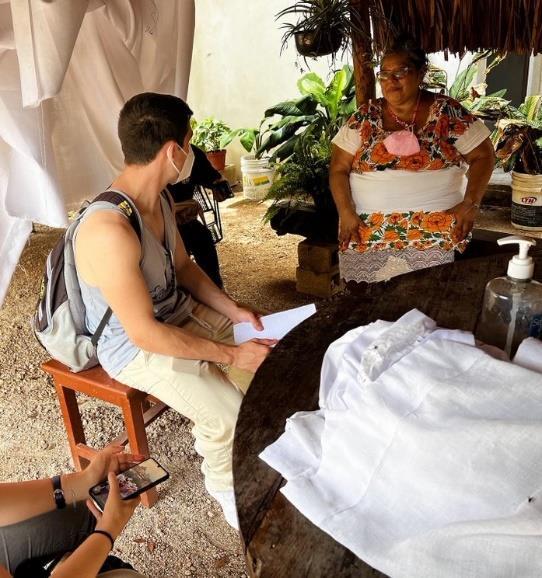
84
and local authorities on the final day, the project will be carried out in the future by other students of the Anahuac.
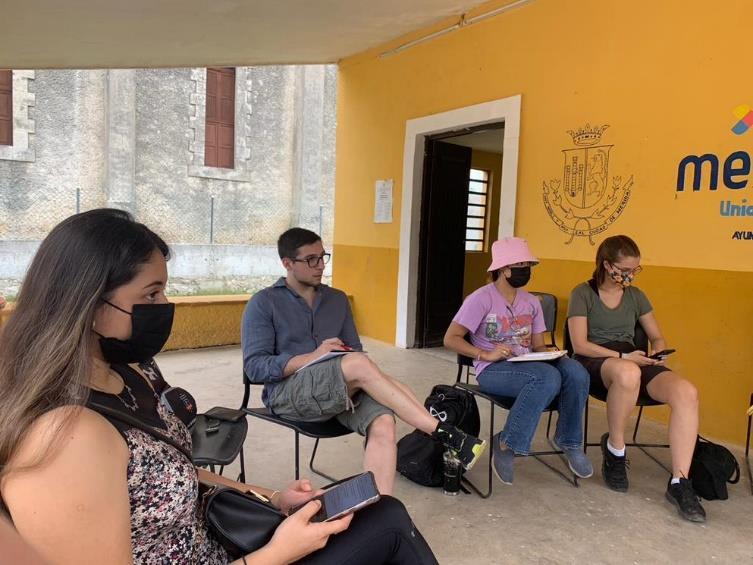
Daily Life
My daily life in Merida has been great. In the morning, I would go to the amazingAnhuac Mayab campus, where I would work on the project for approximately 5 hours. Yet, this was not always the case. In fact, especially duringthe first 2 weeks, a good part of my working time was spent in the comisara of Xcuny, doingfieldwork and meetingwith community members. This type of activity was very flexible, and once we even visited the community on a Saturday night. Subsequently, once the group was done working, we would all go out together. As a matter of fact, the other intern and I created a very deep bond with the girls from the host university, and we would spend most of our free time together. The same applied for some of the university experts that worked on the project. More specifically, I connected particularly well with one of them, and we would exchange books and visit Maya ruins together (knowing my passion for pre Hispaniccivilizations). This aspect was perhaps the most important as in Mrida publictransport is very complicated to use and most of the time is inexistent. Therefore, havingfriends that could pick me up and take me to different places was great (I will never be grateful enough). It was also fundamental in terms of settlingin. Indeed, thanks to my previous knowledge of the country (I graduated in Latin American Studies) and to the extremely welcoming character of the Anhuacstudents (as well as the people I would meet in the street), I had no settlingin problems at all. The Mexican culture is one of openness, and this was reflected throughout my stay in Mrida.
85
Lasting Impressions
This internship changed my life forever. It is really difficult to put it into words, but to sum up I will say that applyingwas the best decision I could ever make.
As a Latin American Studies graduate and a [future] Mexicanist, havingthe chance to study in one of the most beautiful cities of the country was a true blessing. Moreover, ever since I visited Mexico for the first time in 2018, I have become a huge pre Colombiancultures enthusiast. Mrida, by beingclose to Chichn Itz, Uxmal and Mayapn, and by havinga significant Maya speakingpopulation(around which the project revolved), was the perfect location for an internship. Yet, although the premises were already reassuring, the reality greatly surpassed the expectations. In fact, conductingfieldwork in a Maya community really made me understand how life is in a slowly gentrifyingindigenous community, and how different it is from all the articles and books I had read about it duringmy masters. Living in a different social context and reality can be completely different from the way in which it is portrayed on paper. And so it was in Xcuny. I have learnt that the community was not as united as I was expecting, and I have also learnt that the legacy of the caste system is so strong that people prefer not to say that they speak Maya in order to avoid facing bullyingand discrimination. Seeinghow inequality works first hand in the region I study was really impactful. Finally, this research based project made me realize that ethnographicresearch is a field that I want to explore more, especially with regards to my career. As a matter of fact, I am now lookingfor research based jobs in Yucatn.
Practical Advice
I believe that all interns should make sure to be fluent in Spanish before going. A great part of the Mexican culture cannot be accessed without true fluency in the language. Therefore, the experience could only be lived partially. Another piece of advice is to try and speak to as many
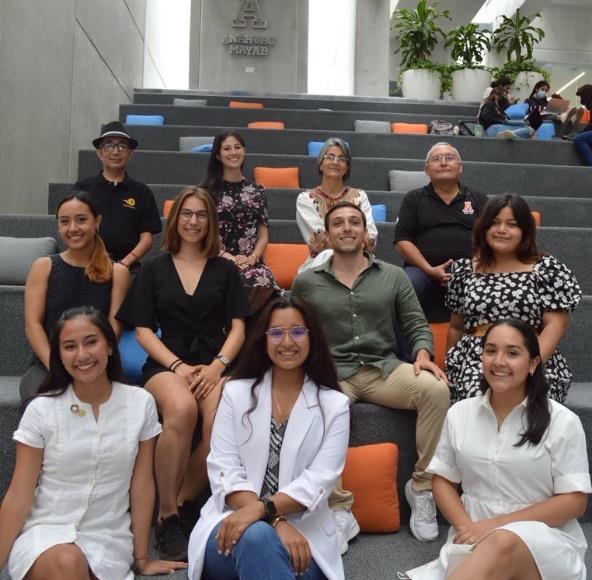
86
people as possible. Only by speakingto locals will you learn about the secrets of the city, as well as places to visit and the things to eat. Remember that a great percentage of the Mexican economy is informal, therefore many services will not be greatly advertised and can only be discovered by talkingto people.
BA Human Sciences, Second Year Undergraduate, in person working
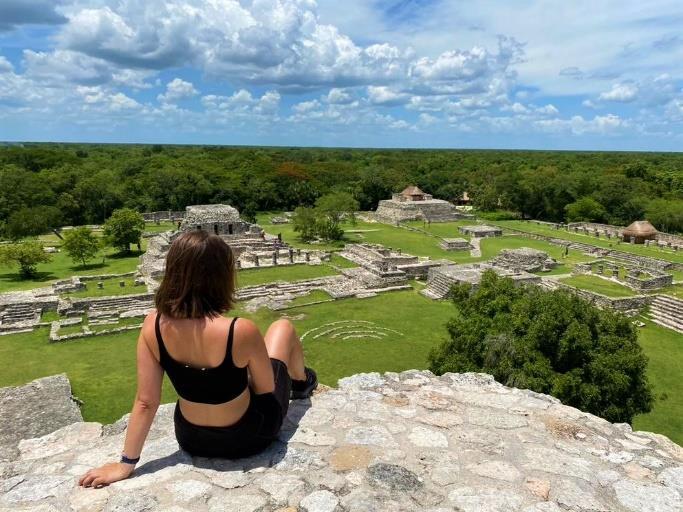
Work Projects
I worked on a sustainable development project in Yucatan, Mexico, which is beingorganised by the Universidad AnahuacMayab. The goal was to create a project to support and improve a small local community. During the project we carried out interviews and got to know the inhabitants of the community in order to identify the issues the community faces and problems that could be addressed. Part of my tasks were research, planningand designinginterviews and questions, interactingand interviewing people in the community, reframingour questions and approach and again returningto the field to gather further information. We then used all the data we had gathered to identify the most important issues which need to be addressed and then after confirmingthese again with people from the community, designed a project which can be implemented in the community. The host organization, which was the Universidad AnahuacMayab, was extremely helpful and supportive regardingall aspects of the project from academics to transportationand cultural and social integration.
Daily Life
Generally, there were broadly two different types of workdays. Some days we would be working at the campus of the UniversidadAnahuacMayab. I would either take the University Bus to the campus (provided for free for me) or be given a ride by one of the organisers. We would then work in the internshipgroup at the university and usually joinedby some of the
87
academic advisors. One of the other students usually gave us a ride back home after we completed the day's work. On field days, we visited the community we were working with to carry out interviews and get to know the community and its inhabitants.
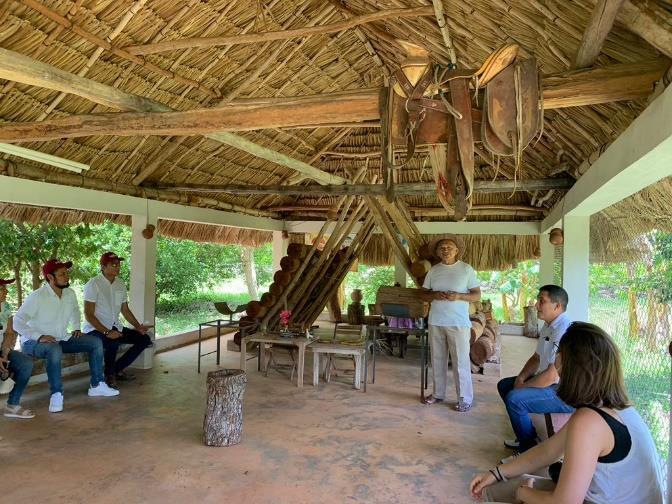
On some days we also visited other communities and importantsites in the area to learn more about the local lifestyles and culture and provide us with a better understandingnecessary for the project. Outside of work I had plenty of time to explore the city of Mérida as well as go on day trips on the weekend and get to know Mexican culture first hand. I mainly socialized with the students I met via the internshipas well as gettingto know their friends and families.
Lasting Impressions
I very much enjoyed my internship and the overall experience and would very much suggest everyone who has the chance to go. I gained a lot of insight into academicand field work, how projects are planned and carried out and the difficulties that come with it. As it was a pilot project and the first time the Universidad AnahuacMayab has carried out such a project it was not only interestingto see how it developed itself, but also how we could develop the entire structure for such and similar problems further, for the future. Apart from many professional insights I also personally learned a lot about Mexican culture, life, and lifestyle, got to improve my Spanish and met many impressive and interestingindividuals.
88
MOZAMBIQUE
POLO WOMENS POWERED STORIES (ALUMNI
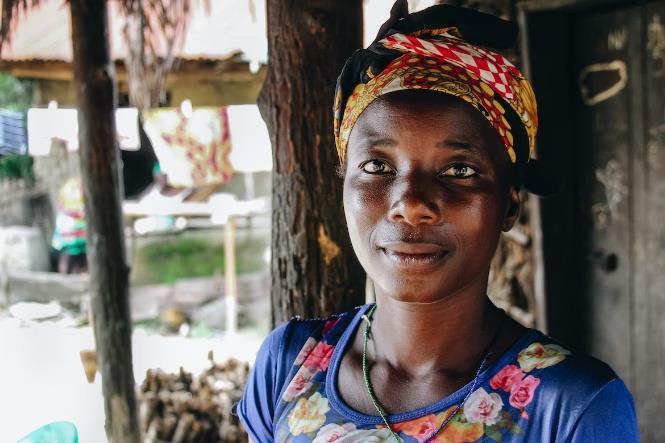
HOST, WOLFSON COLLEGE)
Ariana Rubio, Lady Margaret Hall, BA English Language & Literature, Lady Margaret Hall, Second Year Undergraduate, remote working Work
Projects
I completed a five week internship at POLO Stories, which is a non profit organisationthat produces and disseminates inspiringstories (articles and documentaries) about women. Throughout the course of the internship, I researched and wrote eight c.1,500 word articles and produced almost fifty social media posts with graphics and captions for Instagram and Linkedin. Typically, research for the articles took a day and a half, and writingtook a day and a half.
I used Canva Pro to produce the graphics. This was very interestingas I'd never done any sort of graphic design work before, and I really enjoyed it! Another highlight was contactingOluyemi Adetiba Orija, a lawyer who established a non profit(the Headfort Foundation) which works to free innocent people awaitingtrial in the Nigerian prison system, and conductingan interview with her. I then wrote an article about this, and the CEO might do a documentary about Adetiba Orija's work. There were two other interns and we checked each other's work. The internship was remote.
Daily Life
Typically, I started work at 9am, and did research for articles for a few hours before Zooming with the other interns at 11am to discuss our progress. I then had a break for lunch. After that, I
89
either did more research or wrote a good chunk of an article. I ended the day with makingsome graphics and captions. I made sure to incorporate breaks to exercise and socialise. After work, I saw friends and family.
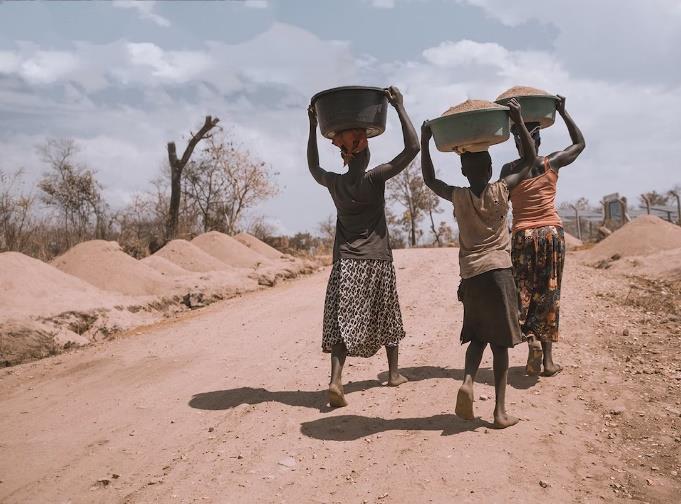
Lasting Impressions
I really enjoyed the experience. It was very nice working with the other interns, and the CEO was amazing. When writing articles I used a different style of writingto my usual academicessays, and that was an interestingintellectual exercise. I also really liked the graphicdesign element of the internship. I will say that it probably confirmed that journalism is not the career for me, as I'd like to do somethingwith a bit more structure and reliability.
Practical Advice
I would advise them to not be afraid of trying out new things in their writing, and that graphic design isn't as hard as it seems and can be really fun!
90
PERU
ALLIANCE FOR A SUSTAINABLE AMAZON
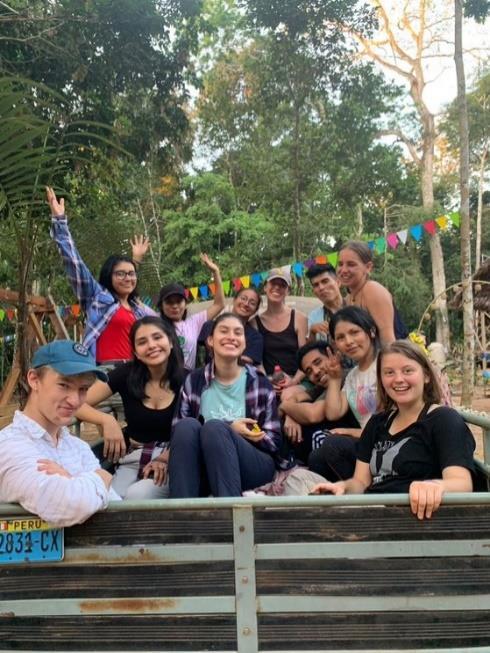
Sean
Baldock, Hertford College, MBiol Biological Sciences, First Year Undergraduate, in
person working
Work Projects
I undertook an internship in the Madre De Dios region of the Peruvian Amazon Rainforest with the NGO the Alliance for a SustainableAmazon, to work as a member of the Lepidoptera Team in the field station. This long term research project has 3 main goals: Creatinga comprehensive list of butterfly and moth species at Finca Las Piedras; Generate a region wide database of species' distribution records; Identify butterfly host plants. To accomplish these goals, the Lepidoptera team would work daily in the forest, collectinghost plant tissue to feed the caterpillars we were readingin the lab;with sometimes over 60 caterpillars at once making locatingtheir specific host plant a certain challenge.
The caterpillars are subsequently photographed daily at a dorsal and lateral angle to identify any changes day to day, and we would document their condition, includinghow much they had defecated and their exact position on the leaf. These undeniably laborious, and sometimes tediously repetitive tasks, generate a wide range of data that becomes useful over a longer period of time where trends can be identified.
As the Organisation’sPresident, Geoff Gallice would say, this basic research is certainly boring, but nobody else is doingit! This part of the work taught me many soft and hard skills, from how to use a DCLR Camera for macro photography, to efficient data entry usinga variety of data
91
collection software. For the first 5 days of every month, the Lepidoptera team, in a certain sense, ‘harvest’ the butterfly fauna from the forest using20 canopy and ground fruit traps.
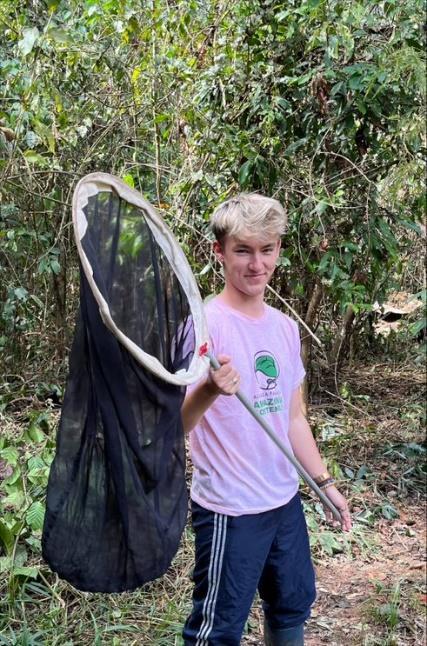
This work involved daily killingof up to a hundred butterfliesa day, which lead me to question the ethics of the study, however I learnt that in science, to have any proof of findings we need the physical evidence that that organism occurred in that time and place, making it necessary to take the individuals from the forest (for science!). These specimens would then be appropriately documented, subsequently stored in the growing museum collection the organisation is building.
The host organisationworked with Spanish as the primary language, a language of which I didn’t speak a word before travellingto Peru. However, this was certainly not a barrier to work due to the kindness of the people I met here, and their never endingpatience with my attempts to communicate as I slowly learnt more and more.
The experience was mutually beneficial, as I was able to help teach English to some of the Peruvian workers whilst simultaneously learningSpanish to a working proficiency in only 3 months. The organisation provided the environment for my personal development, allowingme through the course of the internship to identify what I do and don’t like about workingin ecology; an experience which I will always be grateful for.
Daily Life
When I arrived at the airport, I was collected by my taxi, which, was a jolly man in his family car, complete with his whole family, including3 children jumpingaround the vehicle without seatbelts, a practice I have learnt to be commonplace within the rainforest! Not only did I try to enter the taxi on the drivers seat, solidifyingtheir impression of me as a foreigner who didn't speak a word of English, but my failed attempts to communicate in Spanish set for an awkward
92
car ride full of laughs as we headed into the forest camp. All it took was patience, as within a few days the leaders of the organisationarrived back at camp after the weekend away and gave me a thorough introduction to the work they do at the organisationand how my internship would be fittinginto this work.
Essentially, I was to become a full member of staff for 3 months, workingas a member of the Lepidoptera Research team, which included staff perks like limited laptop Wi Fi connection, and the responsibilities of maintainingorder in camp and cooking dinner for everyone on Saturdays. By this point, I had become accustomed to the pace of life, waking up at 6:30 for breakfast, working by 8am, and working until all the work for the day was completed, which could vary from 1pm to 9pm if we were doinglight trappingfor moths that day! I found this daily work arduous and repetitive, with limited academic development provided, however I gained immense experience in livingand working in a rainforest field camp and how a long term study like this is carried out. It was also amazing to be working with almost exclusively Spanish speakingcoworkers, which allowed me to teach English and to learn Spanish rapidly.
After 3 months, I am able to understand90% of everythingsaid and speak back enough to get my point across, even If it is with awful grammar! Outside of work, we would often play volleyball in a forest clearing, or, duringmy time off on the weekends or extended time off from work I took, I was able to travel with other interns around Peru, which was a wonderful experience I hadn't plannedon before coming to the country. I went to Lago Titicaca, stayingon the floatingreed islands, before travellingto Cusco, to explore the city and hike the Rainbow Mountain, Red Valley and a glacial lake.
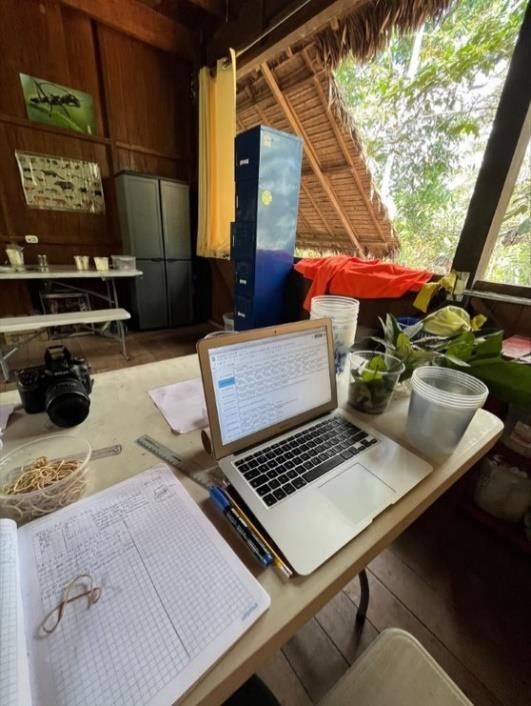
93
When back in camp, we would also often play table football, which I became incredibly competitive at due to our intense tournaments! It was amazingto socialise with people from all over the world, from Harvard goingIcelandicMembers of Parliament to extremely conservative Americans who shared different political opinions to me but yet was able to live and work together more than happily for 3 months. Whilst I inevitably missed my home friends, I was provided with respite by managingto meet up with university friends who were travellingin Peru duringmy internship, givingme a nice piece of home to keep me inspired to complete my internship.
Lasting Impressions
I will certainly remember my experiences in Peru for the rest of my life, and I feel incredibly lucky that I was selected for this internship and was able to live across the world for 3 months. Academically, I don't feel like I gained heaps, and whilst I probably learnt more than I think just from livingimmersed in the forests in which I had been studyingfor a year, I feel that this programme was definitely more a programme which taught me work skills, such as time management, data entry and team working skills rather than detailed biologicalknowledge.
I was then able to meet some of the kindest and funniest people from all over the world, and learn about their work and why they were also committed to livingin an isolated jungle camp for the summer! Whilst I have stated I didn't particularly find the work academically rigorous, this isn't to say I didn't enjoy it, as after an academically arduous year at Oxford I was more than happy to just peacefully work on butterflies and moths for 3 months!
I certainly gained a different perspective on life, however cliche, I learnt not to take for granted many things I had become accustomed to in the western world, from somethingas simple as a
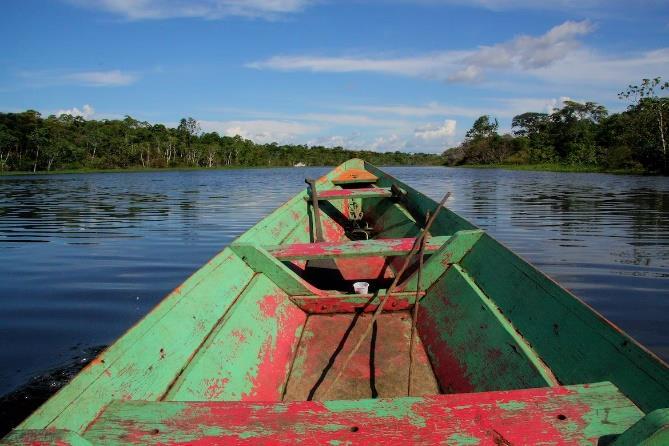
94
flushingtoilet! I have learnt that for the rest of my life, I probably do not want to work in the rainforest, and I certainly don't want to work in entomology, as I found myself much more drawn to other types of work being done in the site, leadingme to consider that I might actually like to study medicine, or a PhD in cancer science. For me, this is just as useful as a findingas if I had confirmed I wanted to be an entomologist, as now I can focus my energy on what I really enjoy and start to move away from what I thought I should enjoy as a biologist.
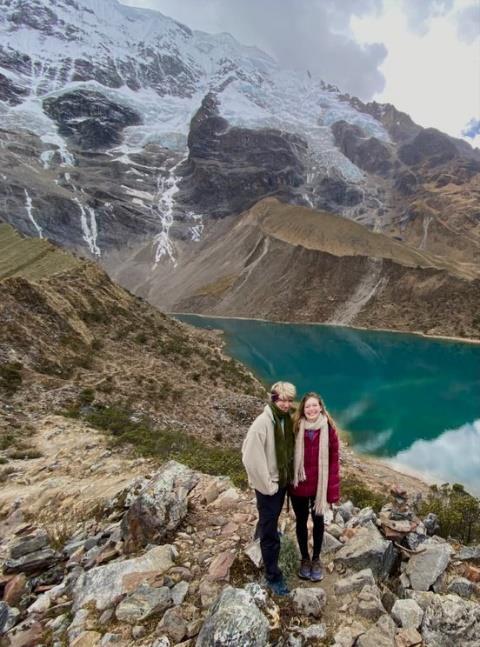
95
UNIVERSIDAD DE PIURA
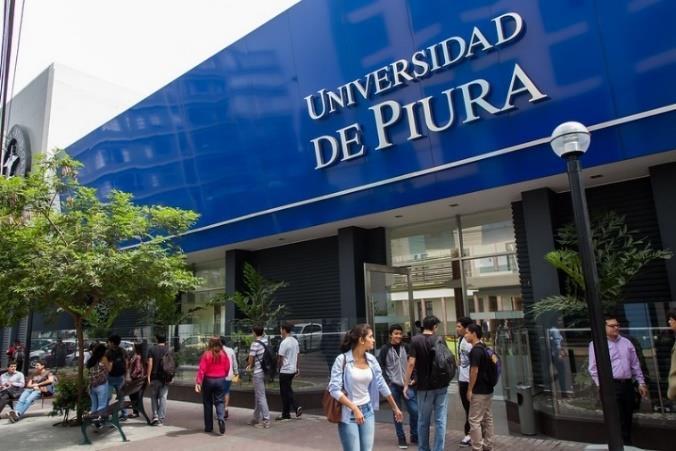
BA Philosophy, Politics, and Economics, Second Year Undergraduate, in person
working
Work Projects
I was working for one of the professors at Universidad de Piura campus Lima, as their research assistant. The project I was working on focused on deforestationin Peru. It was still in the early stages and thus vast majority of the tasks I was assigned went towards exploringthe area and informingthe research question and focus for the research proposal. This included conductinga thorough literaturereview of deforestation related literature and various other literatures relevant to the specific project. Subsequently I created presentationsummarising the informationfound as well as highlightingpotential under researchedareas and outstanding questions that could be examined within the project.
Further I was tasked with creatingdatasets that will be later used for the quantitative part of the projects. This part included me discoveringreliable data sources, understanding the methodology and limitations of the data and then subsequently web scrapingand cleaning them as well as creating summary statistics that would further inform the future path of the research. All throughout this process I felt very supported as I worked in a physical office with other research assistants that would be very helpful in helpingme if I got stuck on a task. Furthermore, my interaction with the professor I was working for was frequent and they were able to guide me through the process in a very professionalway.
Daily Life
My internshipwas in person, in the city of Lima, Peru. I was assisted by the university I worked for to find a nice accommodation for the entire two months prior to my arrival so I wasn't
96
worried about anything. My university also provided me with a buddy a student of the same age studyinga subject similar to mine to help me settle. This was very useful as my knowledge of Spanish before coming here was extremely limited and the cultural shock was significant. However, due to my buddy I managed to settle in quite quickly and got into the rhythm of things within my first week beinghere.
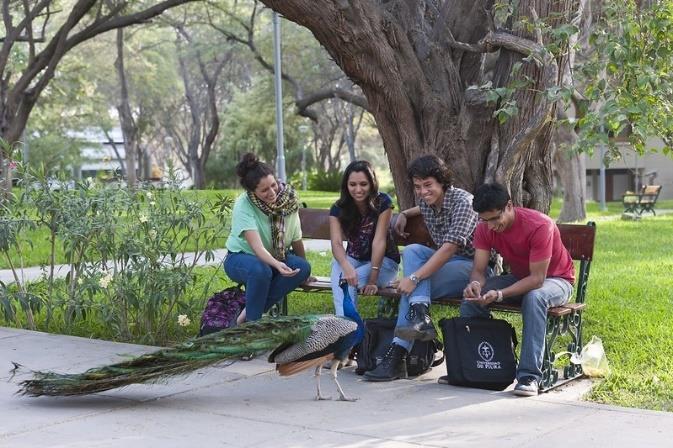
My accommodation (an en suite room in a student house) was roughly a 20 minute bus ride from the university which was very convenient. Outside of work I mainly explored Lima and duringthe holidays and after my internship, the broader Peru as well. I also socialised with other people at my accommodation (exchange students from mostly Europe) and my coworkers as they were all in their early 20s. In general, I would say that the social and cultural aspect of the internship was as enrichingas the academic one.
Lasting Impressions
I enjoyed the internship very much mostly because of 2 things. Firstly, I managed to experience economic research first hand myself somethingwhich I haven't been able to do much until this point. This is very important for me as my career aspiration would be to pursue economic research myself. This internship confirmed to me that I would indeed want to do that. A particular highlight in this area would be when I got a chance to participate in a two day conference for young economists where a number of aspiringjob market candidates presented their new papers for the first time and I had a great opportunity to talk to a number of them.
Overall, academically it was a very exciting summer. And secondly, another lastingpositive experience comes from the fact that I managed to immerse myself into a new culture for 2 months at a level deeper than I could achieve by simply just visitingPeru as a tourist.
97
Experiencinga daily life in a country quite different to those I've lived in before provided me with many new insights and perspectives and definitely broadened my horizons.
MSc in Evidence-Based Social Intervention and Policy Evaluation, a mixture of inperson and remote working
Work Projects
I worked on a project exploringthe role of family networks in determiningcredit access in rural Peru. My tasks involved literature review and secondary data analysis. I received complete support from the host organization in terms of onboardingand training. Everyone at the University was very friendly and welcoming.
Daily Life
On the weekdays, I worked at the University and socialised with the research team there. On the weekend, I had the opportunity to travel to Cusco and see Machu Pichu, one of the wonders of the world which was one of the highlights of my internship.
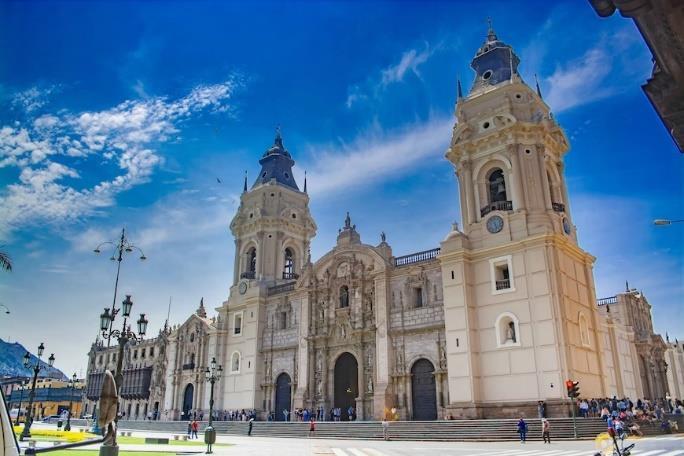
Lasting Impressions
I am certain that the lessons learnt from this internship, coupledwith the perspectives gained on credit access and resource ownership will pivotally equipme on my journey forward. Further, this experience of workingin Peru has provided me with keen insights on the development context of Latin America, and I hope to return soon to work in partnership with academic and policy institutionsin Peru on policy focused assignments.
98
SAUDI ARABIA
KING ABDULLAH UNIVERSITY OF SCIENCE AND
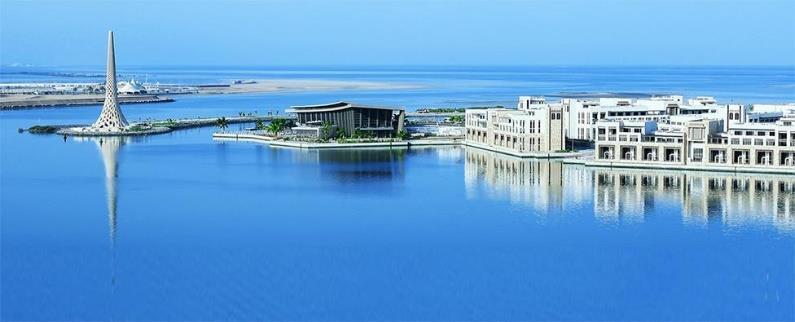
(KAUST)
TECHNOLOGY
Alexander Rodway, Jesus College, MA Biology, Final Year Undergraduate, in
person working
Work Projects
I completed an internshiplookingat the use of probiotics to mitigate coral bleaching. My main tasks have been divingto conduct field work (application of media) and preparation of media in the lab. Supervisors in my lab in KAUST supervised me and instructed me on how to conduct this research.
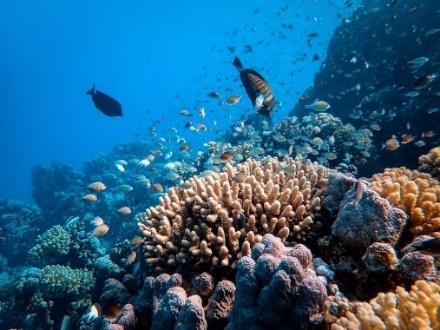
Daily Life
I lived in a house, funded by KAUST, and so met people livingwith me and in my lab very quickly. A typical day would consist of going to the lab for most of the day, havinglunch with colleagues and friends. After work, I would often play sports or go to the beach. At weekends, we often go on road trips such as snorkelingor diving.
Lasting Impressions
I loved this experience and plan to stay in academia quite possibly in marine research. I've never dived before, but I absolutely love it and plan to continue throughoutmy life regardless of what I do as a career.
99
SPAIN
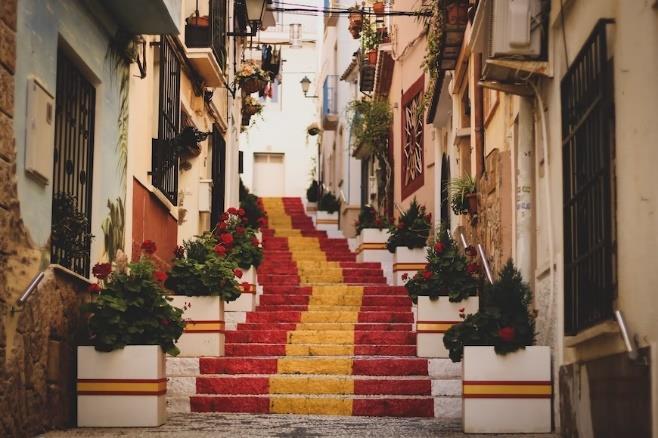
GOTOCO (ALUMNI HOST, PEMBROKE COLLEGE)
BA Mathematics, Final Year Undergraduate, in person working Work Projects
I worked as an English language teacher in a remote location in Spain for four weeks. I taught English teachers who worked in Spanish schools and were not fluent in the language. The Spanish department of education recently announced that a certain proportion of classroom lessons must be delivered in English, and so many of the teachers needed to practice speakingand deliveringlessons in English. They typically all had brilliant grammar but were not used to speakingthe language, so for an entire week they could only speak in English to improve their abilities. All of the teachers left with a far higher level of fluency than they arrived with. Our main tasks were to lead group activities that were both useful for encouragingthe teachers to speak more English, and could also then be used in classrooms with the children that they taught. We often completed activities in small groups, where we would ‘create a country’, or write and rehearse a small musical, and then present to all the other groups later on. The Spanish teachers were encouraged to take on main roles, come up with their own ideas and speak lots duringpresentations, whilst the English interns were present to help them brainstorm and monitor the activities.
Daily Life
Before the first group of Spanish teachers arrived, we had 24 hours to get to know each other, settle in and do some team bondingexercises. We all lived in apartments together, with 2 English volunteers and between 1 and 4 Spanish teachers. The apartment complex was
100
attached to the other facilities we used, includingthe diningroom and recreational areas, and also had its own pool where we could spend our free time. During mealtimes, everyone would eat together, with some English volunteers and some Spanish teachers on each table, where informal talkingwas encouraged. We had an hour for each mealtime.
We then spend the first 4 hours of the day on the more intensive activities of the day, e.g., spending2.5 hours planningsomethingsuch as ‘create a country’, or inventingsomethingfor dragons den, preparingposters and writingour presentations, then spending1.5 hours presentingto everyone. After lunch, we had 2 hours of free time duringthe hottest part of the day. We were free to do anythingduringthis time. In the late afternoon, we would then take part in less intensive activities and focus on games that encouraged the Spanish teachers to speak and write more in English. We then had an hour of break, our eveningmeal, and played a game such as ‘mafia’ for one hour after eating. In the eveningwe were free to do anythingand often went to the bar to spend time with the Spanish teachers.
Lasting Impressions
I think that the internship was a great programme and the Spanish teachers were all really enthusiastic. I definitely developeda lot of skills in motivatingpeople and makingthings exciting, as well as team-leading, workingwith larger groups and often havingto come up with many activities on the spot. I enjoyed the experience as a whole.
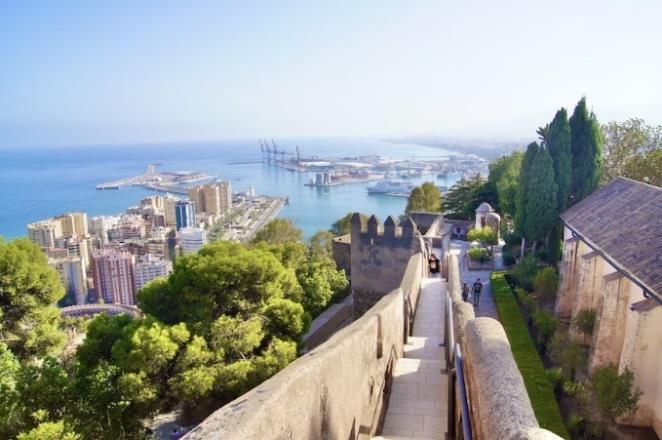
101
UNIVERSIDAD OF MURCIA
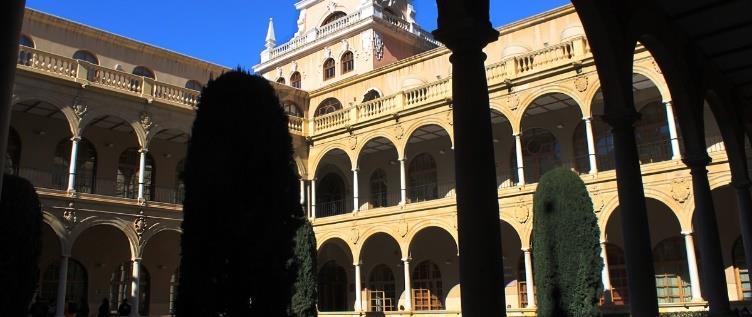 Mao, Christ Church, Medicine, First Year Undergraduate, in person working
Mao, Christ Church, Medicine, First Year Undergraduate, in person working
Work Projects
At the hospital, I was assigned a doctor or researcher to shadow for the day. It allowed me to eventually see the whole hospital which was large; there were 10 floors with two underground layers that spanned greater than the building. I was given insight into many aspects of cardiology. There was a day spent on treatment of patients with heart failure;I could relate the theory we learnt in the year on the treatment plans of patients. I discussed with the doctor the variables in treatment for each patient and how they were specialised. Havingnot had any clinical contact in the first year, I also saw presentations of symptoms in patients. There was a patient with severe heart failure where I could observe all the features;liver enlargement, peripheraloedema, visible jugular vein, the vena cava not collapsingon the echocardiogram showingcongestion and vertical B lines on echocardiogram showinginterstitiallungfluid. The heart failure specialist showed me how to perform each diagnostictest.
There was a day with a cardiomyopathy specialist which branched into genetics and applying ECGs. With this doctor, I met a patient with Costello Syndrome, a rare condition that is estimated to affect ~300 people worldwide and got to listen to their heart murmurs usinga stethoscope which was a unique experience. I also got to spend time in a congenital heart disease clinicwhich allowed me to get an in depth introductionto echocardiograms. I could transfer the new skills I learnt and apply them in a research setting. I observed medical research on mice on the topic of myocardial infarctions. Echocardiograms were done on mice and the procedure and measurements were extremely similar.
102
Emma
In the research building, I was also shown the genomics lab which was linked to the hospital to help do testingfor the patients with cardiomyopathies. I also got to get a close up view on catheterisationprocedures;there were both femoral and radial catheterisations. I observed in the CATH lab, where they are replaced an aortic valve going through the femoral artery. We were wearinglead aprons to protect from X rays used to visualise the arteries. Accessing the heart through an artery meant lower risk of infection and no broken bones.
I learnt how to ensure sterility for surgery when I was allowed to stand next to the surgery table. The use of intervascular echocardiography fascinatedme as it provided so much information on the 3D structure on coronary vessels that would give the doctor a clear idea of how to proceed with treatment. There were so many different types of catheters for different uses; ones that were balloonsthat could be inflated to dilate the artery, ones that were stents to maintain the artery, ones with micro knives on to break the calcium plaque. In the arrythmia ward, I was shown the procedure of puttingin a pacemaker and ICDs and the testingrequired to qualify patients for a device. Lots of ideas linked together after seeing so many wards, with arrythmia drug testinglinkingto genetics. For example, a son was found to have Brugada syndrome which meant that his parents must be induced to see if they also have this syndrome which then needed to be further confirmed usinggenetic testing to figure out what the mutation is.
At the lab, I was assigned to proofread a protocol report that was in its final draft. I would research science to help myself gain a deeper understandingof the hypothesis and correct the grammar. It helped that I had read protocol reports from my day spent in the hospital’sclinical research office where I learnt about ongoing clinical trials that were in the recruitment phase. A highlight of the experience was watching a heart transplant. It was a privilege to be able to watch a heart being removed and have a donor one put in its place. Samples of the original ischaemicheart were taken for genetic testingas a control in a cardiomyopathy study. I felt the
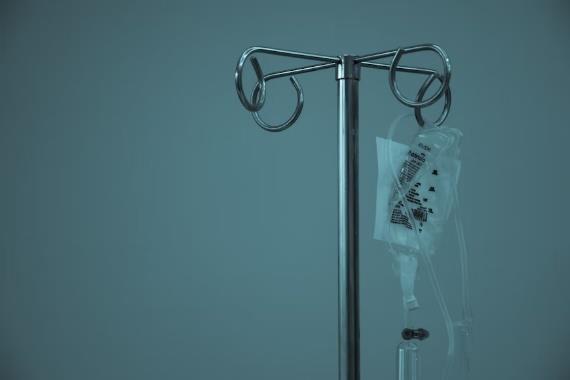
103
stents inside the removed heart that were previously placed to prevent further ischaemia and got to see the ischaemicpart of the heart that was previously visualised on an echocardiogram.
Daily Life
In the morning, I would get up usually around 7am and get ready for the day before headingdown for breakfast. I learned to have a big breakfast as Spanish people have a late lunch. I would catch the bus to the hospitalto arrive around 8am. There was a meeting every morningto discuss interestingcases of the day before and to get more perspectives on each patient. I would then meet with the internship organiserwho would assign me a person to shadow for the day; I would follow them on their day whether it was seeing patients or performingexperiments. It was a bit hard to understand what was going on sometimes due to the language barrier, but I soon settled in as everyone at the hospital was very welcoming and accommodating. I got into a schedule of things to do which made each part of the day make more sense. I would end my day at the hospital at 3pm when I would get the bus back to my hotel. I would then have free time to grab somethingto eat.
I usually went to Mercadona (Spanish supermarket) and visited the bakery section and tried Spanish pastries e.g. empanadas and ensaimadas. I explored different regions of the city where I picked up the hobby of sketching buildings;the cathedral and old town are a must see in Murcia. There was a gym in the hotel where I could exercise out of the heat. In the evenings, I would have dinner in the hotel’s restaurant across the street which served Spanish dishes that were interesting, particularly ajo blanco – garlic soup with watermelon and salted fish. At the hospital, I met some ERASMUS medical students who I could socialise with as they could also speak English. I had discovered very soon that most people in Murcia did not speak English as it is not a tourist location. All the people at the hospitalwere very friendly. In their breaks, snacks would be brought in to share and one thingI discovered from this was horchata, a cold frozen drink that was very refreshing.
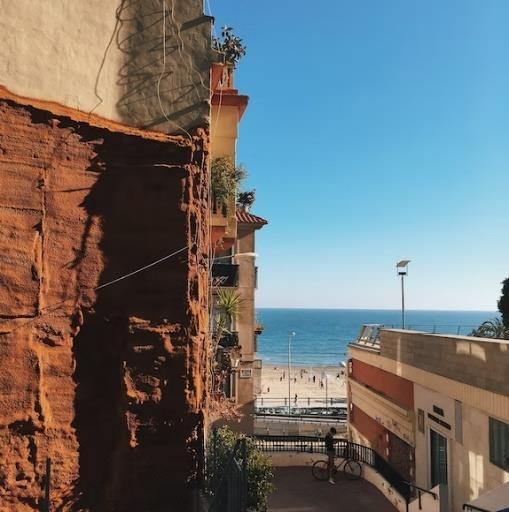
104
At the weekends, I would travel to the nearby beaches by train or bus. I visited Alicante, Torrevieja and Cartagena which had the Mediterranean Sea where I swam and did other tourist y things. I also visited the outskirts of Murcia which included Carrascoy and the Valley, which is a mountainous regionalpark where I did some hikingand got the tram to the university campus and IKEA etc. to explore.
Lasting Impressions
This was an amazingexperience. I got such an in depth view into life in a hospitalas well as a laboratory which was facilitated by the doctors and researchers showingme their work. I gained so much insight that would not be possible without experiencingeverythingfirst hand. This internship has also taught me life skills of independence and many others. Not beingable to speak Spanish, I managed to figure out the publictransport system, navigate daily life and travel on my own in a foreign country. I am much more confident in my organisationaland decision makingskills. I got to experience Spanish culture, people and sun which have formed fun memories of this summer. I found applicationin the topics we had learned in first year in treatment and new research and this has consolidated these ideas for me. This experience has shown the wide range of routes available to take and made me want to explore more areas.
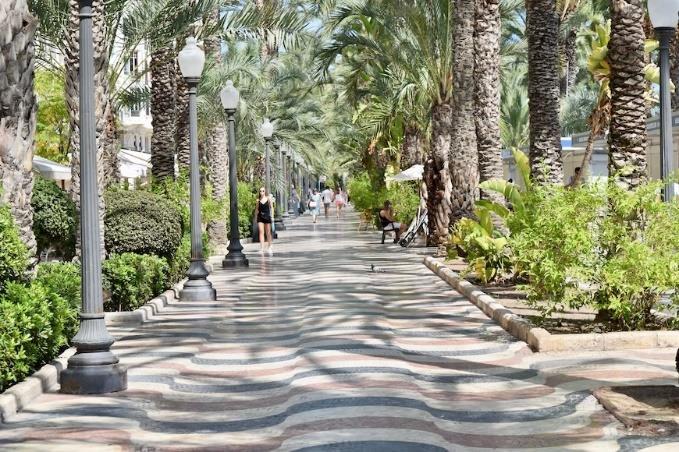
105
SWITZERLAND
JOHN ADAMS INSTITUTE FOR ACCELERATOR SCIENCE – CERN
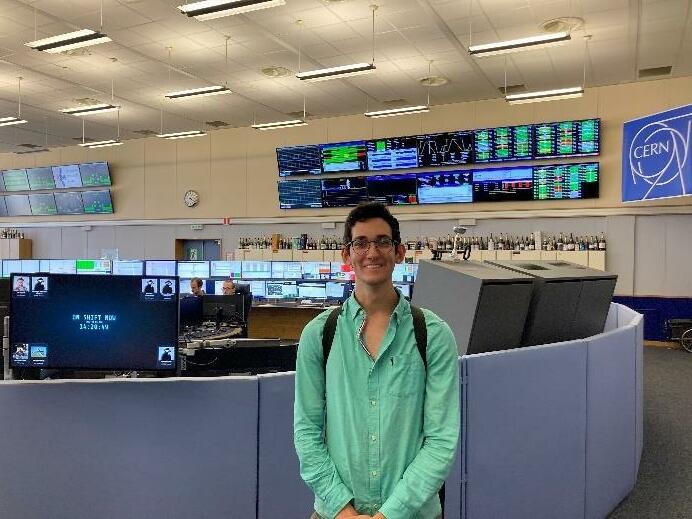
(ALUMNI HOST, ORIEL COLLEGE)
Ryan Alexander Ghent, Christ Church, MEng, Integrated Masters in Engineering Science, Final Year Undergraduate, in-person working
Work Projects
The CLIC (Compact LInear Collider) project is one of the proposed accelerators for the future, designed to supercede the LHC. The final stage would be 50 km long, and it is built in 2 m segments called modules. My project was a structural analysis on this module, to find out how it deforms under its own weight. I made various simulations to see how the beam pipe is deformed by the weight of all of the necessary auxiliary systems. The beam pipe needs to be aligned to within 10 μm, less than the width of a human hair. Then I made modifications to the design to reduce this deformation. I was working on a daily basis with many members of the CLIC project, includingMatthew Capstick, a Senior Fellow at CERN. I got to see the test facilities for the old prototypes, and how the design has improved over the last ten years. I gave two presentations to the group, and made a report on my findings.
Daily Life
For the first half of the internship, there were lectures for the summer students. These encompassed everythingthat happens at CERN, from the theoretical physics of the models the accelerators are trying to validate, to the computer science challenges of dealingwith the enormous amount of data these experiments produce. They covered a huge range of topics: statistics, engineering, computer science, and physics. The lectures ran from 9 until 1. Almost
106
everyone has lunch at the cafeteria, it has a good range of food, at a good price (for Switzerland), and it's great to meet all the other summer students. There were about three hundred interns, and it was a very internationalbunch. Only about ten of us were from the UK, the rest were from all over the world! In the afternoons I mostly worked on my project, getting my simulations to run, and interpretingthe results. Some days they ran workshops, bringingto life what we had lectures on in the mornings. Gettingto work was very easy, a short five minute in the CERN campus.
On the weekends we made various trips in and around Switzerland. A couple of weekends, I went hikingin the Swiss Alps. Interlaken is a must see, but I really liked Kanderstegas well. The other direction, into France, Chamonix is a short train ride away, and another beautiful place to hike. On other weekends we explored the beautiful cities on Lake Geneva and made the most of the music festivals. I loved Montreux, with stunningvistas of mountains across the lake, and the jazz festival there was incredible.
Lasting Impressions
The internshipwas brilliant. It was so refreshingto meet people from so many different cultures, the lectures were interesting. An amazingplace to be, Geneva in the summer is a fantasticcity with loads going on. There were free concerts in the parks, and lots of celebrations.
Jake Rule, New College, Third Year Undergraduate (of a four year course), MPhys Physics,
in person working Work Projects
I was working as a part of the Oxford Accelerator Physics group at CERN in Geneva. I was tasked with developinga physical theory for the transmissionand reflection characteristics of a pickup for a novel beam position monitor that is being developed for a new type of particle
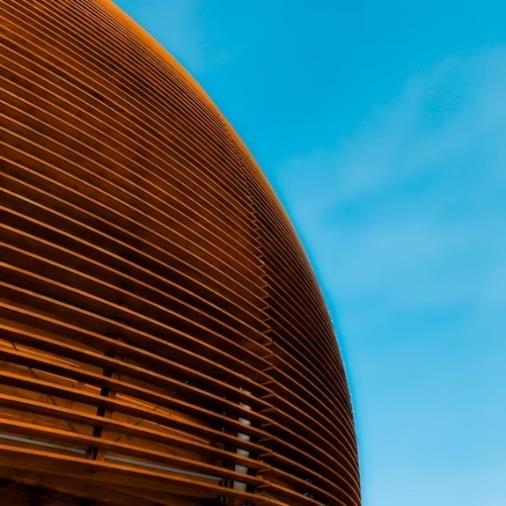
107
accelerator at CERN called AWAKE. To begin with, my main focus was on learningthe background theory that was new to me, originally from textbooks recommended by my supervisor and then from research papers in the field. I was then introduced to an electromagneticsimulationpackage called CST Suite, which I used extensively throughoutthe internship to investigate the characteristics of the pickup. I then attempted to describe these simulated results usinga physical theory that I developed with the help of my supervisor and with reference to the textbooks and papers. In addition, I was also helpingto process measured results from a physical pickup in the lab at CERN.
Once I had made some progress, I began to write up my results into an academic paper. I then continued to finish the paper whilst at home, in correspondence with my supervisor. In addition to the paper, I am due to present my work to the group at Oxford and at CERN in early Michaelmas term. Whilst at CERN, I was also invited to take part in the summer lecture series for all CERN interns, where I was taught a wide variety of topics from particle physics to accelerator science. Generally, I was supported very well by my supervisor and the Oxford group, despite some initial difficulties gettingsetup on the CERN system. They were always happy to answer any questions I had about my work and even offered me tours of the CERN campus, which was fantastic.
Daily Life
For the duration of my stay, I was staying onsite at CERN in the CERN hostel, so I was situated very close to the office where I was working. For the first part of the internship, there was a morninglecture course which was online as a COVID precaution. I tended to watch these lectures on my laptop, either in my room at the hostel or outside next to the restaurant at CERN. In the afternoons, I would go into the office and work on my project, or occasionally my supervisor would show me elements of their work around the CERN campus.
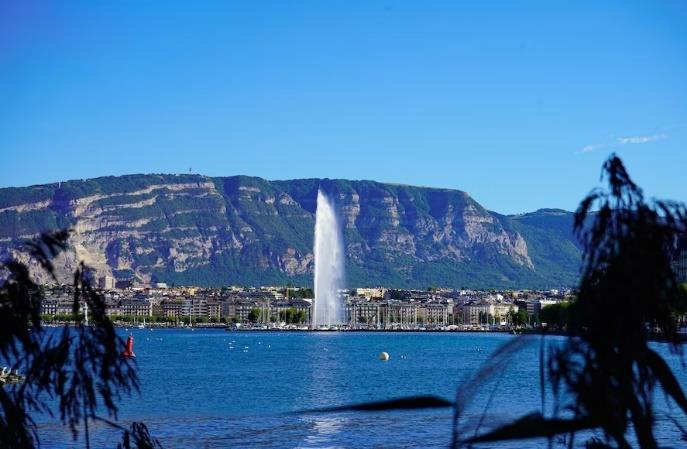
108
Since CERN has an extensive internshipprogram, I was lucky enough to meet a wide variety of people from all over Europe and the world also working on research projects at CERN. Mainly, I would socialise with them, both after work and on the weekends, with the CERN hostel full of interns. In addition, there were two other interns from Oxford, making settlingin much less of a dauntingprospect. I greatly enjoyed travellingaround Switzerlandand the neighbouring countries on my weekends alongwith the other interns both from Oxford and CERN. Everyone I spoke to was very friendly and the atmosphere was fantastic.
Lasting Impressions
In the future, I hope to pursue a PhD and potentially an academiccareer in Physics. CERN is one of the most prestigious institutes in the world for particle physics and so naturally, I am deeply grateful for the experience. My experiences at CERN have reinforced my ambitions to pursue a PhD, which I will be applyingfor this academic year. I greatly enjoyed havingmy own academicresearch project, and am lookingforward to a similar experience duringmy masters project. It is my hope that this internship will greatly help duringthe applicationprocess for PhDs, since it is desirable to have a portfolio of academicresearch behind you.
I feel that I've also learned importantlessons that will greatly help duringa PhD, such as learningnot to despair when the work reaches what seems to be an impassableroadblock. There were certainly elements that I found quite challengingabout the internship. For example, the theory I was working with was almost completely new to me and so I had to teach myself quite quickly. This, however, was also a useful experience going forwards, and I hope that I have become a better independent learner. I also had an amazingsummer, from visitingnew places to making new friends that I hope to keep in touch with into the future. Once again, I am deeply grateful for this.
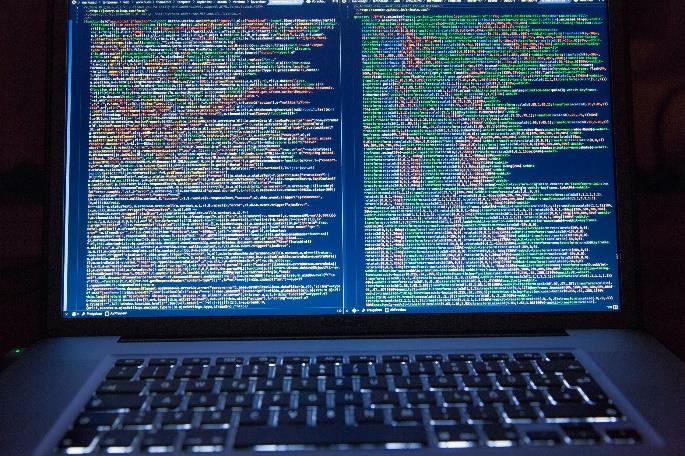
109
UNITED NATIONS HIGH COMMISSIONER FOR REFUGEES -
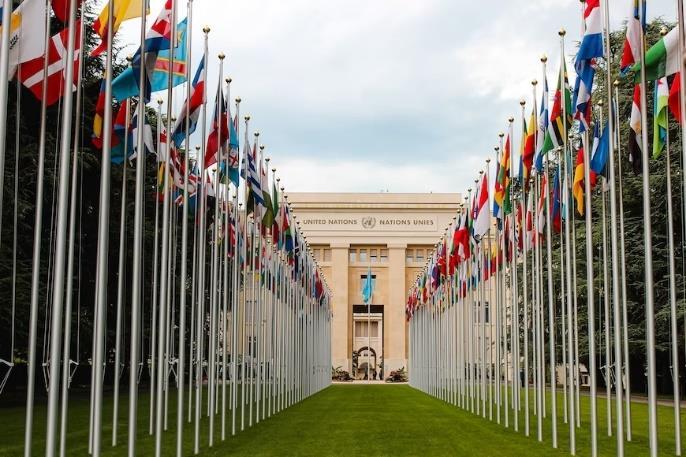
UNHCR (ALUMNI HOST, ST ANTONY'S COLLEGE)
Noam Rosenbaum, St John's College, BA Philosophy, Politics and Economics, Final Year Undergraduate, in person working
Work Projects
My principal portfolio covered UNHCR partnershipswith the UNDP and ILO. In each case, we finalised key joint policy documents for the coming 3 years. My role was often as penholder on these documents, solicitinginput from senior partners, drafting, editingand proofing material. Collaboratingwith the team, I supported a regional consultation, and participated in numerouscoordinationmeetings and planningprocesses. Assigned also to a second team, working on a new partnershipwith the IFC, I had the opportunity to facilitate high level coordination meetings and develop the newly adopted joint action planfor the ensuing18 months. I assisted the execution of a side event on this partnership at the 2022 Executive Committee, and was also lucky to volunteer at the 2022 Nansen Award Ceremony, stumbling (literally) into meetingAngela Merkel in a particularly entertaininghighlight. The team gave me ample space and material for onboarding(the position requiressignificant preparationto engage usefully with the breadth and complexity of issues) and were enthusiastically supportive in answeringmy many questionsand takingmy queries seriously. It was a pleasure to work with them.
Daily Life
Havingpreviously lived in Geneva, settlingin was simple althoughfindingaccommodation in the city is never easy. Publictransport is affordable and extensive;I lived in three places through the summer, and never had a troublesome commute. The work rhythm was healthy,
110
arrivingat the office a bit before nine in the morning, and leavingaround six in the afternoon on average. I had my fair share of late nights, but only to take on optional work to further our projects. Through the months I got to know the intern and staff community at the UN, with a thriving, mixed social life there, and co organized a local basketball community with folks I met at pickup games (it’s evolved into a great group persistinglongsince I left).
Through buskingand playingat a local pub, I met plenty of others from varied backgrounds. It’s a quiet, safe, and beautiful city, with a lot going on if you figure out where to look, and go out and meet people. Sunrise concerts on the lake, outdoors cinema, (free) evening salsa classes in the park… Despite all this, day to day I’ll admit spendingmost of my out of work time chillingby the lake, gazing at the mountains, and noodlingon the guitar.
Lasting Impressions
This internship was an excellent opportunity to experience global governance and policy making from the top down. Buildingon my background (through another Summer Internship Programme place last year) in humanitarianaid, these months were an inspiringlook into the work at the central HQ of an organisation to which I am only more committed to joiningat some point in the future. The staff are incredible, welcoming, and with such a range of wisdom and experience to share that it can be overwhelmingat times to even share a room with them all. I gained practical skills in policy and some understandingof the humanitarian system at the global level, and an introductioninto partnerships, collaboration, and cooperation which will only aid me in my step into diplomacy at the FCDO this autumn.
I am deeply grateful to the Careers Service and those at the UN for allowingme this immense opportunity to contribute to their work just a little, and learn from them so much. My career ambitions have been cemented further:if you have an inklingof interest in the humanitarian development peacebuildingnexus, I highly recommend lookinginto the vital work of the UNHCR.
111
THAILAND
GOTOCO (ALUMNI HOST, PEMBROKE COLLEGE)
BA Spanish and Linguistics, First Year Undergraduate, in person working Work Projects
The host organisationfunded a bigchunk of my flights, as well as initial costs like immunisation, e visa and DBS checks to be able to teach. They also covered all accommodation and cost for food (partially).
Daily Life
I had to teach 3 hours a day in the morningin a school in the north of Thailandwith bank holidays, afternoons and weekends off, it meant I would explore the nearby city afterwards. The facilities of the school were better than expected and everyone was very accommodating! I really recommend you give this a go!

Lasting Impressions
I really enjoyed my experience; I think it had a good balance between work and travel, which allowed me to explore sites in Thailand whilst gainingteachingexperience. I think it was a unique experience that I definitely recommend tryingat least once, even if they are not interested in teaching. I met people from various UK universities doingvarious degrees, so you will end up learningsomethingabout each one of them by the end of the internship.
Practical advice
Be as open minded as possible when applying not all things in your CV will need to directly relate to a career you aspire to be in, even an experience that you did not enjoy is still valuable,
112
because it allows you to boil down to things that you expect in your career and the sector that you are truly interested in.
Coyla Vuki, Lady Margaret Hall, BA History, Lady Margaret Hall, First Year Undergraduate, In
person working
Work Projects
Throughout my internship I was responsible for planningand carryingout lessons in teaching English to primary school students in Thailand. Before the programme had started, the host organisationsufficiently provided us with resources and examples of activities that we could use in our teaching. This teaching was a requirement as one of the four sections that needed completion in order to gain the TEFL or TESOL qualificationwith Trinity College London.
Another section of the qualification was the 'Unknown Language' section, in which Gotoco provided us with Thai lessons in order to help us to understandwhat it will be like teaching English to students who possess extremely limited knowledge of the language beforehand. I found teachingan enjoyable and incredibly rewardingexperience, as the children were respectful, and able to grow in confidence throughout the internship. Even our host and other Thai teachers were able to pick up some English which I found really fulfilling.
While it was not possible to carry out all the work needed for gainingthe TEFL in the five weeks we had in Thailand, Gotoco has providedus with a further opportunity to teach English to Chilean studentsonline, which shouldallow us to record and describe in detail our lessons, which was not possible to do while the TEFL office was closed duringAugust.
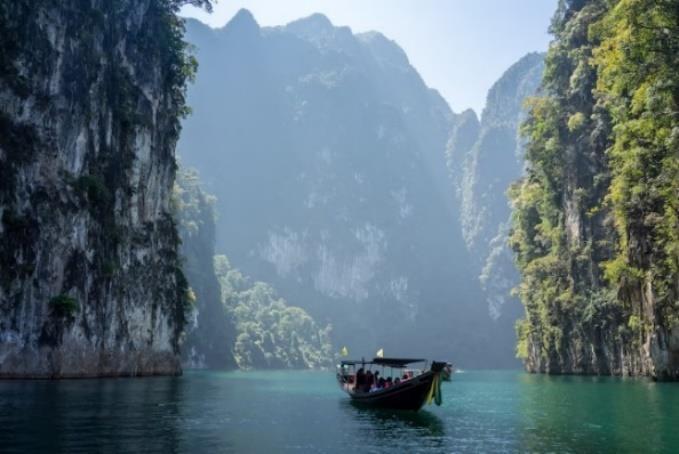
113
Daily Life
A typical day at the school would normally begin with a meetingwith the head of the English department, Nim, in the library. After havinga quick meetingwith her in which we discussed the general layout of the lesson, and she would relay to me specific vocabulary she wanted to be taught and activities she expected to be carried out, I would head off to teach. Lessons would typically be 50 minutes, and I would take the lead, with Nim observingfor the most part, but translatinginstructionsfor activities into Thai when needed. I would have three lessons in a row, teaching classes ranging from Kindergarten to Year 6.
Followinga short lunch break, I would head back to the Director's Office and try and complete some of the work required for the TEFL qualification. This work included a range of things, such as attendingThai lessons via Zoom, fillingout a logbook, and more. After dinner, I would use that time to plan my lessons for the followingday. I spent my free time throughout the day socialisingwith the three other girls on the Gotoco programme who I was teachingat the school with. Our host would often arrange eveningactivities for us which allowed us to truly immerse ourselves in the culture, this could range from visitingmarkets, or attendinga Thai cooking class.
Lasting Impressions
I did really enjoy the experience and I feel that it helped me a lot in terms of personal growth. Working abroad gave me greater insight into what it is like navigatinglife in a foreign country, and I was able to grow in confidence and independence. Despite havingan enjoyable summer, this opportunity definitely confirmed for me that I would not like to go into teachingin the future. While I will continue to work towards gainingmy TEFL qualification, this is more of a safety net for me that will allow me to travel and work abroad. This experience has taught me
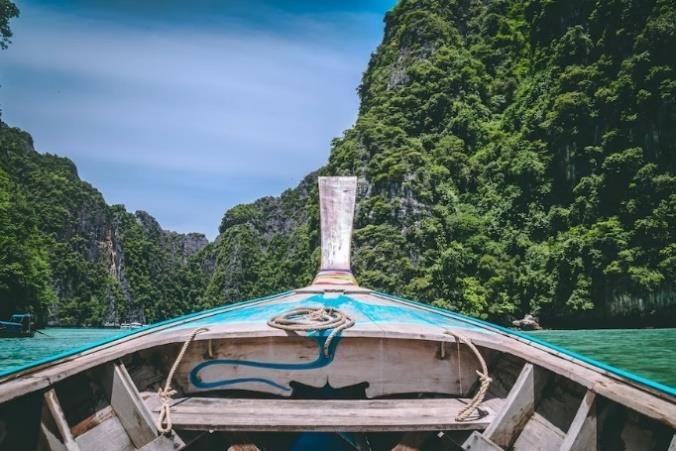
114
that I am still lookingto make the most of the opportunities available to me as I continue lookingfor internshipsor careers that better cater to my skills and personality.
Rosenwyn Petherick-Davies, St. Hugh’s College, MBiol Biology, First Year Undergraduate, in person working Work Projects
I taught English as a second language for a month in an assigned school in rural northern Thailand. I taught from ages 3 to 16, often working with other interns and volunteers to gain a TESOL qualification. Duringthis time, I also had the opportunity to travel and experience Thai culture.
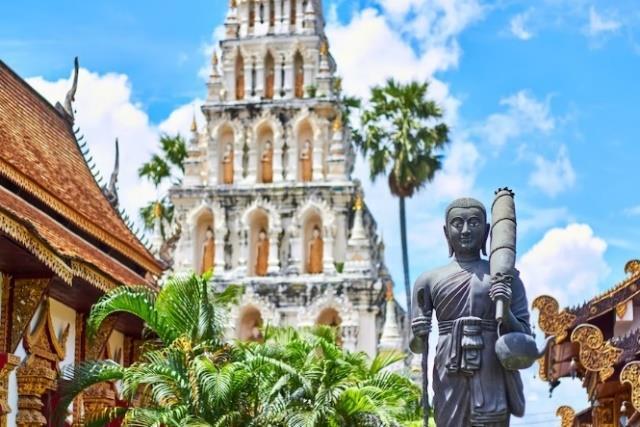
Daily Life
Every weekday I would teach three to four English classes to a range of ages, often in collaboration with other teachers in small groups. At least two of these classes would be for 3 to 6 year olds, where the classes themselves would be very energetic and constantly changing. Occasionally I would have a plan, resource and deliver an hour longlesson on a selected topic or create resources for topics I am passionate aboutthat the school would use once I had left. We also undertook weekly meetings in which we started our TESOL course which I later carried on once back in the UK. Settlinginto life in Thailand was very easy as we were well supported by Gotoco and were encouraged to meet the other interns/volunteers before travellingto our placement. All of my travel in Thailandrelatingto the programme was planned and paidfor by the company so I felt very safe and supported.
Outside of work I mainly spent time with other interns/volunteers doingcultural and tourist type activities, some of these were funded and organised by Gotoco or my placement school. I
115
was also allowed the opportunity to solo travel at the end of the internship and was offered to extend my teaching in other countries in Southeast Asia.
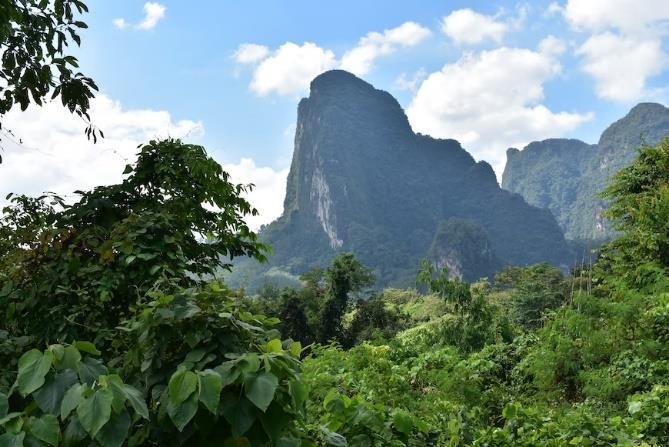
Lasting Impressions
The internshiphas allowed me to integrate into Thai culture for over seven weeks where I could explore and experience the daily lives of people in rural Thailand. This has had a lastingimpact on me in my everyday life. Furthermore, the ability to be able to teach English anywhere in the world is valuable to me and is somethingI hope I will be able to do in the future. This experience also confirmed to me that teaching (although not necessarily English) is a serious career option for me.
Douglas Leung, St.Hilda's College, MSt Greek and/or Latin Languages and Literature, in person working Work Projects
My internship, organised by Gotoco, took place at a school in rural Thailand. Gotoco gave us a brief teacher trainingsession duringthe orientationweek but, for the most part, we learned how to teach on the job and quickly figured out how to plan and run lessons through practice. I was responsible for teachingfive different classes three times each week, so fifteen lessons per week in total. My classes had children aged 6/7, 9/10 and 14/15 years old. There was usually a Thai teacher who would sit at the back of the classroom but they would not usually intervene unless we asked for their help to explain somethingto the children in Thai. There was no set curriculum for us the Thai teachers very much gave us free rein to teach whatever we wanted. I felt that, given the extremely basiclevel of English (includingthe older children) and the limited time, it was most productive to teach phonics as the pronunciationof English words was somethingthat we could show the children in a way that the Thai teachers
116
would not be able to. The teachers also gave us the responsibility of organisingand leadingour own English Camp at our school, which involved comingup with fun activities to engage the children in their English learning.
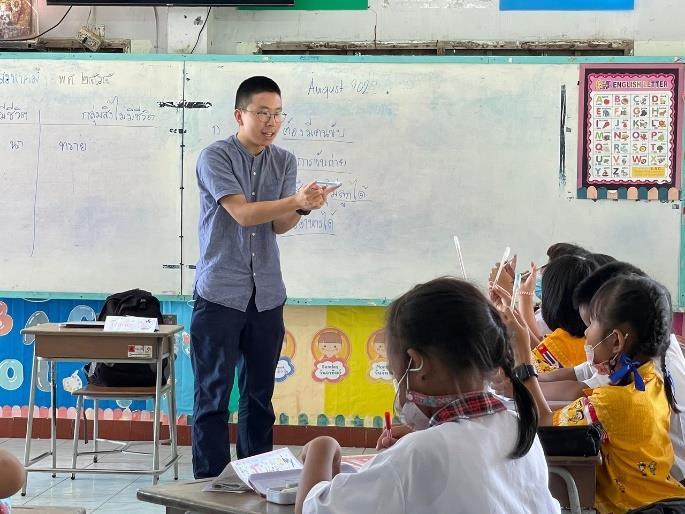
Daily Life
Our rooms were on the school site, so we would often wake up to the sound of children outside already at school. We would need to be at the flag raisingceremony every day at 8am. One day each week, it would be our turn to be on 'greeting duty' at 7am, when we would greet the students as they came into the school. There were seven periods each day, with us teachingin three of those seven. In the free periods, we would usually plan lessons. Lunch happenedat 11:30am and was given to us by the school. They always gave us so much food that we would keep the leftovers to reheat for dinner. Sometimes, the teachers would take us out for lunch/dinner too. In the afternoon, there would also be a period where we would have other things scheduled e.g., Thai language lessons, Thai art lessons, Thai cookinglessons and Scouts.
After school, we would usually play football/volleyball with the children from the village, and then in the evenings, we would relax in the library, as it was the one place that was big enough to socialise with air con and away from the mosquitoes. On the weekends, the teachers would take turns to take us on trips, which were some of my most memorable moments. On one long weekend due to a national holiday, we went on a trip to a place quite far away on the overnight train, and the teachers helped us to book the train tickets and gave us lifts to the train station. Before the 4 weeks at the school, we had orientation, and we had a cultural tour after it, which was really nice to come back together with all the other volunteer teachers and share our experiences at different schools across Thailand.
117
Lasting Impressions
I loved every minute of my experience in Thailand. There were of course challenges, especially beingin a school in the middle of nowhere, but the teachers were so kind and generous, which helped immensely. I relished beingin a part of Thailand that I would never otherwise visit, never mind live and work for 4 weeks, and gettingto know the Thai people and culture. I would say, though, that not everyone had such a positive experience with their schools, so I think your experience depends a lot on the school and teachers you end up with, since they form such an essential part of it, as do the other volunteer teachers you end up with. I feel that I am much more confident to travel to different countries by myself now and it has definitely inspired me to do so. I do not think I see teachingas long term career, but it has made me realise that teaching English can be quite a good way to travel the world and I very much enjoyed working with children.
BA History, Final Year Undergraduate, in-person working Work Projects
I worked as a Kindergarten teacher in Phuket, Thailand. I was tasked with planninglessons related to phonics and the English language. I received lots of support from the host organisation, includingflights, transportation, accommodation, insurance and a stipend for food etc. I spent 4 weeks teachingand had a week for cultural exploration in Thailand. This experience was preparation for completingour TESOL certificate upon return to the U.K, and required us to make detailed lesson plans and observe other teachers.
Daily Life
We arrived in Bangkok and had a few days to meet other people on the programme before going to Phuket. We were supported in Bangkok with activities and some support on how to teach English. Arrivingin Phuket we were provided with very good accommodation. We stayed
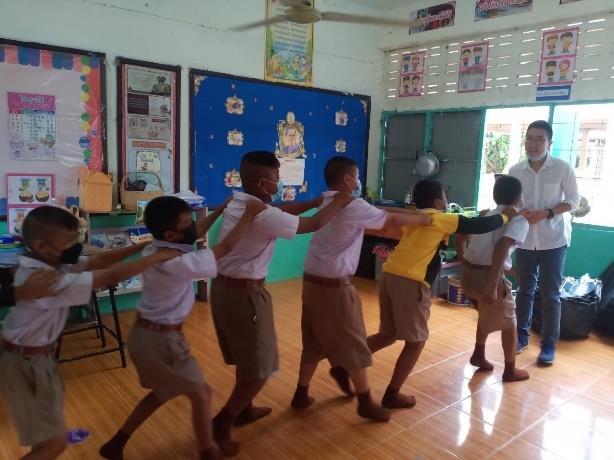
118
in a modern condominium less than 5 minutes'walk from the school with aircon, modern toilets, access to a pool and gym. It was very nice. We were supervised by two English teachers at the school and were able to watch them teach before doingour own classes. Once we had witnessed them teach, we were allowed to start teachingour own classes. We taught maximum 4 classes a day if in pairs or 2 if doingalone. We were provided ample resources to lesson plan with such as games, flash cards, workbooks etc. School days were 8.30 3, though sometimes we came in at 7.45 to greet school children in the morning. After finishingat 3, we had lots of time to explore Thailand. This includedgoingto the beach nearby, the pool at our accommodation, the markets etc. We had access to a kitchen but as food is so cheap, we ate out a lot with the stipend we were provided (50 a week).
Lasting Impressions
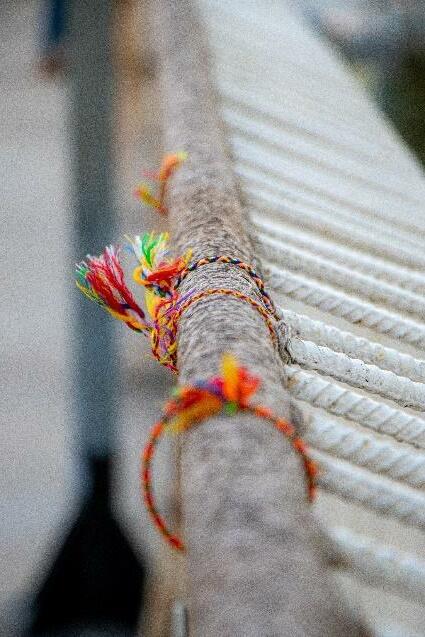
I absolutely loved my internship. Livingwith strangers (I didn’t know anyone else doingthe programme) and makingnew friends pushed me out of my comfort zone. Living in a new country was also an incredible experience on my weekends I was able to go island hoppingand see lots of natural wonders. It has made me consider travellingmore or even moving abroad entirely. I would never have considered this without completingthe internship. I also thoroughly enjoyed the work I did. I learnt lots on how to teach and the complexities of learninga foreign language. It consolidatedmy interest in working with children and has provided me with a good basis to start preparingfor my TESOL exams. The support I received from Gotoco and my school was top notch I felt safe and looked after the entire time.
Practical Advice
Be honest and specific in your applicationabout what kind of location you want to be in. The difference between rural/coastal/city Thailandis huge, especially in the educational system.
119
You might also want to specify what age group you want to work with and if you want to be in a government or private school the latter can mean you are given better accommodation. You might not get your requests met but it's best to be honest with the hosts (and yourself!) so they can offer somethingyou'd enjoy.
Isabelle Proctor, Oriel College, BA Classics and English, Second Year Undergraduate, in-person working
Work Projects
My internshipwas a 4 week volunteer placement in a school in rural Thailand. AlumnusRichard Lloyd’s TEFL company Gotoco organised my placement, an orientationweek at the beginningand a cultural tour at the end. The experience is funded by the Turing Scheme and so our flights, accommodation, food and health insurance were all provided. As part of the internship, we began the Trinity CertTESOL qualification duringour time in Thailand and upon our return to the UK complete the course, which is also fully funded. Gotoco run webinars in the lead up to the trip:introducing(in my case) Thai culture and answeringFAQs on booking flights, packing, getting vaccinations etc.
Upon arrival, the company provided transport from the airport to the hotel in Bangkok, they organised dinners and transported us to Hua Hin where we had our orientation week. During this week, there were several intro sessions to TEFL, Thai lessons (fulfillingthe L2 requirement of the qualification) and culturaltrips to temples and markets as well as free time to explore. Gotoco compensated us for our taxi from Bangkok to Sri Racha, where our school was. For the first two weeks, I was acting as a teacher’s assistant:readingwith the children, helpingthem in their activities and completing TESOL modules online. We then had a video call with one of the Gotoco directors, evaluatingour experience and just havinga check in. We expressed a desire to teach our own lessons and to have designated hours for planningas we felt the school was
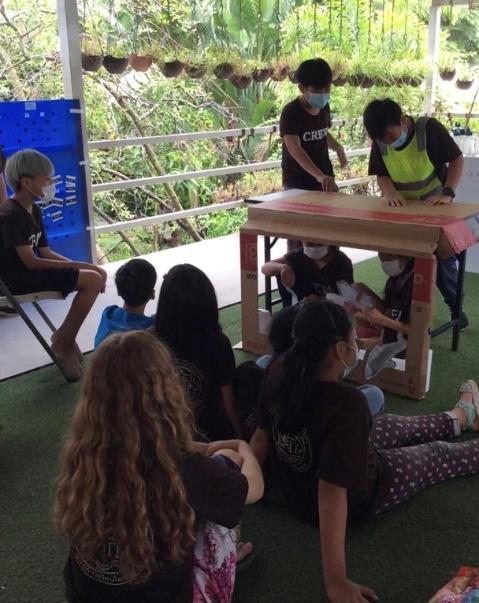
120
not fully makinguse of us as native English speakers. This was diplomatically communicatedto the headmistress via the host organisation, and we were very happy with the result. The second two weeks, I was given my own classes, taught on average 3 hour long lessons a day as well as half an hour sessions helpingone of the teachingassistants with her English and planned and created resources for other lessons. During the internship, I developed much more confidence in myself as an orator and communicator. By the end, my class management, rapport with students, lesson planningand time management skills had vastly improved and I really enjoyed the teachingexperience. Our accommodation was on the school site, quite rustic and provided us with a real insight into Thai culture and customs, I really valued that aspect of the placement because it was true cultural immersion.
Daily Life

Every day, we woke up at 07:15, went downstairs to the cafeteria for breakfast and began the school day at 08:00. Our accommodation was actually above one of the classrooms so we didn't have much of a commute. Dependingon how far into the month we were, we would either act as teachingassistants:readingwith the children, helpingthem in their activities, or we would be teachingour own classes (usually 3 hours in total each day). Lunchtime was at 12:00 and we ate with the other teachers in the staffroom. We returned to class or lesson planningat 13:30 and the school day ended at 16:00. In the evenings, sometimes we walked 15 minutes down the road to the market and bought dishes such as milk tea, papaya salad, pad Thai and mango sticky rice.
Other times, we would eat dinner at 18:00 in the cafeteria which the school chef would make for us there was always rice and mostly he prepared traditional Thai food though a few times he made pasta or Indian cuisine. Every evening duringthe first week, we were so exhausted that we basically went to bed straight after dinner but after we got used to the routine and the
121
high energy of the school we stayed up later and went out duringthe week. Several times we took Grabs to Sri Racha which was the local city and explored the malls and international food options, we would meet up with some of the teachers and office staff now and again for dinner or drinks. At the weekends, we went to the beach, to the market, to nearby Pattaya when the Queen’s Birthday meant there was a bank holiday or relaxed in an air conditioned room in the school that the littlest children would use for naps in the afternoon and watched Netflix.
Lasting Impressions
It was an amazinginternship. I can't believe how much I got to experience and travel in Thailand, facilitatedby the TuringScheme and the University of Oxford. I can now say I've been to: Bangkok, Hua Hin, Sri Racha and Pattaya havingnever been to SE Asia before! I loved the assault on one's sense that Thailand is, the buzz and chaos of Bangkok and every market, the constant heat and the crazy traffic! I feel I gained so much confidence, life experience and a proper introductionto another culture. The experience has confirmed that I would like to teach English as a foreign language after leavinguniversity as a means of travellingand learningabout other cultures. However, I am much more informed about beinga TEFL teacher and would know which questions to ask concerningthe location of the school, the age of the other teachers, accessibility, ethos of the school and expected working hours.
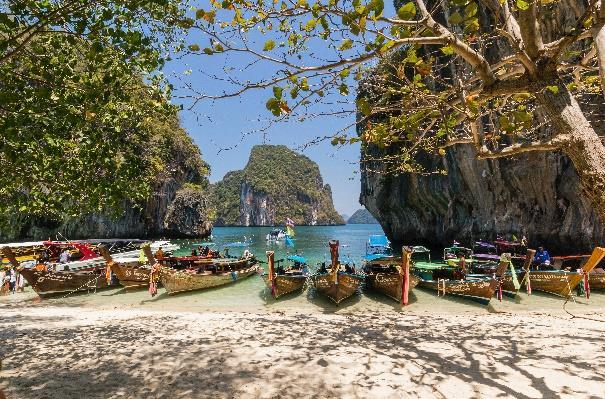
Practical advice
Take every opportunity you're given in the internship because even if you mess up, the experience is so fast movingthat you'll recover pretty quickly and realistically you're the only one analysingyour every move. Also, talk to every other intern you meet and take every chance to go out because you are allowed to enjoy your internship and it's a good way to get a feel for whether you'd actually like to live in the country you're visiting.
122
UGANDA
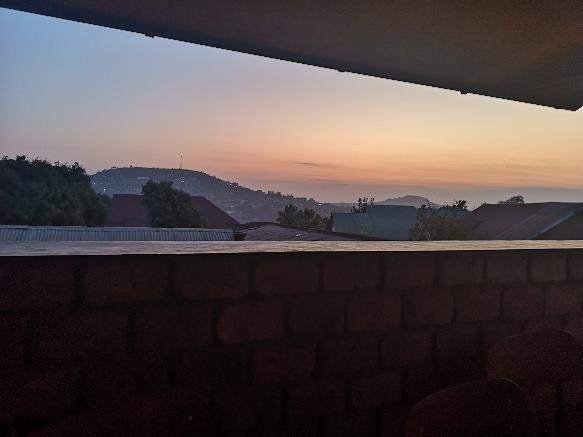
ASHINAGA (ALUMNI HOST, ST CATHERINE’S COLLEGE)
Luke Patrick Dorman, Regent's Park College, BA Philosophy and Theology, First Year Undergraduate, in person working
Work Projects
I was tasked with teachingSAT English and Maths to Ashinaga students. These are academically excellent students from across Sub Saharan Africa, who have lost or do not have contact with at least one parent. Once selected for the AAI program these students are enrolled in a leadership program for a year that will prepare them to apply to university, after which their university fees are entirely covered by the organisation. I worked as a small part of teachingthese students in their year of preparation, and it was a pleasure and a privilege to be involved in this.
Daily Life
It took a while to settle in, and culture shock was certainly a very real experience for me as I got used to an entirely new normal. We lived in a compound of 4 houses with the rest of the interns, which was great because support and socialisingwere only a few steps away. Over time I think we got to be quite a tight community, because everyone's obviously in the same boat of beingin an alien environment. At 9 every morningwe were expected to be at the office, and we would work there till 5 on most days. Different staff and interns would often run sessions after 5 such as karate, and so it was great to engage with these as a way to get to know students better, and have some fun! I ended up going on a lot of runs in the local area, which was a great way to get out of the intern compound, which could feel quite small and limitingif you didn't leave much. We also often took bus rides into Kampala to meet friends and for nights out, which was again a great way to explore the city more.
123
Lasting Impressions
It's hard to put into words the impact this has made on me, and I think I'll be working through it and discoveringnew changes in me long into the future. It's challenged me and brought me face to face with both an alien culture, and some of the big ethical problems of the world and my place in it. But more than that it's brought me into contact with an incredible group of people, who have taught me so much. Being surrounded by people who are older and have done so much more in their life is just an amazingexperience, which has informed my vision for my future loads.
Practical Advice
Take risks, apply for terrifyingchallenges, genuinely what's the worst that could happen? You definitely don't have to be thinkingabout your career to apply to these things, if you just find somethingthat interests you as a person, that fascinates you in its existence, then engage with it and everythingwill come later! And then once you've got one of these opportunities, which many people could only dream of having, work at it with your entire effort, and engage with every facet of the experience. Just make the most of what you're given.
BRASS FOR AFRICA (ALUMNI HOST, QUEEN’SCOLLEGE)
Charlotte Grayson, Wadham College, BA Philosophy, Politics and Economics, Final Year Undergraduate, in person working
Work Projects
My project was to work on improvingthe methods used by the charity to monitor and assess the life skills of its beneficiaries (children and youngpeople). Brass for Africa’s life skills curriculum focuses on eight key attributes:self confidence, resilience, communication, leadership, teamwork skills, problem solving,

124
concentration, and grit and perseverance. I looked at previously used surveys and considered their strengths and weaknesses. Duringmy first couple of weeks in Uganda, I visited many of the outreaches so that I got a feel for the different types of places where Brass for Africa operates. This was very useful I recognised that there were many challenges with designing good tools for my project. I then spent most of my time in the office researchingtools that I might be able to adapt for use by the organisation. At the end of my time in Uganda, I gave a presentationto all the staff with my recommendations I had selected some existingtools and created some of my own; focusing on only some of the key attributes. The host organisation ensured I was able to visit many of the outreaches and provided me with a desk. I was able to talk to the staff to ask about questions.
Daily Life
Everyone was very welcoming and tried to be as helpful as possible I had a huge welcome party at the airport! I had a very good sized apartment to myself. This was in a gated compound, a 5 minute walk from the office which was convenient. Unsurprisingly the local diet is very different to what I’m used to. Eventually I settled into a good routine of havinga ‘rolex’ in the morning(chapati with fried egg on top and then rolled rolled eggs) and a rotation of lunch options at the restaurant we all ate at. Indeed, my lunch order ended up beingmy only regular use of Luganda (the most widely spoken language in this region of Uganda). I often had quite quiet evenings to myself after work and tended to listen to podcasts and call my family. I socialised with other staff especially with another intern who was from Uganda who worked in the same office as me. She took me to the city centre (roughly a 20 minute motorbike ride away) to see the markets and was really helpful with explainingand translatingthings for me.
At the weekends, I took the opportunity to do some sightseeing. I visited the Uganda National Mosque, the Kabaka’s Palace and the zoo. Visitingthese places made me very familiar with the
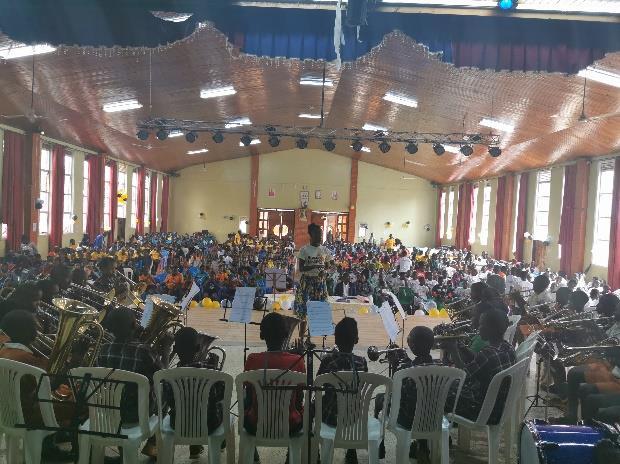
125
local modes of transport motorbikes takingpassengers known as boda bodas for smaller journeys and passenger carryingminibuses (taxis) for longer journeys. My longest taxi journey was to Uganda’s second largest city Jinja. It is a far calmer, smaller city than Kampala and is near the source of the Nile. With some of my colleagues I also visited restaurants, the cinema and a bar with live music.
Lasting Impressions

I really enjoyed the experience. It was a very different place to anywhere I have been before and I am glad that I was there for enough time to get a bit used to the way of life. I gained a lot and learned a great deal about NGOs. It was really special to be surrounded by people from such diverse backgrounds all passionate about makingthe lives of children and youngpeople better. Seeing first hand the difference Brass for Africa is making to communities and individuals was really great. The experience has informed the direction of my studied I am now takingcourses in development and global health as a result. I am also more inclined to consider working for an NGO in the future, this has been really helpful in showing me what I am interested in. It has also given me a lot to think about with regard to where I want to work in the future/where I want the organisations I work for in the future to be active. I am still very much consideringthe options on this front.
Practical Advice
I wholeheartedly recommend undertakingan internship in Brass for Africa. Go in with an open mind and be ready to try new things. Certain things will likely take a bit of getting used to but don’t be afraid to ask people for help or explanations. If you can, try to learn some phrases in Luganda before you go (I didn’t and wish I’d been a bit more proactive on this front). Even if you aren’t there for a music based internship, ask some of the teachers to help you try out a brass instrument!
126
UNITED KINGDOM
3KEEL
Mbiol biological sciences, Final Year Undergraduate, a mixture of in person and remote working
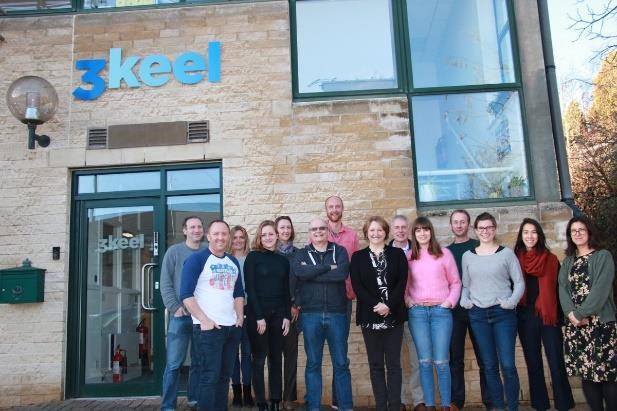
Work Projects
I worked as a sustainability consultant, primarily focussingon resilient agriculture and sustainable commodities. Main projects:Workingwith a food company to understandtheir impact on food waste and develop recommendations for greater impact; Workingwith palm oil traders to monitor their deforestation and exploitation policies;Workingto develop a monitoringand verification system for regenerative agriculture to see if the projects had benefits for biodiversity, carbon and water. Main tasks:Research, data collection and analysis, making slides. Support:I had a manager who helped me get settled in, and each project had a team lead who would support me in the project day to day. I also had a “buddy”to help me settle down. I was part of a team, and we had weekly team meetings.
Daily Life
Around 4 days a week I would go into one of the offices in London. There were a few different offices that I could go to, and these were shared offices called Work.Life. I would mainly commute in by train. I settled in easily as there were often only 4/5 people from my organisation in the office, so I got to know them quickly, and they were extremely friendly. We would sometimes go for drinks after work but this was not that frequent. I mainly socialised with my friends. At work, I would usually work on a few different projects each day, as well as having a couple of internal meetings. My main tasks were collecting data from suppliers, analysingdata, writing summaries, doingresearch and makingPowerPoint slides.
127
Lasting Impressions
I have been left with a positive impression of my internship. I really enjoyed meetingthe team and I felt like I got to know them well by going to the office and also we went on an away day where I met everyone. I think I developed a lot of skills such as Excel skills, communication and research skills. I learnt a lot about the industry, especially surroundingpalm oil and resilient agriculture. I gained a lot from the internship. I think this experience has confirmed my career ambitions to work in this sector, and I would like to stay on with this company.
AMBESSA PLAY (ALUMNI HOST, KELLOGG COLLEGE)
BA Physics, Final year undergraduate, a mixture of in person and remote working Work Projects
The task I spent the most time doingwas writingblog posts about science and scientists aimed at children (around the age of 10). There was a lot of scope and flexibility in this, I could choose from suggested topics and also suggest my own topics which meant I got to write about some of my science idols. I also worked on a plan for a workshop in London, which I then presented to 5 10 year olds. This was based on one of my blogposts.
Daily Life
The working hours were very flexible, so I aimed to start as early as I reasonably could in the morningso I could have more time to myself in the evenings. I spent the days writing on a laptop and occasionally having meetings to ask questions or report on my progress. As the timings were so flexible (I just had to tell them when I was working) I could fit in going to festivals and travellingaround the country a bit. Although remote work can get a bit lonely sometimes it was great to be able to work and hang out with my dogs!
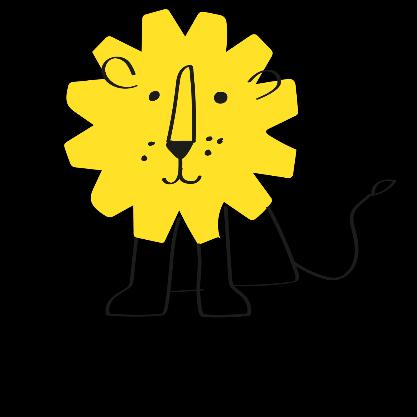
128
Lasting Impressions
I really enjoyed this internship; the company seemed very worthwhile. It has made me consider going into education, especially workshops aimed at kids who might not otherwise get a good and fun introduction to science. I also liked the writingaspect; I may try a little more science writing!
ARCHANGEL AEROSPACE GROUP
MEng Engineering, Third Year Undergraduate (of a four year course), a mixture of in-person and remote working Work Projects
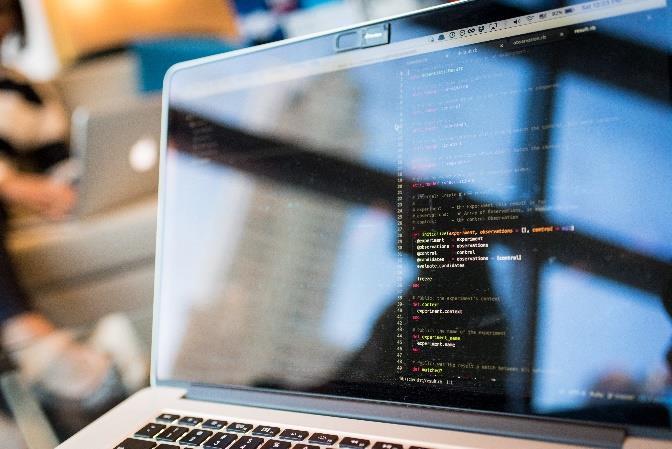
When I was working for Archangel, I was mainly focused on a research project related to few shot learning for object detection in images. Specifically, I was testing the possibility of using few shot learning techniques to develop a method of identifying key landmarks in aerial images from drones, that could then be used for navigation and localisation of the drone. This was an area that Archangel had not previously explored much, so I was mainly able to work on my own with minimal need for outside help. However, I certainly felt that when I did need assistance, I was easily able to get it as I had regular one on one meetings with a member of the company to ensure I had access to everything I needed.
The purpose of the research task was not primarily to get a working prototype of the navigation system working, but rather to assess the viability of the system, which could then be developed more formally if the techniques were found to be suitable. I was able to produce a reasonably promising method for landmark identification using only a few images, and I was able to test these out successfully on a number of datasets. With the research I was able to do, few shot object detection for this specific case seems to be very viable, and a more comprehensive test bench would be capable of optimising the process for deployment.
129
Daily Life
My internship at Archangel was a mix of in person and remote. I would generally go into the office once or twice a week, but then be able to work remotely for the rest. As my project was largely solo research, I was able to work remotely without feeling like I was limited by being unable to interact with other members of the company in person. I felt that I was able to work effectively from home, especially when, later in my project, a lot of my time was spent waiting for experiments to run.

However, I found going into the office regularly to be very beneficial, as I got a much better sense of what the company was about, and I was also able to chat with people about projects entirely unrelated to what I was doing, which was very interesting. I was able to commute to the office, which was at the Harwell Campus, quite easily by bus, and it generally was only a 40 minute commute from Oxford. I found it very easy to settle in as the other members of the company were very friendly, and willing to talk. Outside of work, I had a number of friends who were also working/interning in Oxford over the summer so was able to regularly socialise with them throughout the vacation.
Lasting Impressions
Overall, I found my internship at Archangel to be extremely enjoyable, and I felt I gained a large amount of experience in areas I had not previously explored. I had not previously had much experience working with neural networks, so I found it very informative to have the opportunity to develop and train convolutionneural network solutions to a real world problem. I really enjoyed the format of the internshipas it consisted mostly of research I could carry out independently. This meant I was not heavily reliant on other members of the company and so I felt I was able to make efficient use of my time throughout the duration of the internship, and was not regularly held up. I enjoyed working in a smaller company, as I felt I had a great opportunity to talk to other people doinga variety of different research/development. I really enjoyed the internship because I was able to tackle unique problems and was provided with sufficient resources to be able to produce what I felt were viable and useful solutions for Archangel.
130
Practical Advice
I think the main thing I took from my internship was to make sure to get stuck in as quickly as possible. I was undertakinga research project, so I was definitely tempted to spend much more time readingup on the area I was lookingat, but I ended up findingthat it was much more beneficial to start conductingmy own tests and developingmy own solutions as quickly as possible. I found I learnt a lot more from implementation actual neuralnetwork solutions to various problems than I was able to learn from readingup about these areas.
AUCHINDRAIN TRUST (ALUMNI HOST, MAGDALEN COLLEGE)
Harmanpreet
Randhawa, St.Catherine's College, BFA Fine Art, Second Year
Undergraduate, in person working Work Projects
During my placement at AuchindrainTrust, I wrote an experimental research piece and made a short film focusing on the ruinous arrangements on the site. The project speculated on reading practices that can allow us to view the ruins on the site through a non anthropocentricoptic.
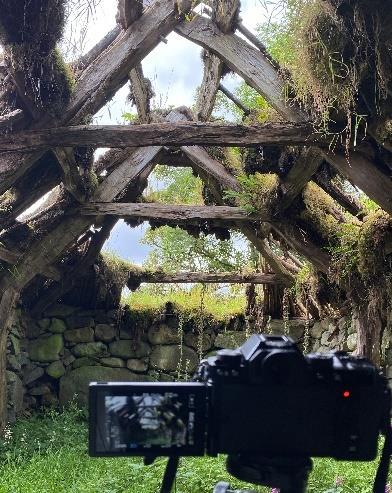
Daily Life
I lived with two other interns in a caravan located in the car park of the heritage site. Auchindrainis surroundedby a very scenic landscape and we spent a lot of our evening exploringthe surroundingforests and hills.
Lasting Impressions
Overall, the internship was very challengingas the site is located in the middle of nowhere. But regardless I believe it was a somewhat enrichingexperience; I made my first ever film at the site which was very enjoyable and it is definitely somethingthat would want to continue in my artisticpractice too.
131
BODLEIAN LIBRARIES, SPECIAL COLLECTIONS (ALUMNI HOSTWADHAM COLLEGE)
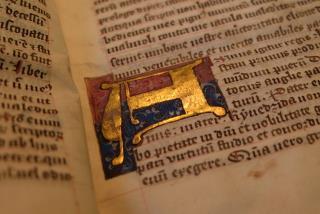
Kelly
Frost,
Lincoln
College, MSt English and American Studies, in-person working Work Projects
I was working on two projects while at the Bodleian, both of which I enjoyed and both of which I completed before the end of my internship. The first was creating a thorough online catalogue of the John Masefield archive. This is the bread and butter of archiving, and with some really wonderful step by step inductionsand explanations on how to use the Bodleian's online cataloguingprogrammes, their internal systems and an introductionto the various terminologies and ways to write metadata, I was set up and independently workingmy way through Masefield's catalogue. When I encountered a problem, an unfamiliarartefact, I was still close enough to a supervisor to pick their brain after I had failed to figure it out myself.
In the end, I managed to complete the archival collection, a longoverdue task that the Bodleian are happy to have completed. The second project, however, was more intriguingand unusual. I was scouringthe Rhodes House Library colonial records for instances of 'African poetry' a task which has so far been left incomplete, and only through a new global initiative is this important work beingdone. It was rewardingto be doingwork that really mattered, that really made a difference. And it was also incredibly fascinating. I was trawling through records of colonial officers from the 1900s and finding, surprisingly, authenticsamples of African poetry that I then recorded with their own archival entries for easier access by scholars of the African poeticarts in the future. The project was a huge success and we found many more examples than we originally intended. The support I received was perfectly balanced a supervisor who was on call for issues, but once I was set up on a project, was happy to leave me to it. We developed a strong
132
working relationship, and our interests in the African poetry initiative overlapped often into discussions of the findings.
Daily Life
Every day starts with a quick catch up with my supervisor what am I going to achieve today? What is my plan? What did I get up to yesterday? Did I find anythinginteresting? After that, I get on with what I'm most keen to get done, whether that's a nitty gritty task that's a little repetitive or more boringthan other tasks, or somethingthat I was puttingoff yesterday because it's difficult or I'm maybe a little stuck the chat with my supervisor can help with this.
At roughly 11am, I join my colleagues downstairs in Blackwell Hall for a tea break. They work in various other departments and have had varyingroutes into this career, plus they're all lovely and interestingpeople our talk ranges from career advice to CV buildingto the Great British Sewing Bee and of course, what archival discoveries we are all making.
Throughout the internship, I was very lucky to have tours and talks with all the different departments Conservation, Rare Books, Digital Hub and the day might continue with one of these. It's fascinatingto talk to staff in other departments and how their work relates to mine, and to explore the other potential careers there are in this sector, as well as pick their brains about the projects they are working on. After lunch, if I'm not shadowingmy supervisor on an excitingtask like a 'show and tell' of our special collections, or supervisinga manuscript for the filmingof a documentary, then I'll then spend the rest of the day independently workingon my own projects. I might listen to some musicas I continue cataloguing, researching, sifting, sorting, and findingout surprisingand excitingthings.
133
At 5 pm, I walk home, and to wind down, I might go for a run, grab dinner with a friend, or spend the lovely summer eveningreadingin the park. With many of my College friends still completingtheir dissertations, there were plenty of people around to socialise with and still plenty going on in Oxford, even outside of term time.
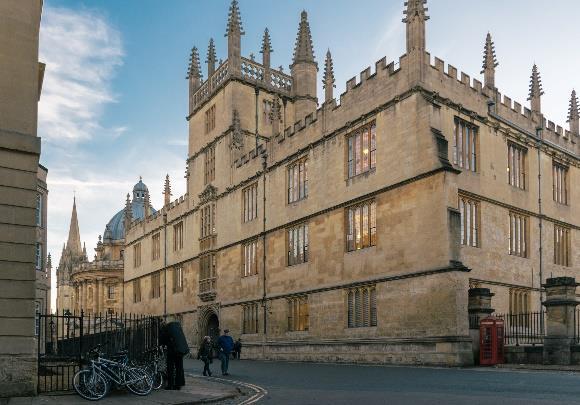
Lasting Impressions
This internship was really vital to me. I gained such hands on experience with the heritage sector that has informed my career decisions and it has helped me navigate through this difficult time of finishingmy university career. I have enjoyed the sector's freedom and it's allowed me to be curious, engaged, and satisfied. While I did enjoy it immensely, it has also given me a look into the parts of this work I might not enjoy, that I might not wish to pursue and that has been so useful.
Aside from these personal discoveries, I have built a huge array of skills. Some of these are skills specific to my sector usingArchivesSpace and other digital resources, visitingthe Special Collections, gettingto grips with an archival system, with the handlingand terminology of archives. But at the same time, I've also developed a lot of communication, interpersonaland independence skills. I have successfully completed two challengingprojects, which has boosted my confidence. I have built importantrelationshipswith colleagues, and become familiarised with a professionalworkingenvironment. I will use the experience going forward when applyingfor jobs, which may very well be in this sector, and I'm very glad that I sent in that first application.
134
Practical Advice
Do not be afraid to apply for internships that you think may be out of reach, or that are very competitive. I almost didn't apply to this one, but completingthe interview successfully and gainingthe position was a brilliant way to begin overcomingmy imposter syndrome and low self confidence, and I am very glad I applied in the end. Also, bookinga one on one Careers Service appointment was the best decision I could have made, as not only did I get a boost of confidence and the encouragement to apply but I received a fantastically snappy, useful and tailored session on how to improve my personal statement that I'm convinced helped me to get the position.
Lara Garrett, Worcester College, MSt Women's, Gender, and Sexuality Studies, in person working Work Projects
I was cataloguingthe personal and family papers of Sir Edward Heath, Conservative Prime Minister between 1970 and 1974. The Heath archive is massive: c.4,500 boxes, of which 328 boxes are personal and family papers. Duringmy four week internship, I focussed on cataloguingboxes relatingto Heaths childhood, parents, education, and non political employment. I reorganised the boxes so that material was grouped thematically, and for preservationpurposes placed loose papers in acid free folders. I recorded the date range, language, and content of each box in Archive Space, the cataloguingsoftware used by the Bodleian, and assigned new shelf marks. My colleagues were incredibly supportive throughout my internship, makingit a really welcoming and friendly place to work. I was sorry to leave at the end!
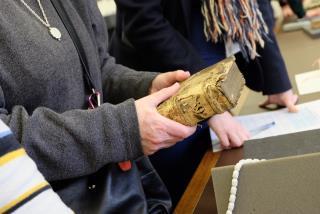
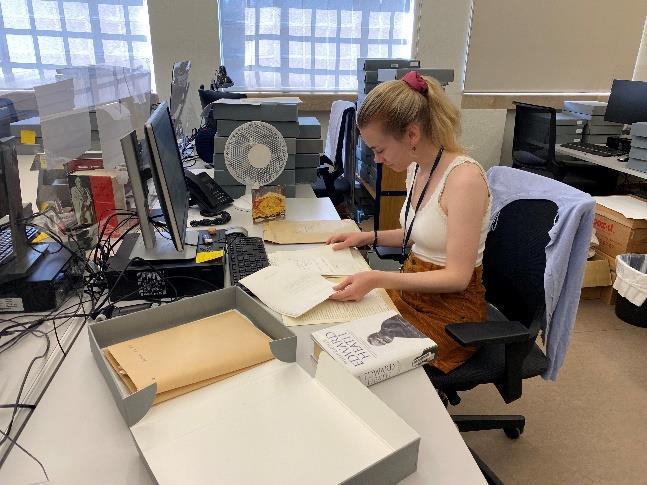
135
Daily Life
I got to the Weston Library by 9:30am each day, leavingat 5:30pm. One of the senior archivists, Lucy McCann, arranged a number of sessions for the interns to gain insight into other departments of the library. I particularly enjoyed the tour of the conservation studio it was fascinatingto see manuscripts beingrepaired and prepared for digitisation. Each day was slightly different because I never knew what I’d find on openinga box. I came across some fascinatingitems, for example, a charter issued in 1853 under Queen Victoria. I was constantly surprised when going through the boxes, and this variety was my favourite part of the internship.
Lasting Impressions
I applied for the internship because I've been consideringworkingas an archivist, and I wanted to see whether this was indeed the career for me. My academicinterest lies in social and cultural history, especially the history of gender and sexuality, so coming into the internship I was a bit nervous about workingon a political archive. That I still enjoyed and gained a lot from the experience has confirmed my desire to work with archives in the future. For anyone else consideringa career as an archivist, I’d highly recommend this internship!
Isaac Lok Wang Wong, St. Hugh’s College, Bachelor of Civil Law, in-person working
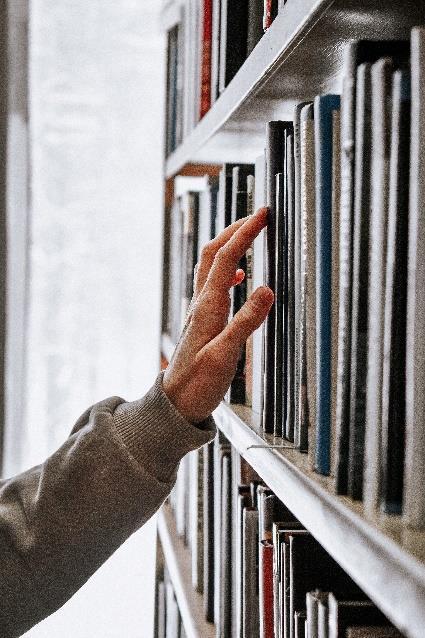
Work Projects
I was given three projects duringthis four week internship. The first one is to convert a physical catalogue into an online searchable catalogue. I was given a manual of the software Archivespace, which the Bodleian Library uses to create online catalogues, and was given a quick walk through of the software by an archivist. Duringwhich I was allowed to access the actual contents in the archive, and I added informationthat was not included in the physical catalogue to the online catalogue by going through the contents.
136
The second project required me to catalogue a previously unarranged archive. The contents in the archive were in random order, and I grouped the relevant ones together, and arranged them in a sensible and logical order, which can facilitate researchers'use. I was given a list of all the items in the archive, which contained brief descriptionsof each file/item. After rearranging the files, I put them in acid free folders (folders which archivists use for long term storage), and created an online searchable catalogue usingArchivespace. The third project also required me to catalogue a previously unarranged archive. However, this one contained much more folders than my second project, and there was no box list (the list which contained a description for each item). I needed to first make a box list myself, rearrange the items, group them together and order them, and create an online catalogue. This final project is the hardest and involved the most work.
Daily Life
This is an in person internship. The working hours is 9am to 5pm, at the Weston Library. On the first day, I was given a tour of the building, and brief introductionsto the different departments and their work. Duringthe four weeks, the employer organised occasional sessions where the interns were taken to a particular department, and the staff members who worked there introduced their work to us. For example, we were taken to the Rare Books department, where we learnt how rare books were kept and described in a catalogue, the challenges faced with dealing with rare books, etc. Another example is the digital archives session, where a team of two archivists were responsible for archivingwebsites that contained information on the changingsituationin Ukraine, and COVID 19 response taken by the University, its colleges and its departments. We were given opportunities to ask questions as well. We also attended show and tells and exhibitions, e.g., the manuscripts of Jane Austen, the illustrations by J. R. R. Tolkien, etc. The presenters were very informative, and I really enjoyed these sessions. As for my main work,
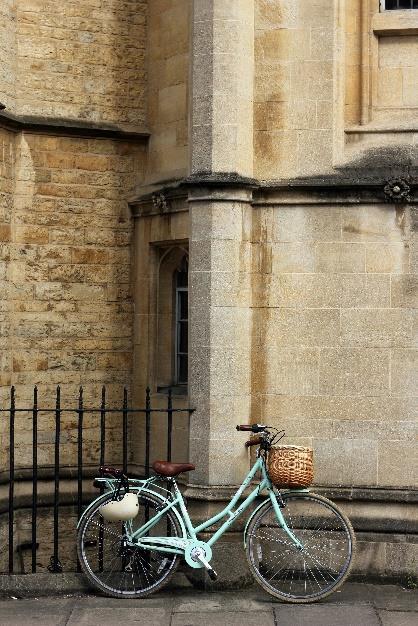
137
each intern was assigned a supervisor. Although my supervisor was absent for most of the first two weeks, I was told where I could get help if I encountered problems. The Senior Archivist also checked on us regularly, providinghelp and guidance on our projects. We were also given manuals on usingArchivespace and general cataloguing, which contained useful information about the principles and practices of cataloguingand archiving.
Lasting Impressions
Unlike the other interns who were consideringa career as an archivist, I undertook this internship primarily because I intended to do a DPhil which may require me to consult archived materials. I thought this would be a good opportunity to familiarise myself with how archivists work, how they described and stored materials, and the physical and online catalogues. This internship provided me with all these opportunities. As a Law student who previously worked only in law firms and barristers'chambers, this internship is a new experience for me.
The work pattern and nature were very different from my previous jobs, but I was given guidance at the start about how to use the Archivespace software, and how to deal with archive materials. This is not a fast paced job, and the aim is not to get through the materials as efficiently as possible. I was given sufficient time to go through each item one by one, readingthe correspondence and understandingthe author's thoughts and circumstances. The work may seem tedious at times, but the occasional interesting document (be it an invitationto the Queen's coronation, a back of the envelope doodle, or even a racist poem written by a politician) does cheer you up and keep you going.
Practical Advice
Efficiency is not the most important thing:take the time to go through the documents, read them carefully, and you will find interestingand funny bits! The job will be much more

138
enjoyable if you take your time. You are only given another project if you have finished one, so don't worry about not beingable to finish everything. The employer understandsthat interns have little experience in archiving, and are willingto give time, resources, and guidance to help you.
BODLEIAN LIBRARY, SPECIAL COLLECTIONS, MEDIEVAL
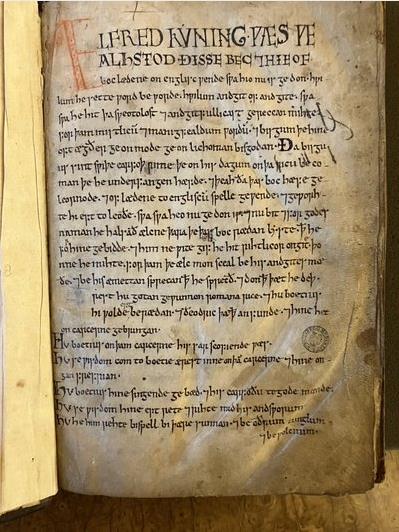
MANUSCRIPTS
Nia Catrin Moseley Roberts, Jesus College, MSt in Medieval Studies, a mixture of in person and remote working Work Projects
I completed my internshipwith the Medieval Manuscripts department of the Bodleian Library, and was given a lot of freedom over what I pursued. Before the internship, I had several discussions with the Bodleian curator (and my college advisor) Andrew Dunning;he suggested the sort of activities I should pursue in order to make the most of the internshipand was really useful in his questions about what I wanted to get out of it. We decided that to advance my academiccareer, I needed to get some work published, and so my aim for the internship was to work bringingseveral pieces up to an acceptable standard.
I had revisions to do on one article which involved lookingat Alfredian manuscripts held in the Bodleian, and so spent the first two weeks of the four week internship completingthose. I bought the article up to an acceptable standardand it has now been accepted for publication. I spent the next two weeks tyingup another project, working on the early English text Ancrene
139
Wisse. This was to be the topic of my PhD thesis, and had won several awards, so I wanted to get it out there, which I did.
Daily Life
I spent about a third of the internshipin Oxford (it should have been more, but I was unable to make it to the city in the third week due to the heatwave's disruptingpublictransport). Whilst I was there, I spent most of my time in libraries, collectingthe references and information I needed to complete my work. I also went into the Weston Library in order take out and examine some of Oxford's greatest treasures. I stayed with someone I knew through my church, but the stipend allowed me to eat out in Oxford and to be in the city through the day. I was also able to see friends who were still at Oxford, which was really nice, as my departure at the end of the academicyear had been quite rushed. Whilst at home, I wrote. I organised my time at the start of the week, settingmyself tasks and targets for each day to make sure I could complete my work. My work routine was quite similar to the one I had as a student;I tend to work in bursts, so I'd work into the night for a few days before taking time off, going for long walks to relax. Being at home for work was good both because I could set myself up at a desk which I then did to have to vacate, and I was close to the countryside.
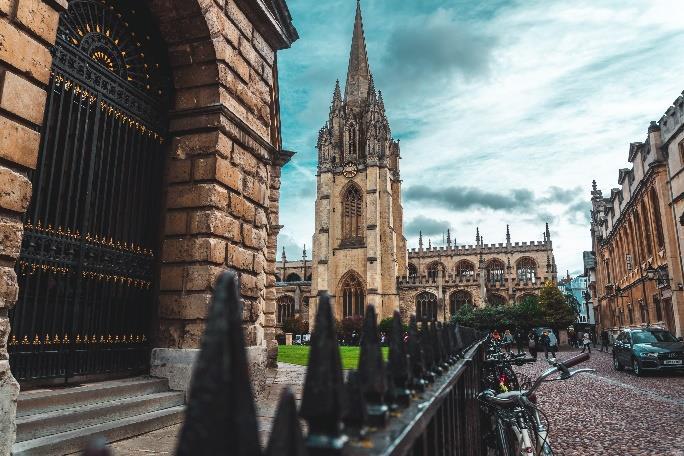
Lasting Impressions
I feel really satisfied with what I achieved over the course of my internship. Just before the internship began, I had had to make a decision about my future career; I held a funded PhD place at Cambridge, but had also been offered the opportunity to study law. I decided to take the law place, and this turned the internshipinto somethingof a sawn songfor me. I treated it as an opportunity to tie up loose ends and get the work I will now not have the opportunity to pursue further out into the world. I was also grateful for its being a job, as this also gave me
140
permission to relax a bit and enjoy myself; take breaks and see friends before I left Oxford for good.
I was really glad to have this time, and feel proud of what I achieved with it. In many ways, it was a funny internship (not like the ones I have completed before, which were in offices and very structured), and felt like an extension of my academicwork. However, it was what I needed I think, and I am really grateful to Andrew for all his help and support. Whilst I am not yet sure how this has helped my future career, I really enjoyed the internship.
Charlotte Ross, St. Cross College, MPhil English Studies (Medieval), in person working Work Projects
Over the course of my one month internshipin the Archives and Modern Manuscripts department at the Bodleian Library, I worked on two separate projects in two teams. The first was based with the University Archives team, and involved transcribingmatriculation forms from the early 1900's. My role involved creatinga database preservingthe informationgiven by students in these matriculationrecords (name, date of birth, address, place of birth, schools attended, father's name, occupation, and place of residence). The team at the University Archives were incredibly supportive, and involved me in various research projects throughout my time with them. At the end of my month with them, I wrote a report summarisingmy work and suggesting improvements to the database to streamline the process.
The second project was based with the Archives team, and involved organisingand cataloguing small scale collections to be added to the digital Bodleian Archives & Manuscripts catalogue usingArchive Space. In my time here, I catalogued the archives of Patricia Bronwen Loder, a female scientificadministrator who
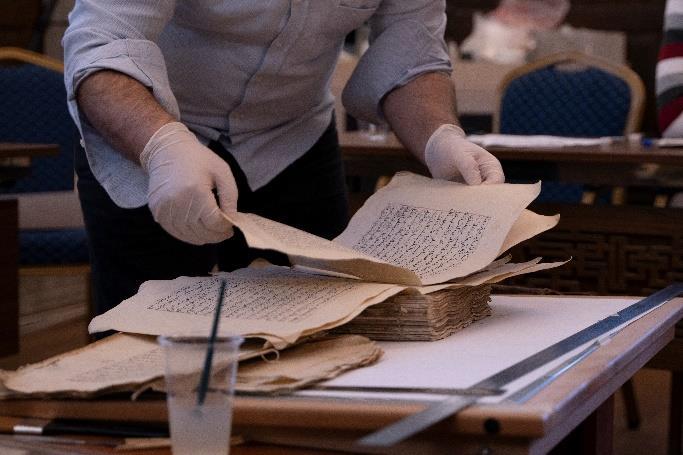
141
worked on the Human Genome Project, and Sir Clement Pleass, a British diplomatwho acted as Governor of the Eastern Region of Nigeria whilst Nigeria became independent. This involved organisinga variety of materials from paper to film and photograph into an order which was accessible to researchers and innkeepingwith the contents of the collection, uploadingthis order onto ArchiveSpace, and packing the collection into conservationboxes. I was lucky to work in an office with many wonderful and welcoming Archivists who provided excellent supportand helped me when I was unsure how to handle a particular object.
Daily Life
My internshipwas helpfully divided intotwo projects which I worked on in the mornings and afternoons. Every morning, I climbed through the Old Bodleian and up a spiral staircase to the University Archives at the top of the Tower of Five Orders. I joined a small close knit team of three people, who welcomed me into their office and quickly had me working on all sorts of interestingprojects. After lunch, I moved over to the Weston library, where I worked in an office with other Archivists, each working on their own projects, which was an excellent environment. Someone was always working on somethinginteresting, and there were always people to ask whenever I needed help. The social environment of the Bodleian was wonderful, and I was lucky enough to be introduced to lots of people across various departments. The Friday coffee mornings were especially useful to hear about the excitingwork going on in the Weston and meet researchers and academics outside of my department.
Lasting Impressions
I thoroughly enjoyed my experience as an intern at the Bodleian Library. The opportunity to work hands on with collections, in such a historicsettingand with such talented and knowledgeable archivists, has confirmed to me that my career aspirationslie in Special Collections and Archive Management. I did not expect to be allowed to work with such

142
important materials, or to be given the freedom to create entire catalogues of my own, and although there was much I had to learn I have come away from this internship with a greater understandingof the realities of working in the archival sector. I have gained skills in collection handlingand cataloguing, and learned how to use software such as ArchiveSpace. Across the past month, I have met some fantasticpeople who have encouraged me in my ambitions to enter the field, and have gained a better understandingof the skills and trainingnecessary to specialise in archival studies.
BRILLIANT CLUB (THE)
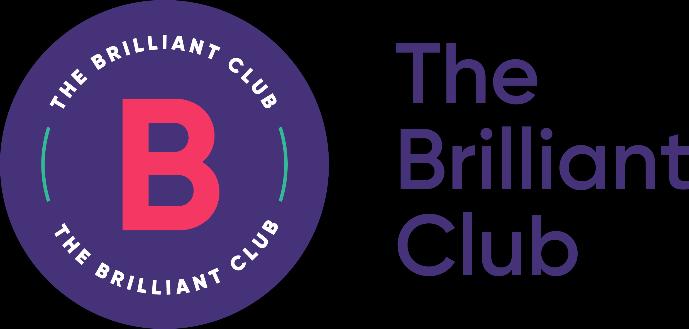
Lucy Louisa King, Worcester College, MEarthSci Earth Sciences, remote working Work Projects
I completed an internship with The Brilliant Club under the supervision of a Programme Officer for the Brilliant TutoringProgramme, which enables PhD students to provide tutorials on core subjects to pupils in schools from disadvantaged backgrounds to help them catch up and rebuild their confidence after disruptionto their education due to COVID 19. I was drawn to the Brilliant Club because my time at Oxford increased my awareness of education inequality, and I know that I was very lucky to be accepted whilst many other students from disadvantaged backgrounds miss out on such a life changingopportunity.
During my internship I helped with the creation of school impact reports, made amendments to course resources, and created resources for new tutors. I also got to learn about the new Join the Dots programme, which aims to provide support to students from disadvantaged backgrounds in transitioningfrom school to university, which interested me because I found the transitionfrom a non selective state school to a competitive university very difficult. From the start I received clear instructionsfor all tasks, kind and supportive supervision, and was welcomed warmly by all team members.
143
Daily Life
My internshipwas completed entirely remotely because this was easier for me. I was allowed to work flexible hours, so I often started work at 8:00 or 8:30 and either took a long lunch break or finished at 4:30 which gave me plenty of time to relax. My supervisor was very helpful;she scheduled regular catch up meetings to check in with how I was doing, and there was a lot of flexibility as to what time and how often I wanted to have these meetings, so I never ended up feeling overwhelmed with too many meetings in one day.
On any one day, I had two or three tasks I could work on, and I could choose how to organise my time in regard to these tasks, which was very helpful as when I was feelinga bit tired I could choose to work on simpler, more repetitive tasks, whereas when I was feeling more energeticI could work on more creative tasks. I took 5/10 minute breaks regularly to stretch my legs and give my eyes a break from the screen and takingthese regular breaks was encouraged.
Lasting Impressions
Havinga variety of tasks and getting to meet lots of different (and friendly!) team members made my short time at the Brilliant Club very enjoyable. My confidence in a working environment has definitely improved, and I’ve learned a lot more about education inequality and ways that we can begin to address it. I felt that my input was highly valued and that I was viewed as part of the team. I am soon to be startinga job as an Earth Observation foundation scientist at the Met Office, where the communication and organisationalskills I have developed duringmy time at the Brilliant Clubwill undoubtedly serve me well. I also intend to volunteer as a tutor at the start of the next academic year as I’ve learned a lot about what makes tutoring effective duringmy internshipand think I’d enjoy helpingpupils to reach their full potential.
BA English Language and Literature, Second Year Undergraduate, Remote working Work Projects
144
I worked with the University Partnerships Team of The Brilliant Club. I worked mostly remotely but also travelled to in person events as support. Since it was summer graduation seasonfor The Scholars Programme, I created ceremony PowerPoints and acted as tech lead for online graduations. At in person events, I supported the Delivery Lead and delivered a student ambassador Q&A. I also wrote a blog post detailingmy time with the organisation, and I created a briefingdocument on the Tech Lead role.
Daily Life
I worked mostly remotely, and was given flexible hours. I would usually logon at 9 am and finish around 4 pm 5 pm. I gave myself a 30 min lunch. I usually had two or three Teams meetings a day, and I was able to talk to a range of people across the organisation. After work, I’d take a long walk to stretch out my legs.
Lasting Impressions
The internshipwas an enrichingexperience and the team I worked with were so welcoming and constructive. I feel like I’ve gained skills in communication and leadership. My line manager helped me understandhow exactly the skills I gained working there would appear on my CV. It has cemented my ambition to work for a non profit.
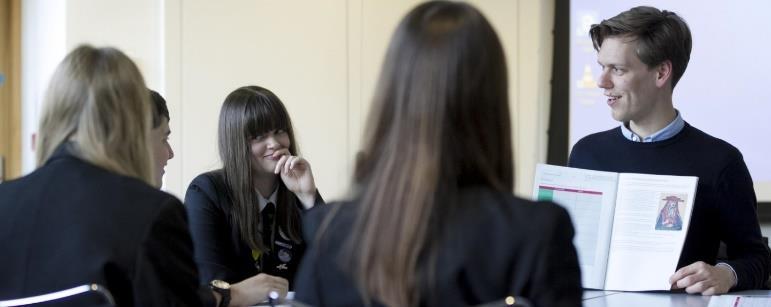
CELESTIA UK
Irem Kaki, Brasenose College, MEng Engineering Science, Third Year Undergraduate, a mixture of in person and remote working
145
Work Projects
My project was to research and develop different methods of cross correlation for the digital project team at CelestiaUK. This involved reading, reviewing and summarizingpublished literature on different cross correlation algorithms, and then implementingthese in software usingMATLAB. The initial task was to aim for a breadth of research, meaningreviewing many different methods of cross correlation without worryingtoo much about the implementation. However, due to my capabilities and the state of the academic research on this, it became apparent that depth of research (understandingand implementingfewer approaches properly) was more desirable. This is what I achieved in the end. My supervisor was incredibly helpful. He never hesitated to take time out of his own tasks to help answer my questions aboutthe theory or help me debug the code. The engineers I worked with in the office were always very inclusive when it came to describingwhat they were working on, and they did their absolute best to make sure I understood what was going on with the project. They also took time to show me how to work with the lab equipment, which was a very useful and enjoyable experience.
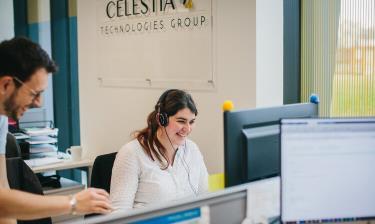
Daily Life
The internshipwas a hybrid of in person and remote, with flexibility of which days to be in the office. The usual was 3 days in the office (Monday, Tuesday and Friday) and 2 days remote (Wednesday and Thursday.) I felt that this was a very balanced model that gave us a good, social start and end to the week to get things going/wrap things up, while also allowingfor days to focus at home. I was allowed to change things around accordingto my own schedule as long as I let the office know in advance, and as longas no one was alone in the office (for safety reasons).
146
The days were 9 5 with about half an hour to an hour for lunch. I usually brought my own lunch but there is also a cafe. I usually ate with the other intern which was lovely, but we also did some office lunches when everyone had time / to mark the beginning& end of our internships. I was stayingin Oxford and travellingto Harwell via bus. There is a direct line from the city centre and it is about 40 minutes, but it's a really easy travel so it was never a problem for me. The office was small and had only a handful of people but for that reason, it was a very friendly and warm environment!
Lasting Impressions
I enjoyed the experience very much. It was very valuable in terms of professional development, experiencingthe industry and work life in general. I met great people I intend to keep in touch with, and I received great career advice from very successful and smart people. I think the highlight was how lovely everyone I met was no one was condescendingor belittlingjust because I was an intern and did not have any experience. Everyone was very receptive to all of my questions, and I got great constructive feedback from my supervisor at every step. In contrast to some internship experiences I have had / heard of, the project I was given was not just busywork it was a project that had the potentialto be actually impactful and helpful to the larger project, which made the experience so much better and more valuable.
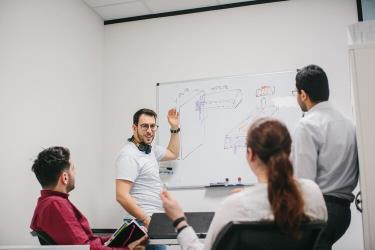
CHAWTON HOUSE (ALUMNI HOST, ST ANNE’S COLLEGE)
147
Jess Dunmore, Pembroke College, BA English Language and Literature, Second Year Undergraduate, a mixture of in person and remote working
Work Projects
I completed my internship with Chawton House, which is an organisationthat promotes and celebrates the work of early women writers. They hold a unique collection of written works by and about early women writers, and function as both a research centre for academics, and as a museum for visitors to share with them some of the histories of these women. My role was helpingwith Chawton House's Collections and Curation manager, and over the course of the internship I was involved in a wide range of tasks that introduced me to the variety of work involved in maintainingheritage organisations. I started the internshipwith archivingmaterial and creating catalogue records for newly acquired collection materials. I then worked on improving Chawton's cataloguingsystem by error checking and standardisingthe records held there to make it easier for researchers to find the resources they require. Similarly, I investigated different collection management softwares that Chawton could use in the future as they look to consolidate their collectionrecords, and conducted a photo audit of collection items throughout the house for this new software.
Through working with Chawton's trained volunteers and staff, I learnt about rare book conservation and was trained in book handling, retrieving, and re shelvingprocedures. I visited a nearby exhibition(which was due to move to Chawton) to report on its main features and reflect on how best it could be installed in the house. Finally, I contributed towardsthe research, writing, and installation of two new displays in the house, the first of which highlighted a collaboration between Chawtonand the jewellery maker, Tatty Devine, who was inspired by some of the most famous female writers in Chawton's collection.
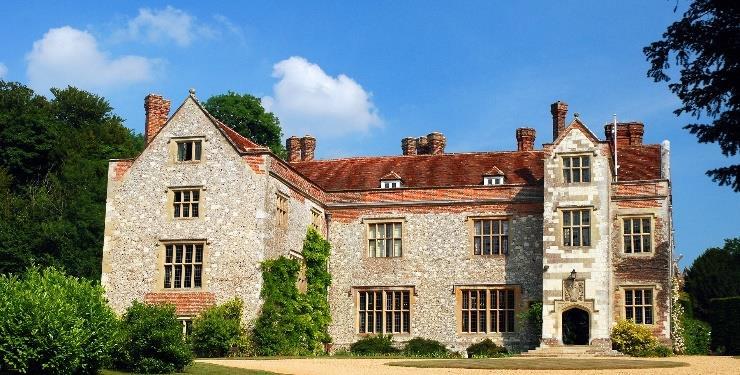
148
I co curated the second exhibition, 'Women Writing Race', with my fellow intern which focussed on the intersection of race and gender in women's writing in the late eighteenth and early nineteenth centuries. Here, we were responsible for conducting the research, decidingon the angle we would take in the display, writingthe exhibition materials, and arrangingthis semi permanent display. The support I received whilst at Chawton was amazing the Curation and Collections manager made sure we knew exactly what we were doing, and was always happy to help if we encountered any difficulties. She worked really hard to ensure we had a stimulatingrange of tasks to complete, and gave us the freedom to create out own display in the last week, which was a really rewardingprocess.
Daily Life
The other intern from Oxford working at Chawton at the same time as me was in fact one of my closest friends (we actually didn't realise that we were both doingthe internship untilvery close to the startingdate!), so most of the time we socialised together at work and sometimes in the evening. We were both stayingat the University of Winchester's accommodation, and whilst there were other students in our flat, I did not socialise much with them as were rarely in the buildingat the same time due to work.
Prior to startingmy internship, and before I knew that my friend was also doingthe internship, I had bought a bus pass for the area, so on days when I commuted into Chawton House, I took
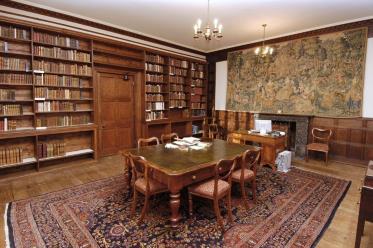
149
the bus, which took around 40 50 minutes.However, in the evenings, I usually got a lift home with my friend, who was drivingto work. All the staff at Chawton were very friendly, and
I didn't find it difficult to settle in as everyone was happy to have a chat. We decided to work remotely for some of the internship, in part due to the extreme heat (which would have made commutingand working in a small office unpleasant), and in part due to my manager's illness. On these days, I usually worked in the University of Winchester's library. The working days were very manageable, and I felt I had enough time to get out and see the city, or do my own things (eg. going to the gym, doinguniversity work) outside of these hours.
Lasting Impressions
I really enjoyed my internship at Chawton House, and I am incredibly grateful for the experience. Not only were the staff really welcoming and helpful, but they also offered me a great opportunity to see the range of work within heritage organisations. There were times when I felt as though I didn't have enough work to do, but the work I did do, particularly the curation of the two displays, was useful experience. In terms of my career ambitions, however, I think my experience with Chawton has confirmed to me that I do not want to pursue a career in the heritage sector, but instead want to remain in academia.
The parts of the internshipI enjoyed the most were the researchingparts, and, though it was a good experience in writing concisely, clearly, and for a publicaudience, I often felt frustrated when writingshort exhibition labels that I felt flattened the nuance that I love findingwhen conductingresearch. Despite the fact that the internship at Chawton has not made me want to pursue a career in heritage, I still really appreciate havinghad the opportunity to do the internship;I was previously concerned that I might be consideringacademia as a career only because it seems the 'easy' and familiar choice, and I wanted to explore what a career in
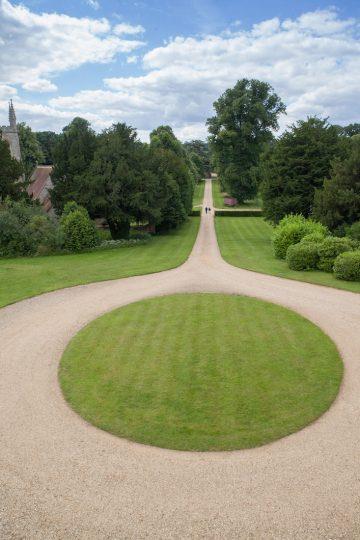
150
heritage might look like as a potential alternative. Havinghad the opportunity to do so with Chawton House, I now feel more secure in my instinct to pursue academia.
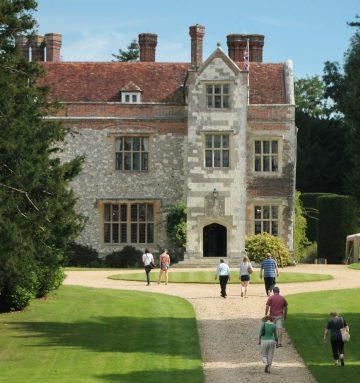
BA English Language and Literature, Second Year Undergraduate, in-person working Work Projects
I shadowed the Curation and Collections Manager at Chawton House. I started with sortingthrough hundreds of books that had been donated to the collection, cataloguing them and decidingwhich should be taken on and which should not (if they fell outside the role of the collection or weren’t of research interest). I then sorted through the research papers of a recently deceased academic to figure out where they had got to in their research. I labelled different folders so other researchers could find and use this material, and flagged things that were particularly important.
I then went through the online catalogue, doing50 pages of error checking and standardising usingcontrolled terms of the catalogue, which I was properly trained in. I was also trained in the book location system and retrievingand re shelving book handling. I then used this to get books that were requested by academics from the store, and properly shelve them afterwards.
I did a photo audit of collection items throughoutthe house recording the artefacts. I also researched and evaluated different collections managementsystems. I then put on two displays, selectingmy own themes and artefacts, and writingall the labels and interpretations! Daily Life
151
My supervisor was amazing! She was so friendly and chatty. We got lunch together and talked through the history of the organisationand got to know each other on the first day, and it really made us feel at ease right away. She also made she offered to teach us any skills we thought would be useful or important for applyingfor jobs in the future. I collaborated with the other intern on a number of projects (and lived with her duringthe internship), and we are good friends. Our combined work was really fun and efficient. To get to work I would drive it was a half hour commute each way. They were really flexible with when our hours were, and happy to let us work virtually on some days. Lots of the staff were really friendly. Some showed me their unique skills such as how to do book conservation, and how to handle rare books without damagingthe spines or causingother damage. It is a really beautiful place to work, and has lovely gardens to explore on your lunch break. There is a great view from the office. Outside of work I mostly cooked and exercised and did uni work.
Lasting Impressions
I really enjoyed the experience. The last day was quite sad. I’ll miss the place, which is so beautiful, and workingwith my manager who was genuinely wonderful. On the last day she got out all the particular historicbooks that we wanted to see from the collection just to show us. I learnt a lot about working in a heritage setting and working with collections. I am definitely consideringa career in this field. The experience of makingdisplays is particularly valuable, as I am especially interested in curation. This will all provide valuable materialfor my CV.
There are also things that will be useful for my academia, as I am studyingEnglish literature. Some of the work I didn’t enjoy as much, as it was quite tedious, and more valuable to the organisationthan us, but I appreciate that they need to get somethingout of it to, and I was happy to help. I liked the organisation, and my manager. It was fun to see behind the scenes. I
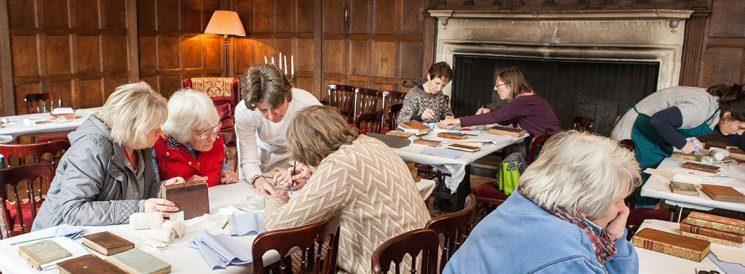
152
also understand a lot more about museums now and will look at them differently. I’m glad I’m able to test out career options, and this field really requires experience.
CLASSLIST
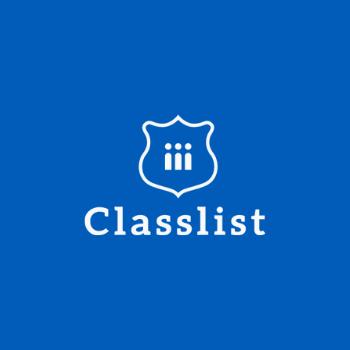
MPhysPhil Physics and Philosophy, Third Year Undergraduate, a mixture of in person and remote working
Work Projects
Classlist is a small company that provides an alternative online communications platform for school parents. The Classlist Social Media and Communications Internshipwas a flexible position, where the tasks are tailored to the expertise of the specific candidate. I had shown interest and prior experience in video editingand production, so my primary role was to create short medium length videos for the company. These videos covered a range of purposes, from marketing and advertisingvideos to guided walkthroughs of new app features. As well as creating videos, I wrote blogarticles, bug tested app updates and provided valuable research and analysis intothe company’s potential competitors and partners.
Aside from one week of in person work at the start of the internship, I worked from home. This was suitable since my work was mostly independent(recordingand editingvideos, writing articles, etc). Classlist is a small company (~20 employees), so while I was only really in frequent direct contact with the few people involved in marketingand competition, I was able to get a good feel for how the entire company operated and what everyone else’s job involved. This also meant that job roles were more open, as fewer people were available to cover the wide variety of tasks than in a large corporationwith dedicated departments. This enabledme to experience the breadth of different tasks and projects that the internship offered.
153
Daily Life
My internshipwas conducted remotely, which meant a relatively quiet day to day experience. My work was very independent, and the nature of working on individual video projects for several days at a time meant that person personcontact was less frequent than expected, with typically 1 2 online calls a day to discuss project status and provide feedback, as well as detailingnew projects and general housekeeping. This independence meant self motivation played a large role in productivity, since the absence of other people and the familiarity of your surroundings when working from home can sometimes make it hard to slip into work mode.
Havinga work project that I found interestingand enjoyed definitely played a significant role in that self motivation. To combat the threat that remote workingposes towards the blurringof the work/home line, I would simulate the things I would normally do if I were working in person:dress up smartly, don't work in the same rooms I use for leisure, follow the standard 9 5 schedule, etc. However, some homely things did help make the hours a lot more pleasant and enjoyable too, such as a cup of tea and listeningto music.
Lasting Impressions
The lastingimpression I got from my internshipis that of a brief insight into the inner workings of a small business. My tasks were enjoyable and I was definitely able to improve my video editingskillset, however, the most memorable lesson I got from experience as a whole was simply a peek into the life of a small company.
CITIZENS' ADVICE WEST OXFORDSHIRE
BA Philosophy, Politics, and Economics, Second Year Undergraduate, a mixture of in person and remote working
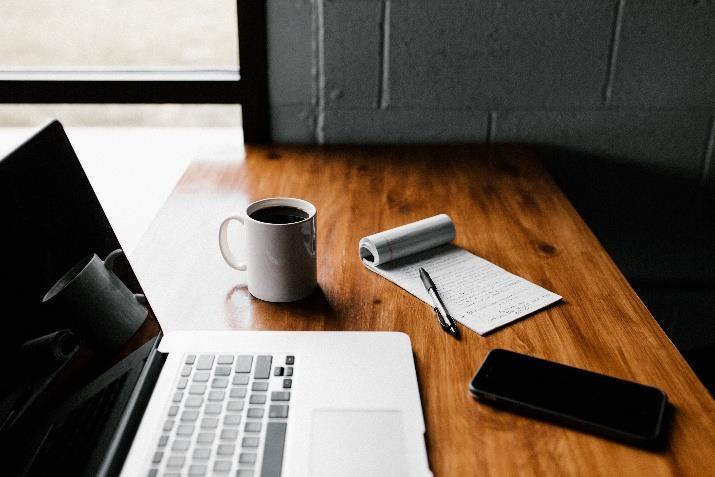
154
Work Projects
My main task throughoutmy internship was compilinga local profile for the West Oxford district. This meant researchinga large amount of information about the characteristics of the district from a range of sources including censuses and council plans. I then drew out key findings from this research about the ways in which the district was in line with the nationalpicture, and where the district departed from this national picture. I also then considered how the picture I had developed on the demographics of the district would impact on the work of Citizens'Advice in the district.
I found the opportunity to research national and contemporary trends, such as the cost of living crisis and the impact of the pandemic, in a more localised and detailedenvironment. The placement then allowed me to place knowledge I have developed in my degree and more broadly into context, and enabled me to gain a greater understandingof the practical uses of research skills I have developed in my degree. Citizens'Advice West Oxfordshire supported me in completingthis project well. I was able to go back for clarification about data sets and specific aspects of the local profile when I needed, and the brief I got at the start of the project provided plenty of resources to use as I completed the project.
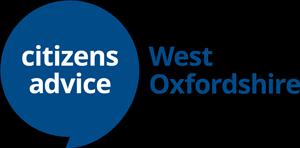
Daily Life
I undertook the internship remotely, with the opportunity to go into the office for my first and last day. Workingremotely worked well for the project I was undertaking, as it was research in which I could be mostly self directed. Support was available on Teams when I needed it, and I checked in with Citizen's Advice on the progress of the project throughout the three weeks. Citizens'Advice also organised for me to shadow some of their practical work on the last day which was incredibly valuable. This enabled me to put the research work I had been doinginto a more practical context, and develop a more in depth knowledge of the practical workings of the organization.
155
Similarly, beingable to go into the office on the first day allowed me to establish the work I would be doingimmediately, and made the subsequent remote workingmuch easier to manage. In this way, the hybrid nature of the work worked well, and I was able to develop a routine that worked for me while also feeling like I was able to develop an understandingof the organizationand feelinglike I was a part of its work.
Lasting Impressions
I really enjoyed my experience at Citizens'Advice West Oxfordshire. I was able to develop my understandingof the practical applications of the research skills I have developed in my degree and consider how they could apply to a future career path. Undertakingthe internship has confirmed my career ambitions to work in the non profit sector and to work in a role which involves research. While I'm still consideringwhat career path I would like to pursue, the internship allowed me to consider my options in more detail. Beingable to shadow work at the organisationwas especially valuable to this as I believe I was able to gain some practical insight into at least one structure a career in this sector could take. I was also able to develop my research skills which I will be able to transfer into my degree as I enter my last year. Everyone at Citizens'Advice was very welcomingand made sure I could ask questions and discuss the work I was doingand the work of the organization more broadly.
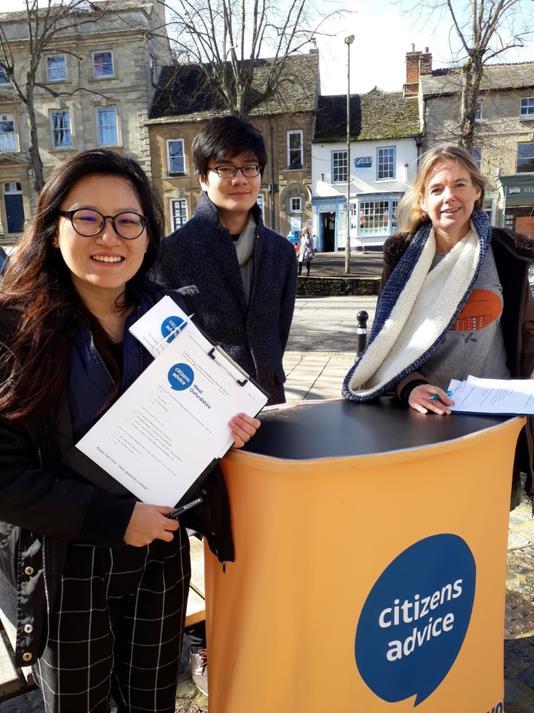
COCOA RUNNERS (ALUMNI HOST, MAGDALEN COLLEGE)
MSt English (1900-present), a mixture of in-person and remote working Work Projects
156
The internshipproject I completed related to a section of the Cocoa Runners website called Chocopedia. Chocopediais a series of pages providingeducational resources about the production of chocolate. Areas covered include science, health, diet, taste and flavour, the processes of chocolate production, geography, ethics, industry news, chocolate's impact on the environment, and chocolate's history and relationto culture. The task for my internshipwas to help update Chocopediaand complete search engine optimisation (SEO). This involved editing the copy on articles and aligningit with popular search terms, as well as editingit to improve its readability score. I learned how to manipulate texts to make them more easily findable via search engines and to make readable, effective copy. My work also involved findingand deletingduplicate content and amalgamatingarticles on similar topics into masterposts. I began my internship by playingaround with different sections of Chocopedia, writingabout chocolate moulds and white chocolate. After this, I chose to focus on the history and culture section. I overhauled the landingpage for the history and culture section. I also edited articles on many topics, includingon the history of festivals such as Halloween and Lent, and on the history of chocolate in the Aztec Empire and pre ColumbianMeosamerica. I was able to explore my own topics and wrote new articles on topics such as chocolate and the history of medicine, chocolate and religion, and an industrialhistory of chocolate. Duringmy time doingthis I also undertook other work, such as puttingtogether gift boxes for particular campaigns, and tastingchocolate at the office. I also made social media content, and did research on emerging areas in the chocolate industry such as ceremonial cacao. Cocoa Runners is a small company (3 4 people), so I met and worked closely with the whole team. We had two meetings a day where we discussed our work all together, as well as other meetings to work on particular projects. I was well supported in my work I had a lot of freedom to pursue my own ideas, but there was help when I needed it!
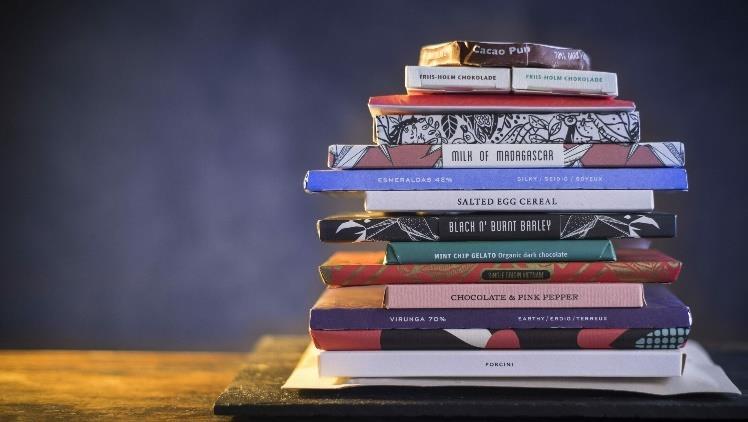
157
Daily Life
My internshipwas mostly remote. My day began at 9:30 with a morningmeeting, which the whole team attended. These meetings gave me insight into what was going on in the company and what sort of work everyone else was doing. It was really helpful as it enabled me to set a standard for my productivity that matched with everyone else's: I had clear tasks to get done before the afternoon meetingat 4:30 and by the end of the day, but it also meant I didn't feel bad when tasks took longer than expected, because I soon realised that happens to everybody! I tended to use the morningto work on whatever had come up in the morningmeeting, as well as tying up any loose ends from the day before, before gettingon to whatever else I had to do that day. I'm best at focusingin the morning, so I usually worked very hard then and took a relatively late lunchbreak. Duringlunch I often went for a walk or ran some errands, making sure to get some fresh air and stretch my legs. After lunch, I'd usually put the finishingtouches on what I'd done in the morning, ready for the afternoon meeting. My ability to concentrate tends to wane in the afternoon, so I made sure to take small breaks (e.g. five minutes of yoga, or popping downstairs to make a cup of tea), to keep my energy up. We then had another team meeting at 4:30, after which I'd finish my daily tasks before clocking off at around 6:30. I really loved havingweekends and evenings free, as it was a big contrast from full days of work. At university, you don't tend to have 'time off' and are just working all the time, albeit at a different pace. When you take time off there's always pressure and the thought that you should be working. I'll be going back to academicwork in October, when I begin my PhD, so it was really great to be able to experience a different rhythm of life.
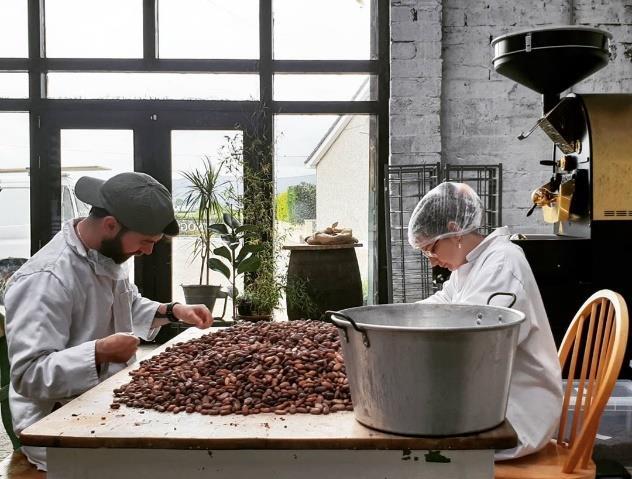
158
Lasting Impressions
I did enjoy the experience of my internship. I'd been involved with freelance copyeditingand search engine optimisation work before my time at Cocoa Runners, but that always felt very disconnected. You appeared and wrote somethingwithout really havingany context or knowinghow your work was contributingto the bigger picture of what was going on in the companies who hired you. Duringmy internship I was able to see how my work in communications and editingcontributedto the overall plan and work of the company as a whole. It really made me see that my skills in writing and editingare valuable, and helped me understand how they could be used.
I think the internship has confirmed to me that I enjoy creating content and writingand editing copy. However, I also found myself becoming slightly bored because I was always focusingon the same topic:chocolate. It made me realise that I am probably more suited to work in a marketing, advertisingor PR agency, where I could put the same skills to work for a variety of different companies and with a high turn over of topic. I think that would help me stay more interested and focused on my work. It also made me realise that the 9 5 schedule does work for me (or even better 9 2 and then finishingthings up in the evening, which was how I often ended up working in the internship). That's really useful knowledge as I can put it into practice over the next several years, duringwhich time I'll be studyingfor a PhD and settingmy own schedule.

COMPTON VERNEY
BFA Fine Art, Second Year Undergraduate, a mixture of in person and remote working
159
Work Projects
Whilst completingmy internshipat Compton Verney, I was tasked with organisingand collating information intoan excel sheet from previous exhibitions held, which was sorted into various files located close to my desk. Although this took a bit longer than expected, the process was very rewardingand gave me a clear insight into how Curators and Registrars operate behind the scenes at galleries or museums. With a flexible timetable, the option to explore the grounds and collections of Compton Verney was highly encouraged, which was great to expand my knowledge in areas such as the 'Northern Renaissance'and the 'Folk Art collection'. I was also tasked with watchingover the Folk Art collection one afternoon, which included helpingpeople around the gallery space and giving out any knowledge that was wanted.

The team also set me up with tasks to do from home, which included collatinginformationoff of the Compton Verney main website, Bloomberg, and ART UK; this information was then condensed into an excel spreadsheet for future reference. The support I received from the entire body of staff whilst completingmy internshipwas incredible, everybody was extremely friendly and always around to help.
Daily Life
As this internship was split into workingfrom home and beingonsite, I had a mixture of great experiences which came from being within the varied environments. Whilst beingin the office located just behind the main gallery, it was very easy to settle in as everyone was extremely helpful and friendly, and genuinely interestedin what I'd been studyingat university so far. Workingfrom home was completed with ease as email communication was very helpful, and clarified what tasks I needed to complete. The internship has been great to do alongside
160
deciding what to write about for my upcomingdissertation and has providedme with plenty of inspiration that I could potentially include.
Lasting Impressions
Overall, this internshiphas truly been indispensable, and has really opened my eyes to plenty of other career opportunities that I didn't even realise existed. Previous to the internship I had only considered doinga Master's in Art History, but now I am contemplatingdoingother various Masters in Curation or Museum management. The experience was thoroughly enjoyable as everyone was incredibly kind and welcoming, and the tasks I was set with completingwere interestingand thought provoking.
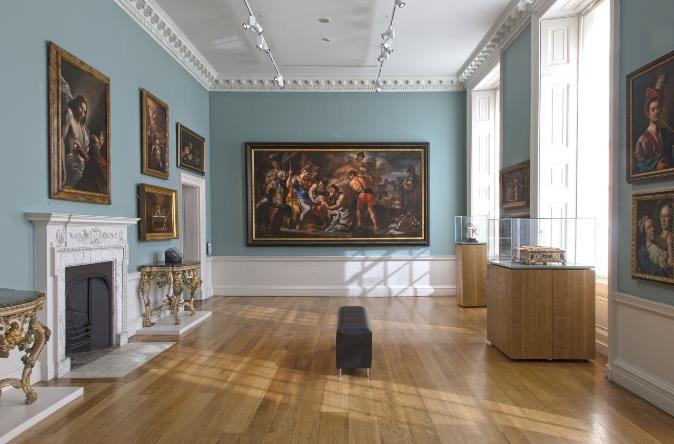
CONNECTION SUPPORT
Daniel Russel, Harris Manchester College, BA Philosophy, Politics and Economics, Second Year Undergraduate, a mixture of in person and remote working Work Projects
Connection Supportis a regional charity based in Oxford dealingwith many different aspects of homelessness. My primary task has been to conduct a review of how client feedback is currently collected, processed and used across the 40 projects run by the organisation. I conducted focus groups and meetings with over 30 employees rangingfrom senior management through to team managers and frontline workers.
I came to understandthe priorities and challenges of the various projects when it comes to collectingfeedback, and initiated and cultivated discussion withinproject teams about how feedback could be collected and used in future. There has been no uniform method or
161
guidelines for collectingor using feedback within the organisation, while its activities of have ballooned, in just a few years, from roughly 7 to 40 projects.
The internshipwill conclude with a report and presentation to senior management where I will set out my findings and recommendations on how feedback can be gathered across the organisationin future. My work feeds into the development of a Client Involvement and VolunteeringStrategy which is currently under development and will inform the future direction of client involvement within the organisation, as part of their strategic business plan.
Daily Life
I have worked a mixture of remote and in person days duringthe internship. The in person time has been particularly useful for the opportunity to take advantage of ad hoc meetings with staff to get a sense for the organisation, how it works and how it is structured. This is, after all, a significant part of my remit. The downside of in person working has been that there was no private space in which to conduct the many online focus groups and meetings that I needed to collect systematic data. Remote working allowed me to conduct these meetings from a more suitable venue but was also less stimulating. My supervisor ensured we had regular meetings to keep each other in the loop, which helped with the feelingof remoteness. People were friendly, helpful and welcoming, but there is only so much you can do when many of the full-time staff don’t know each other due to years of remote working, with consequent impacts on work environment.
Lasting Impressions
I pursued this internship largely because it built and expandedon previous work, I have done in a way that might allow me to leverage these experiences in other sectors. I think I
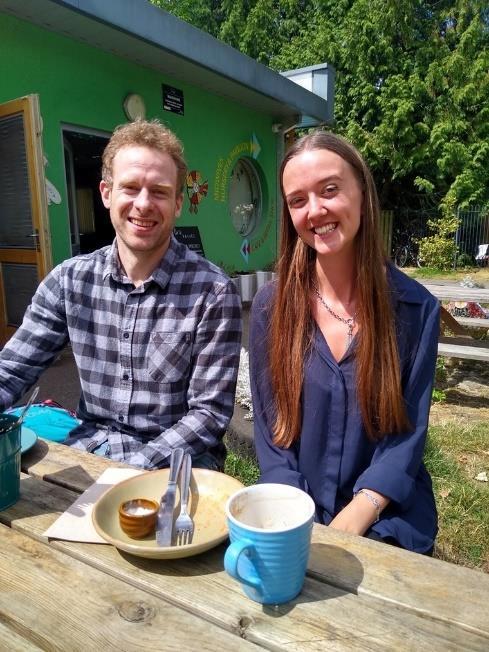
162
learned/developedquite a bit duringthe internship:I got measurably better at managingfocus groups in a way that both extracted useful systematicinformation and also started creative conversations amongparticipants, hopefully to their own benefit. I have had to design and execute my own program of work in order to achieve goals set by the employer. I will see in my final week what I have learned in terms of presentation and report writingskills.
Practical Advice
Be aware that managers may have drafted the job spec in part as a list of aspirations or taken elements of it from internal strategy documents that may or may not reflect their personal priorities. Ask questions of and listen to your interviewer about what the real priorities of the internship will be this can be especially useful if you are being interviewed by the person who would be your line manager. Once on the job, check in regularly with your manager to make sure what you are doingaligns with their goals; be prepared to be flexible.

Cara Addleman, Wadham College, BA Philosophy, Politics and Economics, Second Year Undergraduate, a mixture of in person and remote working Work Projects
My internshipwas with Oxford based charity Connection Support, researchingbest practice for nurturingEquality, Diversity and Inclusion(EDI) among their volunteers. My main task was to produce a written report, and give an accompanyingpresentation, with recommendations on how Connection could improve EDI amongvolunteers through recruitment and retention. My research for this report took place through conversationswith a wide range of employees at Connection Support, as well as with volunteers, employees of different charities, diversity consultants, and HR professionals, to seek their advice on recruiting and supportinga diverse workforce. I also attended some events, such as Volunteer Meet Ups and LEAF (Lived Experience Advisory Forum) coffee mornings.
163
I was supervised and directed in my work by the Client Involvement and VolunteeringManager; since she used to work for the Uni of Oxford’s Careers Service, in her words, ‘I should be able to run a good internship!’ (she could). I found both my supervisor, and everyone else primarily the volunteeringteam who I worked alongside at Connection Support to be friendly, supportive and keen to help, so whilst a lot of my work was self directed and independent, I felt I could ask questions whenever I needed to. After completingmy internship, I was offered a part time positionas Volunteer Coordinator for the rest of the Summer; I have also been asked to participate in an organisation wide presentationabout EDI work takingplace at Connection Support later this month. Connection has been really flexible in allowingme to perform this role remotely, since I no longer had accommodation in Oxford, and has continued to be a supportive and friendly workplace.
Daily Life
My internshipwas based in Cowley, Oxford, so I lived in Oxford for a month from July to August. I lived for two weeks at a friend’s house, and then for two weeks in college accommodation, and cycled to and from work. On a couple of occasions where I had to travel for work to
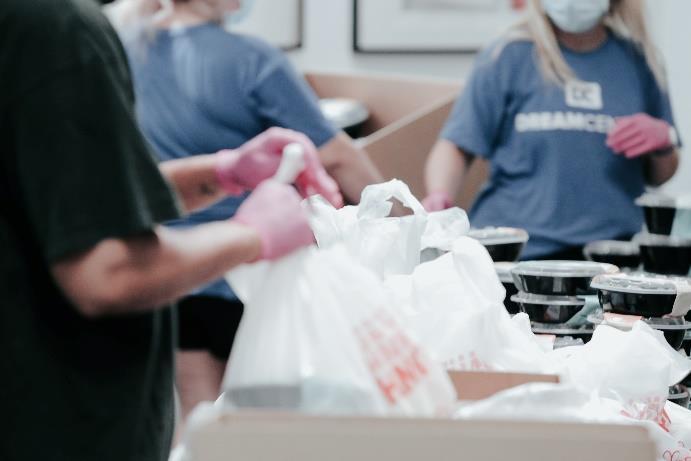
Volunteer Meet Ups, I took publictransport and Connection Supportreimbursed this cost. My working day would generally consist of some meetings, many of which were organised for me to ask questions relatingto my research project, independent research, and occasional travel to in-person events.
Everyone was very friendly at ConnectionSupport, and so I came to know a circle of other employees who were regularly working from the office, who I would chat to whilst at work. However, because much of Connection’s work (e.g. meetings) is still takingplace virtually, and the volunteer team is spread across Oxfordshire, Buckinghamshire, and MiltonKeynes, those I worked alongside mostly did not align with those I got to know in person from beingin the
164
office together. Therefore, most of the socialisingI did outside of work hours was with friends who came to visit me, rather than colleagues;most weekends I spent with people coming to visit.
Lasting Impressions
My lastingimpressionsfrom my internshipwith Connection Support are really positive. I enjoyed the project I worked on, and feel I learned a huge amount about the charity sector, EDI, and HR/ recruitment more generally. For example, I knew very little about charities that are funded by local authority tenders (I was more familiar with big name charities that are primarily funded by donations), and so it was really interestingworking with such a charity and learningabout how beingfunded in this way shapes their work. Connection Supportis also a really interestingorganisation to work for because its services span such a large breadth of support, includinghousingand homelessness, mental health, ex offenders, and refugee services. Working for four weeks on a research project was also a really valuable experience, since my degree is structured such that I write two essays a week, so have never spent more than 3 4 days on a piece of work; it was rewardingto be able to produce somethinglonger that was the culminationof a greater amount of time and thought.
Additionally, the internshipgave me opportunity to develop my presentationskills, which is also somethingI don’t do in my degree. I think my time at Connection Support did confirm that I would be interested in working in the charity sector, although I remain unsure about what more specific work I would like to seek; since my internship centred on a specific project, it couldn’t really be extrapolated into a full time job, and is very different from the work I am doingnow as a Volunteer Coordinator, for example. Overall, I definitely feel I gained from this experience, and would highly recommend the internship programme.
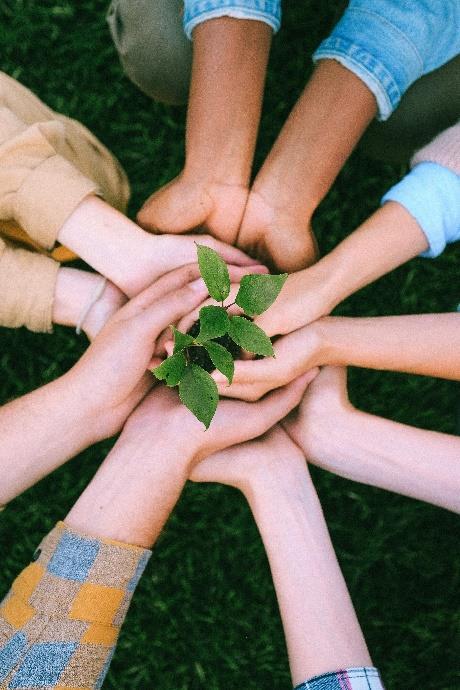
165
COPLEY POINT CAPITAL (ALUMNI HOST, NEW COLLEGE)
Ella Lord, Brasenose College, MEng Engineering Science, Second Year
Undergraduate, in person working Work Projects
The support from Copley was excellent and I was instantly made to feel part of the team. It was clear if there were any questions I had the team were available and willingto help. My main tasks included research, updatingpipelines, carryingout modellingand assistingcreating information materials for live deals. The main achievement was getting to grips with the modellingwhich underpins the company's decision making.
Daily Life
Arrive at 8:30/9am and check up on e mails and tasks completed from the day before. Often ad hoc task will be assigned to you throughout the day to help with work the associates and analysts are doingon live deals. If not, I would continue with my more long term research/ modellingprojects. The interns would sit in on important team meetings or meetings related to deals they have been assistingwith for learningand information purposes. Leave at 7pm (time varies dependingon work flow and business).
Lasting Impressions
I thoroughly enjoyed the experience. I gained a lot from this internship it has confirmed I would like to pursue a career in finance. Mike and the team organised social time after work and even a team day out. It was such an excellent balance of hard work and team bonding. I cannot speak more highly of this company's team atmosphere.
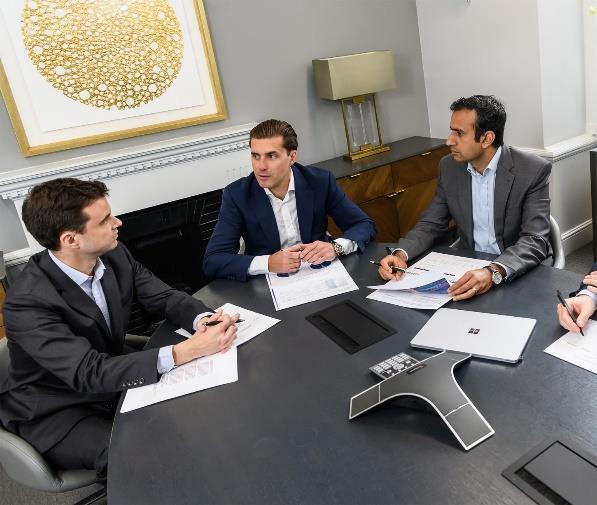
166
Practical Advice
Firstly, be prepared to learn on the job and not know everythinginitially (and that's ok!) there is a lot of informationto take in. Secondly, I got the most out of the internship by also being inquisitive about the work the team was doing. Be prepared to ask questions(obviously at appropriate times), or even ask to schedule in time with a team member to ask questions/go through a task. This requires you to be pro active. Thirdly, you must be able to manage your tasks and deadlines as there will be multiple things goingon at the same time. I would be happy to give any future interns advice.
DITCHLEY FOUNDATION
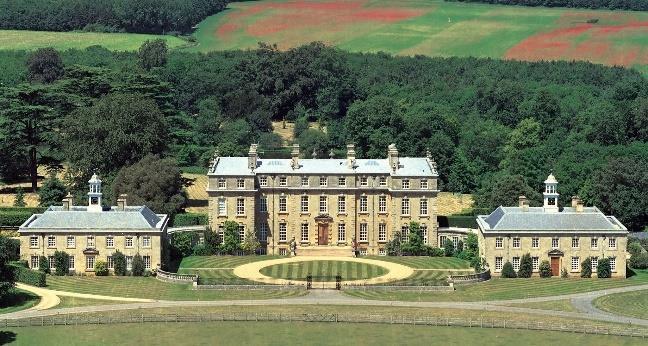
(THE)
Ana Diamond Aaba Atach, Balliol College, MPhil in Modern Middle Eastern Studies, remote working
Work Projects
Ditchley Foundationoffered three different tracks for incominginterns. Interns, many of whom were from Oxbridge and Russell group universities, were then allocated to these three tracks, which included 1) Networks, 2) Archives, and 3) Heritage. Each track was different to the other, although at times there were some overlaps. I was assigned to work in the Archives team, alongside four other interns.
My internshipproject entailed goingthrough the extensive and historicDitchley archives, all the way from 1962, and readingthrough the Conference notes and Director's notes. I conducted an archival analysis of the dominant themes/issuesbrought up in these conferences, such as climate change or the role of technology in our daily lives, and study the evolution of thought and approach toward these themes at Ditchley. For example, Ditchley hosted many conferences on the topicof Urban Development. However, their approach and priorities were different in 1970s than they perhaps are now.The interns'duty was to review this change and
167
analyse how the problems were address, what solutions were offered, and what has been different since then.
As a graduate student researchingthe Middle East, I chose to focus on the topicof Modern Middle East. The Middle East is unquestionably the most discussed region in the history of the Ditchley conferences, with well over 100 discussions held since 1962 that either directly address issues of the region or topics that broadly concern the region. I reviewed over 20 conferences, many more scholarly papers, did background research on all the conference participants(many of whom are renowned politicians, diplomats, business professionals and academics), and then wrote a comprehensive report on my findings (5,000 word report). This internship requiredthe interns to be very independentand initiate their project within their own timelines, interest, and ability. The support team, however, were always there if needed. They were also very accommodatingif you needed extra guidance or time, and our point of contact was always available upon email or call.
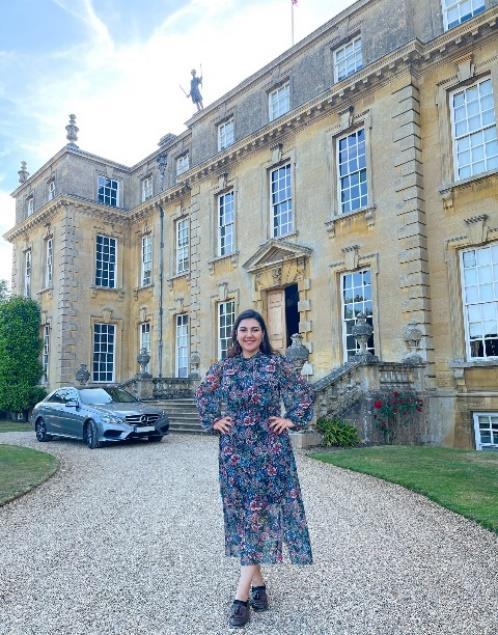
Daily Life
This was a part time role, which meant that I worked from 9 until 2pm from Mon Thur. It worked out well while I was still in Oxford, but duringmy travels this got a bit complicated. I would occasionally work more than 20 hours per week, but the beauty of it was that I could work at any time that was convenient for me.
168
Lasting Impressions
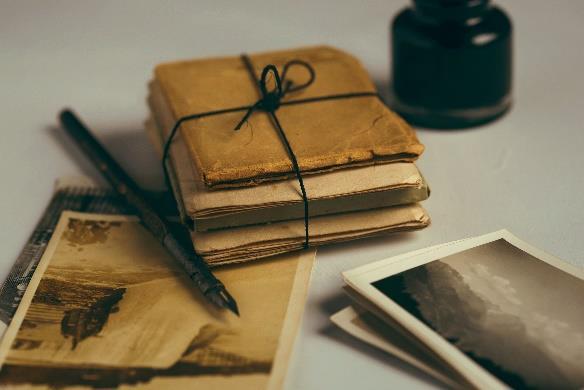
I enjoyed the experience very much, although I hope there would have been more opportunities to meet the other interns, our seniors, as well as the important people that make Ditchley what it is a global hub where connections are made, problems are addressed, ideas are born and solutions presented. One of the more memorable days of this internship was when I was able to listen to Sir Tony Blair talk in person, and I briefly met diplomat Richard Moore in passing. For someone at the beginningof their career in politics and diplomacy, this was very excitingand motivating.
Practical Advice
This is an excellent internshipif you are interested in history, archival research, and have an eye for small details when going through vast number of dense documents. I certainly felt like the internship improvedmy critical thinkingand analyticalskills, and it also kept me sharp during the summer holiday with the intensive levels of readingand writing that was required.
Noah Hudson, Worcester College, BA Philosophy, Politics and Economics, Second Year Undergraduate, remote working Work Projects
My internshipwith The Ditchley Foundation consistedof two main streams of work. The first was their 'ExistingNetworks' programme in which I was tasked with researchinga range of influentialpeople who may be of interest when planningDitchley's future conferences. This area of work was all about formulatingnetworks between people who may not otherwise collaborate to tackle some of the world's most pressingissues. It consisted of open source research, gatheringqualitative informationabout individual's careers, areas of expertise and any relevant organisations they had worked for. Categorisingthese individualsinto their areas of expertise allowed us to formulate a database of the networks that are so fundamental to the work that Ditchley does.
169
The second strand of work was the 'Quants' programme. This involved an evaluation of Ditchley's current network database, attemptingto highlight any areas for improvement and exploringthe ways in which the database could be utilised most effectively. A large proportion of this work involved usingCypher code to investigate the database. Little experience with coding was required and plenty of support and inductionmaterial was available in the first few weeks whilst we became familiar with the system.
The two strands of work complimented each other nicely with a good balance of qualitative and quantitative skills beingappliedto analyse, expand, and ultimately improve the networks that Ditchley has created. There was also a blend of individualand group tasks as we were responsible for our own research on the Networks programme but were often tasked with presentinggroup findings in relation to the work on the Quants programme. I found this to provide a nice variety of roles and responsibilities.
Daily Life
Given that the internshipwas completely remote, I was slightly concerned before hand that I would struggle to feel fully immersed in the experience and thought it might be hard to get to know other interns on the programme. However, shortly before the internship, we were invited to Ditchley to have a look around the grounds and this provided the perfect opportunity to meet those who we would be working with for the next six weeks and get a feel for the organisation. This ensured an easy transition into remote working as we were familiar with each other and didn't have to introduce ourselves for the first time on zoom!
The internshipwas part time so on the days I was working I would have 1 2 45 minute zoom calls to attend where we would be presentingour research for the week, raisingany concerns
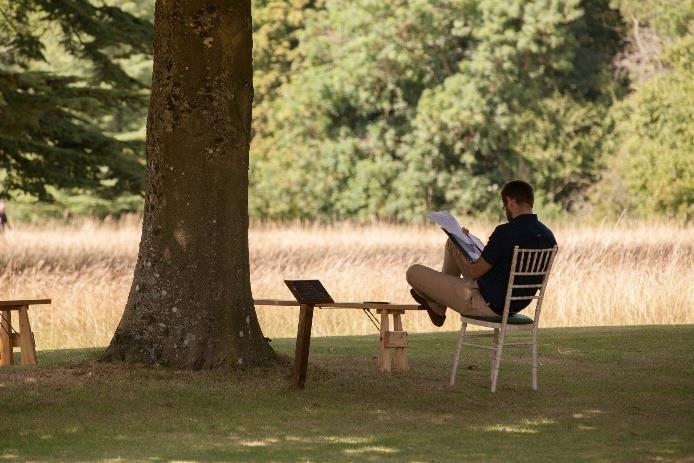
170
or questions that we might have found. Aside from the calls the research tasks were largely independent so I would fit these around any other plans I had throughoutthe week. I found the flexibility was really good as it allowed me the opportunity to create a good work life balance, meeting my friends and spendingtime outside away from my computer.
Lasting Impressions
Overall, I found the internship really rewarding. I have developed my quantitative skills as well as my knowledge of networks and open source research. It was a great way to connect with other interns who have similar interests to myself and I am sure that we will stay in touch (there is an internship alumni programme at Ditchley to facilitate this). I have acquired plenty of transferable skills and have been exposed to many people and organisationsthat Ditchley is in contact with that are aimingto bridge divides and tackle some of the most important issues faced by the world. I am unsure of the exact career path that I will take but feel as though this internship has given me great exposure to what is out there and would encourage others who aren't sure what they will do after university to consider this programme as well. There are many things to like about this opportunity but those that stand out to me is the supportive environment, the flexibility, and the opportunity to broadenyour horizons across many different fields.
ENTERPRISING OXFORD
MSt Women's, Gender and Sexuality Studies, a mixture of in-person and remote working
Work Projects
As part of my internshipwith EnterprisingOxford, I conducted an overview of the enterprisingactivities currently ongoingacross the 22 universities that are part of the Russell Group in order to compare the University of Oxford's entrepreneurshipecosystem. I also consulted on how EnterprisingOxford can actively incorporate

171
equity, diversity, and inclusion into its programmingthrough the IDEA (Increasing Diversity in EnterprisingActivities) project that supports women entrepreneurs. One of our main projects was changing the social media and communicationsstrategy for EnterprisingOxford, and I provided feedback on how to improve the website structure and content and boosted the organisation's social media presence on Twitter and LinkedIn.
I am particularly interested in advancingequity, diversity, and inclusionat Oxford and therefore also created a resource list for entrepreneurs lookingto embed EDI into their business and offered new ideas on how to run an inclusive competition and workshop for start ups and other early stage business ventures. We also completed data collection for a future analysis on the state of gender equity in inventionsand start ups emergingfrom researchers and students at the University of Oxford. As interns, we were exposed to numerous projects throughoutthe Innovation & Engagement division and was well supported by other colleagues in the office working on different portfolios.
Daily Life
The internshipwas in person for the first two weeks as we got settled in and learned the layout of the office, as there is a current office reconfiguration ongoingfor the team as well. Since the internship took place at the Robert Hooke Buildingbeside the Natural History Museum, I was able to walk to work every day on the days I was working in person which made for an easy commute. The other interns and I would take our lunch break together and we socialised with the other members in the office who introduced their work to us in accessible ways. I much prefer remote working and thus when I worked at home, I was able to regulate myself better and complete my assignments in time and attend any necessary meetings online. This also allowed me to focus on my work as it did not have the distractions that are present in an office environment. The internship at EnterprisingOxford was very flexible and therefore I was able to complete my work without an excessive amount of
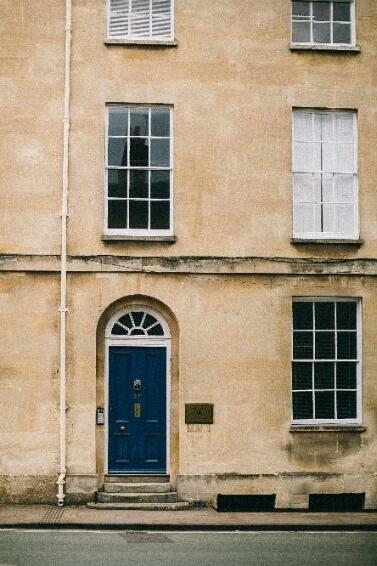
172
supervision, which as a postgraduate student I appreciated, and the 6 week timeline allows me to enjoy the remainder of my long vacation before I begin my studies again.
Lasting Impressions
Although I enjoyed my internshipat EnterprisingOxford, it did not directly contribute to my academic aspirations as a researcher in the humanities and social sciences but did give me the chance to apply my knowledge of equity, diversity, and inclusionpractices in the workplace to a growing organisation. As of now, I would like to continue my career in academia as a researcher and academic but knowingthat the research, innovation, and engagement structure exists at large universities like the University of Oxford, I could see myself working as part of the university in a non academic role as well. I have learned that I prefer remote working compared to in person working, as I have had previous experiences that are both fully remotely and fully in person, and this was my first time in a hybrid role. If given the option, I would choose remote working as I feel I have a more flexible schedule as a remote worker, and it would benefit my mental health and energy were I to control my own work schedule while at home but nonetheless completingall my tasks.
GLOBAL CENTRE ON HEALTHCARE AND URBANISATION, UNIVERSITY OF OXFORD (ALUMNI HOST, KELLOGG COLLEGE)
Qingyang Zhang, Mansfield College, MPhys Physics, First Year Undergraduate, remote working Work Projects
I worked as a programmer analyst for the Preventable Deaths Tracker website. I looked at prevention of future deaths reports from the UK judiciary website, scraped the data, analysed

173
them, produced figures, and updated them onto the website. I also developed a questionnaire to digitise the data collection of the preventable deaths reports, as well as producinga report detailingthe mistakes on the judiciary website. I am writing a commentary showcasingmy findings in the hope of publishingit in a medical legal journal.

Daily Life
I set myself strict working hours and stuck to it, promisingmyself to not work outside of these hours. I would take long walks between work sessions to wind down and be close to nature.
Lasting Impressions
I learnt more about academia and developed pythonand website development skills. It made me a more resilient person and taught me how to interact with my supervisor in a professional way. I am still in the early stages of consideringmy career, so I still don't have a definite career aspiration.
MPhil, Evidence-Based Social Intervention and Policy Evaluation, a mixture of inperson and remote working Work Projects
I worked on several social media related projects and helped edit research reports. For social media, I developed a strategy for an event which I then posted on Twitter on the day of the event. I also conducted research on how to come up with a social media strategy. In terms of report editing, I got to read through and provide edits for two different research reports
Daily Life
I mostly worked remotely because I had a better work set up (dual monitors mainly) in my room compared to my internshipsite. Because I was doinga lot of reportingediting, the dual
174
monitor was necessary and luckily my internship host was very flexible and allowed me to do this.
Lasting Impressions
I really enjoyed the internship. I don't think I gained much in terms of new skills because my projects were not very challenging, but I enjoyed them regardless.
GREEN SALON
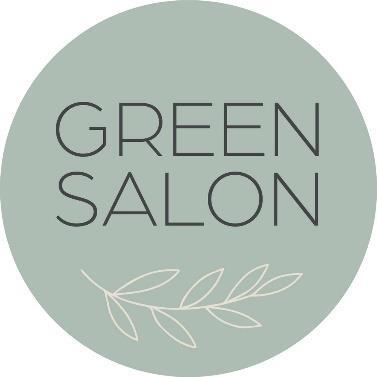
Kirsten Fletcher, Hertford College, BA Geography, Second Year Undergraduate, in person working
Work Projects
I completed the Summer Internship Programme at Green Salon SustainableLifestyle Consultancy. Green Salon researches and analyses the policies and practices of clothingand lifestyle brands according to its own sustainability criteria, and those who fit the criteria are promoted on the Green Salon shoppingdirectory and social media. It also offers a coachingservice to those who want to transform their home and lifestyle consumptionto become more sustainable. For the first half of my three week internship, my job was to analyse as many companies as possible and reach out to those who passed the criteria for affiliation.
The criteria I was researchinginvolved carbon and offsetting, raw materials, agricultural policies, labour rights, circular practices, investments and more. I was given a list of companies to look at, which had been seen in advertisingby my colleagues or heard about through social media/word of mouth, but I was also invited to find my own or analyse companies I knew myself as longas they fit the Green Salon ethos and branding. I then wrote a couple of posts for Green Salon's blogabout some of the companies I had approved.
175
I spent my last week with the Social Media Assistant creatingcontent for Green Salon's Instagram and TikTok. I was working with two colleagues the founder and Social Media Assistant, and my first two days also overlapped with another intern. They were both incredibly welcoming and supportive. The work was mostly independent, so the three of us would sit together but each working on somethingseparate, but could call on each other for suggestions, help and discussion. Lucy was incredibly flexible with my dates and hours, and with any days I had to work remotely, which I really appreciated.
Daily Life
I was stayingin NottingHill for the duration and workingin Parsons Green, so I took a short tube to the Green Salon 'office' for 9am (which was the kitchen table in the founder's home, but works very nicely for a small team!). The tube was always nice and quiet because I was going in the opposite directionto most commuters. My colleague Charlotte would always offer to make me a coffee and let me know what she wanted me to start with on that day. I'd usually spend the morninganalysinga couple of companies and sendingtheir PR team an email if they were approved (which usually didn't happen, as the criteria is rigorous). The work was mostly independent, so the three of us would sit together but each working on somethingseparate, but could call on each other for suggestions, help and discussion.
The founder, Lucy, would always make lunch for the three of us and we'd eat together. (For the second half of my internship, her children were home for the summer holidays and would eat with us, I loved havingthem around). I'd continue workingfrom around 1 4pm and then take the tube back. I'd spend the evenings either socialisingwith other friends who were in the city (mostly also for internships) or workingon my dissertation.
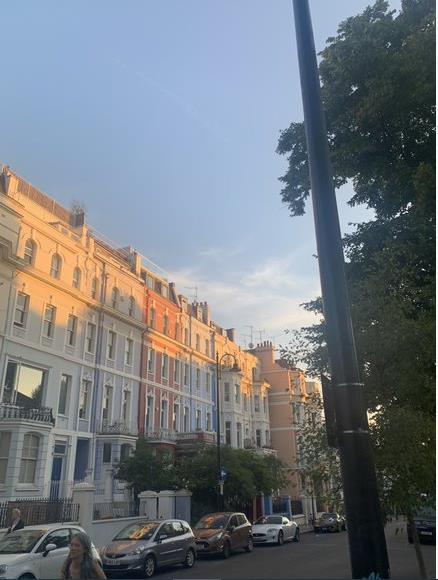
176
Lasting Impressions
I definitely enjoyed the experience and valued the opportunity to apply some of my academic knowledge and context to a more 'real world' cause. I learned a fair amount of practical knowledge, mostly about REGO schemes and carbon reportingloopholes, and always value the opportunity experience a new workplace and understandits standards and culture. I also loved the opportunity to spend the month in London, which I wouldn't have been able to do otherwise and was an interestinginsight when consideringwhether to live work in London post graduation, as many grad schemes are based there.
HERITAGE ALLIANCE (THE)
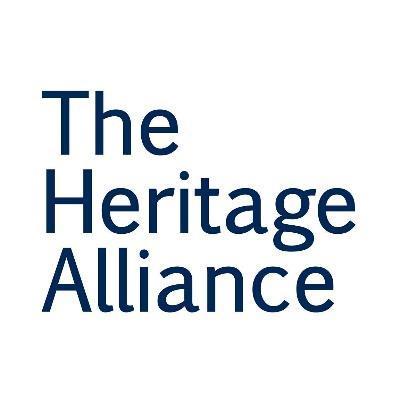
MPhil Traditional East Asia, a mixture of in person
and remote working Work Projects
This internship was in the Policy and Communications department of The Heritage Alliance (THA). This was a small team of two permanent workers and another intern. I would have a meeting with them weekly and a meeting with the whole permanent staff (approx. 10 people) weekly. I was also invited to sit in other meetings to learn about other projects and how the organisation is structured. I further had two or three meetings a week with my direct manager, to discuss work done and ask any questions. I met the Policy and Comms team twice in person over the internship, for an in person working day. The team were very warm and welcoming, and I immediately felt quite comfortable in my position. My main tasks were researching Ministerial backgrounds and heritage attractions in their areas, going through two months of parliamentary business to look for heritage projects, doing research and analysis on heritage stakeholders, building a contact list, and working on a heritage newsletter. I also did assorted research and other minor tasks, such as choosing the Christmas card image!
Daily Life
I only met THA staff in person twice; one on the first week and once on the last. This was due to an unexpected problem with the offices. When we met, everyone was supportive and generous, particularly my manager and the Policy and Comms team. I stayed in London and travelled to work by
177
tube on those occasions. I visited home on the weekends. I socialised with friends and family. I found working from home to be occasionally difficult, and certainly not my preference; it could get somewhat lonely on days that there were no meetings, although I enjoyed not having to travel far to work! This was alleviated by visiting local cafes and working there for a period when I felt a little low. I would generally work 9 5, so as to have more time in the evening, the majority of colleagues worked 9:30 5:30. Outside of work, I usually took an hour or so to wind down and visited friends when possible. I also spent time with my family in London when I had the energy.
Lasting Impressions
I very much enjoyed the internship. The only downside was being at home much of the time, which could be stifling. This was not THA's choice or preference, just bad luck with the office contracts. I went into this internship with experience of a different aspect of the heritage sector, and my goal was to try to understand a more business, policy and commercial aspect to heritage. This was definitely achieved. I learned a lot about how organisations work with the government to form policy objectives, as well as what is of concern to different bodies within the sector. I already wanted to work within the heritage sector, but I didn’t really know enough about it to know where. I now know that I would enjoy a communications role, or a policy forming role within a heritage organisation. I also have discussed going into the civil service with some colleagues who themselves went in first and were interested in that.
INNOVATION GATEWAY
BA Economics and Management, First Year Undergraduate, a mixture of in person and remote
working Work Projects
I was introduced to a variety of work such as helpingmanage press releases, research tasks around growingsectors, competitor analysis, helpingwith operations and strategy, marketingtasks or writingdifferent blogs on topics in the sustainability sector. I received a lot of support especially from my supervisor,
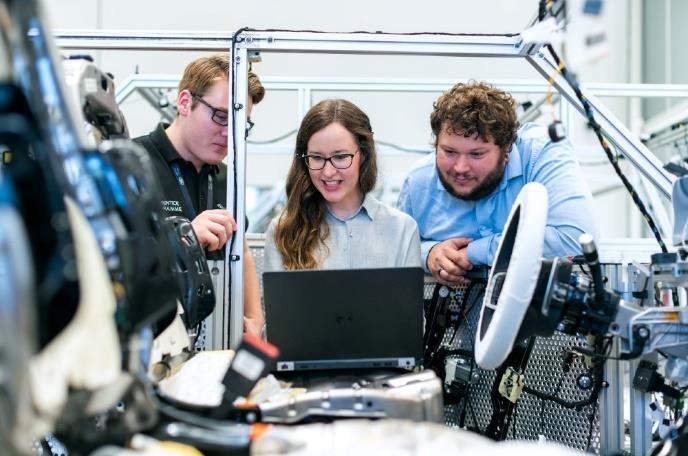
178
who would always accommodate me if I wanted to try a new or different task, and the team was very welcoming and interesting, very passionate aboutthe work they were doingand happy to talk about anythingsustainability related.
I also helped with the launch of an HGVzero group as well as the closure of an EVzero action group, which gave me great insight into movements in the sustainability sector and the space which different organisations are occupyingto come together to work and address issues rangingfrom buildingEV charging points together, or choosingwhat technologies to further explore. I also gained insight into the world of sustainability innovations, whether it was additives to radiators to make them more effective, or the use of HVOs as fuel in vehicles.
Completingcompetitor analysis and helpinglay out a strategy for a HEATzero action group also gave me an idea of how change can be organised in a practical business setting.
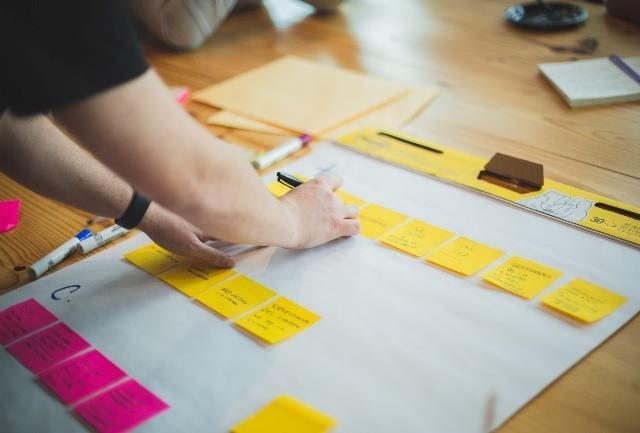
Daily Life
Whilst I was working in person, I would enjoy getting to work at 9am, settlinginto a collaborative workingspace, often meeting with my supervisor to organise my tasks for the day and then get to work. This included a variety of tasks such as helpingmanage press releases, research tasks around growing sectors, competitor analysis, helpingwith operations and strategy, marketingtasks or writing different blogs on topics in the sustainability sector. These tasks would vary every day dependingon the needs of the organisation as they had quite a flat, start up structure and therefore needs differed each day. I then had lunch with the team which included another Oxford intern. I would then work until 5:30 and cycle back to a house I was sharing with other Oxford students.
During my remote work, I would manage my time by takingshort coffee breaks between zoom meetings or tasks in order not to spend too long expanses of time stuck on a screen, and also
179
take an hour for lunch to have lunch with my family. I would generally switch off from work at 5:30, or earlier if I finished my tasks but ensured I stayed reachable until 5:30.
Lasting Impressions
I very much enjoyed the internship, and it gave me a good appreciation of a growing sector and one which relates to my subject and areas of interest. Studyingeconomics and management I am very interested in the policy aspects of the sustainability sector, and this internship placed me at the forefront of how this affects organisations and what they are enabled to/ incentivised to do whether this was how innovators were helped and propelled forward, or whether it was regulations pushingorganisations to reach more ambitious sustainability goals and therefore join the action groups which Innovationgateway had set up. The internship has incentivised me to pursue a career in this sector due to its importance in the world and the fact that it is greatly growing.
INSPIRITUS HEALTH
Alec Berry, Balliol College, MEng Engineering Science, Third Year Undergraduate (of a four year course), a mixture of in person and remote working
Work Projects
My internship project was with Inspiritus Health, a medical engineering start up that aims to reduce the amount of time that patients in intensive care wards spend on mechanical ventilation. Within a week of being placed on mechanical ventilation, patients can lose over a third of their respiratory muscle mass. This leads to 40% of their time on ventilation being used to gradually rebuild the muscle tissue by weaning off the ventilator. At Inspiritus Health, we are designing a non invasive medical device that will prevent muscle atrophy while on a ventilator, thereby significantly reducing the time spent on a ventilator. My tasks revolved around designing a system that can determine the strength and fatigue of the respiratory muscles. This will provide live data to clinicians that they can use to make a more educated decision for when to remove a patient from ventilation.

180
First, I identified possible methods of determining the strength of the respiratory muscles, and found research papers that supported my hypothesized method, and confirmed its viability. After this I successfully created a prototype to record the relevant biomedical signals and had moved on to processing the signal to extract the useful data that clinicians could use. Mihir Sheth, CEO of Inspiritus Health, helped and guided me throughout the process. I was provided with any prototyping equipment that I required for my portion of the project, and Mihir gave me great direction to ensure I tackled problems sequentially, so we were able to clearly track the progress of the prototype.
Daily Life
My internship began with a meeting in the Thom building where the team met and got to know each other. There, were introduced to the project, and discussed what we wanted to achieve from the internship. The internship was a hybrid of online and in person working. We had a weekly meeting on Wednesdays in the Royal Academy of Engineering in London, where we discussed problems we were facing and worked together to solve them. The rest of the time was spent working from home, with morning and afternoon calls where we could give update on our progress and help each other.
I enjoyed this experience, as it gave me the flexibility I have during my University studies while maintaining good contact with the team through the frequent online meetings, and we developed good relationships through the weekly meetings. While working remotely, I would work through the morning from 9:00, when we had our morning meeting, until 12:30, when I stopped for lunch. I then worked more before our ‘power hour’ meeting from 14:30 until 15:30. After this, I continued to work until the end of the day at 17:30. To relax afterwards I would either go cycling or row.
Lasting Impressions
I really enjoyed my experience at Inspiritus Health, and would highly recommend working there. I gained a great insight into how a start up works, and the difficulties that they face. In particular, I learnt about the roadmap of taking an idea through prototyping to generate investment, and to iteratively improve
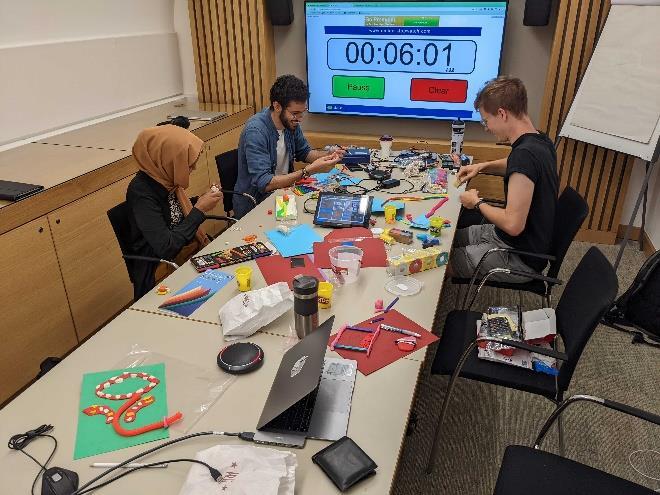
181
the product until the final design is reached. This was a great real life application of the product development strategies, such as the Lean Start Up Cycle, that were taught in the B2 Engineering in Society course this year. Initially, it was easy to get caught up in trying to jump towards making a fully functioning product before establishing the groundwork. However, I quickly learnt just how important it is to produce Minimal Viable Products in order to verify functionality, before trying to make a higher level design.
My experience has encouraged me to work in the start up industry, as I enjoyed the varying challenges that are involved, from creating a Business Plan to holding meetings with practicing clinicians. I have a particular interest in Biomedical Engineering, which has only been reaffirmed by this experience. I plan to continue to work in this field in the future, having chosen my 4th year C paper options to reflect this.
Practical Advice
I'd advise any future interns to make sure they keep a good work life balance when working from home.
INSTITUTE FOR JEWISH POLICY RESEARCH
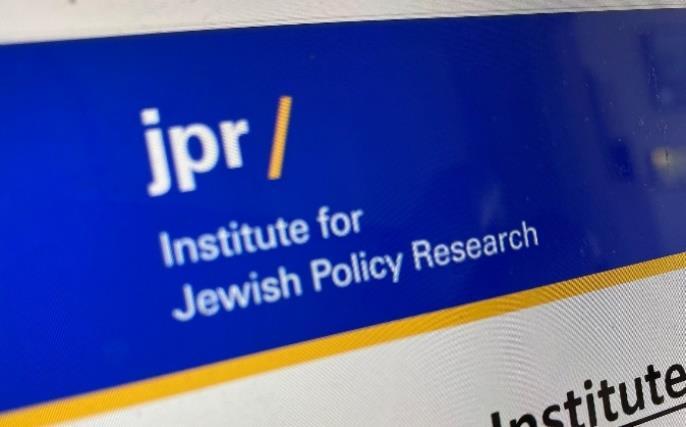
Ruby Shaya Cooper, Somerville College, BA Philosophy, Politics and Economics, Second Year Undergraduate, a mixture of in person and remote working
Work Projects
Prior to my internship, I was invited to an in house trainingsession on survey methods, which was very useful and also allowed me to meet the team before starting. I was primarily working on a dataset with Charity Commission data. Prior to me startingmy internship, JPR researchers had worked on identifyinga list of key words to pick out Jewish charities, as well as a list of words that are 'flags', and pick out charities to be manually assessed. In my first week, I worked on cleaning the data. This included selectingrandom samples to manually check the reliability of the automatickeyword selection, as well as a count check to manually check the
182
largest charities. I also completed a small literature review on the work that has been done so far on the Jewish charity sector.
Aside from this, my first week included takingpart in a team meeting, and doinga short introductionfor others to learningR. In my second week, I had to start by finishingpreparing the sample. This included finishingmanual checks. Alongside this I prepared a list from the literature review of possible tables, graphs, and analyses that I could do with the data. By the middle of the week, the sample was finalised and I began to start making tables from the data. I used pivot tables to start the process of data visualisation. Further to this, I joined a meeting with a researcher from the Jewish Leadership Council, in which we discussed the survey that they had done of large Jewish charities. I communicated the purpose and scope of the JPR Project's data, and talked over the prospects for data analysis on the survey sample. In the middle of my second week Carli, who I had been working with, offered me an opportunity to be a JPR Research Student, which entails up to 40 days of paid work for JPR throughout the 22 23 year.
Throughout the followingweek, I thought about and communicated that I would love to take up the work but would only be able to commit to 20 days before my final university exams. This was then agreed, and included a few extra days directly followingthe end of my internship to finalise parts of the project. In my third week, I began with preparingdata visualisationand analysis from the JLC survey data. I prepared a presentation for the next meetingwith the JLC researcher. I then led that 2 hour meeting in which we discussed the data we could see, and improvements. Throughout the meetingI altered the graphs and identified data in order to respond to requests from my colleague and the JLC researcher. The meetingwent extremely well.
Later that week I discussed with my colleague that the best way to wrap up my work (for now) would be to create manipulatable pivot tablesthat could be changed in response to the table/graph that was needed. I set to work on creating those pivot tables, towards the end of
183
my third week as well as the two/three additional days the followingweek. My final week also included a day's trainingon cognitive interviewingwhich was very interesting.
Daily Life
I live in Brighton, and moved to London for the three weeks to live with my grandma. The commute to JPR was 20 minutes on the tube, which was very convenient (if expensive). Outside of work I spent time with my grandma and also arranged to see friends and family on some evenings. My activities included going to comedy clubs and going swimming at Hampstead ponds
The office environment was extremely welcoming and I loved beingaround people all of the time. Everyone was very supportive of each other, and I liked findingout about the different projects going on for JPR. I would normally arrive to work around 9:30, and work until 12:30 or 1pm. I would then have lunch, and work until 5, when I would normally have a meeting with Carli to catch up. Aside from working on my project, I would also get involved in some group tasks (callingpeople from survey samples, for example), team meetings, as well as some days of training. I normally left the office around 5:30 most days.
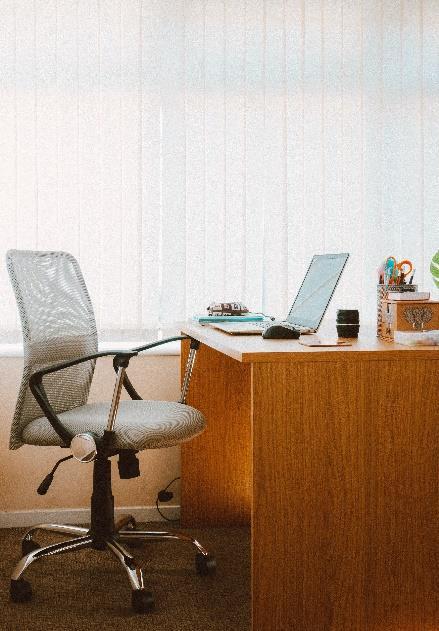
Lasting Impressions
I loved this internship. I felt that I was really doingvaluable work, that was appreciated, and gaininglots of skills and experience for myself. On the largest scale, it solidified my career ambition of beinga researcher in a think tank. Shorter term, I was offered more work with JPR for the coming year, and I am very glad that my work can continue throughout the year. The workspace was casual and very welcoming, and so I felt that I was able to work hard and not feel too exhausted, which is really valuable.
IQVIA (ALUMNI HOST, UNIVERSITY COLLEGE)
Mbiochem in molecular and cellular biochemistry, Third Year Undergraduate (of a four year course), a mixture of in person and remote working
184
Work Projects
I joined the EMEA Thought Leadership team, contributingto their work in producinginsights and analysis of the pharmaceutical industry, usingaccess to a wide range of exclusive databases. Over the 10 weeks I have gained a strongunderstandingof the complex workings of the pharmaceutical industry, and this has been paired with technical data analysis skills, as well as useful trainingin how to look at data trends in a strategic way in order to produce meaningful insights. I am very pleased with the high level of value I have gained from this experience, and this will enable me to progress my ambitions withinthe life sciences and consultingindustries.
My projects included a study into the changes in Return on Innovationover the course of evolution of the pharmaceutical market, duringwhich I learnt how the industry has developed and changed over time, and gained an understandinginto how product launches perform within specific therapy area markets. I also completed a project aiming to characterise the ESG impact of the pharmaceutical industry globally, analysingdifferent country’s health system emissions data. I learnt how these health systems were structured, and how the industry’s carbon footprint is composed. The rest of the team were welcoming and very helpful with any queries on the projects, and I was encouraged to share my ideas and become part of the team.
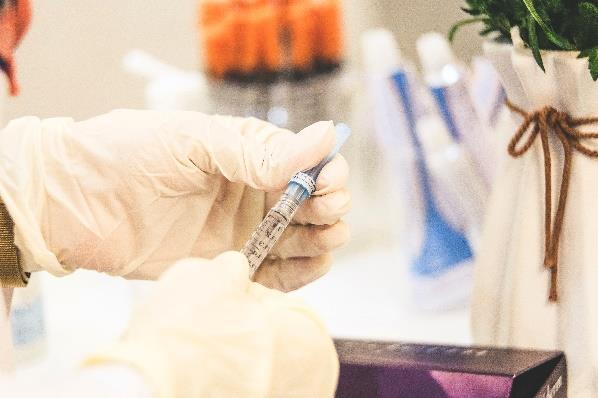
Daily Life
I worked a mix of in person and remote; for in person work I settled in well I got alongwith the other members of my team and had coffee breaks and chats with them. I took the tube to the office which was relatively easy for me as the office is right next to Paddington station. Outside of working, the team would sometimes go for lunch together and we would have interestingdiscussions on a variety of topics. I mainly socialised with the younger members of my team, as well as the other interns in my team and in the other departments.
185
For remote working, it was initially harder to distinguishbetween workingand relaxingtime, but designingand keeping to a schedule helped with this. I ensured that I had regular breaks where I would get up from my desk and get some fresh air. To relax and wind down I would read or listen to music, and also go out and socialise with friends.
Lasting Impressions
Over the 10 weeks I have gained a strong understandingof the complex workings of the pharmaceutical industry, and this has been paired with technical data analysis skills, as well as useful trainingin how to look at data trends in a strategic way in order to produce meaningful insights. I am very pleased with the high level of value I have gained from this experience, and this will enable me to progress my ambitions withinthe life sciences and consultingindustries. What I found particularly valuable were the weekly team meetings in which I could learn what each member of the team was working on, and in which one member would present their work each week, allowingme to gain a deeper insight into the multitude of sectors of the life sciences industry.
I also relished the opportunity to meet people from the many different departments within IQVIA, showingme the impressive range of different functionalities withinthe company. The experience showed me I enjoyed both beinginvolved in the life sciences industry, and the actual technical data analysis work, and made me realise that I wanted to pursue a career in consultancy. This also made me want to explore consultingacross many other industries, to learn about them in equal depth.
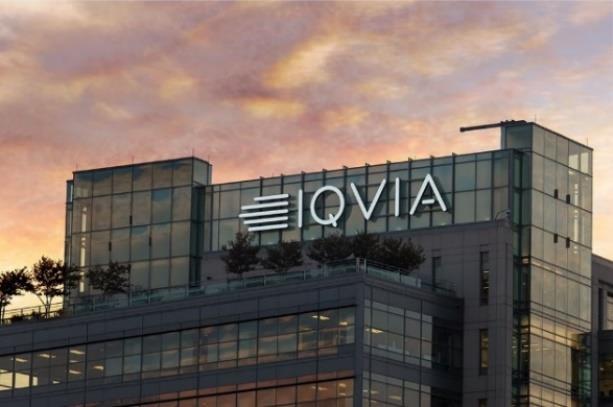
MANUFACTURE 2030
BA Geography, Final Year Undergraduate, a mixture of in person and remote working
186
Work Projects
I mainly took part in customer service over the phone and via email as part of the grocery campaign. I was trained to use many programmes such as Salesforce and Power BI for example. I was also given a company laptop and additional resources to use during my internship.
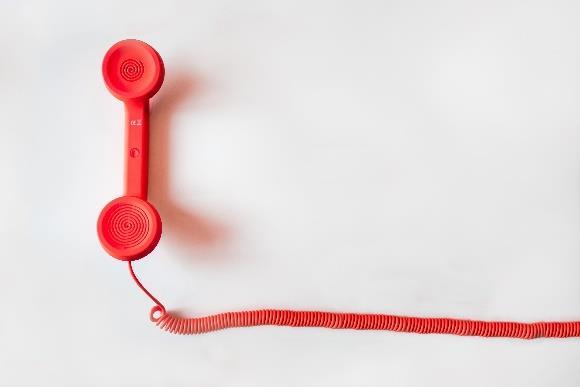
Daily Life
When going into the office I travelled from London to Oxford where I started work at 9. I went into the office once a month and worked between 9 12 and 1 5:30.
When I came into the office, the team I was in also came in meaning we could work best as a team. Most of my roles involved callingand emailingcustomers when they had an queries about the Manufacture 2030 platform. I quickly learned that the company was more of an IT consultancy rather than a sustainability consultancy. When workingfrom home, I started from 9 and was able to take regular breaks from my screen. I also had frequent meetings with my team over video call to enable us to work best. For example, every morningI had a meetingat 9am with the Data Team, and a weekly catch up/check in with my line manager.
Lasting Impressions
I enjoyed the internship overalland it has played a key role in allowingme to undertake a masters programme next year due to the financial help. This internship has given me an insight into IT consultancy. I have realised that I would prefer to work in a larger organisation, rather than a start up which this organisation was. I also would like to be able to use my academic knowledge in a job in the future. Whereas, duringthis internship I was not really given the opportunity to do so.
Practical Advice
187
I would say that all internships are a good insight into a certain career path whether you decide to go into that field or not in the future. Internships with the SIP are also a great way of buildingconnections.
MARINETRAFFIC (ALUMNI HOST, KEBLE COLLEGE)
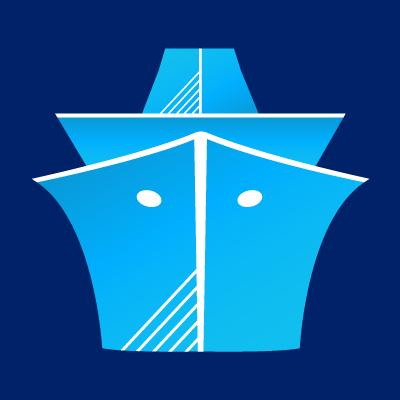
MMathsCompSci, Final Year Undergraduate, a mixture of in-person and remote
working
Work Projects
The project was to create an index to indicate congestion and utilisation for container vessel terminals. I first extracted the data usingSQL, then created visualisation to aid with exploring the dataset. After manipulatingthe data and trying out various methods, I created an index that suited the customers' needs while being simple enough to be understood. With the help of my supervisor, I was able to incorporate this into the company's pipeline.
Daily Life
For in person sessions, I was able to talk to other co workers, as well as interact with other interns and ask them for help. We also had team lunches, where we talked about the company, industry, as well as had casual chats. When the internshipswitched to remote, I was able to work from home by keeping note of the tasks to do through slack messages and regular meetings with supervisors. Us interns also created a group and had regular meetings to help each other out. Taking advantage of the remote nature, I was able to travel to other places in the UK: working in the accommodation duringthe day, exploringthe area and relaxing after work.
Lasting Impressions
188
I enjoyed the internship and experience. It gave me another opportunity to see about how data is used at different companies, as well as the maritime industry. I also learnt more about how to balance between business needs and technical complexity. It also exposed me to the work of pre processing and managingthe data in the first place.
Luke Kennedy, Christ Church, MPhys Physics, Second Year Undergraduate, a mixture of in-person and remote working Work Projects
The internship consistedof two main projects. The first project was to create a dashboard to display data about the compliance of a marine terminal with sanctions related to the shipping industry to the terminal operator, and the second project was to create an engaging visualisationthat demonstrated the proportionof ships who report their ETA at a given port in UTC and the proportion that report their ETA in the local time zone of the port. The main achievements of the first project were successfully calling the relevant API to retrieve the risk and compliance data for a specific set of ships before extractingthe relevant informationfrom that call and representingit neatly in a dashboard. The other main achievement of the first project was merging this data with data we had stored locally about the ships to create a holisticrepresentation of the activity at a terminal level to help the operators see if they are complyingwith global sanctions.
For the second project the main achievements were when we were able to plot the relevant data (actual time of arrival minus estimated time of arrival) in a histogram and see clearly two distinct peaks indicatingthat there were a proportionof ships reportingin local time and a proportion of ships reportingin UTC. We were then able to fit a model, consistingof several normal distributions, to the data allowingus to extract the percentages of ships reportingETA in each style. Throughout the internship we were supported with twice weekly meetings with our supervisors and at any point necessary
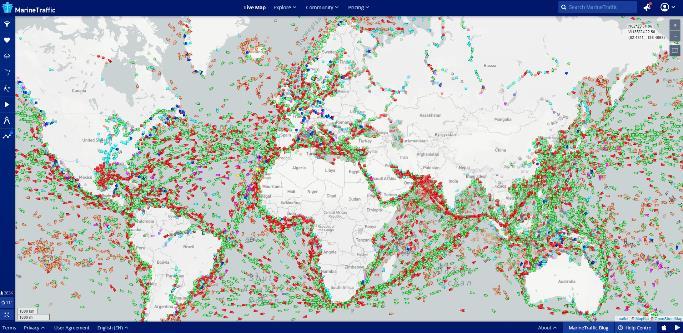
189
we were able to contact them via Slack to ask for help. There was also an extensive induction process that enabled us to be familiar with the systems used by company to enable our success.

Daily Life
Since the internshipwas primarily remote, I often began my days shortly after breakfast where I would check my emails and calendar to see what was scheduled for the day. There would often be updates ready by the time I began as I was in a time zone two hours behind the majority of the company so I would respond to those first before returningto my work log from the previous day to see what tasks I had to accomplish for the day. I would work on these until lunch and after lunch we often had a catchup with the other interns where we could talk about our projects and discuss any questions we may have.
After this I would continue with my tasks that I had been set, these would often consist of either coding, retrievingdata from APIs or the main database, analysingdata, creating dashboards, or writingdocumentation. As I reached the end of the working day, I would write up what I had achieved the previous day in my work log and make a note of any tasks that I needed to complete the followingday to help structure my work. To unwind after the day, I would often go for a walk after work to help separate home and work a bit better.
Lasting Impressions
The lastingimpressionsof the internshipwere that I would be a good fit for the technology sector and would definitely enjoy workingremotely in the future. Prior to this I had very little experience working and applyingmy skills in a corporate environment, so this opportunity was extremely helpful for my career development and after completingit I am extremely satisfied in what I have been able to achieve. I found the work stimulatingand challengingand was able to develop my personal skills and gain a lot of relevant experience in the technology sector.
190
Workingwith many new tools and pieces of software broadened my skillset and helped me gain what I consider to be invaluable transferrable experience that can be applied to my future career. I also valued the time saved by not havingto commute to an office and was able to consistently motivate myself despite not beingin an office environment. I feel that I gained a good representative experience of what working at a technology company would be like and I feel like it has affirmed my career decisions so far and I can see myself pursuinga career in this sector further in the future.
MINISTRY OF DEFENCE - DEVELOPMENT, CONCEPTS AND DOCTRINE CENTRE
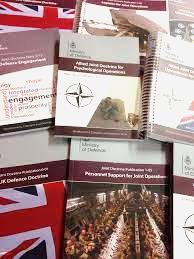
(DCDC)
DPhil Population Health, a mixture of in person and remote working Work Projects
I worked as a research intern for the DCDC which is the MoD’s think tank who conduct and publish research and many different sectors of policy. My main project was to carry out research on the global and regional implications of peak populations on different countries. That is, what happens when populations reach all time highs before beginningto decrease again. I looked at these implications through three main categories:economics, environment and society. Within these I studied a number of topics, includingimplications for water, energy, pollution, workingage populations, urbanisation/rural depopulation, health, women, investments in infrastructure etc.
I produced a 16 page research report on these issues as well as three infographics pages to be used by the MoD in workshops and seminars on this. I also made a final presentation of my project to the team and other members of the DCDC includinga one star commodore. Overall, the project went very well and the work was incredibly interesting. I was supervised by two desk officers who were both very professionaland helpful. I also worked in coordinationwith
191
the graphicdesign team to produce the infographics. They all provided great support in my project. The rest of the team at the DCDC were also friendly and did a great job at helpingthe interns settle in.
Daily Life
This internship was hybrid and flexible as to when we had to be there. The first week of the internship was all in person and I stayed at the base for the whole week, were we had a number of activities, including:talks and briefs from people in the DCDC, red teamingexercises, war gaming exercises, workshops, visits and general work together as a team. By the end of the week, we met our project leads and were introduced to our projects. This first week really enabled us to socialise with other interns and get to know the people workingat the DCDC. After this first week most of the work I conducted was remote.
I worked at home although I still had very regular (almost daily) calls with either the DCDC team or my project managers. This provided very good support for the project despite most of it being done remotely. I also returned to the DCDC toward the end of the internship as there was an alumni day event which allowed us to meet people who had previously done the internship and see the team again before the end of the internship. After that I finished the internship online and deliveredmy final presentation on teams.
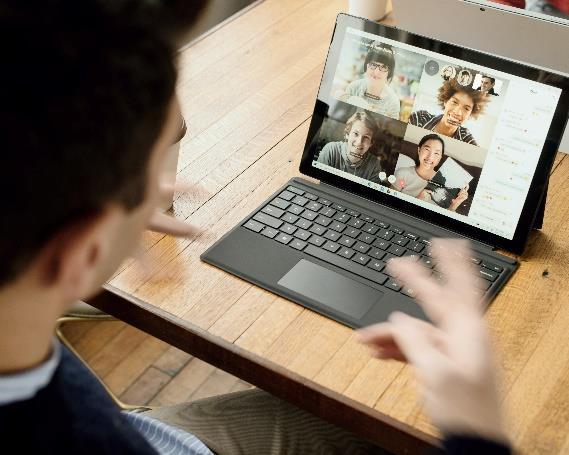
Lasting Impressions
I really enjoyed the internship overall and the work was incredibly interesting. It was both close enough to some aspects of my research that I could contribute a lot to it, yet still far enough that I could learn while doingit. I feel like a learnt a great amount duringthe internship, includingon the topics I worked on but also about the DCDC, the MoD, working in government and generally working as a team. I feel much more reassured about findinga job after my DPhil
192
thanks to this internship. Indeed, the internshipgave me insights into working in the career which I want to have and will most likely increase my chances of getting employed in this sector. The internshiphas therefore confirmed my career aspirations and given me even more motivation to pursue this career route. Overall, it was definitely a plus to do this internship and have no regrets about it as I gained so much from it intellectually and professionally.
MUNCASTER CASTLE
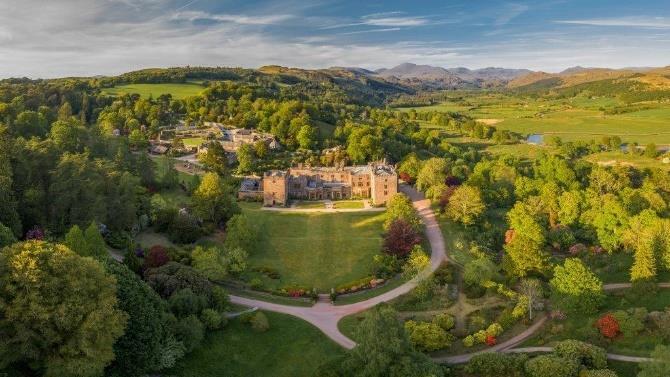
George Rabin, St. Peter’s College, MBiol Biology, Second Year Undergraduate, in person
working Work Projects
Alongside another student, I carried out ecological surveyingof the ponds, tarns and other aquaticecosystems of Muncaster Castle Estate. The Estate has hosted an ecological intern in the past and is lookingto expand upon this more research focused aspect of its connection with the environment and nature. I largely focused my project on the aquaticinvertebrates usingthe Estates aquaticecosystems, also carrying out incidental surveyingof amphibians and fish. This involved designingsurveyingprotocols after havingvisited key sites, carrying out the surveys, then analysingthe data.
A key outcome, alongside plant data collected by the other student intern, was to assess the quality of the aquaticecosystems;aquatic invertebrates are a classic indicator group for this. Results from a wide variety of sites (both biologically, physically and geographically) were written up and analysed in a report which has been given to the Castle. This report also included recommendations from us (the two interns) as to how the Estate can improve its aquaticecosystems (i.e., management suggestions for their ponds, such as removal of invasive
193
plant species). Key findings were put into posters which will be displayed in the Castles EcoBarn, educatingvisitors on Muncasters aquaticecosystems and their importance.
Daily Life
The accommodation was unique, with interns largely stayingin an old tower of the castle, and occasionally in the main house area of the castle. Working hours were largely defined by us (the interns), makingthis quite flexible, but working hours were normally 9 5, six days a week, to take advantage of the unique opportunity. Whilst this would be a socially quite isolated experience if you were to undertake the internship on your own, we were fortunate in that there were two of us doingthe same internship,plus other placement studentsand family members of a similar age with whom to socialise.
There were many very enjoyable extra social opportunities outside of work, such as volunteeringwith marshallinga race (Race The Tide) and attendinga party as part of the race celebrations, as well as other gatherings and social events with the family who own the castle. Although severely nature depleted, the surroundings of the Lake District are visually stunningand it was a wonderful experience to be working surrounded by such famous views.
Lasting Impressions
Overall, I enjoyed the experience and learned a great deal about aquaticsurveyingas this had to be self taught. Whilst I am not currently aimingfor a career in ecological surveying, this internship reaffirmed my ambition to have fieldwork as a component of my career; although the internshiphas not changed my career ambitions, it has given me valuable experience in designingand carrying out a project. If the Castle implements some of the management suggestions we have made, then this could be a rewardingoutcome from the internship, helpingto improve habitats in the Estate for wildlife.
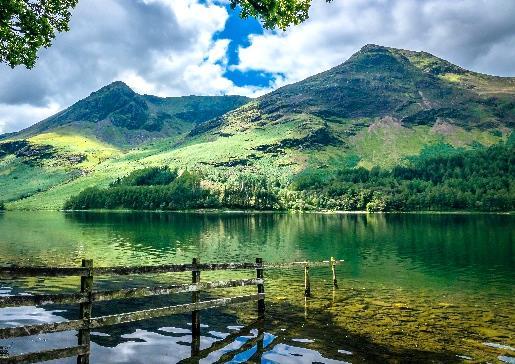
194
BA Geography, First Year Undergraduate, in person working
Work Projects
My internshipfocused on researchingthe aquaticecosystems on the Muncaster Castle estate, specifically the ponds and tarns here. We conducted scientificsurveys of macroinvertebrate, amphibianand plant communities at the different sites ranging from ponds in the main gardens to tarns in the mountains. I focused on identifyingthe plants present, which is particularly difficult for aquaticplants, as well as recording their structural type and abundance according to ecological metrics and timed pond nettingalso occurred. In total, 201 plants were identified, 17 of which were Near Threatened and 5 of which were Vulnerable accordingto the IUCN England Vascular Plant Red List. Structural compositionof aquaticplant communitieswas also further analysed by comparingthe data collected to England and Great Britain averages, which showed nearly all the Muncaster sites we surveyed had a greater plant structural diversity than these.
On top of this, chemical testing was conducted to measure oxygen, nitrate and pH measures among other indicators of ecological health or pollution. All the surveyingequipment was provided by Muncaster Castle, and they supported us by guidingus on our research aims and providingus with extra resources, such as chemical test kits which we needed to conduct our research. Together all this informationhelped to evaluate and inform management suggestions to ecologically improve each of the aquaticsites.
There was a particular focus on controllinginvasive plant species on Schedule 9 of the Wildlife and Countryside Act, such as Canadian waterweed (Elodea canadensis). Engagement resources were also created to improve visitor experiences of the aquaticenvironments here, such as a proposal for an Aquatics Trail and posters to communicate our research to be featured in the EcoBarn onsite.
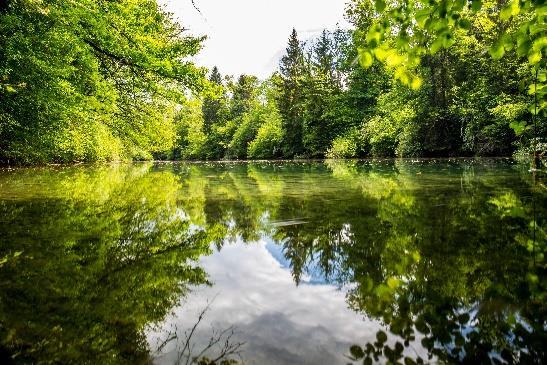
195
Daily Life
Daily life was extremely varied on this internship, and it always kept me on my toes which I really enjoyed! Any day could involve practical surveyingof plant communities, macroinvertebrates, amphibiansand chemical compositionin a range of locations from the ponds in the castle gardens, to sand dunes and even on the mountainside. When we didn't spend our days with fieldwork ecology and data collection, we would write up our findings and research evidence to support or explain our findings. We also spent some days more creatively, designingposters and visitor resources to improve tourist engagement.
Our days were often flexible working, and we determined our agenda, while being guided by the aims provided by Muncaster Castle. In the evenings, or on a day off, I would read in the castle grounds when the visitors had left or explore the local landscape by hiking. I also had some amazingexperiences at the castle from learningto play crochet on the lawn, diningin the billiard room to dancingin a ceilidh! There was always somethingfun to be involved with at the castle on top of working on the internship which was great and made it feel like a home away from home.
Lasting Impressions
Overall, I feel like I gained a lot from the experience on my internshipas I got the chance to do an ecological research project and see if this is somethingI'd like to pursue later as a career. I found that I really enjoyed the practical fieldwork side and being more scientifically focused and it also reaffirmed my interest in communications and publicengagement in the environmental sector. My supervisors also organised for me to attend a botany field course based on sand dunes which improved my confidence in botanical identification and has helped motivateme to pursue my interest in botany further and value it greater.
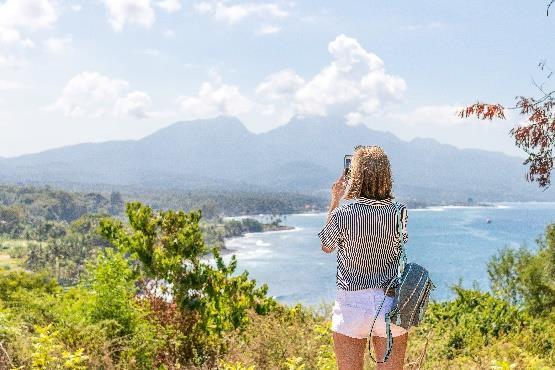
196
As well as guidingmy career ambitionsthrough practical first hand experience and networking, I also gained a lot more confidence by working on this internshipin a remote location where I had little contacts and learnt to be more independent and self sufficient.
MUSEUM OF NATURAL HISTORY, UNIVERSITY OF OXFORD
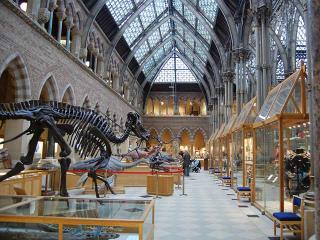
Tadhg Cian Goodison, Lincoln College, BA History and Politics, Third Year Undergraduate (of a four year course), in
person working
Work Projects
I worked as an archival assistant in the Natural History Museum in Oxford, duringwhich I was cataloguingthe Phillips Archive. This is an extensive archive, and I was concentrated on his correspondence, which I took from beingin chronological order into alphabeticalorder before properly storingin acid free containers, buildinga findingaid for archival use and logging the record on the Emu system which used the ISAG system which a standardisedprocess for archives globally.
During the course of my internship, I fully organised the letters into alphabeticalorder which also required strippingthe entire archive 126 boxes of any letters which had been filled elsewhere, approximate 4,000 separate letters in total. I also catalogued A F, which was roughly 2,000 letters, and entered about 300 letters onto the EMu system. I also contributed to conversations on the redisplay occurringat the museum, worked in the botanicgardens and held a 167 million year old dinosaur bone, and piece of the moon, mars, and a rock that form before the Earth did.
Daily Life
A day in the life of an intern, begins with getting up at 6:00 thanks to the construction outside my window, getting ready then working on university work until 8:40 I then walked the 15
197
minutes to the museum passed the university church, the rad cam, Hertford college, broad street, Wadham college and finally the currently constructingRuben College. I then used my external keys to access the staff entrance and enter the office from which I got my internal keys which could not leave the Museum. Then I dropped my lunch in the staff fridge before heading upstairs into the Hope Library and Archive.
Here I either worked on the first floor with the librarianand other archivist if I was cataloguingor entering records onto Emu, earlier in the internshipI worked mostly on the second floor on organisingthe archive as there was more space and the area was less publicso could be left in semi organised states over weekends. The work itself was readingthe letters to identify the author of the letter, and then fillingthose letters written by the same person together.
Lasting Impressions
It was an amazingexperience. The people were incredibly friendly and nice, and I felt supported from the moment I walked through the door. I learned a lot about Victorian science and the developments of the GLAM system in oxford as well as the life and role of Librarians and Archivists. This internshiphas helped inspire me to pursue further exploration of a career in Libraries or archiving.
Practical Advice
Enthusiasm is important. Don't be afraid to speak to new people and develop connections, everyone at the Museum has a cool job and trust me you want to hear all about it.

198
Chen Chen, St. Hugh’s College, BFA Fine Art, Second Year Undergraduate, in
person working Work Projects
The Oxford University Natural History Museum is in possession of a large quantity of yet to be catalogued material, includinga disparate collection of glass magic lantern slides, datingfrom the 1870s 1950s, when the use of lantern slides became largely obsolete. As an intern my main work involved cataloguingand digitisingthis collection with another intern, Mary, continuing the work of last year’s two interns who began the vital work. The collection is important as, while previously seen as low value items, the lantern slides are a fascinatingrepository of scientificand historicinformation about work carried out in and around the museum at the time they were produced.
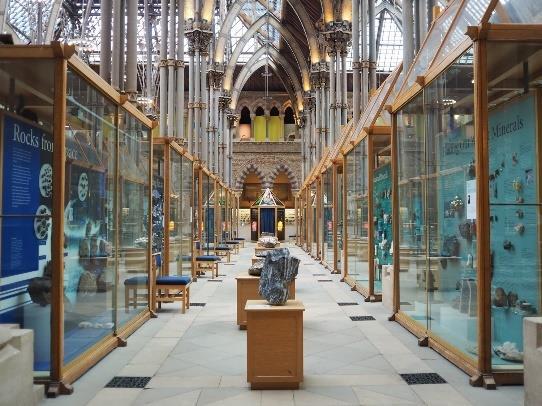
Lantern slides were created from photographs, and those in the museum’s collection encompass a wide range of disciplines, from those typically associatedwith the museum; geology, entomology, zoology, palaeontology;to more unexpected areas like physics and chemistry. They were shown either duringlectures (much of the university teachinghappened, and continues to happen, at the museum) or in a more entertainment basedcontext, for example at the early 20th century Ashmolean Natural History Society Christmas lectures for children. Lantern slides can be thought of essentially as early PowerPoint slides.
For this reason, they are particularly important objects to understand and include in the archive, as they provide not only an insight into aesthetics, thought and knowledge at the time they were created, but also what of this the creator deemed was important enough to share with a large group of people, either in an academic or recreational context (or both!). It is important that the museum and the general publicare able to access this sort of information, so it was really rewardingto both have the opportunity to work on this internship. By the end of the six week
199
internship, we managed to digitise over 3000 lantern slides and completed two lunch break lantern slide shows in the museum's lecture theatre. The museum's supervisor for this project, Danielle, provided invaluable support in providingmany archival informationabout the slides we discovered and organisingmany extra activities within the museum throughout the internship.
Daily Life
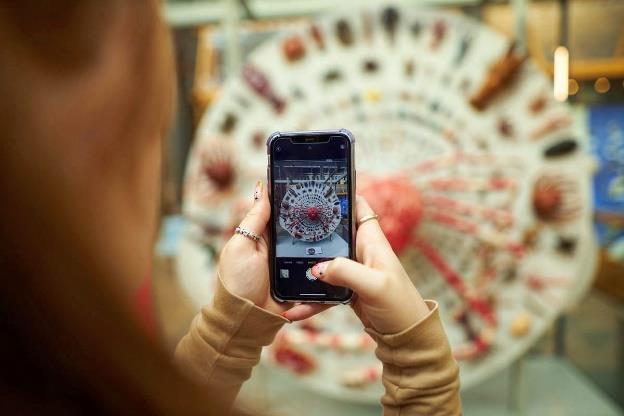
I usually get to the museum in the morning by walking from college accommodation. On my first day of work, I met three other summer interns who are startingtheir six week internship on the same day, includingmy project partner Mary. We received a brief tour around the museum and a health and safety introduction in the afternoon from Laura, who is the museum's Events Manager. Mary and I followed a relatively consistent workflow throughout the internship. Earlier in the internship, we focused on cataloguingthe slides, removingthem from their original storage, labellingthem with a unique code for retrieval and entering metadata into a spreadsheet.
Once the camera and equipment for digitisation were set up, we shifted focus towards mass digitisation, as the rest of the cataloguingwork could be completed remotely. We worked together on this, with one person labellingthe slides, placing them onto the lightbox and naming/placingin folders/quality-checkingthe slides when they were uploaded ontothe computer. The other person was responsiblefor checking that the camera settings were appropriate for the slides being photographed, settingthe focus, taking the images, and transferringthe slides into the drawers for storage, with dividers and labels. Throughout the workday, we have a morningand afternoon tea break and a lunch break when we would often join the library museum staff members and our supervisor in the common
200
room or sit outside on the lawns. Outside of work I worked on some graphic designs for a university society and enjoyed the time off.
Lasting Impressions
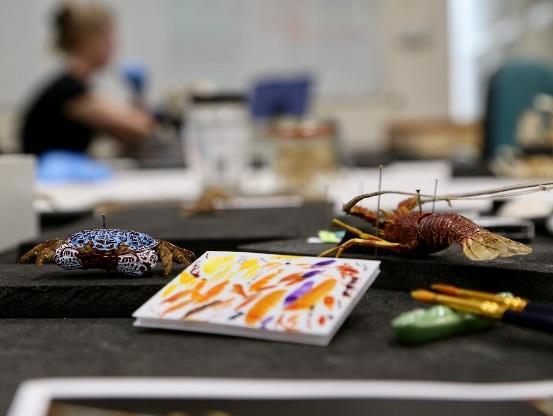
The internshiphas been a really amazingexperience overall. What I find most valuable about this internship experience is the self led explorationof uncatalogued museum materials and beingable to uncover hidden narratives for images shown on the glass slides when cataloguing and digitisingthem in sequence, combined with the on site experience of working in the paper conservation atticof a historical museum that gives us a truly immersive experience.
As a student comingfrom the creative arts, I enjoyed exploringthe various themes these glass slides had shown, and we’ve definitely both learnt more about Geology in the last 6 weeks than ever before! Due to the presentational purpose of magic lantern slides, these objects are invaluable visual representations of the discourse in academic interests of natural history dating from the 1870s to the 1960s as they capture 'moments in time'. The experience has greatly encouraged my career ambition in museum collections and interest in digitisation projects.
Lucy Ella Jackson, University College, MEarthSci Earth Sciences, Second Year Undergraduate, in person working
Work Projects
I catalogued a collection of fossils. Some of the fossils were sufferingfrom pyrite decay which I selected and conserved in the museum’s conservation lab. I also had a few smaller tasks like answeringobject enquiries from the general public. At the start of the project I received trainingon how to use the museum’s computer system and how to catalogue the fossils. After that the work was mostly independentbut I always had a supervisor I could contact if I needed help or advice on how to proceed.
201
Daily Life
My hours were 9am 5pm Monday to Friday. I walked to the museum every morning. Every morningI started workingon the collection from wherever I left off the night before and completed any tasks I’d noted on my morningto do list. I was livingwith people from my college so spent my evenings with them, or a few nights I went out to the pub with the other interns.
Lasting Impressions
I thoroughly enjoyed my experience and it helped me solidify my career plan for the next few years. I gained a lot of transferable skills and skills directly relevant to what I want to do in the future. I also learnt a lot that will be useful for my degree.
NUFFIELD DEPARTMENT OF POPULATION HEALTH,
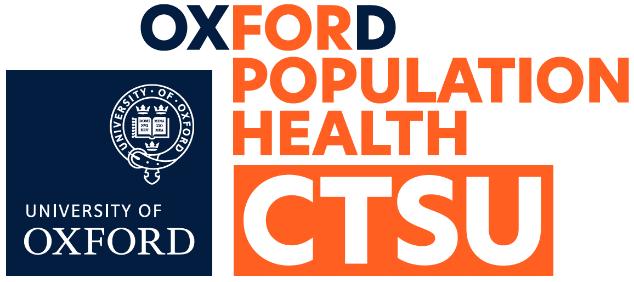
UNIVERSITY OF OXFORD
Yutong Dai, Wadham College, MMathCompSci Mathematics and Computer Science, First Year Undergraduate, in-person working Work Projects
I was tasked with improvingthe rapid reporting tool used by the Clinical Trial Service Unit of the Nuffield Department of Population Healthto enable 1) extractingand transformingdata from multiple databases;2) generatingreports with graphics; 3) runninginteractive reports;and 4) incorporatingscripts into data transformation.
The old reportingsolutionwas a set of Bash scripts that feeds SQL queries into database engines and dumps the temporary table storingthe result of the transformationinto a CSV file, which is then converted into XML and styled usingcustom style sheets. The old solution was an ad hocresponse to the reportingrequirements of clinical trial management about 10 years ago
202
and gradually became inadequate. I determined that it was pointless to reinvent the wheel, so the old solution should be deprecated in favour of modern ETL (Extract Transform Load) and reportingsoftware.
I researched a total of 14 ETL and reporting solutions, comparingthem accordingto their operatingsystem support, functionalities, and extensibility, and narrowed down to two candidates.
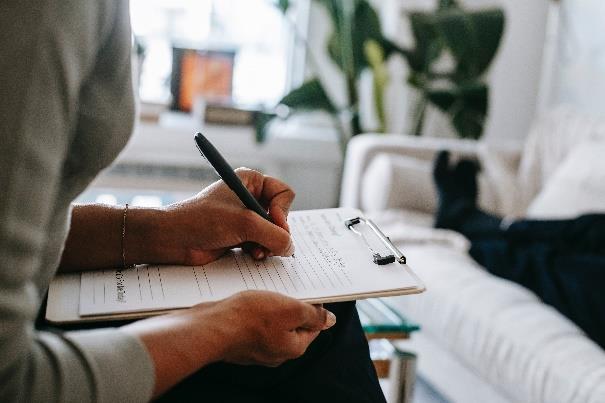
Then I implemented an old report usingeach of the two tools, findingone of them, KNIME (including BIRT), to be significantly superior, and decided to use it. I created a total of six reports using KNIME. The first one was just mentioned. Amongthe remainingfive, some were demonstrations of functionalities of KNIME, while others were new reports requested by the investigators. The reports incorporatedadvanced data transformations that were not achievable with SQL such as Python scriptingand creating sophisticatedcharts like bar charts with confidence intervals. I also used some R to draw more advanced graphics such as a bubble chart superimposedon a map of the UK.
To satisfy the requirements of interactive reports, I wrote an R Shiny applicationthat supports simple filteringof a data table by column value. In view of the need to periodically generate the reports on the departmental server, I installed the relevant software on the server and navigated through documentationto figure out how to run everythingon the command line. Finally, I wrote a 46-page report documentingmy work, especially on how to use the software I recommended, so that future developers can quickly adapt to it.
At the end of my internship, I delivered a 45 minute talk in front of the team. During my internship, my supervisor Sonja helped me understandthe old reportingsolutionand its shortcomings, explainedthe requests for new reports from the investigators, and pointedout the meanings of and relations between the columns in different database tables. She also
203
arranged my access to the databases and supportedme in my requests to NDPH IT regarding computer configuration and software installation. My other supervisors Karl and Allen introduced me to their work and the data protection practices of the department.
Daily Life
The internshipwas based at the Richard Doll Buildingon the Old Road Campus, a 20 minute bike ride from my second year college accommodation. Since the Old Road Campus is situated on a hill, the bike journey to the workplace was difficult, while the journey back required a lot of braking. Settling in simply meant getting the office keys, being granted access to the buildings, and settingup my office desktop. The internshiphad flexible workinghours, which means that I arrived in the office between 9am and 10:30am; similarly I left the office between 4:30pm and 6pm.
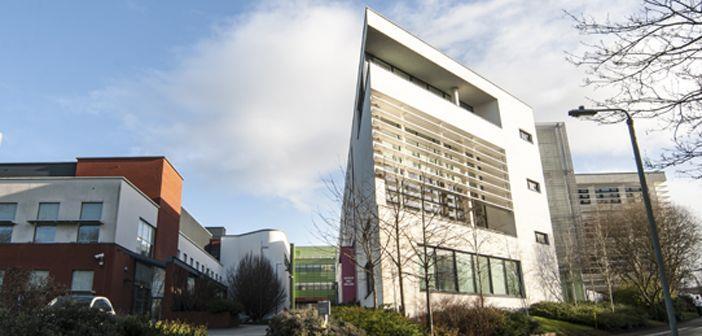
My working time was divided between understandingthe requirements through conversation with my supervisors, translatingSQL statements to KNIME nodes, designingreports with BIRT Report Designer, writing code in Python and R, automatingeverythingon the server, and documentingwhat I did. In the evenings and weekends, I cycled to the Main Site of the college to hangout with friends who were stayingin Oxford for various reasons. I also previewed some of my second year course materials and started learningLinux. I travelled to London on a Monday (utilizingone of the four days of paid leave) and to Bristol on a Sunday. Allen invited the team members to pubs in Headington twice once for general socialization, and the other for the final day of my internship.
Lasting Impressions
Overall, I enjoyed my internship. I liked translatingSQL into well organized, well documented, concise KNIME workflows and designingsophisticatedreports in BIRT. I enjoyed contributingto
204
the management of the clinical trials because of the positive social impact of the advancement of medicine. Aspects of the work that I found unsatisfactory include copingwith Java versions, path variables, different path formats on Windows client and Linux server, and database authentication.
I believe that I learned a lot from the internship. I gained insight into the management of clinical trials and related data protection issues, understood Bash and SQL, learned to use prominent ETLand reportingtools, and had experience with R and statistical data analysis. Moreover, I gained valuable communication, analytical, problem solving, and research skills that will be useful in every occupation. This internshiphas confirmed my plans to do further study and (hopefully) become a researcher in one of the mathematical sciences.
OXFORD MOLECULAR MEDICINE ACADEMY - OMMAC
Trinity Jean Pate, St. Edmund Hall, BA Neuroscience, Final Year Undergraduate, remote working

Work Projects
I worked as a strategic advisor for the development of the Oxford Molecular Medicine Academy which is a start up lookingto launch both an educationalplatform and summer school courses, focused on molecular medicine. I was a team leader of a small group and our main project was to strategise and come up with development ideas for the company to prepare for its soft launch. We created a strategy implementationdocument for the next steps of development for the start up. It was split into 3 phases and covered several major areas includingproduct development, marketingand outreach communications, and future outlook. I also spent some time designing promotionalcontent for the company includingan informative brochure and sample social media posts. I had daily meetings with my team and then meetings around once a week with the CEO of the company.
205
Daily Life
I enjoyed workingfrom home as it meant I could structure my time in my own way and didn't have to pay for transport to and from work. I usually got up early and started work around 9 by havinga team briefingfor the day with my team. We would then lay out a plan of action for the day and regularly check in with one another to see how we were all getting along. Sometimes we worked collaboratively on projects, such as the promotionalbrochure for the company, on a Zoom call, but we usually had separate tasks which we went off to complete and then reconnected back at the end of the day to update one another. About once a week we would connect with the CEO and fill him in on what we had done and find out if there was anythingelse that he wanted us to do.
Lasting Impressions
I really enjoyed working in the team and has confirmed my aspirations of wantingto work on strategy consultingas I really enjoyed comingup with solutions to some of the problems facing the company. It also made me more aware of some of the many issues facing start up firms and some of the ways we can go about fixingthem. Overall, it was a good experience to work in a team and learn about strategy development and consider how to scale a small business.
OXFORD COMPUTER CONSULTANTS
Claudia Cilleruelo Pascual, Keble College, MA Mathematics, Second Year
Undergraduate,
a mixture of in person and remote working Work Projects
During my time I worked on Ami, an online platform that connects those wantingto help in their community with organisations lookingfor volunteers. I had programmed extensively in Python but had no prior experience in C#, ASP.NET or JavaScript, the 3 principal tools I would be

206
usingin the development of Ami. I was taken aback by OCC’s willingness to provide me with the time and resources to do this learningdespite only interningfor 6 weeks.
The aspects of Ami I was involved with varied from day to day: from addingfunctionality enablingvolunteers to logtheir hours, developingprofile subsections of the volunteer account, developingthe messagingsystem between organisations and volunteers, to makingthe system accessible for users with screen readers. When I first arrived, I was assigned a mentor, which was hugely beneficial to both my technical growth but also my understandingof the company. Very early on I met the managingdirector as well as several tech leads who were all extremely welcoming, and everyone was willingto lend a hand.
Daily Life
I worked in person for the first 4 weeks and online for the majority of the last 2. OCC has fairly flexible working hours, I had to do a total of 37.5 hours a week but beyond beingin the office for the core hours (10 12 and 2 4), the rest of the time was completely up to me. I’d get in at around 8:45 and have a meetingwith the ami team at 9:45 and as part of the Innovation Delivery Team, the daily stand up at 10. This was my opportunity to learn about the different projects the team was working on, as every developer in ID gives an outline of their day
There is a huge sense of collaboration as most developers are working on several projects at once, so will at some point or other have worked with almost all the developers in the team. I would then spend the rest of the day tacklingone or several tasks at hand with scattered calls duringthe day with my mentor and other developers. The tasks varied significantly as summaries above^ and as well as programmingI was able to do some code reviews. Once a week I would attend the weekly OCC lunch, where I was able to meet employees I didn’t interact with on a daily basis. It was great to have another intern at the same time at OCC.
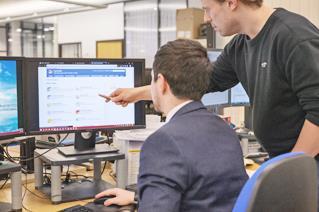
207
Lasting Impressions
I really enjoyed the internship and I felt it provided me with an immersive experience of what it is like to be a developer. I’m very glad to have walked away not only with a real world perspective of what the sector is like, and what working as a developer entails, but also to have come away with proficiency in 3 new languages in the space of 6 weeks. OCC made sure from very early on to treat the 2 interns as contributingmembers of the team, and this made a huge difference to our experience as we were soon able to see the impact we were makingon a technical level, and we were able to work side by side with industry professionals.
MMath Mathematics, Third Year Undergraduate (of a four year course), in person working Work Projects
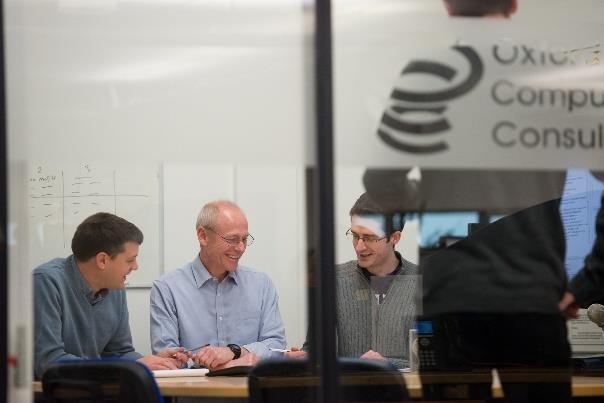
I did development work on the Ami project, which is a website for volunteeringorganisations to help match volunteers (who can sign up on the public facingpart of the website) to their volunteeringopportunities (which are also listed, in anonymised form, on the public facingpart of the website). I was integrated fully into the development team, submittingcode as pull requests to the central Git repository, and reviewingthe code of my fellow intern. I did a good deal of work on the area of the website for logged in volunteers, adding various pages to the volunteer profile section where they could input preferences and personal details.
I also did a lot of refactoring and maintenance of the code, to make future development work easier. The development work was both frontend and backend I worked on everythingfrom the stylingand presentationof the website to the business logicand database schema. The host organisationprovideda good deal of support I was assigned a mentor, who helped a lot in the initial set up as well as getting me acquainted with the code repository (which was quite large).
208
Daily Life
The office was fortunately very close to my accommodation, so getting to work was only a ten minute walk which was very convenient. At the start of each workingday there were two "stand up" meetings one just for the project I was working on, which only had the four to six (dependingon the day, and including me) developers who were working on the project;and one which had everyone in the department. The former was brief, but important as it provided an opportunity to bringup any specific problems we'd run into while working on the project.
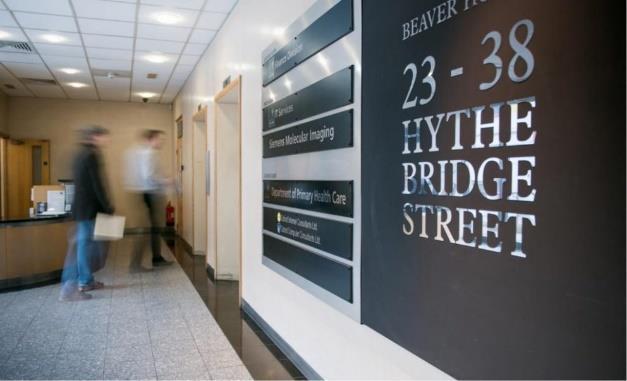
The latter was less directly useful as an intern, but it was good to be able to keep track of all the other projects going on in the department, which I'd have never kept up with otherwise. There was one other intern (who also came through the Summer Internship Programme); they were my main companion for socialisation, and there was a lot of mutual assistance between us on the project. I didn't socialise a huge amount with the other people in the office aside from my mentor and my fellow intern but this is probably more of a reflection of me than of the internship itself!
Lasting Impressions
I really enjoyed the internship, and feel like I gained a great deal of good experience from it. My main aims in taking the internship were to get a feel for how working in an IT/software dev type career would feel, and to become more experienced with working on large, mature code bases with a proper task and issue management system; both of which I feel I got a good handle on. As a whole, the internshiphas confirmed to me that this is a career path that I definitely could take, but I'm still uncertain if it's the one I necessarily want to take, since there are a huge number of other career paths which I have yet to consider.
209
OXFORD MOLECULAR MEDICINE TECHNOLOGY - OMMTECH

Jack Barker, Christ Church, MPhys Physics, First Year Undergraduate, remote working
Work Projects
We were interested in the interactions between various genes, and how they activate or deactivate one another. To this end, I wrote code in Python to automatically scrape online geneticdatabases, and cache and parse the received data. I then used this data to build networks of gene interactions for given target genes, and help to illuminate the most important genes in certain biological processes. The internship culminated in developinga piece of software that generates these networks automatically and provides other information about the interactions present.
Throughout the 4 weeks long project, I had regular meetings with my mentor who gave feedback on the software. I also received direction for where to progress with the project, so that I always had somethingto be working on.
Daily Life
During the internship, I tended to wake up, have breakfast and start work on the project fairly quickly. I aimed to get as much of the work as possible done earlier in the day, which allowed me time in the afternoon and eveningto exercise and relax. The work was fully remote, so I did not have to worry about commutingtime. Since the hours were flexible, this allowed me to still socialise, since I could fir the work on the project around other activities. I made sure to get exercise every day of the internshipto stay healthy and happy.
Lasting Impressions
I enjoyed workingon the internship, as I felt that the work I was doingcould have a real, tangible future impact on the company. I significantly improved my codingabilities, since I
210
spent some time learningnew techniques and technologies to achieve the aims of the internship. The experience has confirmed an interest in working in the sciences, and also computer programming, that I will try and continue and build upon in future internships.
PITT RIVERS MUSEUM
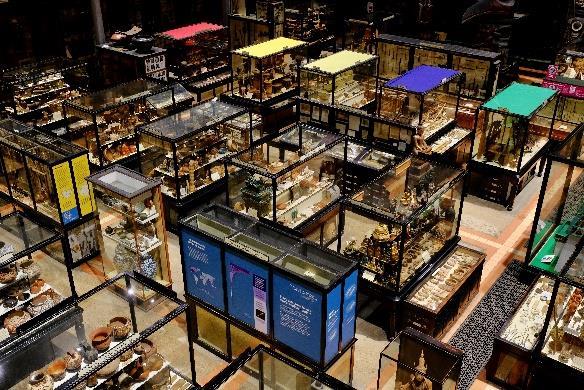 Devaki Vadakepat Menon, Magdalen College, MPhil in Visual, Material and Museum Anthropology, in person working
Devaki Vadakepat Menon, Magdalen College, MPhil in Visual, Material and Museum Anthropology, in person working
Work Projects
I interned at the Pitt Rivers Museum's Photograph and Manuscript Collectionplacement, duringwhich I was able to research relevant material for my degree dissertationand personalresearch. As my guide and supervisor in the placement, Philip Grover was incredibly kind and helpful in allowingme to cater the experience to explore my own interests. His unwaveringsupport, enthusiasm, and interestin the material I wanted to see made this placement all the more rewarding. He and the various staff at the museum provided an in depth understandingof the various roles within the institution, departments, their tasks such as design and restoration, and I was provided with opportunitiesto witness and be involved in events and research visits. These opportunities gave me exposure to a wider set of materials (both geographical and typological) that I would otherwise not have access to, or be knowledgeable about. My main task focused on under examined and undigitisedsouth Indian material the unearthingand extensive research of which allowed me to contribute material to a detailed blogpost. My other task and achievement include the digitisationof over 150 photographs from collections, some of which I will research after my placement and write to the museum about so that I may contribute another blogpost. Overall, this experience has provided me with so much more
211
BA History, Second Year Undergraduate, a mixture of in person and remote working
Work Projects
As an 'Object Collections'intern, I worked closely with the museum's immense collection of objects at many different levels. At the tactile level, I would help to remove objects from display cases for visitingacademics and photography. On one occasion I helped a 3D photographer document a series of objects by handlingthem for him with gloves. I also labelled a collection of musical instruments and visited the museum's stores to retrieve objects for display and research. The conservation departmenttrained me in doingthis safely by showingme what to look out for in terms of dangerous substances.
I also received trainingto use the museum's online database, MuseumPlus, in order to work with the records of these objects. My main task was to catalogue a donationto the museum, a collection of tenugui (Japanese washcloths), which required a combination of these skills, as I photographed, sewed labels on and created records for the cloths. I was also involved in outreach, which ranged from hostingan educational sessionfor disadvantaged children usingthe museum's objects to welcoming visitors from significant academic and religious institutions who wanted to help imagine a new future for some of the museum's more sensitive objects. My supervisors were very supportive and were always there to help if I needed them.
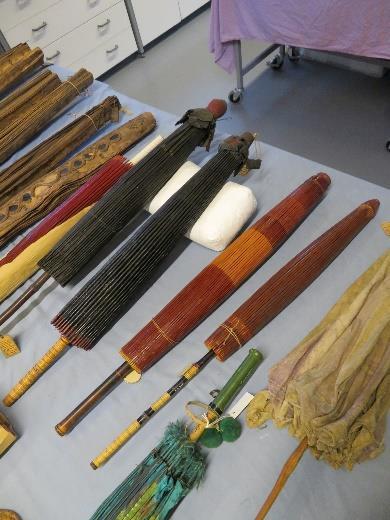
Daily Life
My internshipwas mostly in person, from 9.30 4pm, though I worked a couple of days from home when my task was to research an object or when the museum staff had an all day meeting planned. It was very easy to settle in because everyone was friendly and there was a communal space for staff to which we were allowed access. As such, I was able to socialise with members of staff working in all of the museum's departments rather than just my supervisors,
213
and my internshipexperience was enriched as a consequence. The staff would also welcome visitors to this communal space, which meant that I had many valuable conversations with experts in various fields. We had a daily coffee break duringwhich we would go to the hot drinks stand and my supervisor would very kindly buy me a drink. I also enjoyed several pub trips (again, paid for by my supervisor!) as well as an ice cream picnic in the park.
Overall, I felt very welcomed and comfortable in the museum space. I had to walk to the museum every day, which took about 20 25 minutes because there were no direct or reliable bus routes close to where I was staying, but I quickly got used to this and would not count it as a disadvantage.
Lasting Impressions
Throughout the 5 weeks of my internship, I learned much in ways that I had not imagined I would. An experience that stood out for me was a session hosted for a delegation of Tibetan academics, religious leaders and community figureheads who lived in exile from Tibet. We discussed the museum's Tibetan objects with a scope that went far beyond the abstract debates over repatriationto which I was accustomed and in a way that has transformed my understandingof a museum's duty to and relationship with the public.
To my surprise, I found that I enjoyed working with the objects at the outreach level, which has had an impact on my career ambitions as I had previously envisioneda career in academia. I received advice that I am sure will guide me in the years to come and made connections that will be very useful in the future. The internship was exactly what it promised an insight into life working in a museum and I felt empowered by the level of trust afforded to me by my supervisors, who gave me impactful tasks throughout so that I felt that my presence, though relatively fleeting, was making a difference.
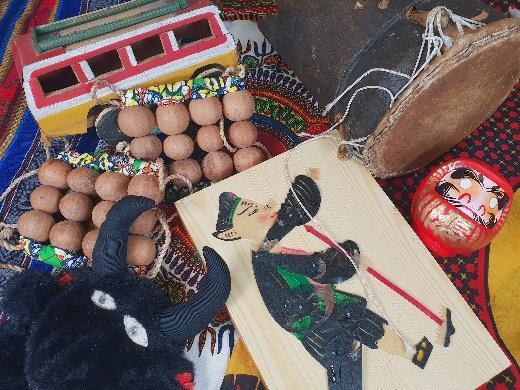
214
BA History of Art, Second Year Undergraduate, a mixture of in person and remote working
Work Projects
I researched a group of Jewish amulets in the Museum's collection which had not previously received a huge amount of scholarly attention. I was also lucky enough to enjoy tours of other departments of the Museum, includingthe ConservationStudios for example. I loved working on my own project, hearingfrom the other interns about their interests, and equipped with the tools I needed to produce my best research.
Daily Life
My internshipwas spread over the summer, meaningthat there was no regular rhythm or pattern to my work. I really enjoyed the ad hoc opportunities for meetingother museum staff and getting to learn more about the operationsof the Pitt Rivers as a whole, beyond the department I was working with.
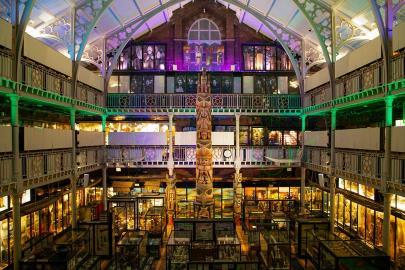
Lasting Impressions
I loved every moment of my internship. I was made to feel a valued and appreciated member of the team, and felt that my voice was heard and my input appreciated. Mel, my line manager, played a huge part in this and made sure to continually offer me different trainingopportunities to further my skills and learn more about.
MPhil Visual, Material, Museum Anthropology, in person working Work Projects
I completed the objects collections internshipat the Pitt Rivers Museum this summer. I had many different tasks assigned to me which made every day special and exciting. One of my main tasks was working with the museums new online database to organize files. I also participated in research sessions where students, researchers, or community members would
215
come to the museum to examine objects they were interested in. I would assist in handling objects, answeringquestions.
On many days, before visitors arrived at the museum, I would assist in object retrievals or put backs, where objects necessary for research would be taken off display.

As part of the internship, I was also responsible for researchingand writing a blog post about a topicof my choosing. I learned about object conservation, citations, and general museum practices. I would highly recommend applyingto this internship if you are interested in history, arts, culture, museums, and heritage. Based on my interests, my supervisors were really great about providingme opportunitiesthat would best suit them.
Daily Life
Because I had so many different tasks, every day was different and made coming into the museum really exciting. I lived close to the museum, so I was able to walk to and from. On my first day, I was given a tour of the museum and the offices and was introduced to all of the friendly people who work there. My supervisors made it really easy for me to socialise and get to know everybody through our daily tea breaks. These breaks were a nice way to break up the morningand get to chat to everybody about what they were working on.
I was also able to become close friends with the other interns. We spent a lot of our lunches at the museum cafe getting to know one another and talk about what we were working on. There were also many opportunities to socialise outside of work, for example meeting up at the pub! I was really thankful that the internship occurred in person as it was easy to meet people and enriched the experience.
216
Lasting Impressions
The internshipwas instrumentalfor my future career goals. It provided me a very realistic glimpse into what working at a museum would look like and confirmed that this is what I would like to do in the future. The experience was really amazingand I’m very grateful I was able to participate in the internship program.

My supervisors allowed me many opportunities to learn about every sector in the museum, from conservation to education and curation. I gained a lot of knowledge about how museum work and the kinds of jobs you can have within them. I think that the internship perfectly supplementedmy studies at oxford by offeringa practical experience to the theoretical knowledge I have been gainingin my course.
PRAGMATIX ADVISORY LTD (ALUMNI HOST, LINCOLN COLLEGE)
Emmanuel Campion Dye, Wadham College, BA Philosophy Politics and Economics, Final Year Undergraduate, remote working Work Projects
My internship was with Pragmatix Advisory, an economics and strategy consultancy. I was working on the initial research stages of a project which would eventually become a rural strategy for some local authoritiesin England. I had two main tasks. One involved organisingand takingnotes in the interviews for a variety of people from the area councillors, business leaders, charity heads, representatives conservation bodies and so on. The other was lookingat data for local authorities in the UK, as well as at smaller geographies, and usingthe data to try to build up a picture of the relevant rural areas. I then combined these streams by draftinga Strengths, Weaknesses, Opportunities, Threats analysis.
217
Although my placement work was continuouswith a larger company project, and thus there was no single achievement from it, I felt proud of the smaller tasks I was able to achieve since I felt I was genuinely contributingsomethinguseful which tasks included literature reviews, arrangingmeetings, and an internal company presentation. I was very well supported all throughout this process. My supervisor facilitatedmy style of working and allowed me the freedom to talk one on one when I felt I needed it and to get on with the task otherwise. I also met periodically with the CEO of the company who discussed professional developmentwith me. Every week, we had an internal trainingsession for some new skill.
Daily Life
My internshipwas remote, but we used an ‘open office’ arrangement, so we would be on a Teams call for the whole of the working day. This took some adjustingto, but quickly became normal, and allowed work to feel more social than if I hadn’t been able to see the others on camera regularly. Each morning, I would join just before nine, and we would each give the outline of how we planned to spend our day and make any decisions for the allocation of certain tasks. We’d then work to lunch, before leavingthe call for the lunch hour, and re join after.
I did experience some difficulties with technology – when working online with constantly streamingvideo, any WiFi lapses whatsoever felt quite annoying. However, the online nature of the internshipdid allow me a lot of flexibility, so I was able to move between home and Oxford periodically dependingon where was more convenient at the time. The main difficulty I had with remote working was that the lack of a commute meant it was easy for me to spend all day in the house. If I were to be workinglonger, I think it would have been beneficial to me to set up a strict schedule which forced me to get outside every day.
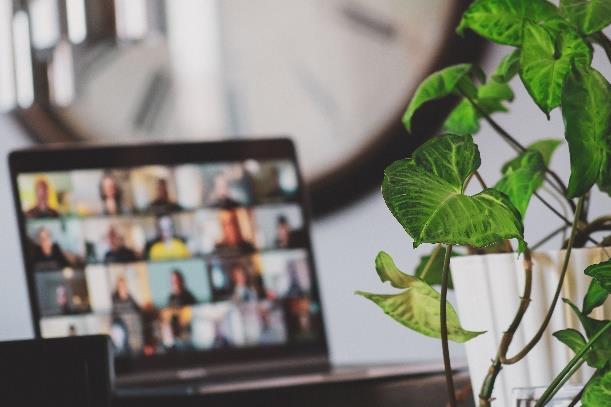
218
Lasting Impressions
The internshiphas left me with a very positive overall impression I now have the belief that I could work in the consultancy sector, and the inclination to pursue it. One of the most notable aspects of my experience was the strongfeeling that my degree had helped me to do the job better than I could have done it otherwise. This wasn’t so much because of specific skills I was using, but rather because the background knowledge gained from PPE allowed me to more quickly get to grips with the context of the work, and because the value placed on clear, logical thinkingcarried across.
Havingreally enjoyed my degree, the similarities meant I enjoyed the internship a lot in fact, much more than I expected to, which was a pleasant surprise! After the internship, I feel I’d be much more likely to go into consultancy. Beforehand, consultancy had always seemed confusing, and I had little idea of what consultants actually did day to day. I think the internship was the best way to demystify working in the sector. I also feel that I gained a lot of transferrable skills that would be useful for many different jobs skills in presentation, interview technique, Excel, mappingand much more.
REBELLION FILM STUDIOS
Hannah Nightingale, Lady Margaret Hall, BA Theology and Religion, Second Year Undergraduate, in person working
Work Projects
I was working within the costume department of Rebellion Film Studios, which specialises in historical costume and military uniforms. My main tasks were preparingcostumes to be sent out for theatre and TV productions. This included mendingcivilian pieces and
swappingout details to make military uniforms historically accurate. Some of the pieces I worked on were a Victorian style bonnet and a HouseholdCavalry helmet which I had to paint
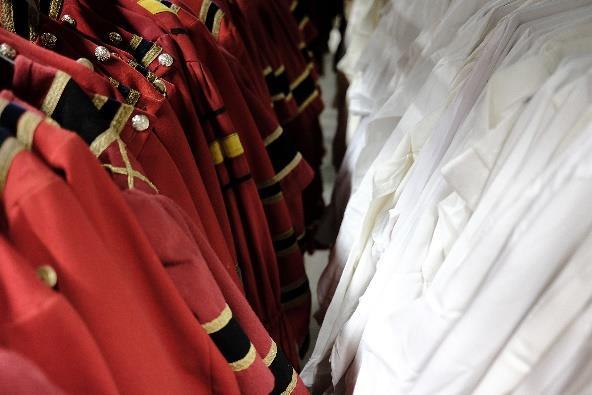
219
with careful attention to detail. I got to use my sewing skills particularly when I prepared some hats for a BBC production and learnt how to clean delicate items in a special machine. The people I worked with made sure to keep me in the loop with everythingthey were working on. They introduced me to clients and took the time to explain things and tell me about the history behind certain pieces, such as a corset made with real whalebone.
Daily Life
I got the train every day from Oxford to Didcot and then cycled from the station to where I was working. I then worked from 9:30 5:30. Everyone was very friendly, and I settled in quickly as we would take breaks together, which also meant I got the chance to ask them more about working in film. I enjoyed how varied my days were; I was sometimes on my feet carrying costumes about and at other times sitting workingon a particular piece. I liked how each day was different, working on a different thingand consideringsolutionsfor individual cases. I also enjoyed meetingpeople working in other areas of the company such as audio motion. Outside of work I met friends in Oxford and used the time to explore Oxford further, which included goingto the Ashmolean.
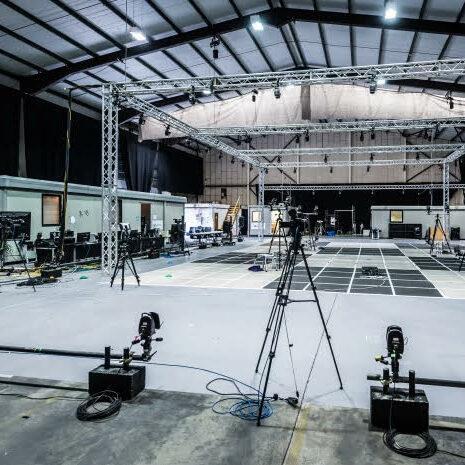
Lasting Impressions
I enjoyed my internship experience. I have always had an interest in costume, and it confirmed this. Even though this seems to be a bit away from my degree in Theology, the historical side shone through, and I hope I can pick that up in my degree. We talked a lot about the social side of historical clothing, and it gave me a real insight into how the way we present ourselves through clothingis really important. I hope to pick up on these ideas in my dissertation, which is on clothingin the Bible. In this way the experience confirmed links between my subject and my love of costume, even if they are not at first obvious. I still remain unsure about what I want to do after university, but my experience has allowed me to consider costume as an option. I now
220
know that I enjoyed the variation of the job, which is giving me a sense of the kind of job I may want to do in the future, so I have more of an idea of what I might enjoy.
Practical Advice
I was unsure whether to apply or not and was convinced it was too competitive to try. It was also such a step away from my subject. It turned out that it suited me and my subject well, so I would say don't be afraid to step out of your degree subject into somethingelse you're interested in. To be able to combine interests that at first don't seem to go together is exciting and you don't know where it might take you. Also keep a list of the key things you've learnt, even if they're just interestingfacts.
REFINED SEARCH (ALUMNI HOST, HERTFORD COLLEGE)

BA Philosophy Politics and Economics, Final Year Undergraduate, in person working Work Projects
The main project me and the other intern were assigned was to search for a Europe based renewable energy tradingcompany as an acquisition target of a large commercial bank. To complete this task, we went through the websites and annual reports of energy tradingfirms and collated useful information such as profit & loss, company size, tradingcapacity and ownership details into an excel sheet. We shortlistedcompanies based on their suitabilities and our client's expectations. We drafted reasons for shortlistingthese companies. We also conducted three search projects where we headhunt candidates for the roles from the information managementsystem we use and LinkedIn.
We assessed the candidates'suitability based on the job description providedby our clients. We reached out to selected candidates to set up calls with our partner to discuss the roles. We
221
took notes duringthe calls and reference them back to our client. There were a lot of opportunitiesto develop interpersonalskills in communicatingwith the candidates. Every Wednesday, we sat in the firm's weekly pipeline meetings where everyone updates others in the firm regardingthe projects they have at hand, so that everyone can be on the same page. The meetings served as a great chance to absorb information about the headhuntingindustry and to gain a deeper understandingof the skills required for the job.
Daily Life
I felt really welcomed on my first day at the firm. Our supervisor showed us around the office buildingand introduced us to eatery places nearby. We were also given an introductionto the projects we were going to work on and given help settingup our computers and work accounts. The firm is conveniently located in Victoria station. The area is surroundedby all types of restaurants, fast food places and food markets. The firm is a short distance away from St. James’s Park and I enjoyed the relaxingwalk in the park duringlunch breaks.
As a small firm, everyone in the office is friendly and approachable. There were plenty of opportunities to catch up over coffee or during lunch breaks. We also had welcome drinks and farewell drinks with the entire team which gave us the valuable opportunity to chat with everyone. The weekly pipeline meetingallowed us to meet our colleagues based in the Singapore office. Most excitingly, as interns, we were invited to the company's retreat which will take place in October when our colleagues from Singapore visit London. These social events helped to create a strongsense of friendship within the team. I have enjoyed the daily casual chats in the office.
Lasting Impressions
I enjoyed the internship as both commodity tradingand executive search are areas that I have no prior experience in. Looking at the commodity tradingindustry from an executive searcher's
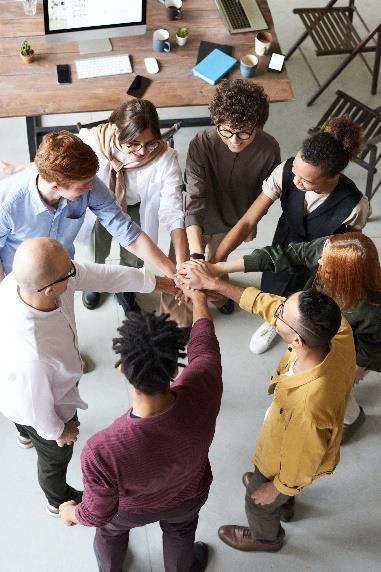
222
point of view provided me with a new perspective. It revealed to me how recruiters would assess candidates based on their work experiences, their reasons for making career changes and their ways of interactingwith recruiters. The understandingof what qualities the recruiters would like to see in a candidate would be useful in informingmy future career choices.
The internshipprogramme was also a huge test of my interpersonalskills as communicatingwith senior professionalsover messages and calls was at first a daunting experience. Learningfrom my colleagues on how they draft their emails and how they strategically steer the conversation duringphone calls helped me to develop my communication skills which I believe is my greatest takeaway from the internship experience. The process of researching for companies'informationand lookingat the career trajectories of candidates also allowedme a deeper understandingof the key players in the commodities tradingand the renewable energy industries. It confirmed my interest in the commodities sector which is a sector I would like to explore more in the future.
Practical Advice
Read up on the different functions within the commodity tradingindustry. It would help you assess the suitability of candidates'profiles. (And save the one month free trial of LinkedIn premium as it will be really useful duringthe internship).

Work Projects
I was working in recruitment. I researched the sector, in this case sustainability consulting, and compiled longlists of people who work in that sector. I then contacted those people directly and organised telephone calls with them, schedulingappointments across global time zones. I mostly observed such calls between these candidates and members of the firm, but also learnt
223
BA English Literature and Language, Second Year Undergraduate, in person working
to lead them myself. In these conversations, we would interview the candidate about their career and assess them for available roles. I also dealt with networkingand maintaining relationships after the call. I also did a market research project generatinga rough picture of the companies producingand tradingrenewable energy in Europe to support a member of the firm in an upcomingpitch meetingwith a client; This involved internet research into various companies and writingsummaries about them.
Daily Life
I travelled an hour into central London each day on the London Undergroundand went to the office. I was working alongside one other intern, whom I met in preparationfor the internship in Oxford on the advice and contact provided by the employer. The people at the company made an effort to make us feel welcome; We were taken to the local food markets to show us good spots, given welcome placement mats and company merchandise, and multiple work socials were organised for us. The company organised drinks for us after work on the first day to help us met the entire team and settle in, and they also organised leavingdrinks for us on our last day to celebrate the end of the internship. This was all very much appreciated. The atmosphere of the office was friendly and comfortable, with snacks and music.

Lasting Impressions
The internshipgave me a real insight into the sector. I gained a thorough understandingof recruitment and the skillset needed for it, and feel confident I could apply for such jobs in the future. I was grateful for the professional experience, and the financial assistance. I think the internship built on soft professionalskills such as networking, developingprofessional relationships, organisationand confident communicationand advocacy.
224
STOCKHOLM ENVIRONMENT INSTITUTE (SEI)
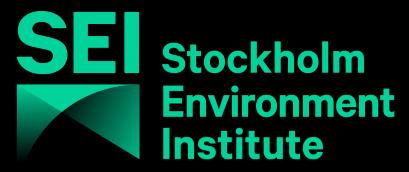
Geena
Goodwin, New College, Final Year Undergraduate, MBiol Biology, remote
working
Work Projects
I was a knowledge management intern at SEI for 6 weeks between June August. I started my internship by uploadingand editingcontent related to climate change adaptation for the weADAPT platform, includingwritingup articles which highlighted the frequently asked questions for three chapters in the latest IPCC 6th assessment report. I found this work really interesting, as I was able to research and read about topics I wasn't hugely familiar with, and it gave me a great insight into the work going globally surroundingclimate change adaptation.
I also helped to support planningof the weADAPT/SEI Anniversary event at the end of September, specifically working on making nine posters to showcase work across SEI for the event. This was a great way to meet lots of people involved in work across SEI Oxford, and to get a broad insight into the kind of work SEI does. Finally, I worked on making network visualizations usinghistoricdata from weADAPT. I received excellent support from the staff at SEI throughout my internship there was always someone available to answer my questions, and everyone was very kind and welcoming.
Daily Life
I worked remotely pretty much entirely through my internship (apart from for a few days in my first week, where I was able to come into the Oxford office). The flexibility of beingable to work from home was hugely useful, and enabled me to do the internship, which I wouldn't have been able to participate in had I been made to work in person throughout. SEI Oxford operates flexible working, which was also really useful as it gave me some choice over when I started and finished work (if you start at 9 you finish at 5, whereas if you start at 10, you finish at 6). This
225
was brilliant as it meant that I could work around other commitments I had. Workingremotely was easy to do, as the SEI team are very active online and respondedto any and all queries really quickly, so I never felt that I was alone with my work. I also had regular meetings with different team members, to check in on how my work was going and provide support where needed.
Lasting Impressions
I really enjoyed my internship and would definitely recommend it to anyone consideringapplying. SEI were great at making me and my ideas feel valued, and in giving me choice over the kind of projects I worked on. I felt continually challenged in my work which was brilliant, and I felt that the skills I already had (in using Inkscape for posters and R for visualizations) were appreciated, and they gave me work that was tailored to my strengths.
Despite completingmy internshipalmost entirely remotely, I was made to feel part of the office community and felt very welcomed and stimulated by those that I worked with. In addition, I felt that I developed lots of skills that will be valuable in future employment, as well as an interestinginsight into the work going on surroundingclimate change adaptation. The experience has definitely confirmed that I want to work in some aspect of science policy, and it was fascinatingto see the breadth topics that SEI works on.
working
Work Projects
I supported an upcomingSEI publicationon a climate services co production framework. I interviewed different project leads of co production workshopsin Indonesia, Sweden, and Colombia, and compiled notes and qualitatively analyzedthe collected data in Atlas TI. I also contributed to the write up of the paper and will be able to be a co author in the publication.
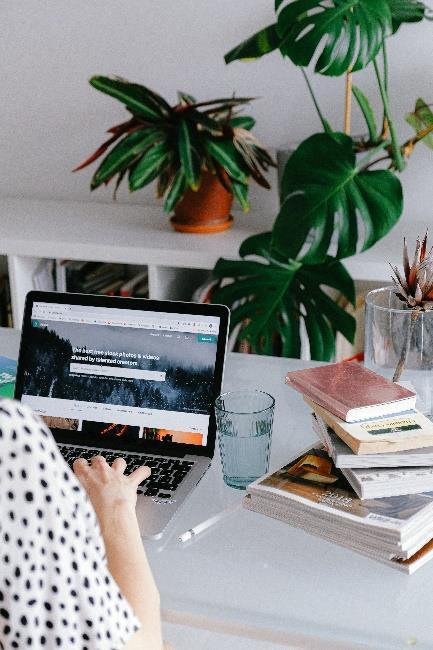
226
Angela Liu (Xin Zhuo Liu), Oriel College, MSc in Biodiversity, Conservation and Management, A mixture of in person and remote
Daily Life
As a hybrid internship, I had both the benefit of working from home as well as meeting and socializingwith my co workers. I believed I was able to form a strongfriendship with many of my co workers and attendingcareer networkingevents after work together as well. The day to day life typically includes data analysis, interviews, and meetings.
Lasting Impressions
I greatly enjoyed the experience and I learned transferable and employable skillset in qualitative data analysis. The people at the internshipwere professional, knowledgeable, and kind, and my supervisor also offered that I can co author on an upcomingpublication, which is highly beneficial for my resume. While this experience did not change or confirm my career ambitions, I now feel like I have a much wider scope and understandingof the different social science elements in environmentalstudies.
STORY MUSEUM (THE)
Nikita Jain, Oriel College, BA French and Linguistics, Second Year Undergraduate, in-person working Work
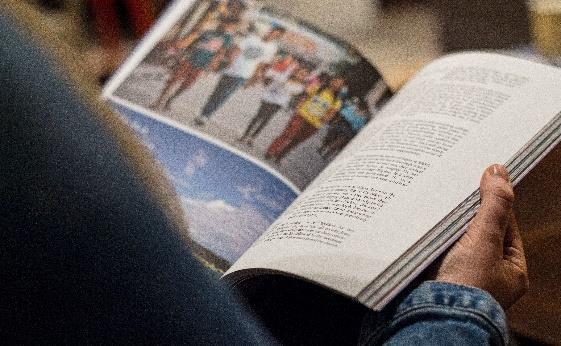
Projects
I worked as a Collections Intern at The Story Museum, in partnership with Oxford University's TORCH. The project which TSM and TORCH were working on involves collectingand researching Caribbean stories as part of an effort to gather information aboutthe contribution of the Caribbean to Oxford and to Britain more generally. I was tasked with lookingthrough collections of oral stories from the Caribbean and identifyingany notable trends, for example countries which appeared more often than others, or general thematicobservations. I compiled a research fact file with a large variety of historical, literary, social and politicalcontext.
227
I also compiled a spreadsheet with a list of oral and written stories from the Caribbean, organised by year of publication and author. Followinga meetingwith TORCH I then worked to start puttingtogether 'family readingresource packs' by pairingtogether different texts according to the target audience. I also helped facilitate a couple of events which TSM were runningas part of their summer programme, directingchildren to where they needed to be and beinga general support for the person runningthe event.
Daily Life
My role was office based, so I had my own desk and computer which was where I did most of my work from. I got to work at about 9:15 and left at about 5:15. TSM has a hybrid remote working system, so the number of people in the office varied from day to day. On the first day I got a tour of the museum as well as a general IT introduction. Apart from the events I didn't really spend much time in the rest of the museum, where the galleries are and tours take place, so I was somewhat removed from that aspect. I also had the opportunity to go to Brookes'Library a couple of times for my research, which was really valuable. My commute to work was a 10 minute walk, which was ideal. I had the evenings and weekends free: I did not socialise with the others in the office outside of work as they were mostly quite a bit older than me, but we had really nice conversations at lunchtimes and during breaks in the shift.
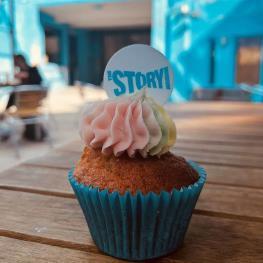
Lasting Impressions
As my first multi week internship, I really enjoyed the experience of getting to work in an office environment with people who weren't necessarily doingthe same thing as me but shared the overall ambition of makingTSM a nice place to visit. My supervisors were both really supportive and happy to let me have freedom with what I was working on, which I really appreciated. The collaboration with TORCH was also somethingI liked, because it helped me feel like I was doing somethingwhich could also benefit other students linked with the university. TSM also
228
conducted an exit interview with me where they allowed me to give them honest feedback which they took on board. Although I don't see myself working in the museum sector in the future, I am lookingforward to keepingin touch with the rest of the team at TSM.
STREATER RESEARCH

Siwei Dou, Keble College, MPhys Physics, Third Year Undergraduate (of a fouryear course), in person working
Work Projects
My role as a summer Utilities analyst at Streater Research involved buildinga sum of the parts valuation model for FTSE 100 Utilities, includingNational Grid, SSE and water companies. I spent much of my time researching into the energy capacity markets and the regulatory price control frameworks set on these utility monopoliesby governmental regulators. To build the valuation model, I used revenue predictions derived from governmental regulations as forecasts feeding into the DCF model.
Daily Life
My commutingjourney (bus train bus) takes a large chunk of time out of my day, but it does provide me with the opportunity to get up to date on my emails in the morning, and to wind down at the end of the day after work. A typical day at work involves readingthe FT and other news in the morning, then gettingready for any upcomingexternal meetings. Apart from meetings, my work mainly involved research and compilingresearch findings, and also buildingmodels in excel. Although my research and valuation project was independent, I worked closely in a team of 4. All of us work on slightly different projects within the energy sector; communication can massively speed up the research process.
229
Lasting Impressions
I have a much better understandingof what equity research entails. Streater Research adopts a long term research approach, which is in line with my career ambitions. The opportunity to work in the energy sector allowed me to utilise my STEM knowledge. I believe, going forward, equity research specialisingin the energy sector would be well suited for me.
UNIVERSITY CLUBS OFFICE
BA Biomedical Sciences, Second Year Undergraduate, remote working Work
Projects
The Clubs Office supports prospective and existing University student non sport clubs, societies and publications (hereafter referred to as clubs) registered by the Proctors. Through registration, clubs can gain official affiliation with the University and be eligible for certain type of benefits (use of the University name, access to free support services and financial grants). At present, applications from prospective clubs are accepted and processed throughout the year. Some brief research has demonstrated that registrationof new student clubs in other Universities within the HE sector tend to receive much more scrutiny to ensure that any new activities can benefit wider student population and/or community and can be appropriately supported and risk managed.
My job was to consult Student Unions of Russell Group Universities and conduct research into the conditionsof new registrations and re registrations of clubs, societies and publications at other Universities in order to develop best practice guidance within this area. I presented my results in a report which will be used to advance a review of the current registration process and recommend changes, as appropriate. I received one to one support from my supervisor having regular Teams meetings to discuss my project and provide guidance on the next steps of my project. I split the project up into the data collection phase (collectingdata into excel) and the analysis and report phase where I analysed the results for my report.
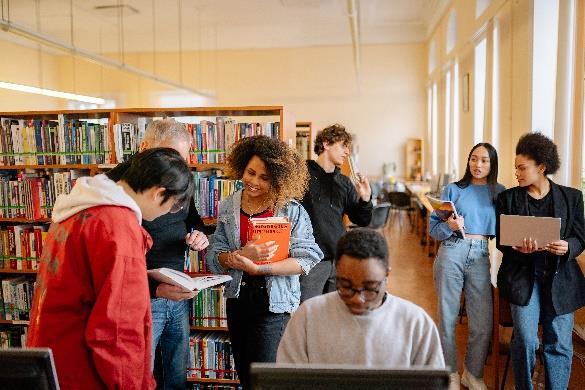
230
Daily Life
I worked remotely which meant I did find it more difficult to stick to a rigid time schedule however it meant that I could be more flexible working 8 4 for example instead of 9 5 if I wanted to. I liked havingthe meetings in the mornings because it meant I could feel confident about what I needed to do that day (and the followingday). I managed by havingregular contact with my supervisor in form of teams meeting and emails. I liked to try and finish on time each day and spend time with my friends and be outside to enjoy the weather in the evenings to unwind.
Lasting Impressions
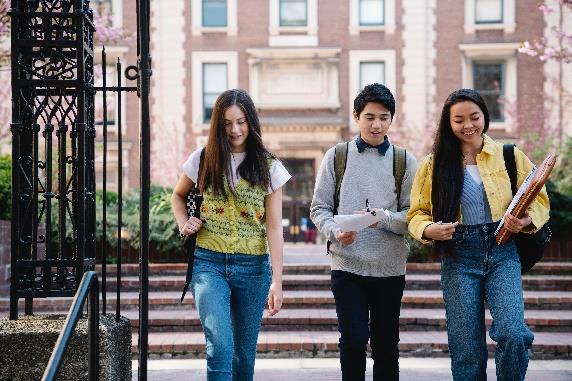
I really enjoyed my time as an intern. I feel that I was given a good amount of responsibility whilst still feeling supported. I have improved my time management skills havingto organise my own time in order to meet deadlines and it has helped me realise what I would and would not like to pursue in the future. Whilst this is not a career sector I’m lookingto pursue I am still pleased that I got the exposure to a new area and work with different people as it helped improve my confidence and communication skills which will be useful in whatever I choose to do.
Zoe Oldfield, St. Catherine’s College, MSc Cognitive and Evolutionary Anthropology, remote working
Work Projects
I was required to analyse fundingdata for non sports societies from the Clubs Office annual reports. I was required to research grant applicationprocesses and fundingallotments for non sports societies at Russell Group universities I was required to produce a report/documentation of my findings.
231
Daily Life
I split the work up into two or three blocks per day (2 3 hours each). I worked both at home and in libraries as I wasn't required to be in meetings. I didn't find the work particularly stressful so had no problems switchingoff and unwindingafter I was finished for the day.
Lasting Impressions
I enjoyed the experience it was good to get an insight into university administration. This was not in line with my career ambitionsand so has not changed my professional outlook, but it was an enjoyable project, nonetheless.
WENTWORTH WOODHOUSE
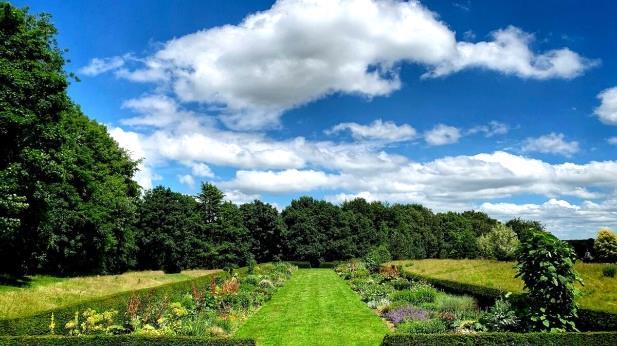
Work Projects
The in person aspect of the internship involved scanningletters, manuscripts and documents in Sheffield City Archives, as well as spendinga day at Wentworth Woodhouse to see how the team operates. The remote part involved transcribing and/or translatingthe scanned documents, recordingthem in a spreadsheet and markingout anythingof note to future curatorial practice.
Daily Life
We stayed at a hotel 10 minutes walk from the Archives in the city centre, which we had to arrive at for 9.45am; before that point we sourced our own breakfast. We would work at the archives until lunchtime, where we were taken out to lunch by the team, then returned to the hotel for leisure time/socialisingand spent the eveninggoing out to dinner. Remote working
232
Megan Burgess, Balliol College, BA English Language and Literature, Second Year Undergraduate, A mixture of in person and remote working
did not affect my daily routine at all as I could transcribe the papers at my own pace and fit other commitments around that. At home I was working a roughly 5 6 hour day.
Lasting Impressions
I loved it and felt it was wonderful experience. I feel so privileged to have been part of Wentworth's renovation, it is such a special heritage site and it deserves all the love & help it can get to return it to its former glory. The work was a mix of challengingand fun and confirmed my aspirationto work within the heritage sector. All of the team at Wentworth were also so lovely and really helpful, I am lookingto return in the future for sure!
Practical Advice
General learn a bit about the history of Wentworth (they have a YouTube channel), especially the family members & their connections so you know who is beingreferred to in the letters. Also reach out to fellow interns and create a group chat because it is very helpful. Before the in person part:look up places that you are happy to eat in Sheffield and make a list, so you are not stressed and flustered as to how to find your way around on the first night. Go out to dinner with your fellow interns on the first night too essential teambuilding. Familiarise yourself with scanningvia the apple notes app too.
For transcription - familiarise yourself with the conventions of the eighteenth-century letters/script before hand, and get used to decipheringdifficult handwriting. The most important part of working from home is time management so spend the first day at home assessinghow many scans were made and dividingthem equally amongst the intern;leave 2 days at the end of the internship to check your work as, with the experience you have gained by the end of the week, you realise that you made a lot of transcriptionerrors at the beginning.
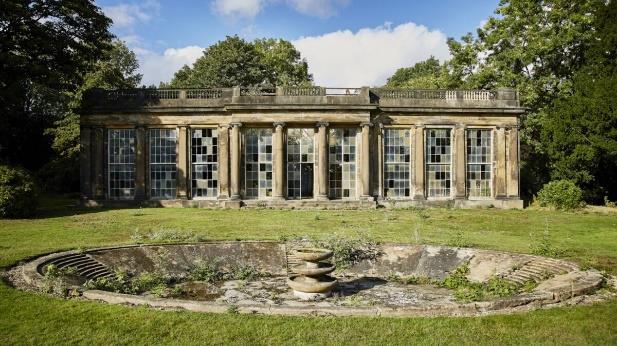
233
WSP
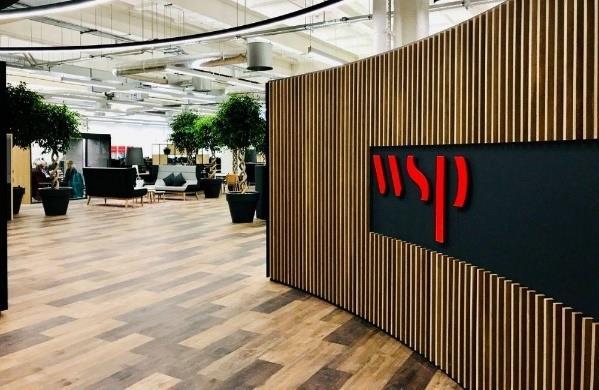 Daniel Philip Quinn, Worcester College, BA (HONS) Geography, First Year Undergraduate, In-person
Daniel Philip Quinn, Worcester College, BA (HONS) Geography, First Year Undergraduate, In-person
working
Work Projects
I worked on a variety of projects duringmy time with WSP, but all where focused around the topicof Sustainability and Whole Life Carbon, the main project I worked on was the development of an array of tools used to increase the consistency, reliability, and accuracy of Whole Life Carbon assessments. This was a pretty major project that took up the majority of my internship, but I developed a lot of new skills that are really useful, from Excel to codingI found these tasks really challengingbut my line manager was really proactive and helpful in teaching me some of the work, and giving me the skills to teach myself the rest of them.
Other than my main task, I worked on a few internal documents, whether that be guides to certain trends or processes such as Carbon Sequestrationor the Circular economy I felt like the work really interested me and was a great excuse to develop my own knowledge in a sector that I am really passionate about. It’s really satisfyingto see all my files on my computer and seeing just how much I have accomplished during my 8 weeks at the company. It’s really helped me figure out what sort of career I want once I graduate so I feel quite grateful for that.
Daily Life
My daily life was really flexible with WSP, the team I worked in was allowed to work in whatever way benefited them personally which was really appreciated. I was told on my first day I could work whatever hours I wanted as longas I attended all my meetings and did enough hours, and I could work flexibly either in the office or at home, furthermore we could finish early some days if we had somethingwe needed to do or wanted to do, again as longas we
234
made up the hours. I found the company trustingme to do my job really nice and that feeling of trust definitely motivated me and made me appreciate the opportunity even more.
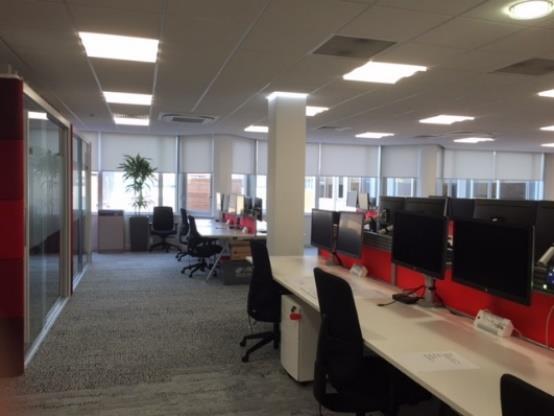
My management team was all really approachable and it made goingto work a joy. I personally like to start work early as I am definitely more productive in the mornings, so I usually got to work around 8 in the morning(even though at that time the office is quite quiet). I used my salary to pay my rent and livingcosts and as I was only in London for a short while I decided to live quite centrally so my commute was only about 15 minutes on the DLR. Once I got to work, I'd sit at my desk, plug my laptop into the monitors and start working. I found that I settled into this routine quite quickly and finishingwork at 4:30 was amazing. It was nice to be able to completely switch off which I feel isn't always possible at Oxford so havingthat work life balance was amazingand will definitely be somethingI consider for future job roles.
In terms of what did outside of work was mainly a mixture of exercise and socialising(with a lot of Netflix mixed in), when I first arrived in the city I went to a lot of MeetUps to get to know more people and found that really inviting, at one event I met two girls who I really hit it off with and we went rock climbingsemi regularly, it was really nice to see myself buildinga life for myself in a new city and that did give me a lot more confidence. I also used a lot of my free time to go to the gym, get better at runningor just go to cultural events in the Capital. I was livingin London and really wanted to make the most of it.
Lasting Impressions
I really enjoyed my internship, although I found the walk to my office quite anxiety inducingon my first day I really quickly was made to feel at ease and I realised most of the fear I felt was in my head, everyone at WSP was lovely and getting to know the other interns was lovely. Although beingthe only non engineering studentthere was at times quite odd, I felt this only
235
made my experience even more valuable and lots of my knowledge alongside Geography makes me really stand out to employers (or that's at least what my boss said). I feel that I have gained so much from my two months with WSP, not just for my career but in life experience. University I feel is very much like adultingwith the trainingwheels, it protects me from the harshest aspects while I develop my confidence whereas being in London very much does not, flat huntingwas not fun, but I got through it and now I know better for next time.
In terms of my career ambitions the internship has only strengthenedmy desires to work in sustainability, and while I don't know what specific aspect of this broad field I will end up in not only has the internship increased my knowledge that it is the right course, but it has made it more likely that whatever I aspire for I can get.
XANTURA LTD

BA Politics, Philosophy, and Economics, Final Year Undergraduate, remote working Work Projects
I am a Research Analyst, and so part of my job has been working to build up research behind the value cases my company deals with. I've written a report and blogs on fallingin the older population, and created some internal resources to help present the issue to clients and raise awareness. I've also written a white paper on current debt collection processes, explainingwhy and how they need to change. I've conducted a smaller piece of research into market costs for the technology that the company uses. I've also been working more closely with people on the consultingside of things, doing research to build up a specific project in the special educationalneeds and disabilities area, and particularly in working out visualisations for different pieces of data.
236
Xantura has been very accommodating, tailoringthe internship to my preferences and giving me support whenever I need it. I am included in meetings that aren't directly related to the work I am doingso I have a more general picture of the organisation, and can upskill outside of my specific areas. I also have weekly calls to check up on my general progress.
Daily Life
I worked remotely for the full extent of my internship, except a day in the office at the beginning, and possibly a day at the end, though I still have 2 weeks left. Working from home has been much easier than I thought it would, largely due to the amount I enjoy the work I have been doing. It is also made easier by a bit of variation in the day mixingsome meetings and more collaborative work in with longer projects that I have been set to work on by myself. Making sure that you have plans in the evening to relax and switch off helps too, and so does having someone outside of work to keep you accountable so that you don't overwork. My hours are also pretty flexible, so I can take breaks if I really need them to boost my productivity, and make up the time a bit later in the day. I think working from home has made my experience fit in with my life a lot easier, but has made it harder to find my place within the organisation and make connections.

Lasting Impressions
I've really loved my time with Xantura. Everyone at the company has been so accommodating and helpful, and I love the work that they do helpingvulnerable people. It's confirmed that working in this sector is exactly what I want to be doing in my career, so has been really affirming. It's given me a lot of drive and a conviction that I've found the role for me. It's also eased any anxiety I had about career work, as I have enjoyed it so much that I'm just excited to see what I'll do. I've upskilled in lots of areas both inside and outsideof my role, and have become even more inspired to improve my data analytics skills further. I'm also much more confident in the work I can produce. It's been great!
237
COOLWATER CAPITAL (ALUMNI HOST, SAID BUSINESS SCHOOL)
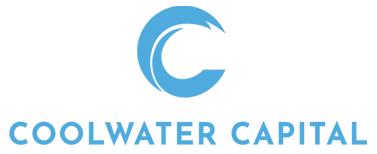 MChem Chemistry, Second Year Undergraduate, remote working
MChem Chemistry, Second Year Undergraduate, remote working
Work Projects
Workingat Coolwater was a great opportunity for me to understand the world of VC, and as I was given responsibilities and treated like any other employees, I got hands on experience in the industry. Duringthe first week, I was introduced to the company's operations and guided through the various tasks assigned to me. As an intern, I was also asked to work on a personal project somethingwhich I felt I could contribute to the company in a more lastingsense rather than just work on the day to day aspect. I worked in three main areas: data aggregation, company profile development and research, but I found that creating resources for the company would be the best way that I could contribute somethingpermanent that would be useful in the future as well as now. I enjoyed the opportunitiesto develop skills I did not have before, such as writing complex formulae in Google Sheets, as well as the softer skills needed in the workplace. I really appreciated the relaxed and welcomingatmosphere at Coolwater as it gave me the confidence to ask for help whenever I needed it, as well as the confidence to put forth my ideas and thoughts regardinga given project. I think the latter was one the best aspects of my internship the fact that my suggestions were valued despite only beingan intern was very rewardingand gave me the aplomb to continue doingso in the future.
Daily Life
As Coolwater is based out of the US, I decided to have my remote "work day" begin in the late afternoon and finish in the late evening so I could easily communicate with colleagues given the
238
USA
time difference; this gave me the flexibility to go about my day as I wanted without havingto worry about not beingat my desk. A typical day at work would involve a standingmeeting, meetings with colleagues regardingthe various projects to which I was assigned, and, of course, working on these projects. I liked the variety that this structure provided as if I was having difficulties with one of the projects, I could ask my colleagues for help and while they responded, I could continue working on somethingelse monotony was avoided, and time was not wasted either.
Furthermore, not havingstrict hours meant that I could work on things by giving them the time they needed:if somethingrequired a lot of effort and time on my part,
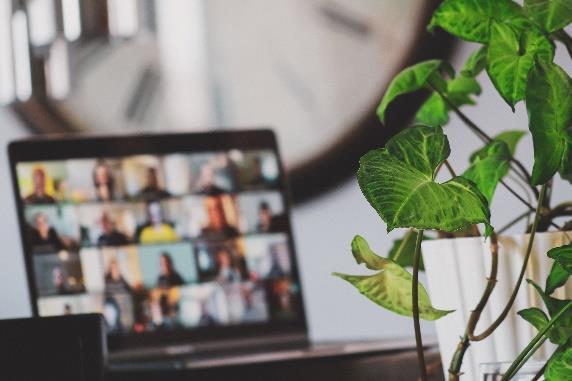
I could work on it without havingto stop as the "work day" was over, and conversely if somethingrequired less effort, I only needed to spend as much time as necessary and carry on with my day! Remote working always seemed cold and distant to me, but this internship changed my view I found that the freedom that flexibility gave me was far more valuable than I had first thought and allowed me to have a great work/life balance.
Lasting Impressions
I learned a lot from working at Coolwater about the VC industry, about the various projects my colleagues were working on, but most importantly aboutmyself. This was the first time I had worked for a company for more than a month. I felt that the 8 weeks I interned at Coolwater let me see first hand how I reacted to different situations that arose in workinglifedealingwith project deadlines, speakingup when I thought I had somethingto contribute even though I had only been there a few weeks and understanding(and applying) the 80/20 rule in various situations are just a few of the aspects I felt helped prepare me for the future, regardless of where I work.
239
These are habits and principles which are difficult to develop unless you have done so via experience and Coolwater gave me the opportunity to have this and improve myself beyond the parameters of the projects I worked on. Learning about venture capital has made me keen to work in dynamicindustries and the exposure to a multitude of start ups tryingto solve many of the most pressingissues the world is facing today has also given me hope for the future!
DATA ETHICS 4 ALL
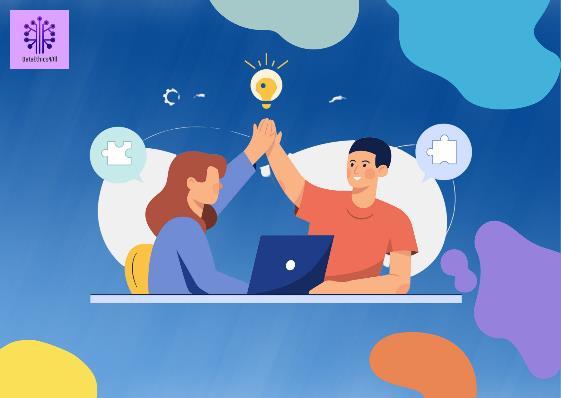
Matthew Campbell, Brasenose College, BA Economics and Management, Brasenose College, First Year Undergraduate, remote
working
Work Projects
As part of the project, my main task was to promote the flagship youth program runninga college essay writing summer camp, primarily usingsocial media. Beginning with basicmarket research, I had to write draft messaging, conduct market research, produce and schedule a variety of content, and analyse its performance and impact. I managed to increase core social media traffic across all platforms by 3 times, and the engagement rate by 41%. I had daily meetings with my mentor Sam, who was very helpful and guided me through my tasks and challenges.
Daily Life
With it beingonline, I was able to plan my day myself. This meant I could start at 9, have a midday break to go the gym, and then get back to work and finish around 6:30/7. I'd begin by analysingprevious post performance, then consult this week's to do list and continue going through it. This would normally involve planningand producingcontent, takinglearningpoints from social media performance, and doingresearch to explore how to better reach the desired audiences. Every day would end with a 30 minutes (ish) meeting with my supervisor where we'd go over my work for the day and make a plan for the next.
240
Lasting Impressions
I very much enjoyed the experience and was able to learn a lot about the American college system. I worked on my time management and communication skills, and I always like pursuing new areas. It's certainly given me a lot to think about vis a vis my career.
ILLUMINATE CONSULTING GROUP (ALUMNI HOST, ST JOHN’S COLLEGE)

MMath Mathematics, First Year Undergraduate, remote working Work Projects
In the first half of my internship, I focused on understandingthe methodology behind differentrankings and appending2022 rankings. This required learninghow to use certain packages in Python to web scrape, working with thousands of data points in Excel, and learninghow to use Microsoft Visual Basic for Applications to create graphs and analysis of said data points. In the second half of my internship, I focused more on creating graphs to enhance presentations which were given to clients. These were mainly graphs of the clients’ rankings in certain league tables over time. There were also times where I pulled and scanned through staff lists to add that information to presentations or looked through to find profiles of certain staff members. I was also able to travel to visit a client duringthis internship.
Over two days I attended multiple meetings in which I shadowed and took notes while my boss presented findings from the client project. The support I received was mainly from my boss. We had daily meetings in which we talked about my progress and questions on the work we were doing, and he also gave a lot of advice regardingcareer paths and was very open to talking about the industry.
241
Daily Life
Over the course of my internship, there were daily meetings scheduled with the other interns and our boss to talk about our progress for the day and to discuss any issues. Often our boss also spent some time talkingabout why our work was important or giving some insight into the industry (includingtalking about specificcases where somethingweird had occurred or giving background on the systems and rankings we were working with). We also sent daily emails to the group with our progress and issues we had come across so everyone was on the same page with regards to our work.
For the first three weeks of my internship, I was working with someone else, so I also spent a lot of time on Zoom working with him. After he left, most of the interns were in different time zones, so it would not have been possible to work as collaboratively, but we still sent each other questions and talked about what we were doing. To keep work life balance, since I was sittingat my desk for most of the day, I took short breaks in both the morningand afternoon and tried to coordinate my lunches so I wouldn’t be eatingalone. There wasn’t much else I did outside of work to relax and wind down besides keeping it from being on my mind all the time.
Lasting Impressions

I thought that I gained a lot from the internship. I was able to gain a lot of technical skills in terms of working with Excel, programmingin VBA (to generate graphs), and programmingin Python (and working with classes that involved gettinginformation from the internet). My employer stressed that havingstandards in presentationsand files was important, so I was able to embrace the idea of havingeverythingstandardized and realize how much easier that is to work with. I was also able to gain knowledge of the industry that I hadn’t had before.
Since the internshipdealt with universities, I was able to learn more about these institutions from what I researched and experienced as an undergraduate.
242
The company was a consultinggroup, so I was able to experience working as a consultant both in terms of creatingmaterial for clients through presentations and Excel sheets, but also through attendingclient meetings both online and in person. I was able to realize that I much preferred working with the data and tryingto find meaningin it more so than talkingto clients about it and trying to manage their expectations.
BA Economics and Management, First Year Undergraduate, remote working Work Projects
My internshipconcerned a project pertainingto retrieval, cleaning, and analysis of university rankings data. This was meant to help client universities improve their rankings by seeingthe trends of universities that had improved or deterioratedin rankings over time. For example, I had to collect data from the Times Higher Education Impact rankings relatingto the UN’s SustainableDevelopment goals, and then manipulate the data, includingre rankingthe data, filteringout duplicate rows, recalculatingthe scores and rankings based on initial raw data from the website, making columns and graphs to analyse trends. The purpose of this was to see how different parameters impacted the likelihoodof success (such as the number of sustainable development goals in which the data was submitted by the university, or specific policies reported on campus).
Another example was compilingand organisingspecific evidence that different universities had submittedto score points in the ranking, in order to later show clients what kind of submissions were helpful.
Throughout the internship, I managed to substantially improve my ability to work with Excel and to find shortcuts and efficient methods that allowed me to accomplish data analysis tasks more effectively. I learned a variety of tools and functions in Excel that I had not previously been familiar with, such as linkingdifferent sheets together through double or triple functions.

243
Daily Life
The internshipwas remote. I worked on a relatively regular schedule of 10 6, but sometimes I would work more erratically. For example, I would split my hours between the morningand the evening, with a longer break duringlunch time. Typically though, I would wake up around 9:30, have breakfast, and get to work, then have lunch, and then have the regular call with my team at 6 PM (Riga time) after which I would finish the day. Since the internship sometimes required flexibility and sudden new and urgent tasks (such as compilingand analysingnew data for a client 2 days before a call with said client), sometimes I would have to work later in the night as well, and other days, when (I’d thought) I’d done everythingthat was asked of me, I would work less.
To wind down, I’d usually read or exercise in the evening, sometimes exercisingduringthe day (on those days when I split my work into the morningand evening). On the weekends primarily, I also took drivinglessons in preparation for receivingmy licence, as I enjoyed that and it relaxed me.
Lasting Impressions
I’m glad I learned to work better with data, and to do self driven work. Duringthe internship itself, I felt gratified because I felt like I was doingwork that was meaningful to my selfdevelopment both in terms of technical and critical thinkingskills.
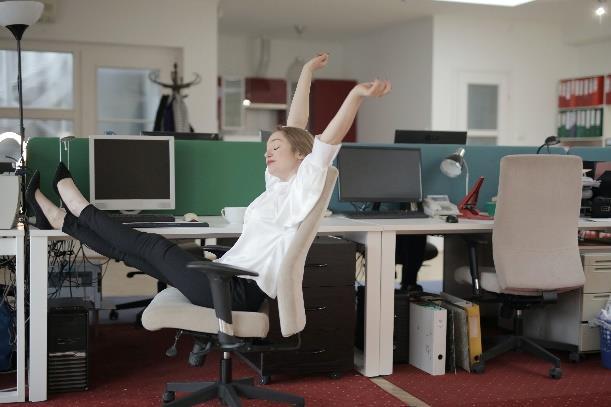
SOCIAL SCIENCE RESEARCH COUNCIL
MSc Migration Studies, a mixture of in-person and remote working
244
Work Projects
I worked for the Conflict Peace and Prevention department of the Social Science Research Council which supplies research to the United Nations and brokers a lot of meetings between different countries. I mainly worked for the Latin American division and conducted research on Guatemala and Nicaragua's state of elections and democracy. I also created a concept note on Migration for the upcomingNorth Africa migration conference SSRC is holdingand conducted research on China Latin America relations at this moment in time.
Daily Life
I usually had a list of tasks my supervisor left me with via email/slack concerningthe research I needed to do and turn in by end of week. I also had a weekly one on one supervisor meeting, alongwith a weekly team meeting, and a weekly Latin American division meetingas well. I also got to socialize quite a bit with the other 2 interns in my department and attended work ice cream socials on Fridays and went to work in the office twice a week.
Lasting Impressions

I enjoyed the internship a lot because I learned a lot about human rights organizations and was able to carry out meaningful work that I will be able to participate later in (I will be able to attend the North Africa Migration conference to see the fruits of my labour in a way). The experience has definitely confirmed my aspirations to work in the human rights field.
Practical Advice
I would tell future interns to communicate honestly with supervisors and keep track of timelines, do not feel pressured to deliver quickly because in most all cases supervisors will prefer you to take your time on work than rush it and they will understandthat you need more time. Workingis not like school in the sense that supervisors/peers understandand respect the
245
fact that you have a life and most often will not expect you to take extra hours of your personal time to do things hence extended timelines if needed.
246
































 Jordan Edwards Zinger, Brasenose College, BPhil Politics, Philosophy, and Economics, First Year Undergraduate, in
Jordan Edwards Zinger, Brasenose College, BPhil Politics, Philosophy, and Economics, First Year Undergraduate, in
































 Emilia Schmid, Corpus Christi College, BA Biomedical Sciences, Second Year Undergraduate, in
Emilia Schmid, Corpus Christi College, BA Biomedical Sciences, Second Year Undergraduate, in






 Lucien Jean Lanson Hirigoyenberry, Harris Manchester College, BA Oriental Studies (Chinese with Japanese), Third Year Undergraduate, in person
Lucien Jean Lanson Hirigoyenberry, Harris Manchester College, BA Oriental Studies (Chinese with Japanese), Third Year Undergraduate, in person

























 Mao, Christ Church, Medicine, First Year Undergraduate, in person working
Mao, Christ Church, Medicine, First Year Undergraduate, in person working









































































































 Devaki Vadakepat Menon, Magdalen College, MPhil in Visual, Material and Museum Anthropology, in person working
Devaki Vadakepat Menon, Magdalen College, MPhil in Visual, Material and Museum Anthropology, in person working





















 Daniel Philip Quinn, Worcester College, BA (HONS) Geography, First Year Undergraduate, In-person
Daniel Philip Quinn, Worcester College, BA (HONS) Geography, First Year Undergraduate, In-person



 MChem Chemistry, Second Year Undergraduate, remote working
MChem Chemistry, Second Year Undergraduate, remote working




















































